CAPORALE 38


Irregular Girl is leading the fight for trans utopia
PLUS: MAKING THEATER OUTDOORS | PRIMARY ELECTION GUIDE | PRINCE FREE AND FREAKY SINCE 1971 | JUNE 23, 2022
“I don’t perform positivity as much as hope.” By MICCO
Summer Theater & Arts Preview
CHICAGO READER | JUNE 23, 2022 | VOLUME 51, NUMBER 19
CITY LIFE
04 Street View Shrooms and weird are the styles of the season.
FOOD & DRINK
06 Sula | Feature The classic Chinese American restaurant the House of Wah Sun will be reborn in an erstwhile former Golden Nugget.
COMMENTARY
10 Joravsky | Politics The casino may actually be worse than the dreaded parking meter deal.
12 Isaacs | Culture Riding Jane Crow, typing Nelson Algren, and the return of the Newberry Book Fair
14 Prisons When candidates say they’re “tough on crime,” what they really mean is “we’ll put more Black people in prison.”
2022 ELECTIONS
15 Vote! The Reader’s got you covered on down-ballot races, historic elections, primary shenanigans, and more.
16 First A whopping 17 Democrats and four Republicans are vying to replace Bobby Rush, who is retiring.
20 Religion Indian American Muslim challenger Junaid Ahmed is running to unseat Raja Krishnamoorthi, who has ties to Hindu nationalist groups.
22 Prout | Testing the Waters Precious Brady-Davis hopes to make history as the first Black, openly transgender woman elected
in Chicago.
25 Daley | Second Time Gunviolence advocate Kina Collins takes another run at Danny Davis.
26 Garcia | Assessor Fritz Kaegi discusses his role in reforming an office known for patronage and favoritism.
28 Garcia | Uncovered A look at Cook County’s property tax appeals board
30 Garcia | Southwest Side State senator Celina Villanueva faces a primary challenge from Byron Sigcho-Lopez’s chief of staff.
31 Garcia | En español La senadora estatal Celina Villanueva se enfrenta a un desa o en las elecciones primarias por parte del jefe de personal de Byron SigchoLópez.
SUMMER THEATER & ARTS
32 The Purple One A new interactive exhibition about Prince visits the Mag Mile.
34 Museums An exhibition at the Art Institute shows Cézanne’s wideranging influence on other painters.
36 Survivors “Remaking the Exceptional” examines torture in Guantánamo Bay and closer to home.
38 Caporale | Hope Irregular Girl is leading the fight for trans utopia.
42 Reid | Summer Stagers Taking the drama and dance outdoors
46 Historical Drama A Black perspective on the French Revolution
48 Method Isaac Butler’s book examines Stanislavski and his descendants as a many-headed hydra of theory.
49 Reid | Next Gen A teen playwright’s Elizabethan pastiche debuts with the Artistic Home.
55 Showcase A series is helping audiences experience the long and rich history of international films with Black stars.
THEATER
50 Plays of Note The Flint crisis comes to sorrowful onstage life in cullud wattah, Steep returns to live shows with the dark workplace comedy Paris, and a gay Hollywood star faces being outed in the PrideArts farce Tommy on Top
FILM
52 Movies of Note Beba is a poetically shot coming-of-age documentary-memoir, Elvis is Baz Luhrmann’s maximalist dream, and Jurassic World: Dominion has enough CGI dinosaurs to be somewhat entertaining.
MUSIC & NIGHTLIFE
56 Feature Do police and hired security have a place in live music? Or is the community of fans, artists, venues, and presenters better able to keep itself safe?
62 Feature Chicago’s longestrunning indie rock label throws the first Pravdafest, celebrating 38 years of rolling with the punches and putting in the work.
64 Chicagoans of Note Bill Connors, art director for the Empty Bottle
66 A New World Mother Nature ascend a queenly throne
68 Shows and Records of Note Previews of concerts including Steve Von Till, the Chosen Few Picnic & Festival, and the Chicago Soul Jazz Collective with Dee Alexander, plus reviews of releases by Arthur Brown, Ron Trent, Petrol Girls, and more
72 Early Warnings Rescheduled concerts and other updated listings
72 Gossip Wolf Ne-Hi alum Mikey Wells drops a mellow, summery new album with Flamingo Rodeo, Edgewater arts nonprofit 6018North hosts a free community variety show on the beach, and art-pop duo Gilt Drip release a stunning debut EP.
SAVAGE LOVE
74 Pride Dan Savage offers advice on the “bamboo cage” and cultural forces that shape “preferences.”
CLASSIFIEDS
76 Jobs, research, adult services, and more
TO CONTACT ANY READER EMPLOYEE, E-MAIL: (FIRST INITIAL)(LAST NAME) @CHICAGOREADER.COM
PUBLISHER AND PRESIDENT TRACY BAIM
MANAGING EDITOR SALEM COLLO-JULIN PRODUCTION MANAGER KIRK WILLIAMSON
SENIOR GRAPHIC DESIGNER AMBER HUFF STORY EDITOR SUJAY KUMAR NEWS EDITOR JIM DALEY
THEATER AND DANCE EDITOR KERRY REID MUSIC EDITOR PHILIP MONTORO
ASSOCIATE EDITORS JAMIE LUDWIG, TARYN ALLEN SENIOR WRITERS LEOR GALIL, DEANNA ISAACS, BEN JORAVSKY, MIKE SULA
STAFF WRITERS KATIE PROUT, KELLY GARCIA AUDIENCE ENGAGEMENT MANAGER YASMIN ZACARIA MIKHAIEL
LISTINGS COORDINATOR MICCO CAPORALE
VICE PRESIDENT OF OPERATIONS ANN SCHOLHAMER
DIRECTOR OF DIGITAL JOHN DUNLEVY
DIRECTOR OF DEVELOPMENT JT NEWMAN DEVELOPMENT ASSOCIATE CALEB WALKER
DIRECTOR OF MARKETING VIVIAN GONZALEZ
MARKETING PROJECT STRATEGIST SHAWNEE DAY MEDIA PARTNERSHIPS COORDINATOR YAZMIN DOMINGUEZ
CIMA MANAGER SAVANNAH HUGUELEY EXECUTIVE ASSISTANT SANDRA L. KLEIN ADVERTISING 312-392-2970, ADS@CHICAGOREADER.COM CLASSIFIEDS: CLASSIFIED-ADS@CHICAGOREADER.COM
VICE PRESIDENT OF SALES AND BUSINESS DEVELOPMENT AMBER NETTLES
VICE PRESIDENT OF SALES AMY MATHENY SALES TEAM VANESSA FLEMING, LENI MANAA-HOPPENWORTH, TIM OGDEN, TED PIEKARZ, WILL ROGERS DIGITAL SALES ASSOCIATE AYANA ROLLING
NATIONAL ADVERTISING VOICE MEDIA GROUP 1-888-278-9866 VMGADVERTISING.COM JOE LARKIN AND SUE BELAIR
DISTRIBUTION CONCERNS distributionissues@chicagoreader.com 312-392-2970
NOTE FROM AN EDITOR
THIS IS THE first time we’ve done a summer theater and arts issue, and judging by the full-to-bursting content, that’s surprising— especially given how much Chicagoans love getting outdoors in the summer. You can read about some theater and dance programs that specialize in bringing performances to public parks, or, if you prefer indoor immersive experiences, there’s always Prince. (May there always be Prince!)
Our cover story on Irregular Girl highlights this trans artist and activist’s ongoing role as “the Live Laugh Latina of clubland,” while rising Chicago playwright Terry Guest questions history through a Black queer perspective in Story Theatre’s Marie Antoinette and the Magical Negroes. A new screening series, Black Actors in Foreign Cinema, also asks us to look at history through a lens not as warped by whiteness.
If real drama weren’t enough, there’s always the theater of local
politics, and we have a ton of Q & As and features in this issue on what’s going on ahead of the June 28 primary. (If you can predict what’s going to happen in the wild race for Bobby Rush’s congressional seat, you might have a future in futurism.) Outdoor music festivals should be a good way to kick back, but as Kira Leadholm’s feature on concert safety and security demonstrates, even those are rife with shady dealings. But that’s always the challenge of living in this complicated place:
balancing the joy and beauty with the dirty underpinnings. Get out and vote—then get out and enjoy yourselves! KERRY REID
Correction: An article published in the June 9 issue of the Reader , “False alarms,” stated that Governor Pritzker signed the Pretrial Fairness Act in January 2021; Pritzker signed the bill in February 2021.
READER (ISSN 1096-6919) IS PUBLISHED BIWEEKLY BY THE READER INSTITUTE FOR COMMUNITY JOURNALISM 2930 S. MICHIGAN, SUITE 102 CHICAGO, IL 60616 312-392-2934, CHICAGOREADER.COM
COPYRIGHT © 2022 CHICAGO READER PERIODICAL POSTAGE PAID AT CHICAGO, IL
ALL RIGHTS RESERVED. CHICAGO READER, READER, AND REVERSED R: REGISTERED TRADEMARKS ®
2 CHICAGO READER - JUNE 23, 2022 ll
THIS WEEK
ON THE COVER: PHOTO BY DYLAN BRAGASSA. FOR MORE OF BRAGASSA’S WORK, GO TO LINKTR.EE/ DYLANEATSWINGS.
IN THIS
ISSUE
Excellence is for everyone.
Leaders in LGBTQ+ care
Here at A irm: The RUSH Center for Gender, Sexuality and Reproductive Health, we are proud to provide state-of-the-art, a irming care to our LGBTQ+ community — especially in challenging and uncertain times. Our team works across our health system to build culturally competent care, ensuring the needs of our LGBTQ+ patients are met and ensuring everyone receives the high-quality, nationally-recognized care RUSH is known for.
Services we provide include the following:
• Gender-a irming clinical specialties:
– Primary care for adults, adolescents and children
– Endocrinology
– Gender-a irming hormones
– Gender-a irming surgery
• Specialty care including oncology, orthopedics and neurology
• Voice/vocal services
• Pelvic floor therapy
• Obstetrics and gynecology services (including cervical cancer screening)
• Reproductive health and fertility services
• HIV care
• Behavioral health
To learn more about A irm and LGBTQ+ care at RUSH, please call (833) 624-5428 or visit rush.edu/a irm.
Telemedicine and virtual visits available
JUNE 23, 2022 - CHICAGO READER 3
CITY LIFE
Magic Ride
By ISA GIALLORENZO
“Ilike to go for anything that draws attention and is kinda funky and out there,” says 20-year-old Joey Prette, already a senior stylist at Free People and a musical theater student at Roosevelt University. “Usually I’d be wearing my flower earrings, but I forgot them today,” they say while sporting green, their favorite color.
Prette likes to thrift and shop at small boutiques such as Big Bud Press, where they got their wide-legged mushroom pants. “They scream ‘me’ and who I am as a person,” they say, adding that mushrooms are really cool and edgy right now.

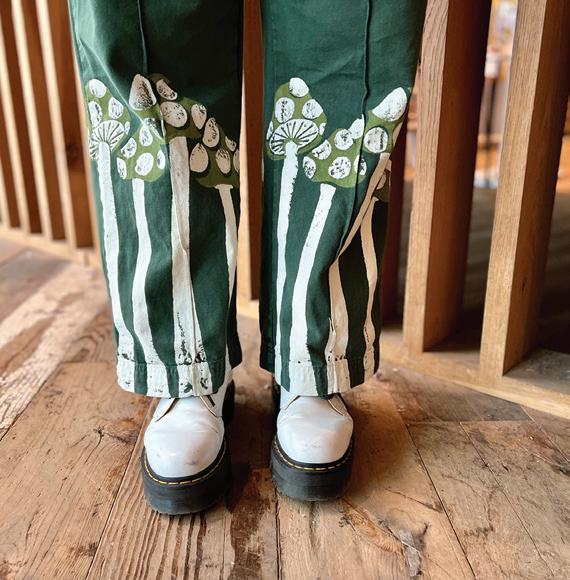
True words indeed. An aesthetic being dubbed “weird girl,” or, better yet, “weird person,” is really happening at the moment, and Prette might be channeling it by favoring the trend’s motif du jour.
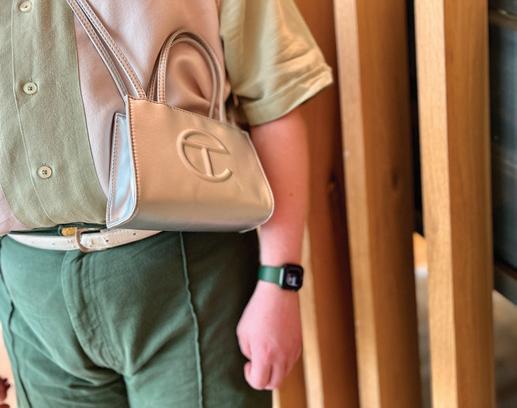
Prette’s style has an added charm provided by their monochromatic color choices, making their look pleasantly o eat. “I love color. If I decide to wear blue, I wear all blue, and pair it with some fun patterns and accessories,” they say.
Another indicator that Prette embodies the now: they ignore gender norms when choosing their outfits, and they claim to wear platforms and heels all the time. “I don’t really shop in the men’s section anywhere, and it shouldn’t matter,” they say. True words indeed. v
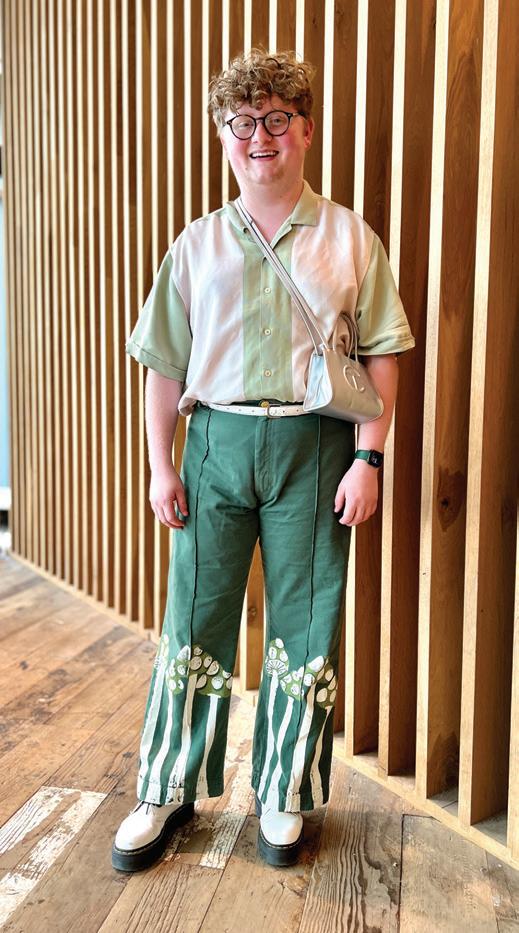
4 CHICAGO READER - JUNE 23, 2022 ll
@chicagolooks
Street View
Shrooms and weird are the styles of the season.
Joey Prette, a musical theater student at Roosevelt University, ignores gender norms when it comes to fashion. ISA GIALLORENZO


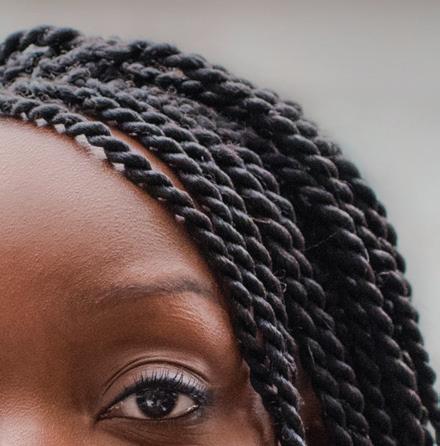



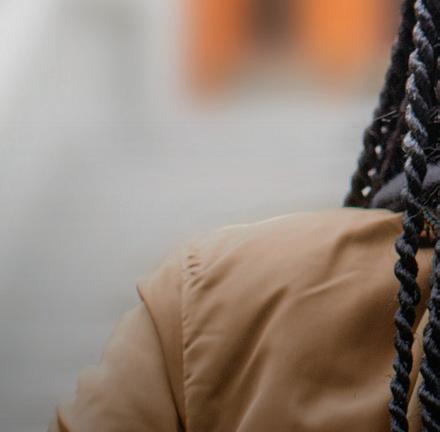
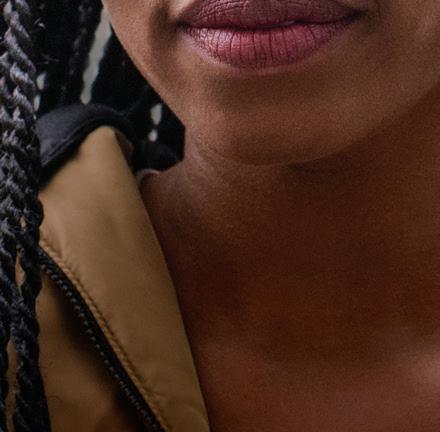
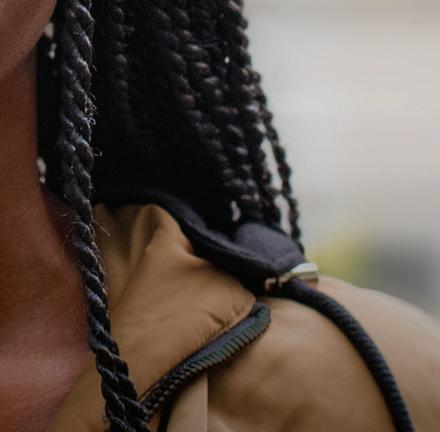






JUNE 23, 2022 - CHICAGO READER 5
The House of Wah Sun abides, in Irving Park
By MIKE SULA
Last Saturday night at the House of Wah Sun in North Center, Mark Chiang lingered at the table of a few of the night’s last customers. His wife, Young Ja Kim, had already wheeled over the egg rolls, crab rangoon, and heaping platters of crispy chow fun, cumin lamb, and Sichuan green beans, but Chiang was preoccupied by the imminent relocation of his Cantonese-Mandarin restaurant to a recently shuttered Golden Nugget two miles to the west in Irving Park.
“If can I would stay here,” he said. “I don’t want to go but I take this opportunity. Twentyone years I been here and it’s finally time.”
Kim was simply ready to call it a night. “Will you leave them alone?” she said as she scooted past. “They came to eat.”
The House of Wah Sun’s original location opened across the street from the Davis Theater in 1947, making it one of the city’s oldest operating Chinese restaurants. But it maintained a low profile over the decades, relative to the nearby 95-year-old Orange Garden with
its once-dazzling, now-darkened neon sign (now in the possession of a similarly weathered rock star). And perhaps the House of Wah Sun’s rep has suffered from confusion with Uptown’s comparatively juvenile Hong Kongstyle barbecue specialist, Sun Wah (35 years).
Both names translate into roughly “New Chinese,” but the House of Wah Sun is a neighborhood institution that tra cs in a nostalgic style of Chinese American food that hardly feels new, but is executed at a level that surpasses its remaining fellow dinosaurs.
Customers are invariably greeted inside the doors by a giddy dancing wooden Buddha, and in contrast, Kim, whose MO is initially stern but ultimately endearing. There’s a full bar known for its sweet, potent Mai Tais and Zombies in ceramic tiki ware, and a sprawling menu that covers all the classic Chinese American bases and then some.
Chiang says it’s little changed since he bought the place from founder Melvin Gin, a World War II navy vet who served primarily Cantonese dishes at his original carryout spot, and at the current location, which he opened in 1978.

Back then Chiang—who’s 61—was still a kid in Daegu, South Korea, one of thousands of Chinese expats from the northeastern Shandong Province who dominated the nascent restaurant economy there. “For a Chinese born in Korea, they don’t give us opportunity,” says Chiang. “You cannot work in the bank— they’re not gonna hire you. A lot of other fields are really limited. We actually work in the restaurant as no choice.”
At 24, Chiang was working in a 600-seat Mandarin restaurant in Seoul’s Gangnam District when he left for the U.S., where a prep cook job was waiting for him at Yu’s Mandarin in Schaumburg. He didn’t train to become a chef until he lit out for St. Louis, where a friend opened a new place. Three years later he returned to Yu’s, where he began cooking and where he met Kim—and two of his current chefs: his brother-in-law Fung Chin and Ping Du, a graduate of the Culinary Institute of Sichuan (the same school Tony Hu attended).
When Chiang bought the House of Wah Sun he inherited Gin’s peanut butter-kissed egg roll recipe, along with the predominantly Cantonese menu, to which he added Mandarin and Sichuan dishes. He opened right after 9/11, and business was slow at first, but they slowly built it. Those egg rolls, 600 to 800 handmade each week, put their two daughters through college (one’s a doctor now, the other a chemical engineer). Wok-toasty almost-caramelized fried rice with fat chunks of pineapple had something to do with it too; as did soup swimming with chubby wontons and thick slices of barbecue pork; swollen egg foo young saucers that might levitate if they weren’t smothered
6 CHICAGO READER - JUNE 23, 2022 ll FOOD & DRINK
Mark Chiang (le ) and Young Ja Kim of the House of Wah Sun sit beneath a large piece of art in the Lincoln Avenue location, which they plan to transport to the new space. KIRK
WILLIAMSON FOR CHICAGO READER
FOOD FEATURE
The classic Chinese American restaurant will be reborn in a former Golden Nugget.
Search the Reader’s online database of thousands of Chicago-area restaurants at chicagoreader.com/food
Enjoyallthethingsyouloveaboutsummerwithalittlehelpfromyour localgrocer.ThissummertheDillPickleFoodCo-opisofferingaseries offreefooddemos,cookingclasses,andmuchmore.Takeyourtaste budsontourandlearnhowtotakeadvantageofallofourfavorite seasonalproducetomakethemostofyourmealsthisChicagosummer. Demonstrationsandcookingclasseswillbeon:June29,July13,July27, August3,andAugust24. Createtheperfectcharcuterieboard Somesuggestionsforanincrediblecharcuterieboard:Firehook Crackers,BaldaufderAllgauercheese,UbriacoPinotRosécheese, UndergroundMeatsTuscanStyleSalami(localvendor),Marcona almonds,MiticaFennelTaralliItaliancrackers






VisitDillPickleforallyoursummerneeds Wealsohaveamazingin-housepreparedtakeaways,includinghandmadesandwichesandsalads,whichalsopackperfectlyforyournextChicagoadventure.Takeadvantageof ourWellnessWednesdaysinwhichyoucansave20%onwellnessproducts,suchasvitaminsandminerals.Don’tforgettostockuponsunscreenandaloetokeeptheUVraysat bay.Afterrelaxingandchillinginthesun,visitourspiritsdepartmentforafewrefreshingcocktailingredientslikeVodka(MoscowMule),RoseTequila(TequilaSunrise),Rum (PinaColada),Gin(GinBasilSmash),andadiverseselectionofwinesandbeersperfectforsippinginthefreshair.
ENTERTOWIN! Headto chicagoreader.com/dillpicklecontest toentertowinaDillPicklegiftbasket,awineandcheesetastinglesson,oracharcuterieboardlesson!
JUNE 23, 2022 - CHICAGO READER 7
$ spent on any resale items
resource
and
WILDLIFE HABITAT!
All
benefits the environment. By slowing virgin
extraction, you help birds, bees, butterflies,
ALL
SummerFunatYourLocalCommunity-OwnedGroceryStore PaidSponsoredContent ThissponsoredcontentispaidforbyTheDillPickleFoodCo-op StopbytheDillPickleFoodCo-op! 2746N.MilwaukeeAvenue 8am-9pm,7daysaweek! Formoreinformationvisit www.dillpickle.coop
in sheets of thick, glossy gravy; and salt-andpepper shrimp fried so delicately you can eat the shells. These are some of my favorites anyway—there are nearly 100 items on the menu, including that Sichuan-style cumin lamb, served sizzling atop a bed of fragrant cilantro, a newer addition and a hint of things to come. Gin, until he passed away six years ago, was also Chiang’s landlord, but for the last 11 years, he’s been on a month-to-month lease. Late last year Gin’s children sold the building to a developer, and Chiang was told he had until the end of 2022 to get out. After more than two decades of 13-hour days, he was thinking of retiring in five years or so, but now he had to scramble.
The rent’s higher at the old Golden Nugget, but he won’t have to share the parking lot (like he would have with the COVID testing center that almost moved in until he threatened to leave)—and the taxes are lower. The Buddha’s











coming with him, and so are his chefs, and he sees a market in Irving Park for some of the iconic dishes he prepped as a young man in Seoul, such as the black bean noodles zha jiang mian, the spicy seafood soup jjamppong, and the sticky sweet hot chicken wings known as gampongi. The new neighborhood has historically been a stronghold for this particular Chinese-Korean hybrid cuisine, but Chef Ping, who went to culinary school in Chengdu, will also introduce more rigorously Sichuan dishes such as whole fish hot pot and the Taiwanese beef noodle soup niu rou mian.
Chiang, who also handles the restaurant’s deliveries in his Prius, is just waiting for his final health department inspection before he can open in the new place at 3234 W. Irving Park.

Kim is coming too, of course. The customers, “they come to see me,” she says. v
@MikeSula
8 CHICAGO READER - JUNE 23, 2022 ll
continued
6 FOOD & DRINK PLAY WITH PURPOSE™ Learn how every play helps at www.IllinoisLottery.com 100% of Profits go toward homelessness prevention and assistance programs in Illinois. June 27: Chinese-Viet-inspired barbecue from Charles Wong of Umamicue @umamicue July 4: Independence Day break July 11: Dawn Lewis of D’s Roti & Trini Cuisine @ds_roti_trini_cuisine July 18: Mazesoba from Mike “Ramen Lord” Satinover @ramen__lord July 25: Asian stoner snacks from SuperHai @getsuperhai August 1: Keralan food from Thommy Padanilam of Thommy’s Toddy Shop @thommys_toddy_ shop August 8: Indonesian home cooking with Waroeng and friends @waroeng_chicago August 15: Dylan Maysick of Diaspora Dinners @diasporadinners August 22: Vargo Brother Ferments @vargobrotherferments August 29: The triumphant return of Funeral Potatoes @funeral.potatoes Sept. 5: Labor Day break Sept. 12: TBA Sept. 19: Global Asian barbecue with Umamicue and friends @umamicue See chicagoreader.com/food-drink/ for weekly menus and ordering info It’s a summer of Monday Night Foodball the Reader’s weekly chef pop up series at the Kedzie Inn, 4100 N. Kedzie Ave. Follow the chefs, @chicago_ reader, and @mikesula on Instagram for weekly menu drops, ordering info, updates, and the stories behind Chicago’s most exciting foodlums. Mark Chiang (le ) and Young Ja Kim with the retro sign on the side of the Lincoln Avenue location KIRK WILLIAMSON FOR CHICAGO READER
from
I watched it all happen.
I watched people go from hands to poles and start blasting.
I saw city action happen in the burbs, when people started capping.
I seen blacks get pushed further south, when they shut down projects.
I saw people shift behavior without much context.
I saw fighting as a contest rather than nonsense.
I saw the summers get hotter. I saw a whole lot of mothers. Ain’t see too many fathers.


I saw fewer solutions than I saw problems. I saw hot cheese on chips and frooties cents to the dollar. I ain’t realize that in other cities that wasn’t an option.
I saw summer as an escape from school, from the pain, from the snow, from the cold, from rules, as an excuse to be loose, a muse, to help us detach from what we viewed as negative, and enhance the other things that we knew, as a reminder of all of the people we can lose, And a reminder that those people could be us too. You know, love and good food. The possibility of something bigger to pursue, even just an excuse to hoop, bikes turned into cars we used to scoop, learning my friends had learned to shoot. And that happiness had a limit too.
After dropping one of Chicago Tribune’s best albums of the year in 2018, Chicago rapper femdot. has continued to blossom into a staple in his hometown and beyond. His 2019, breakout project, 94 Camry Music, led to a sold out nationwide tour with tobi lou, partnerships with brands such as lululemon and being the face of Toyota’s 2020 Camry model roll out. femdot. created the 501c3 non-profit org Delacreme Scholars, which has supplied free grocery delivery services to over 500 families around the city of Chicago, awarded 20 scholarships midyear to Black and Brown college students, and hosted toy and coat drives throughout the city.
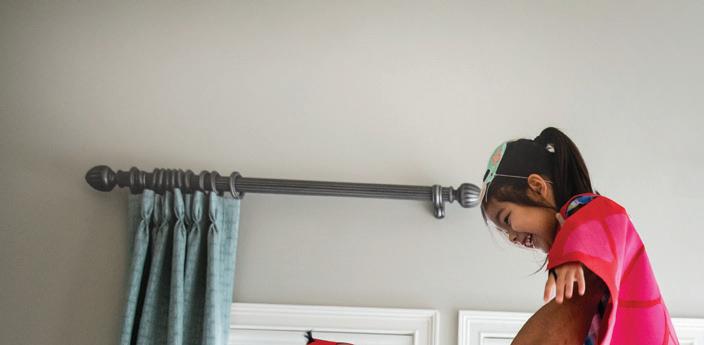
Fresh off being tapped to write the Chicago Bears 2021 season opener campaign, femdot. Followed up with his project titled Not For Sale, supported by a COLORSxStudios perfomance, along with four sold out listening sessions in Chicago and New York with support from brands Diageo and lululemon, along with a 24 city tour as direct support for SABA.



A biweekly series curated by the Chicago Reader and sponsored by the Poetry Foundation.






an excerpt from “93 Days of Summer” (2019) By femdot. Free Summer Programming from
Hours
Wednesday, Friday, and Saturday: 11:00 AM–4:00 PM
Thursday: 11:00 AM–8:00 PM
Poemtime (In Person)
Weekly storytime for little ones and their caregivers that introduces poetry through fun, interactive readings, songs, and art projects
Saturdays, 10:00 AM
Learn more at PoetryFoundation.org
JUNE 23, 2022 - CHICAGO READER 9
the Poetry Foundation!
COMMENTARY
ON POLITICS
Not a dream
The casino may actually be worse for Chicago than the dreaded parking meter deal.
By BEN JORAVSKY
As I lay in bed drenched in sweat, battling COVID, it came to me as in a fevered dream . . .
The City Council had overwhelmingly approved Mayor Lightfoot’s idea to spend untold millions on a casino. Even as Alderperson Brendan Reilly warned them that it may wind up being as bad as the hated parking meter deal from 2008. And Reilly should know—as he was fooled into voting for the parking meter sale.
When I got over my COVID—yes, folks, I’m feeling better—I realized it had not in fact been a dream. It was reality. The council approved the casino on May 25 by a vote of 41-7. And ever since I’ve been wondering—is this deal actually as bad as the parking meter one?
At first I thought—no, nothing could be that bad. For one thing, only five alderpeople voted against the parking meter deal. So you can argue we’ve made progress with those two
extra no votes.
But upon reflection, I’ve concluded that in some ways it’s worse.
As evidence (and comic relief), let me introduce as exhibit A a column about gambling by Steve Greenberg of the Sun-Times. But before I do that . . .
Listen, I realize it’s hard to top the parking deal for awfulness. At Mayor Daley’s insistence, the City Council voted to borrow over a billion dollars from a consortium of wealthy investors. In return, Daley and the council agreed to give those investors the proceeds from the parking meters for the next 75 years. Meaning . . .
We got a little more than a billion. And they will get . . . who the hell knows? Six billion. Seven billion. Ten billion. I’m not sure I’ll be around in the year 2083 to find out.
Say what you will about the casino, I don’t think it will divert that much money from our
co ers. Plus, the casino must be built. So construction workers will get jobs.
And the casino will need employees, so people will get jobs. Let’s hope those people are Chicagoans. Though so far there is no residency requirement.
On the other hand, the casino deal shares this awfulness with the parking meter deal:
The mayor rushed it through the council, who barely had time to know what they were voting on.
There was no independent cost-benefit analysis. So we don’t know what the casino will cost, which means we have no idea how much of a profit it will yield, if it yields one at all.
In fact, the Lightfoot administration still hasn’t told us how many public dollars will be spent building the casino. At the moment, they’re sorta pretending there will be no public cost. A proposition I find very difficult to believe.
Moreover, Mayor Lightfoot used some of the same hard-sell tactics as Mayor Daley did with the parking meter deal.
Back in 2008, Mayor Daley told us we needed to sell the meters to o set a property-tax hike. Then he hiked our property taxes anyway.
Similarly, Mayor Lightfoot and her City Council allies—chief among them Alderperson Walter Burnett—say they need to bring in casino revenue to o set a property-tax hike. They say they needed the casino revenue to fortify the police and fire pensions. Then they conceded that the casino’s revenues “only will be a drop in the massive bucket the city needs to fill each year in order to pay for the pensions,” as Becky Vevea and Mariah Woelfel of WBEZ put it. So your property taxes will go up anyway—just like with the parking meter deal.
Having said all that, why do I conclude the casino is worse? Because we should know better. In many ways, Chicagoans lost their virginity—politically speaking—with the parking meter deal.
Back in the Daley years, there were a few of us pointing out the city was run by scammers, who feed bullshit to the public. But generally, we were a bunch of lefties on the fringe. For the most part, Chicago voters were true
believers—couldn’t even imagine voting for anyone other than their beloved Mayor Daley. If you criticized him, they told you to leave. Preferably to Detroit, which was positioned as what Chicago would be without Mayor Daley. But with the parking meter it was undeniable that the city was run by scoundrels. And almost every alderperson vowed never to fall for such chicanery again. And now here we are 14 years later falling for it—again!
There’s another way the casino deal is worse.
A casino is set up to make sure its patrons lose. The more money they lose, the more money the casino takes. And ultimately the more money gets paid to the city.
So we’ve linked our economic future to soaking the saps who throw away their money at a casino. And that brings me to Steve Greenberg’s column.
It’s about a different kind of gambling— sports betting. But it’s the same basic point— the system’s set up so that gamblers lose.
Using a recently published survey of gamblers, Greenberg writes:

“This is kind of scary: 39% admitted they typically risk 50% or more of their monthly take-home income in total wagers. What are they doing with the other half, sewing $20s into kites?”
And . . . “Meanwhile, 60% of respondents said they bet on sports to earn extra income. Similarly e ective ways of doing that: playing the lottery, investing in your cousin Earl’s latest cryptocurrency and chucking your piggy bank into a wood chipper.”
And . . . “Quick question: Are all sports bettors full of it or just most of them? Because 75% of respondents reported breaking even and 24% claimed they win at least 75% of the time. Do you know who wins 75% of the time? No one you’ve ever met or ever will meet.”
Finally . . .“On the other hand, only 11% answered that they win `rarely.’ One only can assume they’ve been betting on the Cubs.” Very funny column, Steve Greenberg. Unfortunately, when it comes to the casino, Chicago, the joke is on you. v
@bennyjshow
10 CHICAGO READER - JUNE 23, 2022
With the new casino coming to Chicago, will higher taxes be in the cards? CULLEN JONES/UNSPLASH









JUNE 23, 2022 - CHICAGO READER 11 KNOW YOUR HOUSING RIGHTS! UIC Law Fair Housing Legal Clinic Learn about your housing rights, including fair housing laws and resources for assistance. Get FREE legal assistance! Call us: (312) 786-2267 Email us: law-fairhousingclinic@uic.edu File a complaint online: https://law.uic.edu/experiential-education/clinics/fairhousing/ The work that provided the basis for this publication was supported by finding under a grant with the U.S. Department of Housing and Urban Development. The substance and findings of the work are dedicated to the public. The author and publisher are solely responsible for the accuracy of the statements and interpretations contained in this publication. Such interpretations do not necessarliy reflect the views of the Federal Government.
COMMENTARY
Sun, surf, summer: time to head to the library
Riding Jane Crow, typing Nelson Algren, and the return of the Newberry Book Fair
By DEANNA ISAACS
There’s a whole lot of story in history. And so much depends on the perspective of the storyteller.
What, for example, will the future think it knows of our fraught time? What will be included? What will be omitted? What will be the spin on events like the war in Ukraine or the 2020 presidential election?
Miriam Thaggert has been thinking about this sort of thing since a visit to the Newberry Library’s vast Pullman Company archives in 2014 sent her on a long detour through 19thand early 20th-century American history. Thaggert, now a literature professor at SUNY Buffalo, had been skimming through the employee records of the famous all-male, allBlack Pullman Company porters for a book she was planning, when she stumbled on something she didn’t expect: an application from a woman.
It set her o on a di erent track.
“I had never heard of Pullman maids before,” Thaggert says, but that was the position this woman was seeking. “It made me start to think about what the experiences of Black women in that company might have been like. And that led to questions about the experience of other Black women on the railroad,” passengers as well as workers.
The result, after a return to the Newberry in 2015 for an academic year fellowship and much additional research, is Riding Jane Crow: African American Women on the American Railroad, published this month by University of Illinois Press.
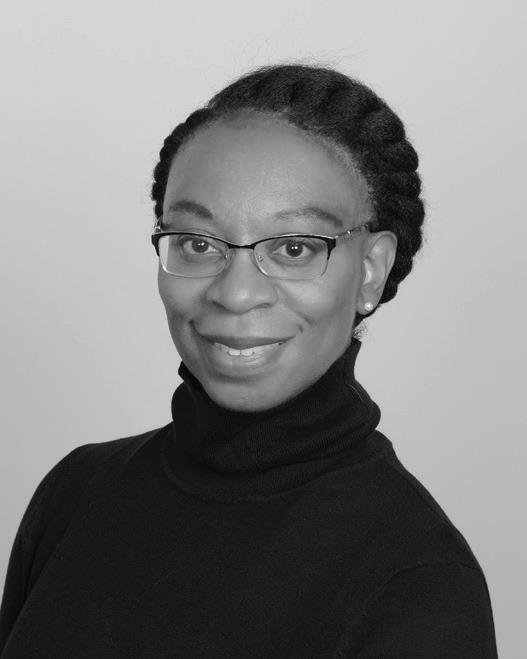
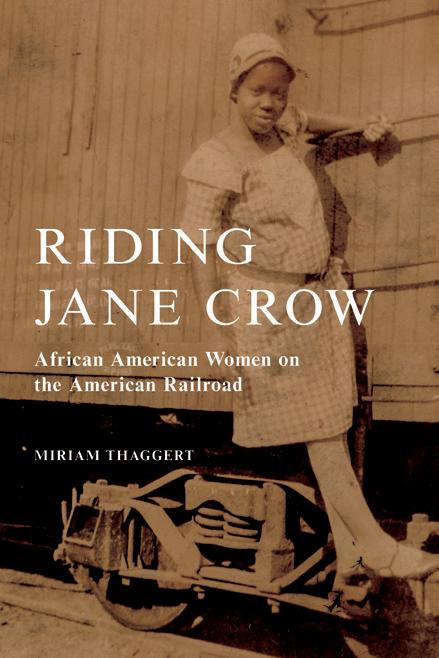
“One of the things I’m hoping to get people to think about is the national narrative we tell about the railroad,” Thaggert says.
Looking mostly at the years between 1860 and 1925, Thaggert found that railroad travel, romanticized by countless white male writers, was a very di erent experience for Black women, who were often forced to ride in Jim Crow cars even if they’d paid for first class tickets. (Ida B. Wells sued twice over this.) As passengers at that time—“a period of intense racial activity when Black political and economic advancements precipitated widespread violence against Blacks”—Thaggert writes, they had to worry about possible verbal or physical assaults by other passengers or even by the all-white conductors. The mere fact that they dared to travel made them targets. Any kind of fuss could lead to ejection from the train or a trip to jail.
“America’s valued progress narrative, a story so often symbolized by the railroad,” is challenged by the experience of Black women, Thaggert wound up writing. “The nation’s mechanical trajectory ‘forward’ has, embedded within it, the retrenchment of African American social progress.”
Thaggert has curated an exhibit, “Handmaidens for Travelers: The Pullman Company Maids,” on view at the Newberry through Sep-
tember 16. A concise walk through a central chapter of the book, it’s a chance to see actual documents from the archive. These include a page from the company’s detailed Instructions for Maids (No wearing of rouge or powder!), and advertising photographs that show pampered white patrons getting manicures and hairstyles en route.
On June 29, Thaggert will be back at the Newberry for the Riding Jane Crow book launch and a discussion with University of Pennsylvania history professor Mia Bay, whose own book, Traveling Black: A Story of Race and Resistance , recently won the 2022 Bancroft Prize in history. It’s free and open to the public.
Also, after a three-year COVID suspension, the Newberry’s annual used book fair—the major event of the summer for bargain-hunting bibliophiles—is back. Scheduled for July 29-31, with free admission and “many items priced at $3 or less,” it’ll be smaller than preCOVID fairs due, in part, to a shorter collection period. But “smaller” is relative: 30,000 to 40,000 books will be o ered in the usual dozens of categories, including lots of cooking, history, and fiction.
In conjunction with the book sale, the Newberry’s hosting “a day of storytelling” across the street in Bughouse Square (Washington Park), Saturday, July 30. Celebrating “the power of storytelling and its role in shaping our city,” it’ll include storytellers like Chicago Youth Poet Laureate E’mon Lauren, Lily Be, and Vincent Romero, as well as Dawn Turner, who’ll be receiving the Newberry’s inaugural Pattis Family Foundation Chicago Book Award for her memoir, Three Girls from Bronzeville. If you’re moved to tell your own story, there’ll be a public open mike. You can also drop in on a performance of 100 Novels by artist Tim Youd, who’s been traveling for a decade, retyping the work of famous authors in locations relevant to the books. Youd will be retyping Nelson Algren’s The Man with the Golden Arm at the Newberry (where Algren researched the book) from July 26 through August 12. He’ll type the entire novel on a single piece of paper, backed by a second sheet of paper, both of which will then be mounted as art objects. There’s a tale looking for a teller there. v
12 CHICAGO READER - JUNE 23, 2022
CULTURE
ON
Cover of Riding Jane Crow ; author Miriam Thaggert COURTESY UNIVERSITY OF ILLINOIS PRESS
@DeannaIsaacs













TK_MONTH 00, 2022 - CHICAGO READER 3 CITY COLLEGES OF CHICAGO ccc.edu/ItsYourFuture Apply Now CCC has no-cost IT college-credit programs online and in your community to help you find in-demand jobs. Get connected to our network. Dream Big, Go Local PAID FOR BY THE CHICAGO FEDERATION OF LABOR
COMMENTARY
ON PRISONS
The ‘tough-on-crime’ myth
When candidates say they’re “tough on crime,” what they really mean is “we’ll put more Black people in prison.”
By ANTHONY EHLERS
As the election looms closer, it’s easy not to think of people in prison at all, except maybe as statistics. Those in prison are easy to dismiss. Yet it would surprise most people that the people in here are very politically astute. There is a reason for that: it’s because elected officials’ politics disproportionately impact marginalized communities. Perhaps more than any other demographic, their policies directly a ect our lives. Black and Brown communities and poor people of all races have long been targets of politicians and their tough-on-crime stances.
People in prison realize our statistical importance. In Illinois, each person’s vote is not weighted equally. A single vote for a state representative in Cook County will have less influence than one in downstate Randolph County. That’s because Randolph County is located in Illinois House District 116, which is home to Menard and Pinckneyville prisons. Together, they hold more than 3,700 people, nearly half of whom are from Cook County.
According to the latest data from the Illinois
Department of Corrections, 27,601 people were incarcerated in Illinois prisons as of the end of March. Almost half of them (11,743) were from Cook County. More than half were Black—but the prisons they are incarcerated in are often in rural, white counties.
The U.S. census counts incarcerated people as residents of the prison in which they are housed, which are most often in rural areas, rather than residents of their permanent, pre-incarceration communities.
This is sometimes called prison-based gerrymandering. The practice artificially inflates the populations of rural areas where prisons are located. Those imprisoned in Randolph County account for more than one in 25 residents of House District 116. The prisoners cannot vote, but they are counted as residents of the 116th District by the census, which artificially increases the number of state and federal representatives that county gets, giving voters in the district a bit more power. This leads to greater political influence and increased economic resources for the largely white, rural areas—while costing
the urban, poor, mostly Black communities the same economic resources where they are badly needed.
This discriminatory and anti-democratic policy violates the fumdamental principle of “one person, one vote.” That principle requires election districts to hold roughly the same number of constituents, so that everyone is represented equally.
“Residents in Chicago are actually having their political power deflated,” Kasey Henricks told Medill Reports in 2019. Henricks, a professor of sociology at the University of Tennessee, co-authored a 2017 report on racial inequality in Chicago that found the political power of predominantly white downstate communities is “artificially inflated” at the expense of predominantly Black and Brown districts that are impacted by mass incarceration.
Debate about prison gerrymandering is often framed as a partisan battle, with Democrats advocating for reform, and Republicans opposing it. But that’s not true: both parties use prison gerrymandering. While it’s true that Republican districts hold most of the prisoners, Democratic districts have prisons as well. And the 2021 SAFE-T Act, passed by a majority-Democratic Illinois General Assembly, delayed reforming prison gerrymandering until 2031.
People in prison carefully watch candidates who use the “tough-on-crime” platform. Tough-on-crime is an old standby for not having real answers to the problems that face our communities. It’s politics, with a side order of fearmongering. It’s a code word. When candidates say they’re tough on crime, what they really mean is, “we’ll put more Black people in prison.”

Tough-on-crime doesn’t lead to a crackdown on embezzlement. It doesn’t lead to more police in predominantly white and a uent neighborhoods. It means “we’ll keep those poor Black people out of your neighborhoods.” What poor and Black and Brown communities need is further economic investment and development, jobs and opportunities. These communities are already overwhelmed with institutionalized racist and classist oppression. They don’t need to be cracked down upon. They need to be lifted up. They need inclusion, not oppression.
The police, media, and politicians have made the universal face of crime that of young Black and Latino men, while at the same time
making the face of the “victims” that of a white woman or child. No one in power cares if a Black person is brutally murdered. It barely garners mention.
If, however, a white person is killed by a Black person, it’s sensationalized. You’ll find it in every newscast. Politicians will comment on it, police will react to it, the media pounds it into you. You never hear the exact words, they are much too politically correct for that, but the underlying message says that Black people are dangerous. Politicians in turn climb over the top of each other to shout “lock them up,” and promise to be even tougher on crime than the other guy. Their tacit platform is, “only we can keep you safe from Black people.”
This is what tough-on-crime really boils down to: it’s a scam, a high-stakes game of three-card monte. It’s a misdirection. Politicians are really adept at reacting to crime, and at making these somber, ridiculous statements that they could have stopped it if only they had control.
What they don’t want you to know is that the game is fixed. Crime is secretly good for candidates. They love to promise to protect you, that they have a plan, and the answers. Sadly their plans are all the same: tougher laws, longer prison sentences, and of course the smile and wink with a promise to keep “those people” out of your neighborhoods.
What you never hear are plans to stop police brutality, or plans to dismantle structural inequality, or plans to invest in Black and Brown communities. Instead of normalizing injustice, where are the plans to build up those communities? How can it be better to spend untold millions of dollars on prisons, than spending those same dollars to bolster Black-owned businesses, to create jobs, and to improve schooling?
Doesn’t it seem like our priorities are backwards?
Tough-on-crime is lazy. It’s a Band-Aid on a gunshot wound. Instead of asking how a politician will react to crime, ask them what their plans are to prevent it. Ask them their plans to end inequality and injustice. Ask them about inclusion and investment in the poor.
If all they can come up with is tougher laws and prisons, then look for a better candidate v
Anthony Ehlers is a writer incarcerated at Stateville Correctional Center who contributes a regular column to the Reader
14 CHICAGO READER - JUNE 23, 2022
A person detained in Cook County Jail JESSICA KOSCIELNIAK
2022 PRIMARY ELECTIONS
Get out and VOTE!
The Reader’s got you covered on down-ballot races, historic elections, primary shenanigans, and more.
By JIM DALEY AND KELLY GARCIA
The Illinois primary elections are underway, and you can expect to see races for congress, governor, and state- and countywide offices on your ballot. This primary is unique in many ways: for one thing, it’s being held during the long, final days of June, instead of in blustery March. A bill signed by Governor J.B. Pritzker last year moved the primary back so that lawmakers would have time to redraw district boundaries after the census was delayed due to COVID. For another thing, a historic election is shaping up in the Congressional First District, where longtime Congressman Bobby Rush is retiring and an unprecedented 17 Democratic candidates are running to take his place on the ballot in the fall. It wouldn’t be election season in Chicago with-

out some skullduggery. Political antics of late include a knockdown, drag-out legal fight in the Cook County Sheri ’s race, in which incumbent Tom Dart was finally able to disqualify challenger Carmen Navarro Gercone this month after the Illinois Supreme Court declined to take her case. Navarro Gercone, who has spent decades in law enforcement and served as a top assistant to Dart, was disqualified because the SAFE-T Act requires sheri s to be certified law enforcement o cers.
A nd earlier this week, Mayor Lori Lightfoot appointed Monique Scott to fill the city council seat vacated by her brother, Michael Scott Jr. The Machine ain’t dead—it’s only mostly dead.
Political shenanigans aside, these races determine the visions for policymaking on all levels of government that impact you the most. But don’t
worry, Chicago: we’ve got you covered! Inside you’ll find key congressional races, and interviews with incumbents running for reelection and first-time (and repeat) challengers. We’re reprinting an April article about a state senate primary race that reveals a rift among Latinx progressives on the southwest side in English and Spanish. We also take a look at sometimes-arcane o ces such as the Cook County Board of Review, Assessor, and Metropolitan Water Reclamation District. And we’ve got an extensive voter guide to judges, courtesy of our friends at Injustice Watch. Early voting is ongoing, and the primary is June 28. The general election is November 8. You can find where to vote at chicagoelections.gov. v
@jimdaleywrites @Kelly_Garcia__
JUNE 23, 2022 - CHICAGO READER 15
Chicago votes! ZAHID KHALIL
ELECTIONS COVERAGE
2022 PRIMARY
2022 ELECTIONS SPECIAL COVERAGE
A rush to be rst
BY TAYLOR MOORE
In January, U.S. Representative Bobby Rush announced his retirement, and for the first time in 30 years, the seat for Illinois’s First Congressional District is wide open.

A whopping 17 Democratic candidates (and four Republicans) are vying to represent this south-side/south-suburban district. Among them are an alderperson, a state senator, a son
of Reverend Jesse Jackson, and several activists, business leaders, educators, and pastors.
“This is literally unpredictable,” said Pete Giangreco, a Democratic consultant who has campaigned for Rush, Barack Obama, and Representative Mike Quigley. “Anybody with a little bit of [political] base, a little bit of money, and a little bit of shoe leather could win this thing.”
We spoke to political insiders to break down this key race. The election will take place on June 28, 2022, and early voting is now available.
The past
Though its shape has changed over time—it now stretches farther into the suburbs, from
Bronzeville on Chicago’s south side all the way to Bourbonnais in Kankakee County— the First Congressional District has been a bastion of Black political power for nearly a century. During the Great Migration, more than 500,000 Black people moved to Chicago to escape the segregated south, but due to discriminatory housing practices, were confined to overcrowded living conditions in certain
16 CHICAGO READER - JUNE 23, 2022 ll
U.S. Representative Bobby Rush is retiring a er three decades in the First District. AP/ PABLO MARTINEZ
MONSIVAIS
ILLINOIS FIRST CONGRESSIONAL DISTRICT
A whopping 17 Democrats and four Republicans are vying to replace Bobby Rush, who is retiring.
south-side neighborhoods.
As a result, the majority of the First District’s residents were Black people, and in 1929, they voted for Oscar De Priest, a vocal desegregationist who was the first African American elected to Congress in the 20th century. Since De Priest’s historic win, Black men have continued to represent the district. William Dawson, who served from 1943 to 1971, built the city’s first Black political machine through shrewd politicking and his close ties to Mayor Richard J. Daley and President John F. Kennedy. Harold Washington represented the district for one term before becoming Mayor of Chicago and played a key role in extending the 1965 Voting Rights Act.
In 1992, 2nd Ward alderperson Bobby Rush successfully challenged the incumbent congressman, Charles Hayes, who was implicated in an ethics scandal days before the primary. A co-founder of the Illinois Chapter of the Black Panther Party alongside Fred Hampton, Rush ran for Congress as an insurgent candidate advocating for economic and anti-violence reforms.
In his 30 years in office, Rush, now 75, has advocated for gun control—a resolve strengthened after his own son was murdered in 1999—and introduced historic legislation such as the Emmett Till Antilynching Act that was signed into law in March. In 2012, Rush was kicked out of a session of Congress for wearing a hoodie in protest of Trayvon Martin’s murder.
His civil rights record has earned respect from a constituency that elected him 15 times (U.S. representatives serve two-year terms). But in recent years, he’s garnered criticism from people who feel he’s out of touch with residents and the modern Black liberation movement. He’s also come under fire for his low attendance record in Congress.
Jacky Grimshaw, who ran Harold Washington’s congressional campaign and worked for him until he died in 1987, referred to Rush as a “backbencher” and “do-nothing congressman” who wasn’t responsive to community needs until people started running against
him.
In 2000, Rush defeated little-known primary opponent Barack Obama—the first and only time Obama lost a race. “Barack is a person who read about the civil-rights protests and thinks he knows all about it,” Rush told the Reader at the time.
In 2020, three activists challenged him from the left; Rush kept his seat easily, winning 71.5 percent of the vote.
On January 2, Rush announced he was retiring to spend more time with his family and ministry. “I don’t want my grandchildren . . . to know me from a television news clip or something they read in a newspaper,” Rush told the Sun-Times. “I want them to know me on an intimate level, know something about me, and I want to know something about them. I don’t want to be a historical figure to my grandchildren.”
The present
Currently, there are 17 Democratic candidates in the race; four Republicans are also running in the June 28 primary. Since Rush was elected, Republicans running to represent the First District have never received more than 30 percent during the general election.
Why is this race so crowded? “People have been waiting for this opportunity,” said Grimshaw, who has endorsed Jacqueline Collins in the race. “All the folks who had ambitions to go to Congress, they’ve been stymied for 30 years. When he finally gets out, the dam opens and you have a flood of candidates.”
Stephanie Skora referred to the race more irreverently, calling it a “clown car.”
“Every time you think you’re done looking at all the candidates, there’s one more that comes jumping out the door,” said Skora, writer of the progressive voter guide “Girl, I Guess,” which also endorsed Collins.
The race o ers a wide-ranging mix of conservative, moderate, progressive, and radical Democrats—some with decades of experience in politics or organizing, and some with major name recognition among Black voters in Chi-
2022 ELECTIONS SPECIAL COVERAGE
cago. For many candidates, such as Jahmal Cole, who began his campaign a year before Rush announced his retirement, this is their first time running for public o ce.
For others, it is another attempt: Ameena Matthews is running again after garnering 7.8 percent in 2020, and Alderperson Pat Dowell decided to run one day after Rush’s retirement announcement, dropping her bid for Secretary of State. Karin Norington-Reaves ran for 6th Ward alderperson in 2007, but gained only 14.1 percent of the vote.
Democratic candidates raised a total of $2.74 million as of June 8, according to the watchdog website Open Secrets. At the time, Swain had raised the most with $535,632, followed by Dowell with $531,812, Norington-Reaves with $456,802, Jonathan Jackson with $374,303, and Jacqueline Collins with $159,426. Jahmal Cole has raised $153,622.
Progressives have rallied around multiple candidates in the race, with no clear coalition. A week after announcing his retirement, Rush endorsed Norington-Reaves, former CEO of the Chicago Cook Workforce Partnership, who was also recently endorsed by the Tribune Dowell was endorsed by SEIU Locals 1 and 73 and several alderpeople.
Jackson was endorsed by Representative Chuy Garcia, Senator Bernie Sanders, the Chicago Teachers Union, the Amalgamated Transit Union, and, amazingly, Judge Mathis of television fame. Collins was endorsed by state senate colleagues, including Don Harmon, Robert Peters, and State Senator emeritus John J. Cullerton as well as Dr. Cornell West and Father Michael Pfleger of Saint Sabina.
This crowded field calls into question the value of Bobby Rush’s endorsement. In many Chicago-area races, the incumbent has heavily influenced who will succeed their term, but those in the First District seem undeterred by Rush’s anointment of a successor. Delmarie Cobb, who ran Rush’s first campaign in 1992, said, “I don’t know that he has coattails in terms of turning out votes”—Rush’s son, Flynn, lost an open statehouse race in 2018 to Curtis Tarver—“but he may have coattails
in terms of helping [Norington-Reaves] raise money and get endorsements.”
Jerry Morrison, who worked on Rush’s campaign against Obama in 2000, and whose employer, SEIU Local 1, has endorsed Dowell, was also skeptical of how much it would sway voters. “An incumbent congressman endorsing someone in a field of unknown candidates is significant, [but] in a field of very well-known candidates, it’s probably not as important,” he said.
“It’s not the Lipinski seat,” political consultant Giangreco quipped, referring to the Third Congressional District, where Bill Lipinski and his son, Dan, presided for more than 25 years before Marie Newman won the seat in 2020. Instead, Giangreco compared this race to Illinois’s Fifth District. In 2009, Rahm Emanuel vacated his congressional seat to become White House chief of sta , and a special primary was held. Cook County Commissioner Mike Quigley did not have the money or endorsements that his rivals had, but low voter turnout, a 12-candidate field, and reform-minded messaging allowed him to clinch the Democratic nomination with only 22 percent of the vote, according to Giangreco, who worked on his campaign.
“I think this is very much the same story, just on the south side,” he continued. “There is going to be a spirited battle and the person who wins may only get 20 or 25 percent of the vote.”
Jonathan Jackson is perhaps the bestknown candidate in the race. Jackson is the national spokesperson for the Rainbow PUSH Coalition, which his father Jesse Jackson Sr. founded, and the owner of a Bronzeville-based construction contracting company. He touts his international advocacy—going on trips with his father—and his connection to Martin Luther King Jr., his godfather. Multiple sources expressed skepticism at his influence, compared to his father and brother, Jesse Jackson Jr., who represented the Second District in Congress for 17 years and resigned in 2012 amid health issues and a probe into campaign fraud.
JUNE 23, 2022 - CHICAGO READER 17
2022 ELECTIONS SPECIAL COVERAGE
These 17 candidates are on the Democratic primary ballot for the First District
Kirby Birgans · high school teacher and activist
Chris Butler · pastor
Jahmal Cole · founder of My Block, My Hood, My City
Jacqueline Collins · state senator
Steven DeJoie · banker
Pat Dowell · 3rd Ward alderperson
Cassandra Goodrum · attorney and Chicago State University criminal justice professor
Jonathan Jackson · activist and businessman, son of Jesse Jackson
Terre Layng Rosner · professor
Marcus Lewis · minister
Ameena Matthews · anti-violence activist
Karin Norington-Reaves · CEO of the Chicago Cook Workforce Partnership
Robert Palmer · high school teacher
Nykea Pippion McGri · realtor, former president of the Chicago Association of Realtors
Jonathan Swain · president and CEO of LINK Unlimited Scholars, owner of Kimbark Beverage Shoppe, former Chicago Board of Elections commissioner
Michael A. Thompson, Jr. · workforce development manager
Charise Williams · former deputy director of Illinois Criminal Justice Information Authority
continued from 17
A progressive organizer on the south side, who asked for anonymity because of their employer, said they think Jackson is an OK candidate, but added, “As a city, I think a lot of people are sick of the Jackson name. . . . Not saying that Jesse Jackson [or his son] didn’t do a lot of good work, but this is Chicago, and we don’t have a monarchy.”
Cobb, who is not in the race, has worked for both Jesse Jackson Sr. and Jr., and says the aphorism “familiarity breeds disrespect” applies when discussing the Jackson legacy. “What I see is that, when people are close to people, and see them every day and take them for granted, there’s not that same level of esteem and respect,” she said. “Whereas from afar, people think about the Jacksons very differently.” She thinks there may be hesitation because of the manner in which Jackson Jr. stepped down, but “if you’re looking for people who are willing to take on the establishment, who are willing to speak truth to power . . . Jonathan would be one of them.”
In such a crowded race, the outcome may come down to influence. “Does the Rush endorsement mean more than the Jackson name? That’s the great unknown here,” said Giangreco.
For the most part, no candidates have gone negative on each other. At one point during a May 23 candidate forum hosted by Indivisible Chicago-South Side and UChicago Democrats, Norington-Reaves lambasted “a certain candidate” for receiving an endorsement from an organization that advocates for defunding police. Called for comment, Norington-Reaves said she was referring to Our Revolution’s endorsement of Jackson. Her campaign also sent out an email that attempted to paint Jackson as supportive of defunding police based on the endorsement.
The sources I spoke to generally agreed the frontrunners in the race were Collins, Dowell, Jackson, Norington-Reaves, and Swain, based on fundraising, endorsements, name recognition, campaign infrastructure, and professional record. A May 17 poll released by Collins’s campaign projected Jackson capturing 19 percent of the vote, Collins with 14 percent, Dowell with 14 percent, Norington-Reaves with 5 percent, and Swain with 3 percent.
But so much is still up in the air—even Collins’s poll told her that 42 percent of voters were undecided.
The future
The Illinois primary election will take place on June 28. Early voting is open now to Illinois residents. Democrats and Republicans who win their primary elections will face o in the general election on November 8, 2022.
Typically the primary election takes place in March, but last year, Governor J.B. Pritzker signed a package of election reforms that shifted the 2022 primary forward by two months. Morrison, who has worked on many political races, said the delayed primary date, the proximity to Independence Day weekend, and the fact that this is a midterm election (no U.S. president on the ballot) could lead to low voter turnout. “People in Illinois aren’t accustomed to voting that late in the season.”
Depending on the outcome, the person elected to represent the First District could have a long-term effect on national policy.
“These seats don’t come up very often,” Giangreco said. “It’s a safe Democratic seat. . . . Once you win them, you tend to have a long career in them.”
Cobb says people should be doing as much research on these candidates as they would if buying a car. “All these people have a record, whether you were in the private sector or the public sector. If you’re a progressive, where have you been on the big issues? Why didn’t I see you? Those are the questions people need to ask themselves. Don’t let somebody tell you who they are.”
Whoever wins the primary will have large shoes to fill.
“This has always been an activist seat,” Cobb said. “When you look at the types of people—larger-than-life personalities and activists—that have held this seat, there’s a legacy that follows. Those are the kinds of people [First District residents] want representing them—somebody who’s going to fight, somebody who’s going to make sure they have a voice in Congress and bring resources back to the district.” v
18 CHICAGO READER - JUNE 23, 2022 ll
@taylormooresays
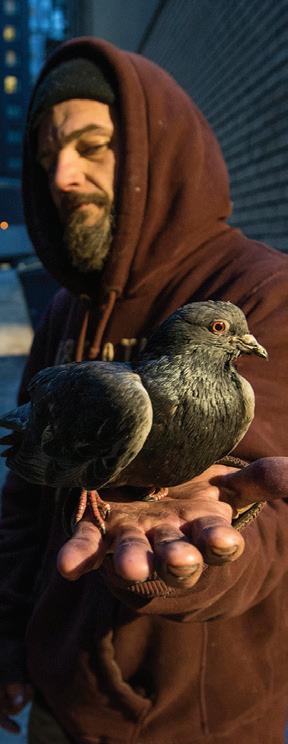













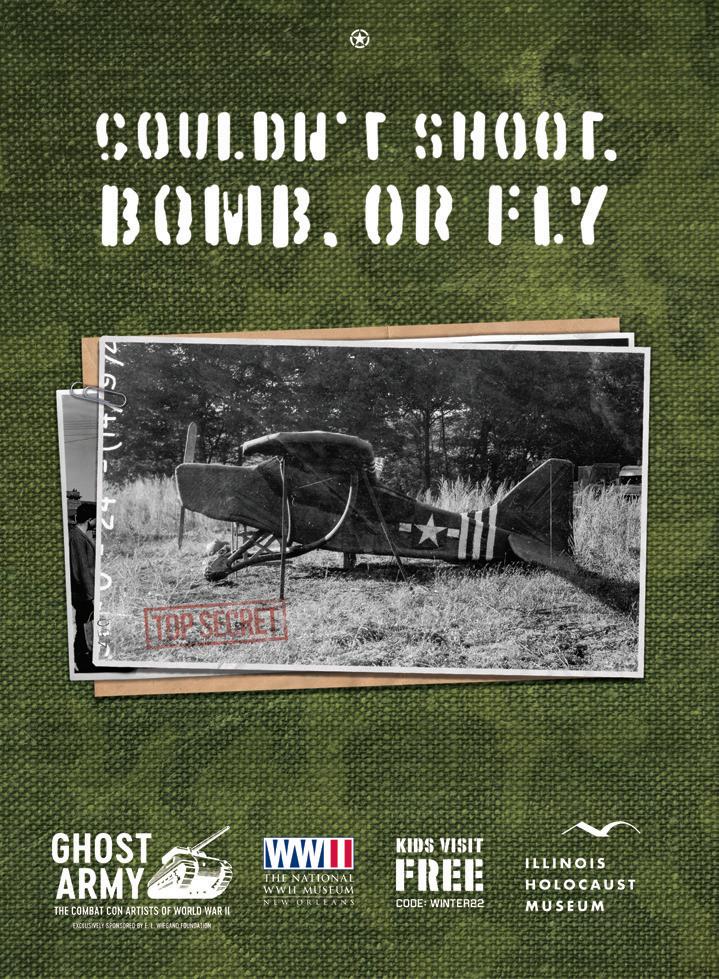











JUNE 23, 2022 - CHICAGO READER 19 The ReaderDaily Get our free daily newsletter delivered straight to your inbox Monday through Friday! Dive into our most recent stories and exclusive insights from our copublishers, editors, and staff writers. LLOYD DEGRANE chicagoreader.com /newsletters Enter to win! chicagoreader.com/contests
EIGHTH CONGRESSIONAL DISTRICT
Stark di erences
BY MRINALI DHEMBLA
Junaid Ahmed, a 45-year-old Indian American candidate for Illinois’s Eighth Congressional District, is posing a stiff primary challenge to incumbent Raja Krishnamoorthi, a Democrat who has held the seat for five years. This is Ahmed’s first electoral run.
Ahmed was born in Hyderabad, India, and his family moved to the U.S. when he was still a child, about 30 years ago. He has since lived in Chicago, spending most of his foundational years in Rogers Park. A few years ago, Ahmed moved to the Eighth District, where he lives with his wife and four children.
In an interview with the Reader , Ahmed shared vivid details about his first few years in America and talked about his working-class upbringing.
“My childhood has been quite, quite interesting. As a new kid on the block my dad used to have two jobs, sometimes a third job; same job, two shifts,” he said, recounting his early years in Chicago. “Growing up you either became a doctor, or an engineer, otherwise you’re no good,” he said, lightheartedly emphasizing all the American dreams his parents had for him. In 2000, Ahmed got a degree in computer science from DePaul University,
and from there went to corporate America to work at Accenture for seven years. In 2009, Ahmed earned an MBA from the University of Chicago, and then started his own technology consulting firm, SAKStech, in 2013.
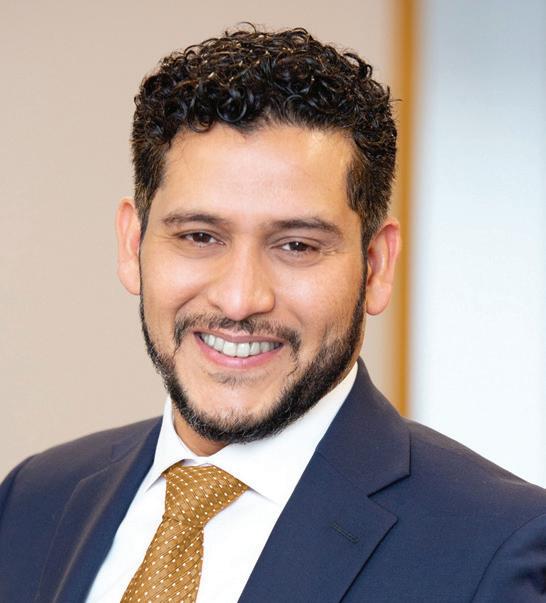
Ahmed said that “politics was never on the plate for him,” but he was inspired to get into public service by his parents, who always taught him to share and give back to the community.
In 2015, Ahmed volunteered for Krishnamoorthi’s first campaign for Congress.
“To be very honest, I was excited. And I was excited to see [Krishnamoorthi] . . . And maybe
he was a great guy back then, a fellow Brown brother running,” he said.
Since then, Ahmed’s politics have continued to evolve. He is a staunch supporter of raising the minimum wage and enacting Medicare for All. “In the wealthiest nation on the planet, everyone should be able to thrive,” he said.
In 2020, Ahmed was organizing rallies in support of universal healthcare and urging representatives such as Krishnamoorthi to stop taking money from the for-profit healthcare industry when he met Elisa Devlin, now his deputy campaign manager. Devlin said that she was moved by Bernie Sanders’s campaign, and when that ended she wanted to continue being involved in politics. She started an organization called Schaumburg Area Progressives, a platform that she runs to this day. It was during her involvement with SAP that Devlin crossed paths with Ahmed.
“I saw the same qualities [in Ahmed] that really drew me to Bernie. That authenticity,” Devlin said.
According to Ahmed, Devlin had a huge role to play in pushing him to run for office. “Basically Elisa said, ‘Junaid, if you’re not the candidate, we think that there is no candidate in 2022,’” he said.
Both Krishnamoorthi and Ahmed are Indian Americans, but vary starkly in their views of religious politics in India. Ahmed is a practicing Muslim, while Krishnamoorthi identifies as Hindu, and has expressed support for the Rashtriya Swayamsevak Sangh (RSS), a rightwing paramilitary organization in India.
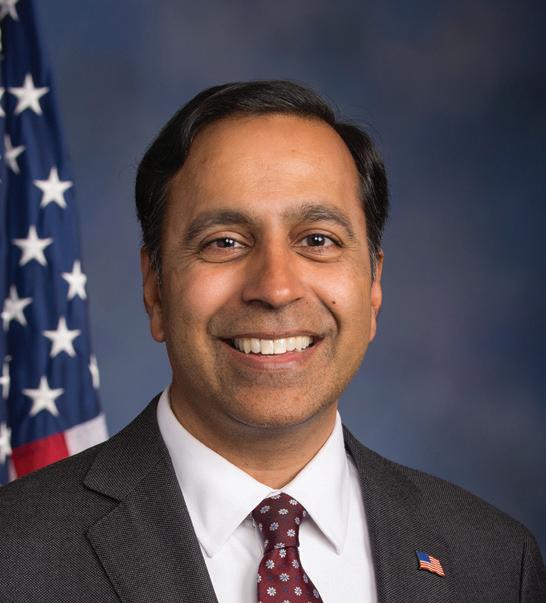
The RSS is a Hindu nationalist organization that promotes the creation of a homogenous Hindu homeland in India, and espouses the Hindutva ideology—a right-wing ideology that casts out and discriminates against non-Hindus as “foreign.” Current Indian Prime Minister Narendra Modi was a former member of the RSS, and joined the Bharatiya Janata Party, which draws its core political values from RSS, as an RSS organizer in 1985.
Modi was elected prime minister in 2014. During his administration, India has fallen on the religious freedom, press freedom, and hunger index, and has seen a rise in violence against Muslims.
In 2005, the U.S. government revoked Modi’s
20 CHICAGO READER - JUNE 23, 2022 ll
Raja Krishnamoorthi (le ) and challenger Junaid Ahmed PHOTOS COURTESY THE CANDIDATES
ILLINOIS
Indian American Muslim challenger Junaid Ahmed is running to unseat Raja Krishnamoorthi, who has ties to Hindu nationalist groups.
2022 ELECTIONS SPECIAL
COVERAGE
diplomatic visa for failing to control anti-Muslim riots in 2002 in Gujarat, the Indian state he was head of at the time. In 2014, Modi’s government passed a Citizenship Amendment Act that was widely derided as anti-Muslim, and has passed several other laws since then that have been similarly criticized. In January, Gregory Stanton, the founder and director of Genocide Watch, called the current systemic discrimination of minorities in India as an “impending genocide.”
During the 2019 Howdy Modi event—a grand reception for Modi in Houston—Krishnamoorthi delightedly shared the stage with Modi. He was the only elected Indian American politician who attended the event.
“Unfortunately, Raja chose to look the other way when a call for genocide is happening in India,” Ahmed said. “He chooses to still keep associating with these people who have openly enabled this genocide. He’s not even ashamed of it.”
According to Pieter Friedrich, a freelance journalist who does independent research on Hindutva and its associated links with American politicians, Krishnamoorthi extends his
support to right-wing politics in India because of financial interests. Friedrich called Krishnamoorthi “the RSS’s man” in Congress.
In the run-up to the 2016 race, Krishnamoorthi’s campaign accrued the highest funds among all House races across America. The Hindu American Political Action Committee (HAPAC) contributed $35,000 to his campaign in 2015.
The HAPAC’s stated mission is to ensure that the religious freedom and human rights of Hindus all over the world are preserved. It is linked to the Hindu American Foundation, which underpins the Modi government’s nationalist, allegedly anti-Muslim agenda.



“Breaking in is getting your foot in the door the first time,” Friedrich said. “That’s always the hardest. That’s the biggest hurdle. And so that initial financing from the earliest days, that’s particularly what [Krishnamoorthi] gained,” Friedrich said.
With more than $9 million in his campaign bank, Krishnamoorthi doesn’t necessarily need the financing, but he does need to avoid alienating his earliest and most influential supporters—the people who were crucial

to helping him get into Congress in the first place, Friedrich added.


Ahmed has raised just over $800,000 via a combination of individual and grassroots donations. In a debate last month, Ahmed promised to “never take a dime of corporate money” and vowed to expand campaign finance reform if elected.
Krishnamoorthi’s frequent donors include Bharat Barai, member of the Vishwa Hindu Parishad of America, the overseas branch of the VHP India, which in a way is a subset of the RSS. The RSS and VHP are part of the Sangh Parivar, a conglomerate of over a dozen Hindu nationalist organizations. In May, Barai was seen talking about a chapter he wrote about Indo-U.S. relations and Prime Minister Modi’s inspirational guidance to the diaspora in the book Modi @ 20—in which experts recount and praise Modi’s 20 years as an Indian statesman.
In 2018, the World Hindu Congress was held in Chicago. The event was organized by the VHPA. The same year, the CIA labeled the VHP as a “religious militant organization.”
In addition, the VHPA is known to be taking
active steps to “sa ronize,” that is, “Hinduize” South Asian history. When the VHPA received approximately $833,000 of U.S. federal COVID relief funds, many human rights activists criticized the grant, saying the organization had “Hindu supremacist” sentiments. An Al Jazeera reporter who pursued the story about the disbursement of COVID funds to rightwing Hindu organizations faced a subsequent lawsuit and death threats for his reportage.
The U.S. Department of State’s 2021 Country Reports of Human Rights lists a slew of violent acts committed against Muslims in India—including one by a member of the VHP, who was arrested for making an attempt to lynch a Muslim cattle trader who later died in police custody.
“I think that as far as that issue [fascism in India] goes, having an Indian American Muslim candidate challenge is crucial to exposing those fault lines in [Krishnamoorthi’s] character and in the ethics of his campaigns and and really holding his feet to the fire on this issue,” Friedrich said. v
JUNE 23, 2022 - CHICAGO READER 21
Food & Drink A weekly newsletter featuring exclusive new writing by our critic Mike Sula and the latest restaurant reviews, chef profiles, and more from our site. Hot off the grill every Friday. SANDY NOTO FOR CHICAGO READER chicagoreader.com/newsletters
@mdhembla
2022 ELECTIONS SPECIAL COVERAGE
CANDIDATE
retire coal plants.
Working at the Center on Halsted, I led a $1.6 million CDC HIV prevention grant. The MWRD is protecting the water for the citizens of Cook County, so it’s still an extension of protecting public health.
What does the MWRD do?
The Metropolitan Water Reclamation District is the agency that manages stormwater and wastewater. What the MWRD does is they take the water that leaves our home, they clean that water, and then they push it back out into [Lake Michigan]. That’s the essence of what the MWRD does: they protect the source of our drinking water.
They’re also the second-largest landowner in Cook County, so they manage public land. There’s a myriad of uses for that public land. They often lease much of it so that the taxpayers benefit from the revenue of those leases.
Testing the waters
Precious Brady-Davis hopes to make history as the first Black, openly transgender woman elected in Chicago.
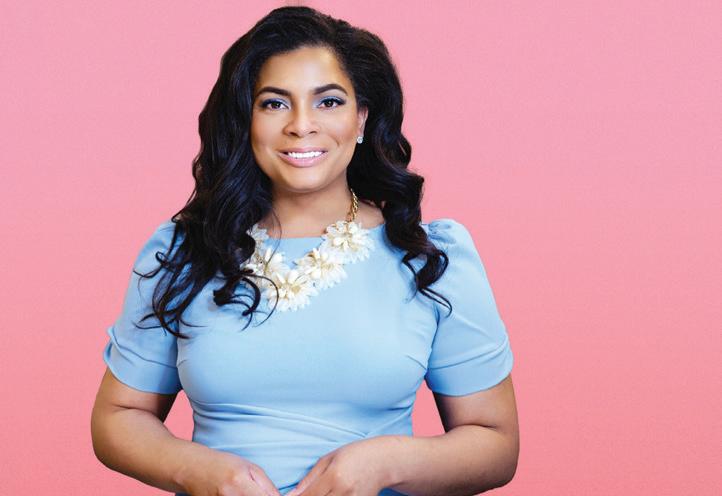 By KATIE PROUT
By KATIE PROUT
Precious Brady-Davis, who works as the Sierra Club’s regional communications director, is campaigning to be one of the nine commissioners of the Metropolitan Water Reclamation District, which manages stormwater mitigation and wastewater treatment for Cook County. Brady-Davis, who grew up in public housing in Nebraska and was the first openly transgender contestant on the reality show Say Yes to the Dress: Atlanta, published a memoir, I Have Always Been Me, in 2021. The Reader interviewed her by phone recently. Brady-Davis fielded questions while caring for her two-year-old daughter Zayn, who she and her transmasculine husband Myles Brady Davis are raising together in their Hyde Park home. This interview has been edited for clarity and length.
Katie Prout: Could you start by talking a bit about your background?
Brady-Davis: Absolutely. For over 15 years, I’ve worked in nonprofit management. I started working at Chicago’s Center on Halsted, where I was the youth outreach coordinator for several years. After that, I went to work at Columbia College, where I oversaw national diversity recruitment.
After 2016, with the election of Donald John Trump, I felt that I couldn’t just sit on the sidelines of history as we watched Trump take action to remove all of these environmental protections. I knew this was just the beginning, that more environmental rights and environmental regulations would be slashed. And so, I went to work at the Sierra Club, on a campaign called Beyond Coal that works to
The nine commissioners are the folks who run the agency. They run the district, they oversee the budget, they create policy.
Nonprofit management is not new to me. I come to nonprofit management with a great deal of diversity, equity, and inclusion experience. I come to this work with a great gaze of creativity. What would it look like to see installations across Chicago, collaborating with artists to collect rainwater to ease the burden on our sewers? We could fund artists, and we could also educate the public about climate change. What would it look like to have decorative barrels across Chicago that store rain?
When and how did you rst learn about the MWRD? What compelled you to try and join it?
I came to know about the MWRD because of Deb Shore. Deb Shore was a commissioner who served at the Metropolitan Water Reclamation District for 15 years. She was recently appointed by President Biden to be the Region Five EPA Administrator. She was also the first out lesbian, outside of a judge, who was elected in Cook County. I’ve long followed Deb’s career and have been inspired by her.
When I am elected, I will be the first Black trans woman elected in Chicago history. I’m also an environmentalist. I talk about having this history of diversity, equity, and inclusion: I see environmental justice as another diversity issue.
Why is diverse representation in public bodies important?
Far too often, I think the population being served isn’t actually reflected in the government, and often their needs don’t get met— particularly poor people, particularly people of color, people who are most impacted, you know, from climate change. I believe in inspiring the future, and particularly LGBTQ youth. We deserve to be in every sector of society, not just one. We have the right to sit in positions of power. We are qualified, we are our leaders. And I think [our election] helps change the stigma and the perception that LGBTQ folks, and trans people in particular, have faced.
How does MWRD interact with residents’ daily lives?
So let’s say that Lake Michigan is flooding, and it’s flooding your basement. The MWRD is responsible for that, but nothing that has to do with your water bill, and nothing to do with the water department: that is local and on the city. The flooding is on the county. If you’re having issues with stormwater around your home, the MWRD is responsible for that. You would reach out to one of the nine commissioners who are elected countywide.
How can folks learn more about the MWRD?
The MWRD has two in-person board meetings [a month]. They’re also online: folks can watch them virtually. Those meetings are open to the public, [but] I’d like to increase access to them as a commissioner. Currently, they happen at 10:30 AM. That’s not really accessible for the general public, for working-class people. So I think it’d be great to have more meetings at night.
The MWRD is also on social media. Every day, they do a historical photo of the agency [on Instagram]. There’s lots of cool details. I follow it, it’s very informative.
the
I think in Cook County, there’s a myriad of o ces that you could say that about. I know that in this race in particular, there are folks who are standing behind certain candidates in this race, because they’ve circulated petitions for them. They actually don’t have qualified
22 CHICAGO READER - JUNE 23, 2022 ll
Is
MWRD an agency that can launch political careers in Cook County?
Precious Brady-Davis COURTESY OF THE
METROPOLITAIN WATER RECLAMATION DISTRICT
2022 ELECTIONS SPECIAL COVERAGE
JUNE 23, 2022 - CHICAGO READER 23
experiences. I find that troubling and disheartening, and I don’t think it serves the residents of Cook County.
I think we need folks who understand the need to protect Lake Michigan and to protect the residents of our city. This is about public health. I mean, we’re seeing people across Cook County having to boil their water, like in Dixmoor. There are actual issues with the water. We need to actually advocate for people of color. When people of color make insurance claims on flooding, they often don’t become resolved. We need actual folks who are committed, solid public servants, and not people who just want to get a jumpstart to their political careers.
How is water quality a public health issue?


[Recreationally,] folks across Cook County want to enjoy the water. Folks want to enjoy the Little Calumet River, folks want to enjoy the Chicago River without getting
contaminated.
If contaminants got into our water, it would make the water unsafe to drink. We absolutely saw, catastrophically, what happens when we don’t have solid leadership in positions of folks who care for our water. We saw what happened in Flint. The same thing could happen if we didn’t have solid leadership at the Metropolitan Water Reclamation District, and didn’t continue to have that leadership.
What are your top, hit-theground-running initiatives you’d be championing at the MWRD?







First, I want to prioritize environmental justice projects that advance community resilience. How can we support local communities? That would be one idea, creating a rain barrel project in a place like Englewood. Second, how do we increase and advance green infrastructure across Chicago? Third, engaging the stakeholders and increasing diversity in terms of people who are engaged in the work.

So [my priorities are] advancing communi-










2022 ELECTIONS SPECIAL COVERAGE
ty projects and community resilience, centering environmental justice, increasing green infrastructure, and then advancing community outreach, in particular to young people in marginalized communities. I think the MWRD can do violence prevention. They can engage young people in programs about the water reclamation district, and serve as an incubator to the trades, educating folks through community programs and community conversations.
How could MWRD work on violence prevention?
What would it be like to take marginalized young people from the south and west sides on a tour of one of the plants? What would it look like to have environmental programming for young people specifically? There’s a myriad of green spaces around Chicago, you know. We’d love to immerse young people in nature, in and outside of their communities across our great cities. I think that there’s more work that we can do, that I would champion as a commissioner. I would champion creating a task
force to engage on environmental issues, and violence prevention should be one of those tenants.
The commissioners, the mayor, and the City Council should come together. Nothing in this conversation [about violence prevention] has come up about green space. There’s this current conversation in Chicago about where young people should be, and around public safety. And I think that nature should be in that equation.
Nature is a place where so many people find refuge, where they find relaxation, where they can experience centering. There’s more room for that, like community gardens where young people can help plant green infrastructure in their communities. If we want to actually create impact in communities, and we want to broaden the awareness of what the Metropolitan Water Reclamation does, then we need to do innovative things that actually tangibly a ect people’s lives. That’s work that I’m interested in doing. v
@katie_prout
24 CHICAGO READER - JUNE 23, 2022 ll
continued from 22 CSO.ORG/MOVIES © 1983 & TM Lucasfilm Ltd. Presentation licensed by Disney Concerts in association with 20th Century FoxFilm Corp, Lucasfilm and Warner/Chappell Music. © All rights reserved.
JUNE 30 – JULY 2 Star Wars: Return of the Jedi in Concert is partially supported by a grant from the Illinois Arts Council Agency. Star Wars: Return of the Jedi in Concert is generously sponsored by Megan and Steve Shebik.
Richard Kaufman conductor
ILLINOIS SEVENTH CONGRESSIONAL DISTRICT
Second time’s the charm?
Gun-violence advocate Kina Collins takes another run at Danny Davis.
By JIM DALEY
Collins COURTESY OF THE CANDIDATE
strike at the heart of the root cause of what we’re experiencing here in Chicago.
I think that it’s time for Chicago’s congressional delegation to push back on conservative talking points that say Chicago is just an epicenter of violence. We don’t have a single gun store or a shooting range in the city. Chicago is not spreading gun violence across the country. However, red states are spreading gun violence to the city of Chicago. Sixty percent of the guns recovered in crimes in Chicago can be linked back to other states, primarily Indiana, Wisconsin, and Mississippi. The other 40 percent of guns can be linked back to gun shops in the suburbs of Illinois.
for mostly nonviolent o enses, we know that poverty is a policy choice that’s being made. That $100 million should be invested in true prevention, and that prevention looks like housing, education, and a fortified and strong local economy.
What are some issues that resonate with a wealthy white Gold Coast voter as much as a young Black man in Austin?
Kina Collins grew up on the west side in Austin, and began organizing around gun violence while she was a student at Rufus M. Hitch Elementary and Von Steuben High School. In 2015, she began organizing with the protest movement that coalesced around the murder of 17-year-old Laquan McDonald by then-Chicago police officer Jason Van Dyke. Collins also worked with the Center for American Progress and Physicians for a National Health Program. In 2020, she challenged U.S. representative Danny K. Davis, who has represented the Illinois Seventh District since 1997, and garnered 14 percent of the vote in a four-way race that Davis won handily. Collins is running again, with gun violence prevention, health-care access, and criminal justice reform central to her campaign. This interview has been edited for length and clarity.
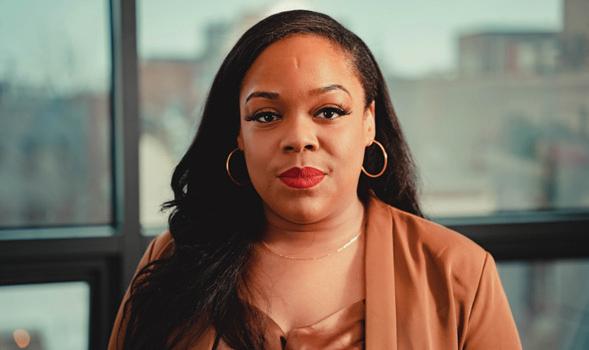
Jim Daley: What have you been working on since the 2020 race?
Kina Collins: I became the executive director for one of the largest gun-violence prevention nonprofits in the state. It was formerly known as the Illinois Council Against Handgun Violence, and is now One Aim Illinois. It has a statewide grassroots coalition, and we were pushing for things like removing firearms from the homes of domestic abusers and the gun dealer certification and licensing program here in Illinois. Because of that work, I was tapped by the Biden-Harris administration to serve as a stakeholder for the Gun Violence Prevention Task Force.
The pandemic exposed a lot of the issues that progressives have been fighting for around wage equity, access to health care, and listening to survivors of domestic violence and sexual assault. So a lot of my time since the last primary has been doing mutual aid across the district, checking in with folks to see if there’s any way we can plug them into resources.
My stance is very clear: I support the Second Amendment and the right to legally obtain and own guns. However, my job as a gun-violence prevention advocate is to keep guns out of the hands of people who can harm themselves and harm the public. One of the ways that we’ve been able to do that is through red flag laws, and there’s overwhelming public support for universal background checks. So the messaging is the same.
Why are gun violence, access to health care, and criminal justice reform all part of your platform?
We don’t live single-issue lives—a lot of this stu is interconnected. I think that our district serves as a microcosm of the United States. We have the Gold Coast and we have the west side of Chicago; we have the western suburbs and the south side. When we look at the disparate impacts and outcomes that happen across the district, we have the wealthiest of the wealthy and some of the most working-class communities in our district. All of them are interconnected.
From Westchester all the way to West Englewood, everybody is concerned about public safety and crime. They’re concerned about gun violence. And they’re concerned about very urgent crises, like climate change, a livable wage, and student loan debt.
But people want to know, can we elect a representative who is not going to take corporate PAC money from companies like BP, Exxon Mobil, and Amazon, which are not geared towards the upliftment and the betterment of our district? And the answer is yes. We’ve been able to out-fundraise the incumbent without taking a dime of corporate PAC money. And that makes it easy for me to walk into Congress with a clear moral authority to hold major corporations to account.
How is this race di erent from 2020?
Nationally, Chicago has consistently been used as a political punching bag around this issue, but we’re not talking about the root causes. We deal with everyday gun violence here in the city of Chicago. And the root cause of everyday gun violence is poverty. Until we begin to address structural violence, which includes public school shutdowns, lead in our piping, abandoned buildings, vacant lots, food deserts, and a lack of jobs in these areas, we can’t
I n Chicago, practically all of our mental health services have been eviscerated. When mass shootings happen and the talking point is that the shooter had a mental health issue, I take umbrage with that, because people who suffer from mental illness are stigmatized around the issue of violence, when actually those who su er from mental illness experience more violence than they commit. And if that is the case, and that’s your talking point, why do we not have universal health care as a preventative measure for that?
The more brushes with the law that you have, the more likely you are to become a homicide victim. In a district where we see places like Austin, and $100 million being spent by our government to incarcerate adults
The pandemic changed a lot of things. Last time, I put a very strong focus on Medicare for All and health care, and it just so happened that our primary was the week before the entire globe basically shut down. And after that happened, I heard from constituents from all across the district who said, “Kina, you were talking about this, you were talking about full access to health care,” and how these issues play a role. So I think that the pandemic really validated me and a lot of voters’ eyes.
A lso, we’ve been able to consolidate the progressive space here in the district and on the national level. And I think that we really make the case not just to progressives, but to everyday people across this district that failed status-quo leadership and the same things that we’ve been doing are not going to cut it. We have two options: we can vote for the district as it currently stands, or we can fight for the district that we should have. And I think we’re gonna prevail on June 28. v
JUNE 23, 2022 - CHICAGO READER 25
Kina
2022
SPECIAL COVERAGE
ELECTIONS
Why do you think we’re in a new moment for gun-violence survivors and advocates from Chicago to be elected to Congress?
@jimdaleywrites
Assessing the assessor
By KELLY GARCIA
The heated race for Cook County Assessor is a case study on Chicago-style politics. Fritz Kaegi, the reform-minded incumbent who was left with a mess to clean up by his predecessor, is facing a challenge by Kari Steele, a politically connected commissioner of the Metropolitan Water Reclamation District, which manages wastewater treatment and floodwater mitigation. (Steele’s campaign did not respond to repeated requests for an interview.)
The assessor’s job is not one most people dream of, unless you get a kick out of determining the value of close to two million parcels of land in Cook County. Add to that all
the repairs needed to fix a broken system left behind by Joe Berrios who hired his relatives to work for the board, accepted excessive donations from property-tax appeals lawyers, and disproportionately taxed homeowners in poor communities over rich and politically connected developers.
That’s the system Kaegi says he inherited back in 2018 after Berrios’s ouster. He sat down with the Reader to talk about what changes he’s made since and to explain why Cook County voters should give him another chance.
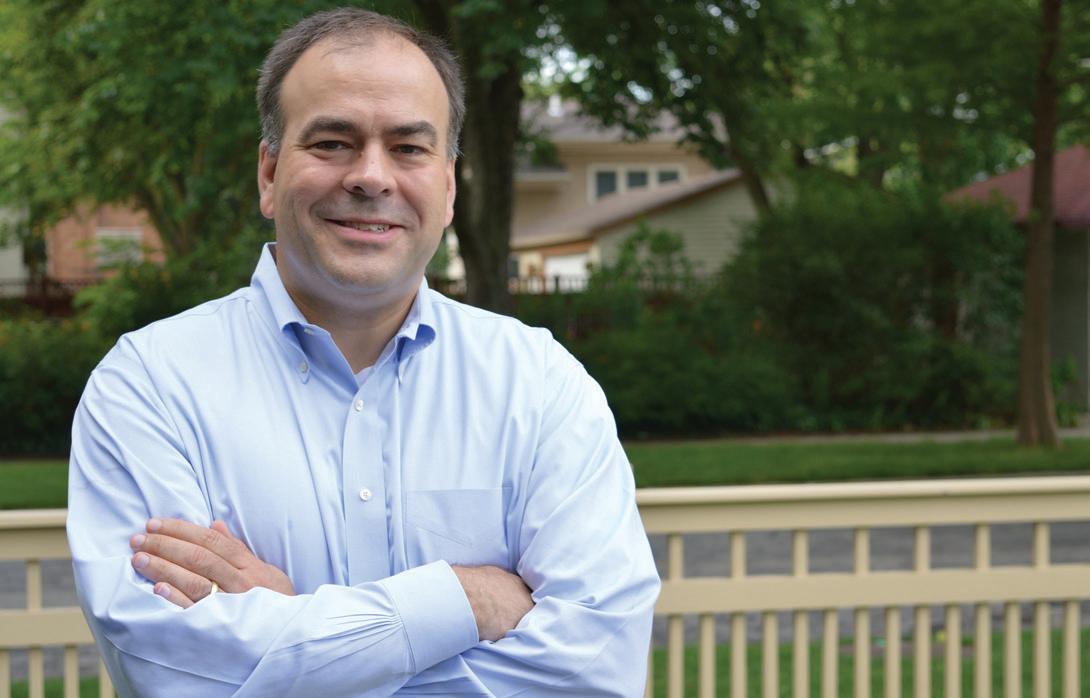
This interview has been edited for clarity and length.
Kelly Garcia: What does the Cook County assessor do?
Fritz Kaegi: It provides the way that we’ve split up the bill for the cost of government around here. In Chicago, there’s about somewhere between $7.25 and $7.5 billion of property taxes that have to be collected every year.
We figure out how we split that bill amongst all the people who own property in Cook County. So it’s really an o ce that’s about equity. How we split that bill is driven by our estimates of the market value of each person’s property. And the key is that the biggest building owners are like the person
at a dinner who ordered a 40-ounce steak and a lot of sides, and we compare them with the person who just ordered an appetizer or a side salad. How are you splitting up the bill amongst them?
The key to evaluating how an assessor is doing is making sure that you’re estimating the market value of all of those properties fairly and accurately, without bias or favoritism, so that you’re not moving the burden from one group to another. That’s the most important thing that this o ce does.
Residents from Pilsen and Little Village often tell me they’re facing a burden of higher property taxes, which is pricing them out of the community. How are you addressing this?
I think the greatest inequity in the system is that under my predecessor and for years before that, big buildings were undervalued, so that people who lived in Pilsen and Little Village were picking up the tab for them.
The gold standard in our industry looked at commercial transactions that happened in 2018, [which was] the year before we came into o ce. It found countywide that commercial properties were 40 percent undervalued, and in Chicago, it was 50 percent, and that undervaluation got bigger the bigger the building got. So basically, small commercial properties in places like Pilsen and Little Village tended to be valued more closely to the mark, and the biggest properties were hugely undervalued. So those little commercial properties were picking up the tab for the big buildings downtown, just like homeowners were in Pilsen and Little Village.
Now, I think there’s another part that I have less control over that people might want to blame me for, which is when gentrification drives up the values of properties. And eventually the assessment system catches up if we’re doing our job, because you don’t want to systematically undervalue some properties because then you’d be passing on the tab to others, to people who live in neighborhoods where prices have not been going up.
But we’re not an engine of gentrification, we just catch up to the gentrification that’s already happened. What we can do to mit-
26 CHICAGO READER - JUNE 23, 2022 ll
Cook County assessor Fritz Kaegi COURTESY OF THE CANDIDATE
COOK COUNTY ASSESSOR’S OFFICE
Fritz Kaegi discusses his role in reforming an office known for patronage and favoritism.
2022 ELECTIONS SPECIAL COVERAGE
igate that is make sure everyone gets their [property tax] exemption. We’ve really made a big push for seniors who are over 65 whose income is under $65,000 a year. They can get the senior freeze, which basically locks your assessment in place.
The omnibus affordable-housing bill is going into place this year, and it’s going to be incentivizing the renovation and construction of a ordable housing that’s tied to people’s incomes, rather than market rents. Because gentrification really puts a lot of pressure on renters.
What have you accomplished in your rst term?




Last year was the first time in close to a decade that the average homeowner in Chicago saw their property tax bill fall. Last year it was a 1 percent reduction in homeowners’ share of the burden, and now we’re talking about 9 percent with this reassessment. [Editor’s note: one-third of properties in Cook County have their taxes reassessed each year; in 2021, properties in Chicago were that third.]
We’re also proud of the fact that countywide, homeowners property taxes were up just 1 percent each of the last two years, which really throttled back much greater growth than had been seen over the previous two decades.
In the fi rst year our assessments were sent out, the gold standard in our field found they were within industry standards for accuracy and equity for the fi rst time ever in the history of our o ce.
We also replaced the 40-year-old computer program that was the backbone to our system. In 2020, we put in place an online appeals system and online exemptions system. In 2021, we replaced the backbone of the system; that has allowed other gains such as automatic renewal of the exemption for seniors.
We are winning awards for this stu . This office did not win awards before. We won awards from the International Association of Assessing O cers for our public outreach during the pandemic. We won awards from the National Association of Counties for the digital tools that we created.
For the longest time, this office was a source of mistrust and inequality and corruption, because it was used as a platform for favoritism, for nepotism, and for punishments for political enemies. On day one, I put in place an ethics order that forbids conflict of interest and requires extensive disclosures by our employees. It makes me the fi rst assessor in the history of this o ce not to take donations from property tax appeals lawyers and appraisers who practice before us.

Why are you running for reelection?
The work that we’re doing is going to be keeping more resources in the neighborhoods with average people, and we can continue to make progress on that. Keeping money in the neighborhoods where it never should have been leaving is so important to not only the health of our neighborhoods, but also for people’s livelihoods and for their incomes.
That’s why it’s meaningful, and we cannot go back to the way it was. This [2021] reassessment in Chicago is on track to be keeping more than $600 million a year in our neighborhoods. But that could all be reversed if you bring back favoritism to this o ce. The enemies of the reforms that I’ve been putting into place are backing my opponent—the club of big-building owners, the tax lawyers, people who worked for Joe Berrios, those folks, they want this o ce broken again, and we cannot go back to that. There’s too much at stake.
The work that we’ve done has only been made possible by the public mandate. They were the ones who made it possible. That mandate that brought me into this o ce, and I’ve been carrying forward that message. And that is how we’re bringing about change: we go to every room, we talk to everybody, even the people who might not have been with us to carry this forward, and we’re winning people over. And with the public’s backing, we’ll be able to do that again for four more years. v
JUNE 23, 2022 - CHICAGO READER 27
@_KellyGarcia__ 2022 ELECTIONS SPECIAL COVERAGE Don’t miss four floors of captivating new exhibitions in the uniquely intimate space of Wrightwood 659. EXTENDED BY POPULAR DEMAND! THRU JULY 30 wrightwood659.org IMAGE CREDIT: Moga: Modern Women & Daughters in 1930s Japan Miwa Toshio, Playing in the Water 65 x 57 in, Private Collection of Naomi Pollock and David Sneider, USA. SUPPORT FOR THESE EXHIBITIONS IS PROVIDED BY ALPHAWOOD FOUNDATION CHICAGO INSPIRED. POWERFUL. TRANSPORTING. MOGA : Modern Women & Daughters in 1930s Japan
Eye on the Board of Review
A look at Cook County’s property tax appeals board
By KELLY GARCIA
Front lawns crowded with campaign yard signs and TV commercial breaks flooded with attack ads can only mean one thing: primary elections are around the corner. For Cook County voters, that means a hefty ballot that includes the sheri , dozens of judges, the most expensive governor’s race in Illinois history, and more.
Often overlooked is the race for Cook County Board of Review. I don’t mean the more high-profi le Board of Commissioners, though all 17 seats for that are up for election, too. I’m talking about the county’s three-member property tax appeals board. All three seats are up for election this year, but unless you own a few properties on Michigan Avenue, you probably didn’t know that.
The Board of Review is easily one of the least understood bodies of government in Cook County. Every year, homeowners, landlords, and business owners receive an assessment, or estimated value, of their property from the Cook County Assessor’s o ce that ultimately determines their property tax bill. If you’re mad about paying higher property taxes because your assessment increased,
the Board is the independent body you can appeal to.
Every county in the state has a property tax appeals board, usually appointed by the assessor or county board. In Cook County, board members are elected by the public.
Commissioners are elected from three separate districts equal in population. They serve four-year terms while alternating a two-year term. Unlike other jurisdictions, Cook County commissioners are not required to hold a real estate law license.
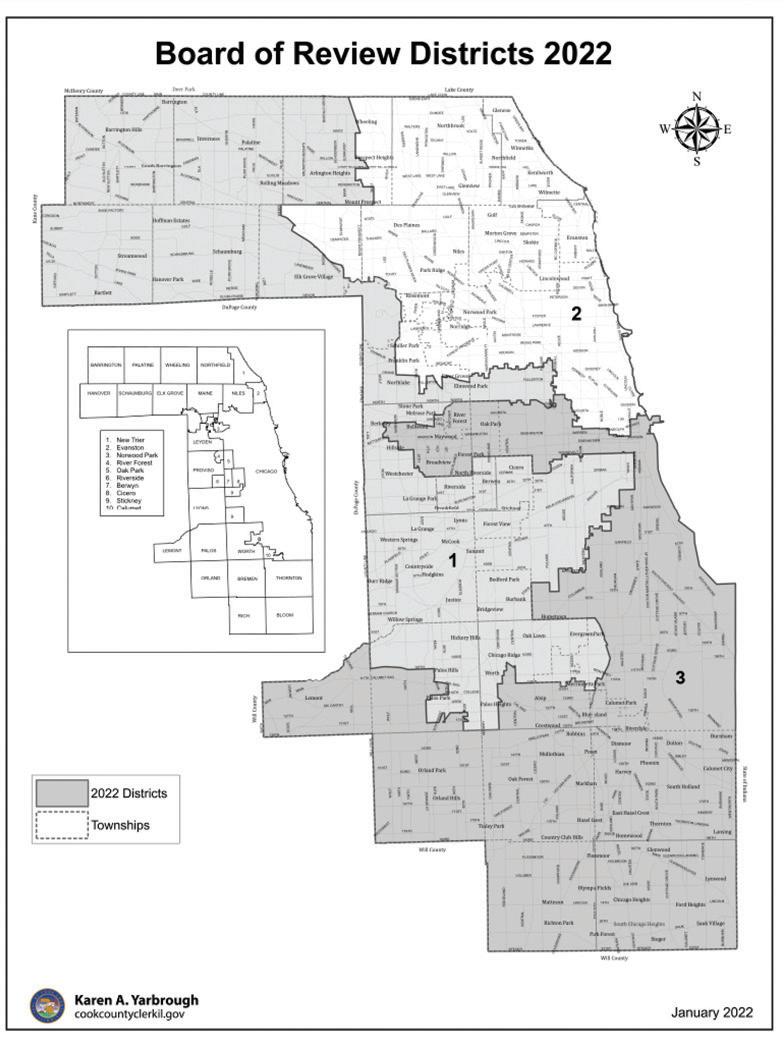
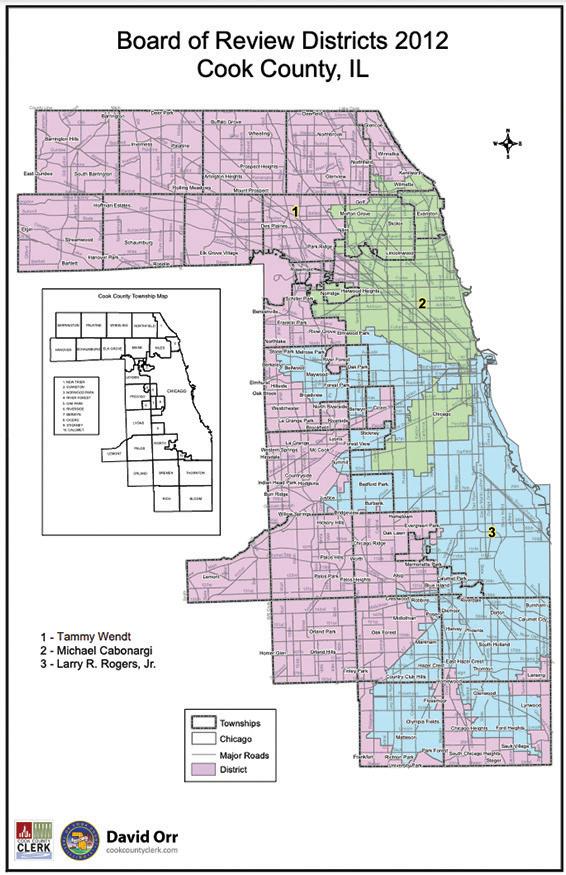
Cook County homeowners can fi le an online appeal at the Board’s website. Unless you’re a commercial property owner, you don’t need an attorney to do so. All three commissioners review each appeal, and if two out of the three agree that a reduction is warranted, then the property assessment is lowered.
If a property owner is unhappy with the Board’s decision, they can also fi le an appeal with the state’s property tax appeal board or fi le a lawsuit through the Circuit Court of Cook County.
The problem is that not a lot of homeowners know they can appeal their property taxes.
Take Irma Morales for example. She’s been a homeowner in Little Village for more than 20 years. When the county reassessed property values last year, she says homeowners in her neighborhood were the last to fi nd out that they could appeal their property taxes with the assessor and she didn’t know about the independent appeal process through the Board of Review.
“I couldn’t even figure out how to fill out the forms,” said Morales, who primarily speaks Spanish.
Únete la Villita, a community organization Morales cofounded, staged a protest along with other community groups outside the assessor’s office last summer to express concerns over high property taxes that they feared would displace small business owners and longtime residents.
Moises Moreno, executive director of Pilsen Alliance, told the Reader he and his wife could no longer a ord to live in Pilsen, due in part to high property taxes. “We’re
28 CHICAGO READER - JUNE 23, 2022 ll
Cook County’s Board of Review districts were redrawn in 2022. BOARD OF REVIEW
COOK
UNCOVERED
COUNTY
2022 ELECTIONS SPECIAL COVERAGE
trying not to get taxed out of the city,” he said. “I know there are families, homeowners, and small business owners whose assessments have gone up astronomically and have to decide between selling their house or risk losing it.”
Moreno says Pilsen Alliance helps homeowners appeal their taxes through the assessor’s o ce, but that they can only do so much. Like Morales, he was unfamiliar with the Board of Review. He says the appeal process is a Band-Aid solution to unfair property assessments that benefit real estate developers at the expense of longtime residents.
“I think what folks are really asking for is reform at the state level,” he said.
Some people are more familiar with the Board of Review than others. Take Alderperson Ed Burke (14th Ward), who’s currently facing federal corruption charges. Before the FBI raided his o ce in 2019, he was a partner at a law fi rm specializing in property tax appeals. His clients included big corporations such as AT&T, Walgreens, and ComEd.
According to a 2017 investigation by the
Tribune and ProPublica, Burke successfully knocked $865 million o of his clients’ property tax bills between 2011 and 2016. When property taxes—the main source of revenue for schools, parks, and police—are reduced for one taxpayer, another, like Morales, has to pick up the tab.
For decades, former Illinois House of Representatives speaker Michael Madigan was similarly banking on property tax appeals. His law fi rm, Madigan and Getzendanner, has dominated the property tax appeals game for years. Madigan is still a partner at the fi rm and is currently the subject of a federal investigation into an alleged bribery scheme involving ComEd.
Southwest-side neighborhoods like Pilsen and Little Village are in the district represented by Board of Review commissioner Michael Cabonargi. He admits it’s a challenge to ensure everyone in the county has access to an appeal process that is independent of the assessor’s o ce.
According to data provided by the Board of Review, homeowners on the south and west
sides are less likely to appeal their property taxes than homeowners on the north and northwest sides. Cabonargi says language and Internet access can be barriers for homeowners trying to appeal, adding that his o ce does extensive outreach to areas in his district.
Last year, the Illinois General Assembly redrew the district boundaries for the Cook County Board of Review (it’s required to do so every ten years), meaning all current board members are up for reelection. In an e ort to preserve minority representation on the board, the fi rst district boundaries were redrawn to include predominantly Latinx Chicago wards and suburbs such as Cicero, Berwyn, and Hanover Park.
Shortly after the new map was introduced, 12th Ward alderperson George Cardenas announced he was running for the Board of Review to unseat the fi rst district incumbent Tammy Wendt. The new boundaries for the first district would include Little Village, Brighton Park, McKinley Park—neighborhoods Cardenas has represented as alderper-
son for 19 years.
But Irma Morales and Moises Moreno say the Board of Review is just a power grab for Cardenas.
“Look at his record,” Moreno says. “Look at the donations he’s taking. Is he friendly with developers? Because developers are the ones who don’t want the change we’re asking for, which is a fair property tax assessment.”
Since 2003, Cardenas has accepted donations from dozens of real estate developers. Among his biggest donors are Pacific Star Capital CEO Aria Mehrabi, who has given him $25,000, and Bertco Development, which has donated $16,000.
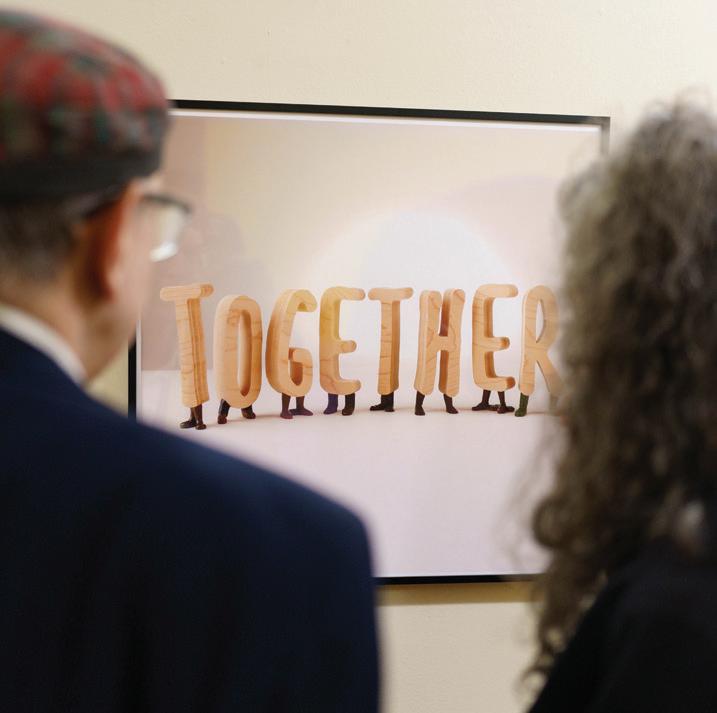
Cardenas did not respond to our request for comment.
The Illinois primary elections are on June 28, 2022. The general election will be held on November 8. Election information can be found on the Cook County Clerk’s website at cookcountyclerkil.gov/ service/2022-info-candidates. v
@_KellyGarcia__
JUNE 23, 2022 - CHICAGO READER 29
Artist Series Exhibitions Free & Open to the Public Featuring 80+ Chicago Artists Columbus Park Field House, 500 S Central Ave Rowan Park Field House, 11546 S Ave L Kennedy–King College, 740 W 63rd St chicago.gov/vaxchiart
Design Museum of Chicago
POLITICS
Political rift opens on the southwest side
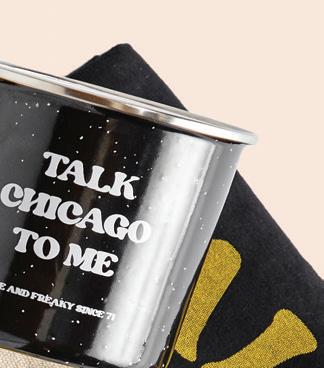
 By KELLY GARCIA
By KELLY GARCIA
Apolitical battle is emerging between candidates running to represent the southwest side in Springfield. State senator Celina Villanueva—a vocal leader for immigrants’ rights—is being challenged by Pilsen resident and first-time candidate Javier Yañez.

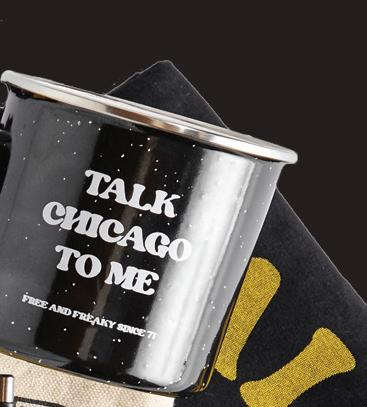
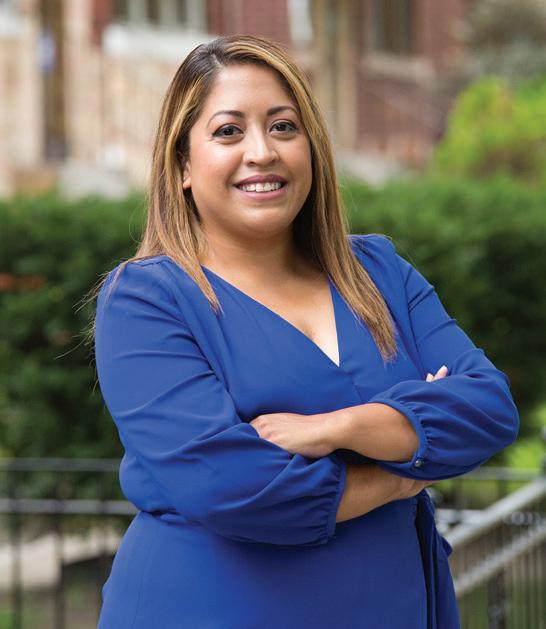
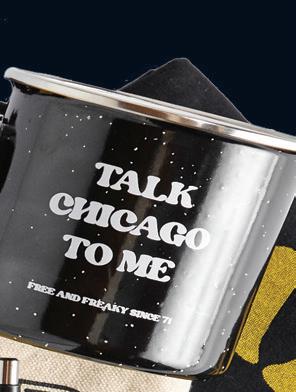


In early March, Villanueva was invited to speak about her campaign at a meeting of the 25th Ward Independent Political Organization (IPO) in an e ort to win their endorsement. Sources told the Reader that IPO members were not satisfied with some of her responses.
The following morning, Yañez—himself
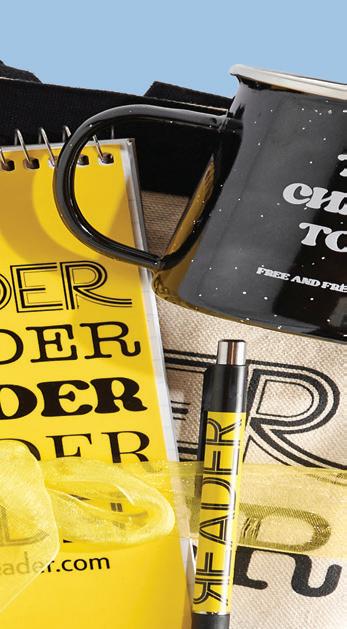
a member of the 25th Ward IPO—launched his campaign for state senate. He was able to get enough petition signatures to get on the ballot by the March 14 deadline for established parties. Yañez is 25th Ward alderperson Byron Sigcho-Lopez’s chief of staff; Sigcho-Lopez denied encouraging him to run against Villanueva.

Yañez was born and raised in Pilsen and was elected to Orozco Community Academy’s Local School Council in 2020 as a community representative, but will not be seeking reelection to the LSC. Yañez says that if he’s elected to the state senate, he wants to tackle issues related to public safety and economic development.
Villanueva, a Little Village resident who represents the 11th District in the General Assembly, is running for reelection in the newly drawn 12th District, which now includes Pilsen, Bridgeport, and Chinatown, in addition to Little Village, Brighton Park, and McKinley Park.
“I believe the 12th District deserves independent, accountable, and elected leadership and that’s a big part of why I’m running,” Yañez said.
His primary challenge reveals growing friction among progressive Latinos on the southwest side. Villanueva is a close ally to Chuy García, a long-time community activist who has represented the area for decades as an alderperson, state senator, Cook County commissioner, and now U.S. congressman.

García’s progressive coalition on the southwest side is expanding amid a power vacuum created by the federal indictment of the oncemost powerful Democrat in the state, former house speaker Michael J. Madigan.

García endorsed Villanueva in the state senate race. Yañez previously worked as an aide to García when the congressman was a Cook County Board commissioner.
The General Assembly is divided into two legislative bodies, with 59 members in the state senate and 118 in the house of representatives. Both groups work closely with the governor to pass legislation and decide how your tax dollars are spent.
In 2018, local party leaders appointed Villanueva to fi ll a vacancy in the house, and she kept her seat in the following election. She was appointed to the senate in 2020 after former state senator Martin Sandoval resigned amid a corruption probe.
Villanueva has been a vocal leader for immigrant workers’ rights. Earlier this year, she introduced a bill that would establish stronger penalties against employers who violate workers’ rights to a 24-hour rest day each week. Recently, Villanueva introduced legislation that would allow noncitizens to vote in school board elections across the state.
“I’m somebody that values community and the belief that we need to fight to have our voices heard and that’s why I’m running for reelection,” Villanueva said. “I feel like I have a long list of accomplishments and I still have a lot more to do.”
The 2022 Illinois primary is on June 28. The general election is on November 8. v
JUNE 23, 2022 ll
State senator Celina Villanueva PHOTO COURTESY OF CANDIDATE
State senator Celina Villanueva faces a primary challenge from Byron SigchoLopez’s chief of staff.
2022
REP THE READER!
ELECTIONS SPECIAL COVERAGE
store.chicagoreader.com
@_KellyGarcia__
Se abre una grieta política en el lado suroeste
La senadora estatal Celina Villanueva se enfrenta a un desa o en las elecciones primarias por parte del jefe de personal de Byron Sigcho-López
Por KELLY GARCIA
Una batalla política surge entre los candidatos que se postulan para representar el lado suroeste de Chicago en Springfield. La senadora estatal Celina Villanueva - una líder que ha defendido los derechos de inmigrantes - se enfrenta a Javier Yáñez, un residente de Pilsen y candidato por primera vez.
Al principio de marzo, Villanueva fue invitada a hablar sobre su campaña en una reunión de los miembros de la Organización Política Independiente (IPO, por sus siglas en inglés) del distrito 25 en un esfuerzo para obtener su aprobación. Algunas fuentes han informado al Reader que miembros del IPO no estaban satisfechos con algunas de las respuestas de Villanueva.
Al día siguiente, Yáñez - quien también es un miembro del IPO del distrito 25 - lanzó su campaña para el senado estatal. Consiguió obtener
las firmas de petición apropiadas para entrar en la boleta electoral antes de la fecha límite del 14 de marzo para los partidos establecidos. Yáñez es el jefe de personal del concejal del distrito 25, Byron Sigcho-Lopez, quien negó haber alentado a Yañez en la campaña contra Villanueva.
Yáñez nació y fue criado en Pilsen. Fue elegido para el Consejo Escolar Local de Orozco Community Academy en 2020 como representante de la comunidad, pero no buscará reelección. Yáñez dice que si es elegido al Senado Estatal, quiere abordar temas relacionados con la seguridad pública y el desarrollo económico.
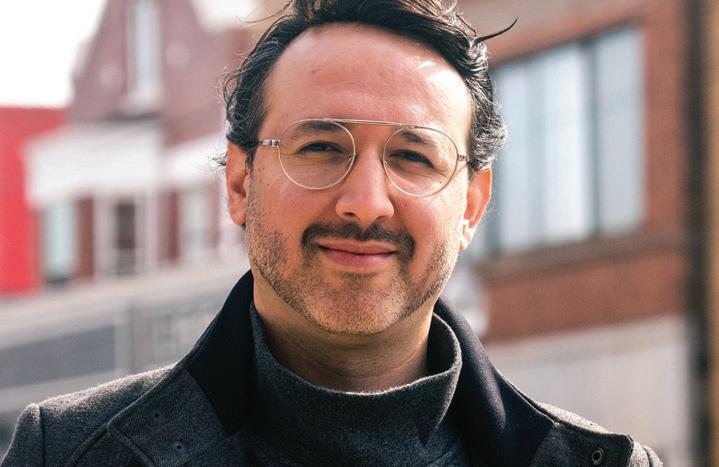
Villanueva, una residente de La Villita, que representa el distrito 11 en la Asamblea General, se presenta a la reelección en el nuevo distrito 12 que ahora incluye Pilsen, Bridgeport y Chinatown, además de La Villita, Brighton Park y McKinley Park.
Javier Yañez CORTESÍA DE LOS CANDIDATOS
“Creo que el distrito 12 merece un liderazgo elegido, independiente y responsable. Esa es una gran parte de la razón por la cual me presento”, dijo Yáñez.
Su desafío en la elección primaria revela la creciente fricción entre los latinos progresistas del lado suroeste. Villanueva es aliada de Chuy García, y por décadas ha representado el área como concejal, senador estatal, comisionado del condado de Cook y ahora como congresista de los Estados Unidos. La coalición progresista de García en el suroeste de Chicago está creciendo en medio de un vacío de poder creado por la acusación federal del demócrata más poderoso del estado, el ex-presidente de la Cámara de Representantes, Michael J. Madigan.
García respaldó a Villanueva en la carrera por el Senado Estatal. Yáñez trabajó anteriormente como asistente de García cuando el congresista fue comisionado de la Junta del condado de Cook.
La Asamblea General está dividida en dos cuerpos legislativos con 59 miembros en el Senado Estatal y 118 en la Cámara de Representantes. Ambos grupos trabajan juntos con el gobernador para aprobar leyes y decidir cómo se gasta el dinero de los impuestos.
En el 2018, líderes locales del partido nombraron a Villanueva para cubrir una vacante en la cámara, y ella mantuvo la posición en la siguiente elección. Fue nombrada para el Senado en 2020 después de que el ex senador estatal Martín Sandoval renunciara en medio de investigaciones por corrupción.
Villanueva ha sido una líder que ha defendido los derechos de los trabajadores inmigrantes. A principios de este año, presentó un proyecto de ley que establecería sanciones más fuertes contra los empleados que violen los derechos de los trabajadores a un día de descanso cada semana. Recientemente, Villanueva presentó una legislación que permitiría a los no ciudadanos votar en las elecciones de los consejos escolares en todo el estado.
“Soy una persona que valora la comunidad y la creencia de que tenemos que luchar para que se escuchen nuestras voces y por eso me presento a la reelección,” dijo Villanueva. “Siento que tengo una larga lista de logros y todavía tengo mucho que hacer.” Las primarias demócratas de Illinois de 2022 son el 28 de junio. Las elecciones generales son el 8 de noviembre. v
JUNE 23, 2022 - CHICAGO READER 31
@_KellyGarcia__
SENADO DEL ESTADO DE ILLINOIS
2022 ELECTIONS SPECIAL COVERAGE We Couldn't Be Free Without You— Support Community Journalism IS NOT FREE chicagoreader.com/donate
Summer Theater & Arts
EXPERIENCES
Prince of the Mag Mile
By JACK RIEDY
“Pr ince: the Immersive Experience” begins with purple light through stained glass. Guests in groups of ten to 15 are led through double doors to a replica of the “When Doves Cry” music video set: portraits hung on purple walls, bouquets scattered on the floor, and a white claw-foot tub to pose behind. The only thing missing is Prince himself.

Open to general admission as of June 9, the 20,000-square-foot exhibition about deceased
Minneapolis pop star Prince occupies prime real estate on the Mag Mile. Tickets start at $39.50 each for approximately an hour of touring through photo backdrop installations, infographics on Prince’s life and work, and a few personal artifacts. It’s a sensual if sometimes superficial introduction to the legendary musician.
The exhibit is the brainchild of Superfly, an “experience company” that brought tourist attractions “The Friends Experience” and “The
O ce Experience” to the same Michigan Avenue location in which you can now find biggerthan-life-size images of Prince. Once the company decided to focus on music for their next endeavor, “the shortlist was easy,” Superfly COO Richard Gay told me. “Who are the stars that are multidimensional? You wanna talk about the gear, you wanna talk about the talent, you wanna talk about standing for something like social justice and artists’ rights?” Gay, a Chicago native, reinforced his enthusi-
asm by reminiscing about seeing Purple Rain in theaters as a teen and watching Prince’s famous Super Bowl XLI halftime show with his son. Superfly soon secured full collaboration of The Prince Estate, now representing three of Prince’s siblings and music management company Primary Wave, and Paisley Park, the artist’s home and studio turned neo-Graceland in the Minneapolis suburbs.
The most immersive parts of the experience are the sets that allow visitors to pose within the visual worlds of Prince, chiefly from his cultural peak in the mid-80s and early 90s. You can recreate the Purple Rain cover and straddle a hulking purple motorcycle, artfully arranged at an angle away from a dimly lit alleyway door. The rest of the set is filled with references, like a graffiti message signed by “Nikki,” a faux storefront for Erotic Cities Electronics, and a wall mimicking the silver star exterior of famed Minneapolis club First Avenue. Another room echoes the Caligulan vibe of 1991’s Diamonds and Pearls, including
“PRINCE: THE IMMERSIVE EXPERIENCE”
Through 10/9: Wed 3-8 PM, Thu noon- 8 PM, Fri-Sat 10 AM-9 PM, Sun 10 AM-7 PM; the Shops at North Bridge, 540 N. Michigan; $ 39 50 -$ 65, princetheexperience.com
a tongue-like pink leather chair culled from the set of the title track’s music video. Murals of performance photos and Prince quotes, some rendered in his charming proto-leet speak, provide additional fodder for posing throughout the exhibit.
Superfly presumably brought the same level of detail to this exhibition as it did to duplicating Dunder Mi in’s o ce, but it’s strange to see one idiosyncratic man’s art presented with the same approach as a network TV sitcom. Prince’s biggest hits are played throughout the exhibit, but there is little discussion of his actual musicianship. His near-constant recording and technological innovation are summed up in a faux studio where guests can control the volume of individual instrument tracks on “Let’s Go Crazy.” The song is not a great example of mixing or arranging process even in the simplified context, since Prince’s famous “Dearly beloved . . .” monologue occupies the first minute with only vocals and church organ
32 CHICAGO READER - JUNE 23, 2022 ll
This is where to take a bath when doves cry: an installation based on the “When Doves Cry” music video. SUPERFLY AND ALIVE COVERAGE
A new interactive exhibition about the Purple One visits Chicago.
Summer Theater & Arts



anyway.
The other music-focused room is the “Glam Slam” dance studio, meant to approximate hearing a Prince song on a nightclub dance floor for a few minutes, until the group is shuffled into the next area. The room is surrounded on three sides by a kaleidoscopic mirrored lighting installation designed by LeRoy Bennett, former lighting designer for Prince. The DJ dropped “1999” just before I entered, gamely bouncing in place and occasionally filtering out the low end to approximate a drop. It is an impressive display worthy of Prince’s many dance floor classics, but in a small preview tour group on a Monday evening, no one mustered up any moves beyond enthusiastic nods and knee bends.
T he exhibition includes a few personal artifacts from Paisley Park’s collection. Three flamboyant outfits are exhibited on 5’2” mannequins alongside sketches from their designers. The next room showcases custom instruments, including a hot-pink keytar, held under such high security that only one had arrived when I visited three days before the exhibition opened to the public.
P rince continued to record and release music until his 2016 death, and the exhibition attempts to balance his most famous albums with a four-decade career. One hallway features a timeline of every album released in his lifetime with a tracklist and description. After the “When Doves Cry” room, touch-screen displays scroll through an interactive timeline of Prince’s childhood and early career in 70s Minneapolis, culminating in the musician’s major label recording contract—signed at age 18—and the excited newspaper coverage of his debut in local clubs.
A long with his lifelong ties to his hometown, the exhibit highlights Prince’s charitable donations and pro-Black activism with photos of private benefit concerts and pro-equality interview quotes. It also highlights his public fights for artists’ rights, including criticism of invasive 360 deals and streaming’s low payouts. As he explains in archival interviews, he changed his name to an unpronounceable symbol and wrote “SLAVE” on his face in protest of Warner Bros.’ efforts to control the master recordings of his work; his 1996
New York Times quote “If you don’t own your masters, your master owns you” is etched in bold letters alongside graphics from his album Emancipation.
This felt a little ironic in the middle of a deeply branded experience. For all his visual sense and impeccable logo, part of Prince’s appeal in life was his sense of remove; you might have to sign up for a proto-subscription service to hear his music, or wait until the wee hours of the morning to get into the aftershow, but Prince was worth it for his unpredictability.
The exhibition culminates in the playlist lounge, where visitors answer Buzzfeedesque personality quizzes on touch screens to receive a Spotify link to a suitable Prince mix. I chose the color of my aura and my favorite Prince headshot and received Freedom Fighter, a playlist of heavy rock deep cuts whose obscurity I begrudgingly respected. Each display offers playback through purple headphones from sponsor BOSE, which the guide cheerfully informed me will be exclusively available at the gift shop.
I was disappointed that the exhibition didn’t discuss Prince’s influence on modern music with specific examples; when even a soft-rock moppet like Harry Styles is earning Prince comparisons in the press just for dabbling in some falsetto, it might benefit younger listeners to better understand that artistic lineage. It is a stark contrast to “David Bowie Is,” the 2014 retrospective held at the Museum of Contemporary Art that took great pains to place the British icon’s work in context with its contemporaries and numerous artistic progeny.
“ Prince: the Immersive Experience’’ is a good introduction to Prince, and the actual artifacts will be worth it for any devotees who aren’t ready to make the pilgrimage to Chanhassen, Minnesota. But the exhibit’s superficial focus on Prince’s positive brand attributes fails to convey the unique scope of his art. The best way to learn about Prince is to stay home and listen to his albums, but there’s not much money to be made in music lately.
v
@jackriedy
JUNE 23, 2022 - CHICAGO READER 33
Summer Theater & Arts
MUSEUMS
What Cézanne saw
An exhibition at the Art Institute of Chicago shows the artist’s wide-ranging influence on other painters.
By DMITRY SAMAROV
“Cézanne, he’s the greatest of us all.”—Claude Monet to Georges Clemenceau in conversation, cited in translation in The Paintings of Paul Cézanne: A Catalogue Raisonné (translated by John Rewald, Abrams, 1996).
There are some entities and influences on our work that we take for granted, as though they were always there and it’s impossible to conceive of a world without them. I felt that way at the Chicago Theatre over a decade ago listening to Leonard Cohen in concert. The idea that the old man in the sharp suit on stage
wrote all those songs was a circle I had trouble squaring. Same with Cézanne. For anyone involved with perceptual painting, he’s like a giant boulder blocking the path. No way to ignore it or pretend it’s not there. No turning back either, unless you’re content playacting an alternate reality. What Cézanne did was figure out how to render the act of seeing.
I t’s intimidating for a painter like me to write about Paul Cézanne. It’s like trying to describe or explain God. Why bother? No words su ce. It just is and what I do couldn’t exist without what this guy did over a hundred
years ago. It’s not a debt that can be repaid or even adequately grasped.
It’s a vision that centers subjectivity, motion, and change, rather than stability, hierarchy, or order. Probably no coincidence that he worked out his methods at the same time when Nietzsche was killing God. Nobody who believes in a benevolent creator fashioning and guiding the universe could see their surroundings in the slippery and undependable way Cézanne saw his environment.
And yet he was also very flawed as an artist. His figures—especially when unclothed—are hopelessly clunky and wooden. They rarely relate in any convincing way to their environment. The bathers are the worst. It’s some sort of ersatz Eden that he keeps trying to evoke, but what comes out is more like the cheapo decor of a Greek eatery.
L ike many of the innovators of his time, Cézanne came up in the French academic system and utterly failed its dogmatic, leaden course of study. Had he excelled, he’d likely be forgotten now. It was his inability to make bacchanales, formal portraits, or history paintings that forced him into finding another way. Yet the remnants of that staid education reverberate throughout his career.
To promote “Cézanne,” (an exhibition currently on display at the Art Institute of Chicago organized by the institute with the input of the Tate Modern) the museum chose to reproduce the lousy epic last bathers painting across three flags attached to its facade. What draws art professionals to those lumpy ladies? They’re featureless and often have two left legs. They look like they were cut-and-pasted into a fantasy forest without much bother about reconciling figure and ground.
I t’s reassuring that Cézanne was such a bad figure painter. Makes him almost human. When people are clothed and he knows them well, he does much better. There’s one really good self-portrait in the show: Self-Portrait with Pink Background (Portrait de l’artiste au fond rose) , created by Cézanne around 1875. It underscores what a taciturn, disagreeable man he must have been. The expression on that mug seems to wonder why the viewer has intruded on his solitude, except that he himself is also the viewer! Not a guy I would ever want to meet. Best to leave him alone to
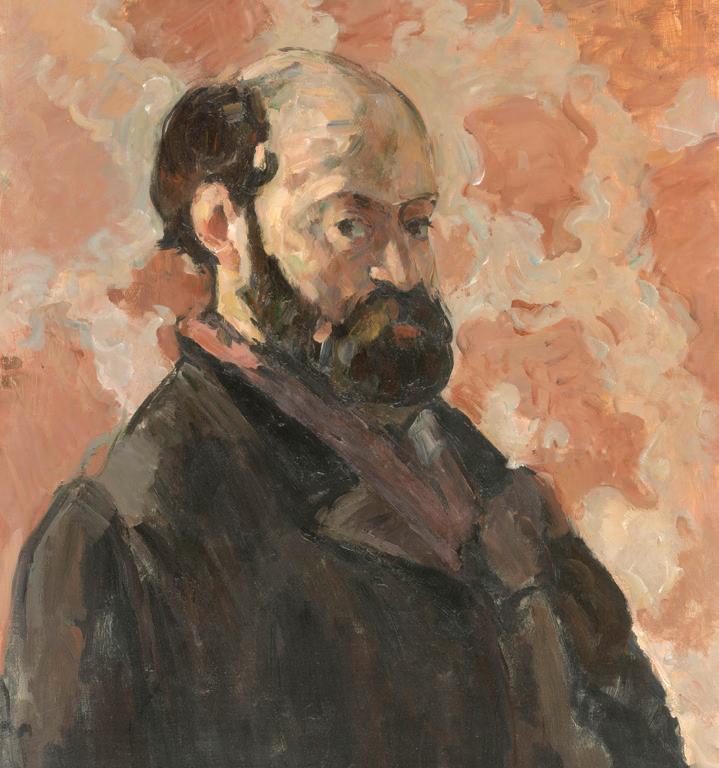
paint his mountains, trees, fruit, and bottles and marvel at the results.
T he first time I visited the show, in the members-only preview days, the galleries were packed. I went back and forth through the rooms a few times, noting the four or five pictures I knew I’d return to on future visits. The only major series I missed is his card players. He painted at least four—The Card Players (Les Joueurs de cartes) , which lives at the Barnes Foundation in Philadelphia, is probably my favorite—but only one sketch of a single card player is included in this exhibition.
The biggest surprise is an earth-toned oil painting of Paris rooftops ( Paris Rooftops , 1882). It feels like the kind of composition I’ve attempted myself many times. I didn’t know Cézanne had tried it too. He’s mainly a village and nature guy, rather than a city creature.
“CÉZANNE”
Through 9/5 : Thu 11 AM- 8 PM, Fri-Mon 11 AM- 5 PM, closed Tue-Wed; the Art Institute of Chicago, 111 S. Michigan; $7 ticket required in addition to general admission ($14 -$25 but free days and discounts listed on website); artic.edu
This one almost looks like an Albert Marquet (1875-1947). Marquet is a big influence on me, but much more manageable and human-scaled than Cézanne. Strolling through, I remembered what Barnett Newman said about Cézanne’s apples in the 1972 documentary Painters Painting : that they were like super apples, that they oppressed him.
There’s an ascetic remove in the best of Cézanne’s paintings. Like they were assembled by a being either beyond or incapable of everyday emotions. It can be off-putting sometimes. But when these pictures connect, they alter the way you see the world with your own eyes.
T he shifting perspectives, the jagged horizon line, the endless retries to capture the same motifs that will always elude him. Cézanne’s mission is about conveying how it is to be: day to day, hour to hour, moment to moment. It’s often not a comforting or welcoming world that he shows, but it’s one I recognize all too well. v
34 CHICAGO READER - JUNE 23, 2022 ll
@Chicago_Reader
Paul Cézanne’s Portrait de l’artiste au fond rose was probably created in 1875. It’s on loan to the Art Institute of Chicago from the Musée d’Orsay in Paris for this exhibition. ADRIEN DIDIERJEAN FOR RMN=GRAND PALAIS/ART RESOURCE NY














JUNE 23, 2022 - CHICAGO READER 35 safe and fun space to explore your artistic side creativity flow Let the with The Chicago Kedzie Plaza 800 N Kedzie #208 Chicago www.studiowip.biz YOU CAN ART TOO! Featuring Spray Paint n’ Sip workshops use code “PRIDE” for $5 off per reservation THROUGH JUNE 30
Summer Theater & Arts
EXHIBITIONS
An invitation to listen to survivors
“Remaking the Exceptional” examines torture in Guantánamo Bay and closer to home.
By NINA LI COOMES
“It’s an invitation,” says Aaron Hughes, cocurator of “Remaking the Exceptional: Tea, Torture, and Reparations,” an exhibition currently on display at the DePaul Art Museum. Marking the 20th anniversary of the opening of the Guantánamo Bay detention camp, the exhibit examines the similarities between survivors of torture at the U.S. military prison with survivors of police torture here in Chicago.
The installations, paintings, and sculptures are an invitation, as Hughes puts it, “To be with the work. To be with the research. To be with the questions. That invitation that we have been continuously invited into by survivors, by those most impacted. All our work is part of sharing that invitation.”
And it’s strange: while one might expect a show about police torture, U.S. imperialism, and violence to be cold and hard to look at, the two-floor exhibition is indeed inviting. I have visited it three times so far, moving quietly through the rooms, looking at walls emblazoned with the names of police torture survivors, gazing up at pastel drawings of flowers pressed neatly into the corner of one room.
It is not easy to sit here with the stories of brutality inflicted upon these survivors, but something continues to beckon me back. The work, the stories, even the quiet hum of survivor interviews piped through an installation on the first floor seems like an opening, a gesture to sit and stay awhile. Each time I exited the doors of the DePaul Art Museum, I found myself promising myself that I’d be back.
The exhibition is the outgrowth of a tenyear collaborative partnership between Hughes and cocreator Amber Ginsburg. Together, Hughes and Ginsburg created the
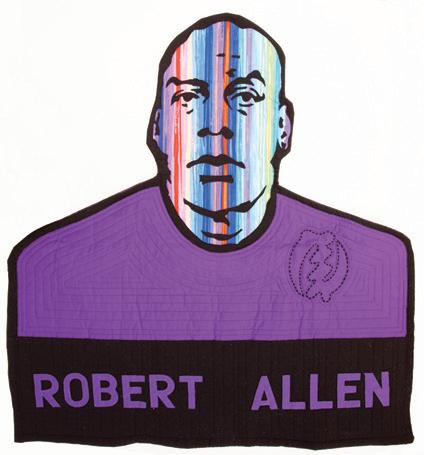
Tea Project , a performance and installation partially inspired by the words of one Guantánamo survivor who, in the epilogue of his book, said he would like to have tea with all of the people he wrote about. Thinking of a cup of tea as a site of connection with the possibility to transcend cultural and national divides, Ginsburg tells me, “We really started as within the anti-war move-
ment, driven through Aaron’s experience of being a veteran and that being, in his words, a radicalizing experience.”
Bringing together Hughes’s military background with her everyday experiences as “a citizen in America during an ongoing war,” Ginsburg and Hughes began to look “for moments of beauty.” But this was not simply
“REMAKING
THE EXCEPTIONAL: TEA, TORTURE, AND REPARATIONS, CHICAGO TO GUANTÁNAMO”
Through 8/7: Wed-Thu 11 AM-7 PM, Fri-Sun 11 AM- 5 PM, closed Mon-Tue; DePaul Art Museum, 935 W. Fullerton, 773 325 7506, artmuseum.depaul.edu
an aesthetic practice of beautification, but rather one of deep, committed research and community building. It was in this process of seeing the “many instances of creative making along the way,” that Ginsburg and Hughes came to the idea of an exhibit that highlighted the devastating, intricate connections between the U.S. military practices of torture with domestic ones, as seen through police torture here in Chicago.
As they talk, Ginsburg and Hughes reference “creative acts of resistance to state violence.” I ask them to clarify—what do they mean by that? So often one of the critiques lobbed at artists, makers of all genres, is that their art does little to materially affect the outcomes of harm. Hughes explains, “We use that term to describe a spectrum of creative acts. [For example,] the gesture of making a mark on a Styrofoam cup in complete isolation and that mark being seen as a threat to a massive prison, and yet people continue to make those marks and make flowers and poetry, it’s creativity despite.”
H ughes’s comment draws attention to the fact that, as of 2017, survivor-made art from Guantánamo is no longer allowed outside of the prison. He tells me that he believes this is because the art was considered “a threat to the logic of that system of incarceration and confinement and torture.” To further illustrate this point are two empty frames on the second floor of the exhibition, where paintings by Sabri al-Qurashi were intended to hang. The artwork’s inability to make it to the DePaul Art Museum, despite the organizers’ best efforts, is proof “that people that survive Guantánamo and survive police torture here in Chicago and survive the carceral system here in Illinois, many of them still live in a state of being un-free. And, you know, our work is connecting the dots so we can seek liberation together. And art is a way to imagine that,” says Hughes.
Ginsburg draws my attention to another subject the exhibition explores: legal advocacy. She remarks, “The one other area that I would add that has been very inspiring to us is also the kind of legal advocacy as a creative legal resistance. Really emulating that in the exhibition are the two reparations banners looking across at each other.”
Here, Ginsburg is referring to two floor-toceiling banners on the second floor positioned on opposite walls titled Speculative Reparations Ordinance for Guantánamo Torture Survivors and Speculative Reparations Ordinance for Chicago (Burge) Police Torture Survivors . Constructed in 2012 by attorney and organizer Joey Mogul, the banners draw a speculative legal framework of reparations for torture survivors. In 2015, Speculative Reparations Ordinance for Chicago was animated through the actual approval of a reparations ordinance in the Chicago City Council. This piece of art, like so many others in the exhibit, has real-life ramifications.
N othing illustrates this to me more, though, than what happened the last time I visited the exhibition. Through an open door I saw Dorothy Burge, one of the artists featured in the exhibit, smoothing squares of blue fabric on a table. Burge is a quilter and an activist, and her quilted portraits hang from the ceiling of each room, hovering over quotes from torture survivors painted on the walls. Though I was feeling shy, I entered and introduced myself to Miss Dorothy, who immediately invited me to an online workshop she was scheduled to lead: guiding participants through the process of making quilt squares emblazoned with positive messages for torture survivors. Behind her stood Vincent, a police torture survivor himself, who is an artist-in-residence at the museum this month.
M iss Dorothy led me back through the exhibit I just pored over, and showed me photographs of her grandnieces and nephews who are the subjects of some of her quilts. She showed me a photograph of a survivor of Guantánamo standing in a wrecked building and told me how much the photo reminded her of the wreckage of Cabrini-Green when it was demolished. She pointed to the purple and green portraits she’s made of incarcerated people and told me that two of the subjects have since been freed. As we parted ways at the entrance, she again invited me to attend her workshop. I am reminded of Aaron Hughes’s words: that the show is an invitation. The invitation seems beautiful, difficult, and urgent. Most of all, I realize that it is alive and breathing, a hand outstretched for me to come back, sip (metaphorical) tea, and listen. v
36 CHICAGO READER - JUNE 23, 2022 ll
Free Robert Allen , a quilted work by Dorothy Burge as part of her 2021 series Won’t You Help to Sing These Songs of Freedom ZOEY DALBERT, COURTESY DEPAUL ART MUSEUM
@nlcoomes


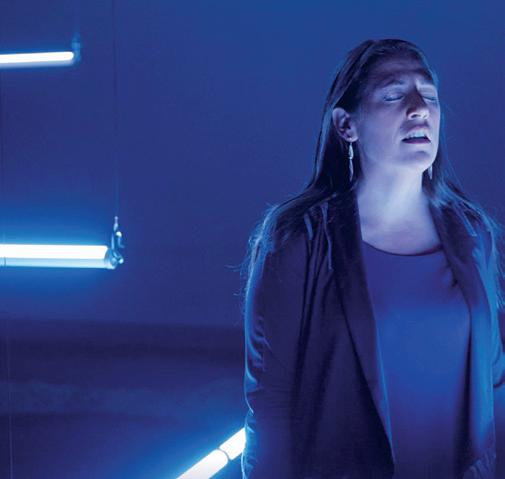






JUNE 23, 2022 - CHICAGO READER 37 You can turn your life around, today If you are a young adult who started experimenting with alcohol or drugs and now find yourself unable to stop –feeling out of control, overwhelmed or hopeless – you never have to feel this way again. Discover is a life-changing addiction treatment program for young adults ages 18+, designed by the expert, clinical team at Recovery Centers of America. • Live with other young adults in semi-private rooms • Gender and age specific groups and workshops • Outdoor activity and gym time • Family therapy & support services AT ST . CHARLES Call Today: 331-422-4851 RECOVERYCENTERSOFAMERICA.COM/ST-CHARLES 24/7 Admissions • In-network with insurance • Family support services DRUG & ALCOHOL ADDICTION TREATMENT PROGRAM FOR YOUNG ADULTS 18+ To learn more about Blue Distinction, please visit www.bcbs.com or contact your Local Blue Plan. GoodmanTheatre.org 312.443.3800 Groups 10+: Groups@GoodmanTheatre.org Contributing Sponsor BY MADELINE SAYET | DIRECTED BY MEI ANN TEO An Indigenous theatre-maker journeys across geographic borders, personal history, and cultural legacies; in search of a place to belong. JUNE 24 – JULY 24 GOODMAN THEATRE PRESENTS THE WOOLLY MAMMOTH THEATRE COMPANY PRODUCTION OF IN ASSOCIATION WITH FOLGER SHAKESPEARE LIBRARY Use code READER20 for $20 main floor seats to performances through July 7. *Not valid on previously purchased tickets. Offer expires 7/7.
Summer Theater & Arts
Irregular Girl is leading the ght for trans utopia
By MICCO CAPORALE
If it’s the first Friday of the month, you’re going to see a line snaking out of Berlin that extends past the entrance to the Belmont CTA station and sometimes around the block. It’s populated by people in leather miniskirts and mesh crop tops, disco bambis and alien centaurs, club mystics with lashes so long you can bounce fantasies o them, and other creatures of the night. They’re on a pilgrimage to experience Strapped, the gender-inclusive
dyke night founded by drag queens Siichele and Irregular Girl, a performance artist who will grace the Steppenwolf stage later this summer.
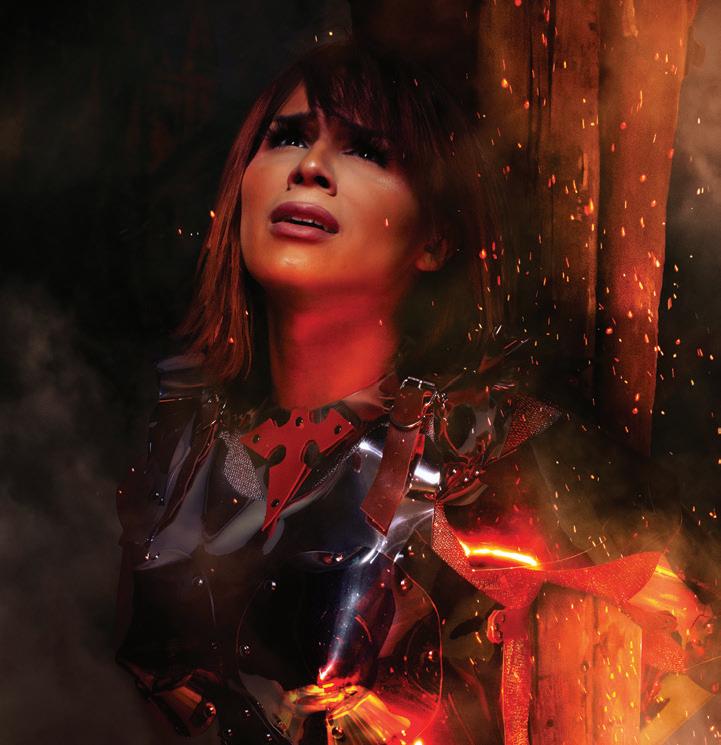

“I really believe in the power of nightlife as a place where people who are marginalized— who aren’t of the status quo—are able to meet and celebrate one another and live out fantasies turned realities,” she explains.
Irregular Girl is the Live Laugh Latina of
clubland, and her body of work highlights her range of irregularities as assets while refusing to hide how remarkably ordinary she is. When she’s not onstage welcoming the city’s hungriest children like a hot witch in a gingerbread house, she enjoys spending time with her husband and parents. She tans at the beach and bops to Britney Spears, plays video games and watches Real Housewives. Wait, I thought we were describing an irregular girl. What’s so
irregular about this one? And once we know, how do we let that information shape our behavior?
Since cis womanhood is the cultural default of womanhood, one of the things that makes Irregular Girl “irregular” is being trans; thus, much of her persona is built on embracing what makes transness and especially trans womanhood unique and beautiful. Her drag is one example of this, but another is her talk show, That Shit’s Trans!, where she connects with local trans artists to discuss their work as well as popular media that’s shaped their trans experience—for instance, Sailor Moon finding a compact that completely transforms her. After filming a pilot episode for OTV last year, she performed a live version at the Logan Theatre in November. Now she’ll be joined by dancer and choreographer Darling Shear for a live show at Steppenwolf on July 20 (part of the theater’s ongoing LookOut series).
By touching on “regular” media, she allows audiences into her and her friends’ worlds without letting onlookers decide the terms of
38 CHICAGO READER - JUNE 23, 2022 ll
COVER STORY
“I don’t perform positivity as much as hope.”
Irregular Girl as Joan of Arc DYLAN BRAGASSA





























JUNE 23, 2022 - CHICAGO READER 39
Summer Theater & Arts
THAT SHIT’S TRANS: LIVE!
Wed 7/20, 8 PM; Steppenwolf 1700 Theater, 1700 N. Halsted, 312 335 1650, steppenwolf. org, $15
discussion. But why should that bother anyone? Would you interrupt the coolest girl in the room after she’s invited you to eavesdrop on conversations with some of Chicago’s most groundbreaking artists? (And if so, uh, do you have something against cool people? Wait, are you saying Irregular Girl is TOO exceptional for your tastes—that she’s not, dare I say, regular enough? It’s in the name, people: She is IRREGULAR!!)
Irregular Girl—or Regina Rodriguez, as she’s known when the makeup comes off— moved with her family from Peru to Chicago when she was seven. Raised mostly in Edgewater, she attended an arts high school where she concentrated on sculpture, then continued her studies at the School of the Art Institute of Chicago, where she focused mainly on fibers and performance art. As her arts education evolved, so did the questions she was asking herself about her gender, what it was, and how she was manifesting it in both her work and her everyday life. If gender is a performance, how do we define sincerity? What separates art and artifice? In what ways can and do these ideas live in harmony? What’s fun about the discord?
Meanwhile, she was drawing inspiration from people such as Ana Mendieta, Tania Bruguera, Carolee Schneemann, and Billie Zangewa. She was exhibiting and performing in places like the Art Institute of Chicago, MCA, and Queens Museum in New York as well as a slate of local galleries, including Mana Contemporary and Zhou B. She’s had an assortment of fellowships and artist residencies, including as a project curator for the A.I.R. Gallery in New York. It was there, in 2016, that she started doing drag.
“I’d just turned 21 and had just started going out,” she says, laughing, “and I noticed the drag queens always getting free drinks. I was like, ‘OK, I want free drinks.’ That’s literally why I started doing drag. Just broke in New York. But I was able to express my gender more outwardly there because I wasn’t around my parents or anybody I knew. I was able to experiment and experience my gender by myself and for the first time figure out what I liked just for me.”
Her initial drag persona was Mason Jar. But when she decided she wanted to undergo medical transition in 2018, she adopted the name Irregular Girl.
“As Irregular Girl, I don’t perform positivity
as much as hope,” she says. “It’s really, really heavy to live as a person of color. And with all of this anti-trans legislation, it’s really, really di cult to wake up every day and feel the reality of living in a country that doesn’t value you, see you, respect you for what you know is your truth. It’s heavy and hard, but I’m trying my best to share the parts of myself that I hid for so long in hopes that other people will want to share that of themselves, too. . . . It’s heavy and a lot of work, but it’s what keeps that hope alive inside of me to continue to free myself and other people’s minds of what they think they know. And to give people an example—or even just a friend. Just being a friend to others is really important to me.”
To experience Irregular Girl is to revel in someone exceptional who’s exceptionally down to earth: the perfect micro-celebrity for the di use communities who emerge at night.
A fan named pb tells me on Twitter: “One of the most compelling things about Irregular Girl is the way she talks about the divine light that trans people possess—how we are conduits of change. She truly embodies it, and it makes her merch feel like a rallying cry or a badge of solidarity that we are able to transform anything about ourselves and the world around us until we reach the utopia shining out over the horizon.”
Local rising techno DJ Miss Twink USA, who was one of the guests on the pilot episode of That Shit’s Trans! , describes working with Irregular Girl: “Years ago, I met Regina back in the clubs. She was doing these insane club-kid looks, and the impression she left on me was purely impeccable. Fast-forward to 2022, Regina is a household name, and her magic and craft are growing stronger and stronger. I went to Strapped in April where she pulled out a sword while performing to a new Florence & the Machine track. It made me feel possessed! Struck and transfixed by her every move and glorious storytelling. The way she invites us into the world she sees for herself is fascinating, and it makes me want to be a better artist each day. Irregular Girl is one of the most talented and powerful artists here in Chicago.”
Drag performer Sangria Whine writes: “Irregular Girl’s show Mom Jeans was my first ever show in Chicago, so to say she’s important to me is an understatement. She’s not only a talented performer but such a humble and caring individual. She always makes me feel welcomed and like I have a space in the scene.
I look up to her so much, and I truly hope one day I can be at her caliber of talent.”
“At art school, I learned a lot about imagemaking and holding attention,” Irregular Girl says. “The performance art that I was doing at SAIC was very, very image based. There’s such an immediacy to performance art, like your body is right there, almost like there’s no metaphor. I mean, it’s all a metaphor, but you have the physicality of yourself, right there. I think that’s where my energy comes from in my performances now, because, as a trans person, I’ve had to learn to grow love and rejoice in my truth. I really value the freedom that my life gives me and the freedom that I feel when I’m onstage. I have to be 100 percent there and take my audience with me.”
But she doesn’t hide the ways she’s vulnerable on her path. Last summer, she was one of five Chicago trans women who shared stories with Them. about experiences sporting bulges at the beach. Recently, she appeared in Cook County Research’s PSA for a campaign called PrEPárate: PrEP for You & Me. Latinx nightlife luminaries like herself and Bimbocita share how PrEP, an HIV prevention medication, creates more opportunity for safety and comfort while enjoying nightlife. Any of these stories sound like you? Try PrEP! In 2014, a study by Kaiser Family Foundation found that gay and bisexual men accounted for 2 percent of the population but 66 percent of new HIV transmissions. Latinx people of all genders are four times as likely to get HIV as white people. On paper, it feels like numbers, but the weight of the myriad ways HIV complicates life as a queer trans Latinx person is very real—and it’s especially palpable in the community right now.
On June 7, Berlin celebrated the life of Simon Sin Miedo, a trans Latinx staple of industrial goth nightlife and BDSM scenes in both Chicago and Minneapolis. Earlier this year, they’d been diagnosed with HIV and spent months raising money on GoFundMe to cover relocation and treatment costs to manage it. When Sin Miedo passed, they were publicly drowning in needs created by a lack of social safety nets exacerbated by their HIV diagnosis, a disease whose systemic denial has caused gay genocide. Why do we tolerate a system that encourages these outcomes, especially for some people and not others? Why is that so normal? Maybe it’s a badge of honor to be irregular in a world that normalizes such cruelty.
“The goal of my drag and creativity is to uplift and inspire others to claim their own narrative,” says Irregular Girl. “The world around us is really unaccepting and hateful of trans people and people of color, and my focus is to give hope. There’s so much uncertainty about the future, and we’re living through some really fucked-up times. That is what we need right now: to recognize each other’s truths and have each other’s backs.”
But her level of visibility doesn’t come without its challenges—for instance, living up to people’s ideals of her while enduring the everyday state violence and interpersonal cruelties that come with being trans. Irregular Girl feels grounded most by her strong relationship with her family and especially her husband Oliver, who she’s been with for four years. People in the community call him “world-famous wife guy” for his widely known and wildly flawless commitment to the bit of a man completely enamored with his partner—a partner who shares many qualities with this particular man’s favorite diva, Mariah Carey. If you were married to your teen fantasy, how would you show up for her? That’s the trans narrative Oliver manifests daily.
“As someone who’s a quote-unquote public figure,” says Irregular Girl, “there’s a huge amount of stress and pressure that comes from other people. None of it is ill-intentioned, but a lot of us suffer from these neuroses where we have to be perfect and always on. My husband and family all remind me that I’m just a person, like anybody else who’s just trying their best and sharing their art.
“Oliver has been nothing but supportive of my career. My relationship with him helped me discover more of myself. I started taking hormones around the time that I met Oliver because it was something that I was really struggling with. Oliver never pushed me or urged me. He just said, ‘If it’s something that you’re thinking about, try it.’ And that’s what he’s always reminding me: I’m really just another girl out here trying it. That’s all any of us can do.”
It’s a common story amongst trans people: if you’re curious, just try it. Try being a sculptor, a performance artist, a diva—or all three! Want to know what kinds of doors open on hormone replacement therapy or other aspects of medical transition? Try it. There’s a lot of freedom to being irregular. v
40 CHICAGO READER - JUNE 23, 2022 ll
@JuggaloReporter
continued
from 38
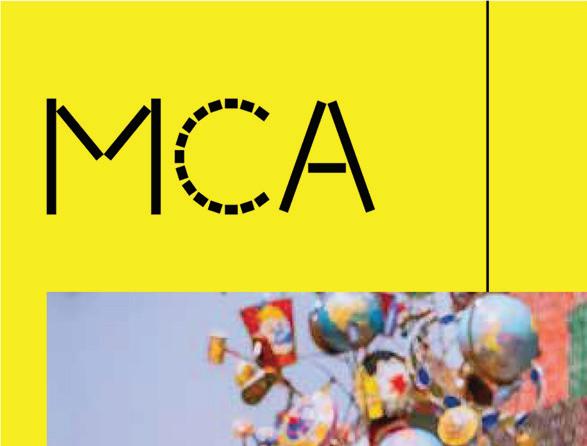



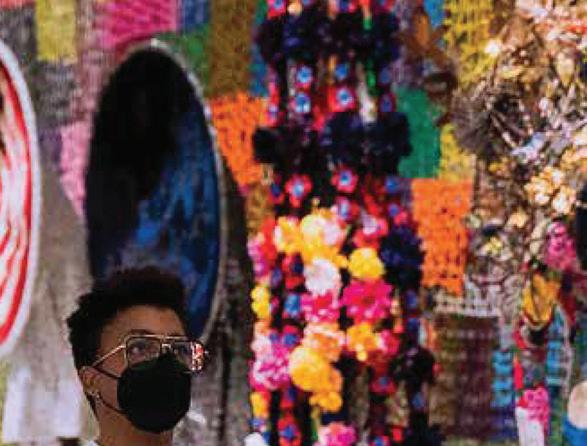
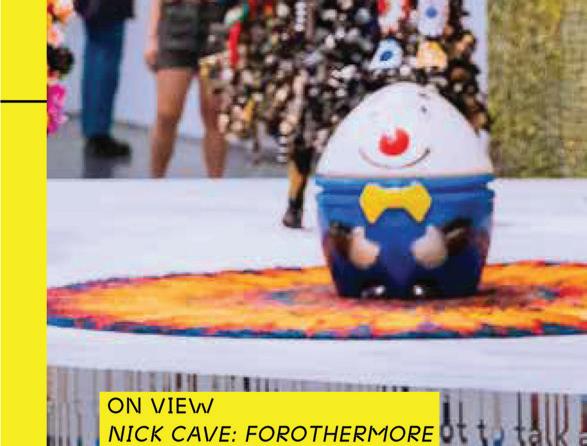
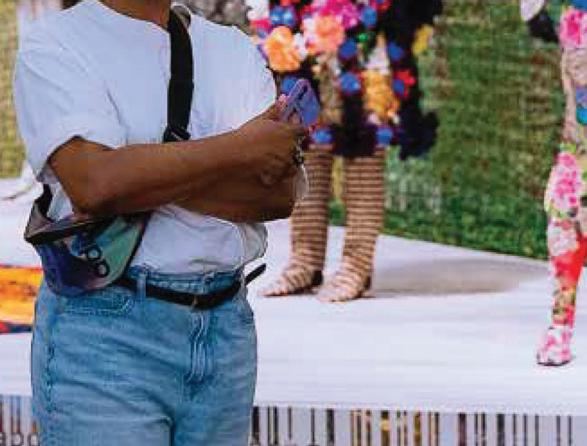
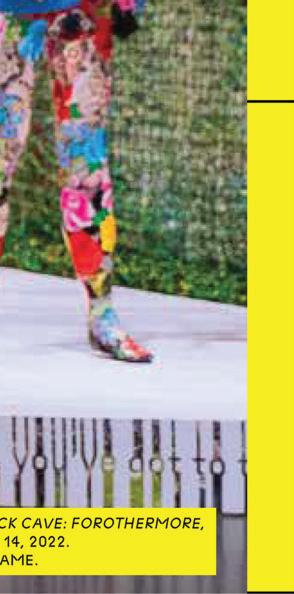

JUNE 23, 2022 - CHICAGO READER 41
Summer Theater & Arts
Taking the drama and dance outdoors
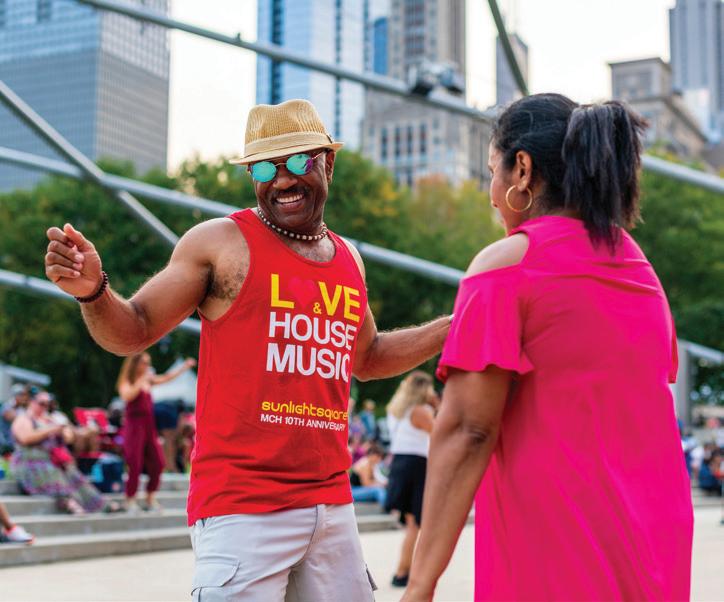
Producing in parks presents challenges, but it’s worth it.
By KERRY REID
Ispent most of the 90s in the Bay Area, where outdoor theater in the summer is a given, and the weather generally cooperates (if you’re not facing the threat of forest fires, that is). But in Chicago, extreme heat and thunderstorms go with the territory. Despite Mother Nature and other logistical challenges, outdoor theater and dance performances now take place all over the city and suburbs, alongside street fairs, music festivals, and everything else the season o ers. Bonus for the COVID-cautious: many outdoor theater performances o er better chances at ventilation and social distancing—just stake out your spot on the grass. I talked to a few people behind
the scenes to get a sense of what it takes to make those performances happen, before audiences show up with blankets, folding chairs, and picnics to get their dual culture/nature fix.
The OGs of Oak Park Now heading into their 47th season, Oak Park Festival Theatre has been producing Shakespeare (and sometimes other writers) in downtown Oak Park’s Austin Gardens for most of their history. After a disastrous fire in their o ces last fall, which destroyed much of their archival material and tech equipment, the company has rallied and will be back with A Winter’s Tale starting July 12. (The company’s
productions are ticketed, with prices ranging from free for kids under 12 to $38 for adults.)
Unlike the other companies and producers I spoke to, OPFT has the advantage of being in one spot the whole summer, rather than having to load up and move around week to week. But as artistic director Barbara Zahora points out, other outdoor productions “use semi-private or private property to work with so they can leave some things in place from night to night throughout a production run.”
For OPFT’s public park setting, the outdoor stage stays up all season, “but everything else, every night, we set up and strike.”
George Zahora, who serves as composer and sound designer for many shows in Austin Gardens, and is also Barbara’s husband, notes, “We can’t bury cables in the park or anything like that. We have to work around existing installations of power, et cetera. So there are limits. So as far as sound is concerned, we have to set up speakers and mixing-board microphones every night, which means running a lot of cable. Some of that we’ve found ways to just have in place permanently, but of course, any of that stu is at the mercy of Mother Nature.” And since the park is open to the public, the “stu ” can’t be something a curious passer-by can walk away with or damage.
Anyone who’s attended OPFT shows also has experienced the ambient noise of planes, emergency vehicles, car alarms, and everything else one fi nds in a bustling downtown area. Some nights, the locusts chime in as a chorus, too. Negotiating all that requires a particular skill set from performers. Barbara notes, “I’ve had one dear friend in particular say to me, ‘I think I’m a better actor because of this,’ because they felt that they had to deal with a lot of distractions, but they were also, for lack of a better word, exposed in a way that was di erent than the type of exposure that you get in an indoor space. To protect the performance from children crying or running off during your big monologue, to rain, to the planes, to cicadas, you have to be so focused and committed to not just what you’re doing in that moment, but to the craft itself and to what you’re trying to create for
the community.”
Kevin Theis, longtime OPFT company member who’s directing The Winter’s Tale, notes that the outdoor setting can also lead to felicitous synchronicity. “When we were doing Of Mice and Men and Lenny was talking about the rabbits, there were actual rabbits running around in front of the stage. I mean, you don’t get that indoors. We had an entire squirrels’ nest drop into the middle of the stage during a show. Audiences just fl ip out. They love when something goes haywire. When I was doing Amadeus [Theis played Mozart’s jealous rival, Salieri] opening night and I’m railing against God and God was answering me with thunder in the sky? It was so thrilling.”
A moveable Dream
Midsommer Flight has been offering free Shakespeare in the parks for ten years, and this summer, they’re returning after the COVID hiatus with A Midsummer Night’s Dream (the first show they ever presented) as part of the Chicago Park District’s extensive “Night Out in the Parks” programming. It’s a bit of a misnomer, however; Midsommer Flight relies on natural daylight for their touring productions. (This year’s season opens July 15 in Lincoln Park.)
Producing artistic director Beth Wolf notes that being a portable production presents challenges. “Because we are such a small company, we don’t have the budget to rent a truck or hire drivers. We rely on our touring company of mostly actors and usually a stage manager. Not everyone has a car, but every year enough people have cars that we can load everything in and out. And part of that calculus is creating a plan for which items go in which people’s cars and how many cars do we have this year. So we don’t want to over-design the show and then be unable to fit it all in.”
Unlike OPFT, Midsommer Flight doesn’t use any amplification or sound equipment. Wolf says, “We make a point to hire a vocal coach at the beginning of the process who comes into our rehearsals and does vocal workshops with the actors to help them use
42 CHICAGO READER - JUNE 23, 2022 ll
SummerDance at Millennium Park CITY OF CHICAGO, DEPARTMENT OF CULTURAL AFFAIRS AND SPECIAL EVENTS
SUMMER STAGES
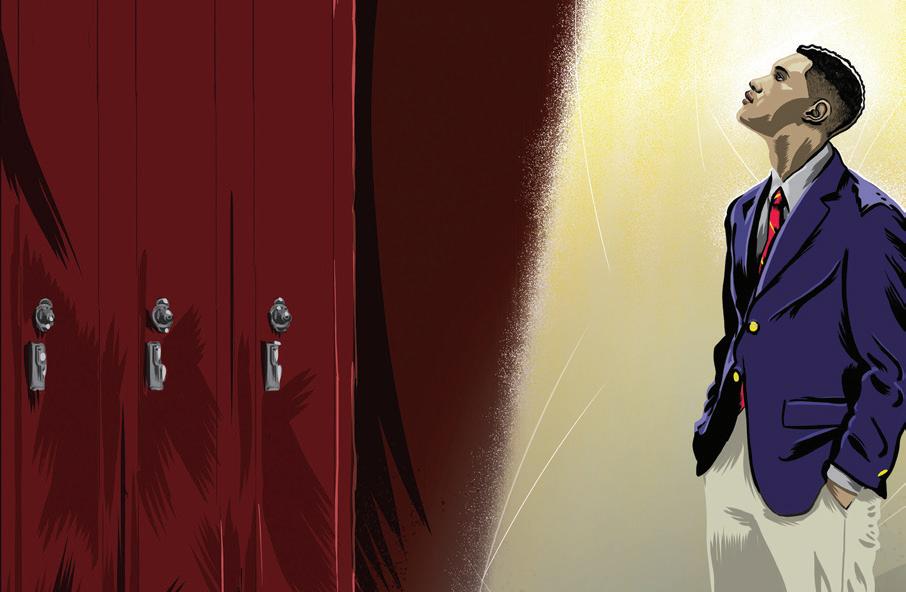


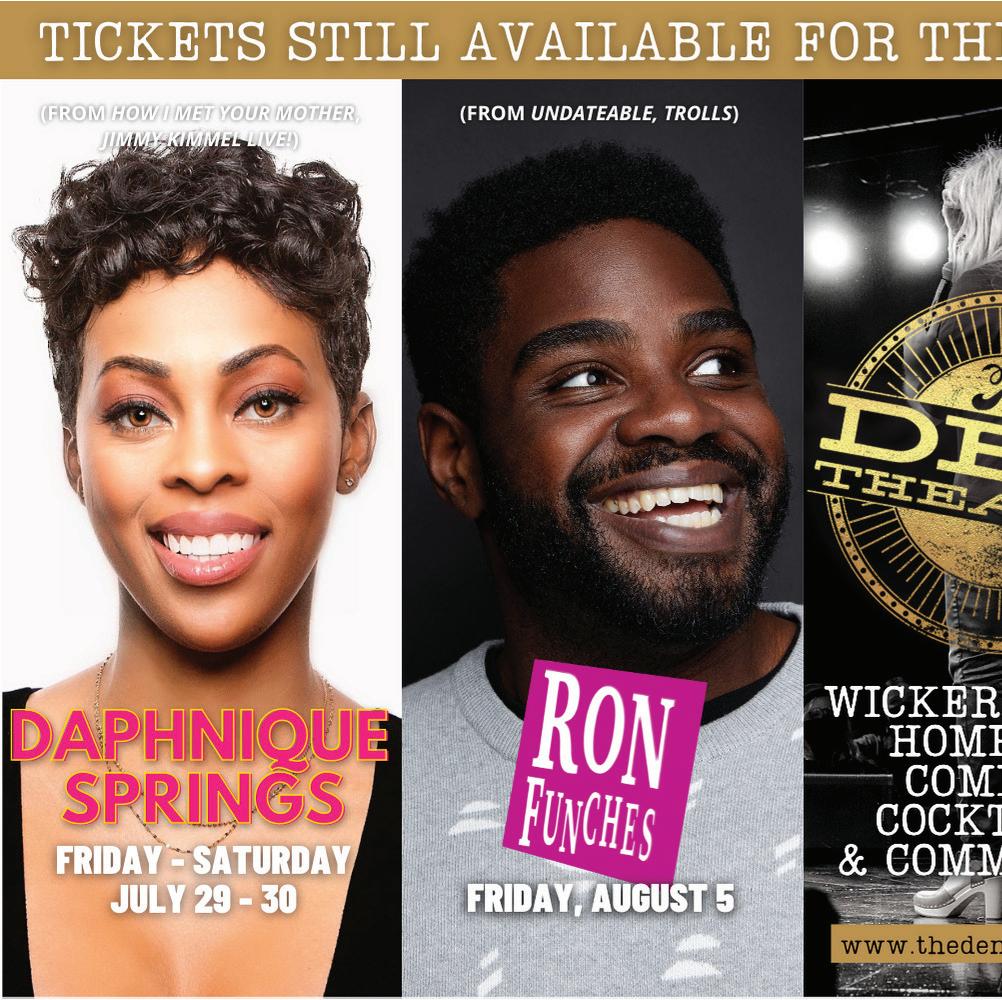

JUNE 23, 2022 - CHICAGO READER 43 2021/22 GRAND BENEFACTORS 2021/22 BENEFACTORS GRAND PRODUCTION SPONSORS CHOIR BOY NOW THROUGH JULY 24 By ensemble
Threaded throughout with soul-stirring a cappella gospel hymns, Choir Boy is the story of a young gay Black man and his battle between identity and community. Tickets, show and discount info at steppenwolf.org | 312-335-1650 “For playwright Tarell Alvin McCraney, art isn’t just for amusement, escapism, or cultural critique. It’s necessary” - Entertainment Weekly TONY NOMINATED FOR BEST PLAY
member Tarell Alvin McCraney Directed by Kent Gash
Summer Theater & Arts
their voices in a healthy way to project across these big park spaces and to deal with ambient noise. So most of the time actors are gonna keep going and push through. But there are times when we tell them if there’s something that can’t be ignored, like a low-flying plane that just obliterates all sound, we can wait that out. You can even acknowledge it. We are suspending our disbelief for the world of the play, but we are very much in the middle of a city with real things happening. And there sometimes comes a point where ignoring it is more distracting than just acknowledging it and letting the plane go by or the siren go by.”
Broadway al fresco
Porchlight Music Theatre’s “Broadway in Your Backyard” series has been happening for a few years, but this summer is the first time the company has joined “Night Out in the Parks,” which itself celebrates ten years this summer. The 60-minute concert of Broadway favorites kicks off July 19 in Wicker Park and travels throughout the city.
Production and operations manager Alex Rhyan is the point person for figuring out the transportation and setup, which include a portable stage and sound system, but no props or costumes. “We need to pack everything in and be able to pack everything out with us. Even though we’re going to Park District places, we like to be very self-su cient because we don’t know what we can rely on. Every park is different and every park has di erent amenities.”
Site visits beforehand help Rhyan and his team find locations within the parks “that provide some shade and where the sun’s gonna set right at six o’clock, and that is also accessible to the building. Hopefully at most of the parks, we are going to have a fieldhouse, so there are restrooms.”
The concerts do feature live accompaniment, and working out the sound requirements for each show is a big part of Rhyan’s job, especially since the park locations vary in terms of what’s available technically. “We always have a backup plan for electricity and bring a generator. And with that, lots of extension cords. I bring hundreds of feet of extension cords. That’s probably the one thing that is overkill and sits in the truck all summer long.”
Going to so many different communities also means that Porchlight (led by artistic director Michael Weber and musical director Justin Akira Kono) pays close attention to
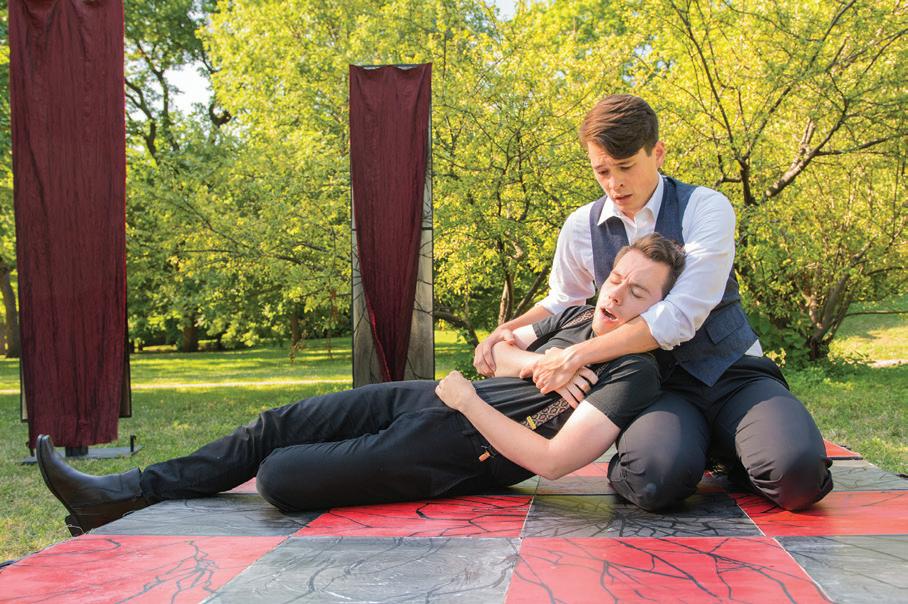
the songs in the concert, especially with paring down from a 90-minute show, as in past years, to an hour for the parks. Says Rhyan, “We’re looking at the community and the demographics. If certain places have more youth going to them, we’ll add in more Disney songs.”
Rhyan also notes that, while the series is free, Porchlight benefits by using it as “a tool for our outreach in education, in marketing and getting patrons, but also development opportunities.”
Dance parties
This is the city’s Year of Chicago Dance, and there’s also one more week left in See Chicago Dance’s Chicago Dance Month celebration, which features performances and workshops all over the city. Additionally, Chicago SummerDance returns July 6 with free pop-up performances, programs at the Spirit of Music Garden in Grant Park, and other themed events around Chicago.
In other words: there’s never been a better season to fall in love with all the varieties of dance Chicago has to o er.
Surinder Martignetti, community engagement manager for See Chicago Dance, spends a lot of time doing site visits, sometimes in decidedly unsummery weather, to fi gure out what locations will work best for Chicago
Dance Month.
“I always try to go out to parks that are outside of the city center,” says Martignetti. “I really love being in parks, especially on the south and west side that are underutilized spaces because I love bringing dance and movements to these unexpected places. We have a dedicated audience that goes to see these things, but there’s also all of the people that just happen to be in the park that will stumble across these beautiful, unique experiences and just have this connection with dance that is unexpected and lovely.”
Martignetti also works to make sure that the companies they’re partnering with understand the limitations of the environment. “Most of these companies are dancing everywhere and anywhere. So I feel like most people already know how to negotiate and go into these spaces and know what to expect. But I’m also super clear, like, ‘This is a raw space. I’m not providing a dance floor.’” As far as material, she says, “I don’t really put any parameters on their dance season. Like you can do whatever you want as long as there is no rude language. It needs to be family friendly. We’re in a park, so no references to gun violence or gunshots in your music.”
John Rich is the dance and theater coordinator for the Department of Cultural A airs and Special Events (DCASE). He notes that
this year’s SummerDance schedule is more expansive than in years past, in keeping with the Year of Chicago Dance initiative.
And while the downtown programs are always popular, the programming in the parks brings dance instruction and artists to neighborhoods, focusing on particular cultural and community interests. For example, they offered a cumbia and house music combination for Back of the Yards last year, and also “started working with Plant Chicago, which is a neighborhood market. We were positioning some of our summer dance programs in relationship to city markets, really just thinking about wellness, thinking about dance, thinking about food for wellness. We were in the middle of the pandemic, and just wanting people to be well and safe was a really big priority,” Rich says.
And while not everyone may be comfortable dancing around strangers (pandemic or no pandemic), Rich notes, “Social dance is a very special form of community and cultural engagement. You’re dancing with other people. It’s just a beautiful way to connect, and people come out and they’re respectful. Whether that means dancing with someone you know, or dancing with a stranger, mutual respect is a core part of the experience.” v
44 CHICAGO READER - JUNE 23, 2022 ll
@kerryreid
continued
Midsommer Flight’s 2017 production of Hamlet TOM MCGRATH/ TCMCG PHOTOGRAPHY
from 42
Frank Carter famously authored self-help books. But Alice, his 16-year-old daughter, finds cold comfort in his positivity platitudes when he tragically never comes home one night. As she puzzles out the events of the day that changed her family forever, Alice’s relentless search for the facts reveals a more complicated truth.
























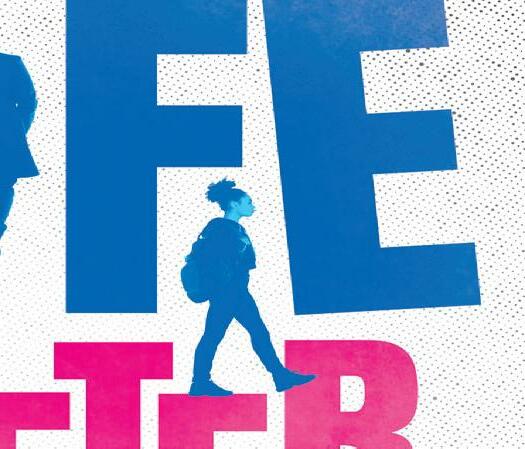

JUNE 23, 2022 - CHICAGO READER 45 GoodmanTheatre.org 312.443.3800 Groups 10+: Groups@GoodmanTheatre.org Technical Sponsor “A LUMINOUS NEW MUSICAL” –THE SAN DIEGO UNION-TRIBUNE BOOK, MUSIC, AND LYRICS BY BRITTA JOHNSON DIRECTED BY ANNIE TIPPE “Musical theater perfection…exquisite from start to finish” (BroadwayWorld)
NOW THROUGH JULY 17 A performing arts, visual arts, and other arts categories
Summer Theater & Arts
HISTORICAL DRAMA
A Black perspective on the French Revolution
Terry Guest’s Marie Antoinette and the Magical Negroes opens with Story Theatre.
By BRIDGETTE M. REDMAN
Sometimes to understand the present, we must look at the past.
In 2017, playwright Terry Guest grappled with how America could elect someone so outwardly racist as Donald Trump. It shocked him into questioning what could be done about the rise of fascism in the U.S.
“Do we protest? Does that work?” Guest asked himself. “Do we yell? Do we scream? Do we give up? Do we focus on our family and our own personal lives? Do we cut o somebody’s head?”
Those musings sent him back in time to fi gure out what answers people found when faced with the same questions. The result is Story Theatre’s Marie Antoinette and the Magical Negroes, opening June 30 at Raven Theatre.
Guest doubles as playwright and director in a story about revolution, rage, and revenge. Set during the French Revolution, the play takes a new look at the lost monarchy myth by putting it in the mouths of Black people.
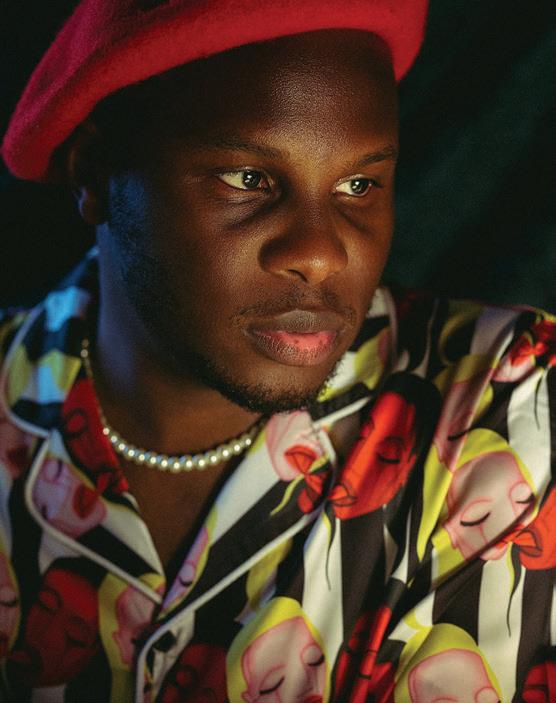
Brenna DiStasio, one of the founding members of Story Theatre, plays Marie Antoinette, and explains that the company seeks stories that ask how people feel rather than telling them how to feel. They actively support new work and emerging playwrights.
Those goals made Marie Antoinette and the Magical Negroes a good fit for the young company. In 2019, they premiered Guest’s At the Wake of a Dead Drag Queen ; that script previously won a grant for a developmental workshop from Atlanta’s Out Front Theatre.

This past spring, Guest’s The Magnolia Ballet premiered at About Face, with Guest playing one of the roles under the direction of Mikael Burke (also the director of At the Wake of a Dead Drag Queen). It received rapturous reviews.
“Terry’s work is so beautiful,” DiStasio says. “It is so unique in that it has this mysticism about it. It is constantly digging for the complicated nature of history and interpersonal interaction in a way that really fits our mission statement. This show explores the themes of Black liberation and what do we do? How do we react in the face of adversity in a way that honors the fact that not everyone has the same answer?”
While Guest went seeking for answers, he found something else instead.
“I grew to appreciate how throughout humanity, particularly with Black people, we have had to ask these questions generation after generation after generation,” Guest says. “The thing that keeps me going is knowing that I am not alone, that my ancestors asked the same questions that my children will be asking. There is a connectivity to my history as a Black person and to my present, looking around at the different ways that my Black siblings are dealing with all of the things that are happening in the world and America.”
The play spans 300 years of history. It moves from the French Revolution to the Haitian Revolution to the 1992 LA riots and back again. While there is anger, there is also humor and joy.
“It’s a really funny, fun show,” Guest says. “There’s lots of movement and dance. It will feel like something people have never seen before. My goal is not to create something that’s perfect. My goal is to create something that’s powerful and that is saying something new and exciting.”
In the play, a group of magical traveling Black players decide to put on a show to help them understand and digest the complicated feelings they’re experiencing around being
46 CHICAGO READER - JUNE 23, 2022 ll
Top: Marie Antoinette and the Magical Negroes; playwright Terry Guest DAVID HAGEN
Summer Theater & Arts
Black in a country that keeps showing it hates them. The story they examine is the French Revolution and how it inspired revolutions around the world.
“Whenever people ask me to describe the show, I’m like, you just have to see it,” Guest says. “It’s too simple to say that it’s the story of Marie Antoinette. JFK and Jackie Kennedy show up and they’re played by Black people.”
DiStasio says that as the play explores Black liberation, it recognizes that the Black experience is not a monolith—Black people experience it in di erent ways, all of which
gaged and living and surviving and thriving this entire time,” DiStasio says. “There were Black people living in France. The actions of the French monarchy had an impact on the American slave trade.”
Guest agrees that too often stories of the French Revolution focus on Marie Antoinette and the experience of the royals. Not enough attention is paid to the people whose su ering sparked the revolution.
“Looking at where we are now, in this country, there are so many people who are starving and angry and reaching a breaking point,” Guest says. “It’s a really apt time to look at what’s been done before and to see if we can do things a little bit better.”
As for telling the story from a Black perspective, Guest points out that he is Black and he only knows how to tell the story from his
“This is just my story, my little version,” Guest says. “I’m not trying to be anyone’s voice of a generation. I’m just trying to tell my little stories and write my little plays about my little corner of the world. And that corner of the world happens to be Black.”
As a director, Guest says he put together a cast that was “energetically diverse,” with five of the seven roles cast with Black actors.
“All our actors have such a variety of ways of interacting with each other and the world,” Guest says. “It really shows the complexity of Black actors in this town. All the actors play multiple characters, so they get to really shape-shift and time travel. Black folk don’t get to do that as often as we should.”
MARIE ANTOINETTE AND THE MAGICAL NEGROES
6/30 -7/ 17: Thu-Sat 7: 30 PM, Sun 3 PM; Raven Theatre, 6157 N. Clark, 773 338 2177, thestorytheatre.org, previews (Thu 6/30 and Fri 7/1) $15, regular run $20 ($10 students, active military, and veterans)
Story Theatre has published content warnings, inviting people to contact them for more information. Guest points out there is violence, revolt, and decapitation. It takes a critical look at how people perpetrate and experience violence in this country.

“Everybody has a di erent comfort level,” DiStasio adds. “This play deals with white
supremacy and Black rage and Black joy and Black liberation in a very vulnerable and frank way. Those themes are inherently triggering. We want to make sure you know that . . . you will see negative actions by white bodies being perpetrated on Black bodies. But ultimately, the goal of this show is actually Black healing and Black liberation taking over that narrative.”
Since Guest started working on Marie Antoinette and the Magical Negroes in 2017, he’s rewritten it many times and says he’s still discovering new things that will lead to future rewrites. (The play also closes a run at Baltimore’s Single Carrot Theatre this weekend and also has a short run this week at Indianapolis’s Southbank Theatre.) However, he has found that the historical setting makes the play continue to be more relevant.
“People are getting closer and closer to that breaking point that I was talking about,” Guest says. “I can’t wait for the play to not be relevant.” v
@BridgetteRedman
2052 W. CHICAGO AVE
Tender Presence
A traveling exhibition of queer artists who instill, exemplify, or resist the softer side of interactions. Through material research, this collective reflects a multitude of processes, objects, and ideas. The mark of each maker’s hand presents an individual interpretation of tenderness. Curated by Adam Atkinson & Everett Hoffman.
$ulo Bee Vivian Chiu
 Margo Csipo
Margo Csipo
J Taran Diamond Mattie Hinkley
Andy Lowrie
Wyatt Nester-Pasicznyk
Corey Pemberton
Kento Saisho
Hansel Tai
Scott Vander Veen
Taylor Zarkades King
On view: May 24 — July 17
Reception: Friday, June 24, 4:00-8:00 PM
Pictured: Leaf Demon by Andy Lowrie (left)

Mound by Kento Saisho (right)
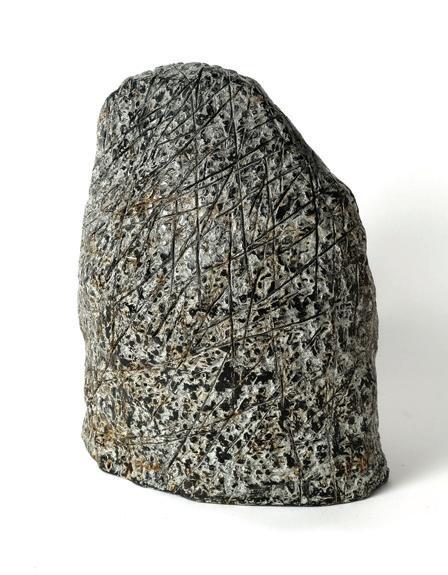
WWW.GALLERY2052.COM
Summer Theater & Arts
BOOK REVIEW
Method and madness
By DMITRY SAMAROV
“M
y dear boy, why don’t you try acting?”
Laurence Olivier’s quippy response to Dustin Hoffman’s story of how he stayed up three nights to fully inhabit the sleepless state of his character in the 1976 thriller Marathon Man may be the most oft-cited example of the absurd ends Method acting came to in America. But that anecdote, if Ho man is to be believed, is misunderstood, if not apocryphal. Apparently Ho man was staying up nights partying to get over a breakup and Olivier’s advice was given in sympathy rather than criticism. This is but one of the many myths and legends defanged, contextualized, or outright refuted in Isaac Butler’s scrupulously researched but eminently readable biography of an acting philosophy that dominated the 20th century—and continues to exercise influence on stages and screens of every size and shape to this day.
As with so much that has come to be thought of as uniquely American, the Method was born elsewhere. Konstantin Stanislavski established the Moscow Art Theatre (MAT) in 1898 with his partner, Vladimir Nemirovich-Danchenko, in response to a hidebound style of acting codified throughout Europe. Exaggerated declamatory speech was favored over realism. Sets were barely an afterthought and rehearsal and refinement of craft were unheard of. Theater was not a place to explore everyday events, and an actor’s own life was not a source to be inspired by.
Stanislavski sought to change that. His greatest ambition, defined and redefined endlessly over decades, was for an actor to inhabit their role from the inside. The Russian word for this idea is perezhivanye, which is often translated as “living the part,” but is more like some kind of special empathy, or maybe a living through. Whatever it is, the road to get there would be fought over merci-
lessly by every practitioner and acolyte who came into contact with it.
Not unlike a cult, adherents of Stanislavski’s “system” began debating and reinterpreting it even within its fi rst years. Vsevolod Meyerhold starred in MAT’s production of Chekhov’s The Seagull, the first successful mounting of a play—now an unquestioned classic—that was considered the most notorious flop of its day. But Meyerhold left and established his own experimental, highly Symbolist style of theater soon after. Other early students like Yevgeny Vakhtangov and Richard Boleslavsky would do the same. The door Stanislavski opened by exploring everyday behavior and psychology seemed to lead to di erent rooms for every individual who opened it.
Bloomsbury, hardcover, 501 pp, hardback $27, softcover $16 20, bloomsbury.com
It was Boleslavsky and Maria Ouspenskaya, another Stanislavski veteran, who established the fi rst outlet for his gospel in the U.S. in 1922 with the American Laboratory Theatre, following a well-received MAT tour that featured revivals of The Seagull and other mainstays of the company’s repertory. At the time the American theater scene was in its infancy and hopelessly beholden to the same 18th- and 19th-century conventions prevalent in Russia decades earlier. Lee Strasberg, Stella Adler, and Sanford Meisner—perhaps the most recognized exponents of various styles of the Method—all spent time at the Lab school. And not unlike Stanislavski’s fi rst followers, each founded their own church devoted to worshipping the master’s teaching in seemingly contradictory ways.
Butler is able to explain the various techniques, exercises, and approaches of acting
from the inside because he lived it as an aspiring actor in his youth. He describes having to walk away from the practice after feeling chewed up by the intense inward exploration required under some of the Method-related systems his teachers espoused. Indeed, oftentimes, these acting exercises resemble experimental psychotherapy rather than preparation toward any kind of public performance. Each teacher comes off like a charismatic cult leader and many decisions by actors and directors to leave one group and join another read like personal, emotional betrayal. Somehow this collection of intense, often troubled individuals, through harrowing, sometimes utterly ridiculous strategies, established a way of emoting that became the standard in the U.S., both on stage and screen. It is the movies, of course, that did the most to mainstream the Method in the persons of Marlon Brando, Marilyn Monroe, Robert De Niro, et al. But the Pandora’s box that Stanislavski hammered together around the turn of the 20th century continued to unleash personalized angels and demons for anyone who unlocked it. While one actor might insist that personal traumas are crucial to unlocking authentic emotion in performance, another favors obsessive research into a character’s profession or physical gestures. It’s no accident that even the man who started this revolution insisted on putting quotation marks around his “system,” because it was an ever-changing process, never to be truly codified or fi nished.
The stickiest criticism of the Method, one that goes all the way back to its nascency in Russia, is that it favors the actor over the play (or movie). By working by themselves
apart from the text or their colleagues, they become the entire show and detract from any bigger picture. This is clear in movies where costars come from di erent schools. Watching Tilda Swinton in 2007’s Michael Clayton, for instance, is jarring because whatever it is she’s doing is in an entirely di erent universe than everything and everyone around her. To me, she’s the only reason to watch that fi lm, but that only points up that production’s failure rather than Swinton’s incredible skill.
In his introduction, Butler calls his book a biography rather than a history—even though his subject is a school of acting rather than a person. I think he’s right to make that distinction, though his subject is really a many-headed Hydra-like creature, spawning new appendages quicker than anyone could hack the old ones o . He ends with the thought that though the Method inspired a lot of questionable personal behavior and often led to excess, it will always remain in the actor’s quiver. There’s just no putting this self-absorbed genie back in its bottle. v
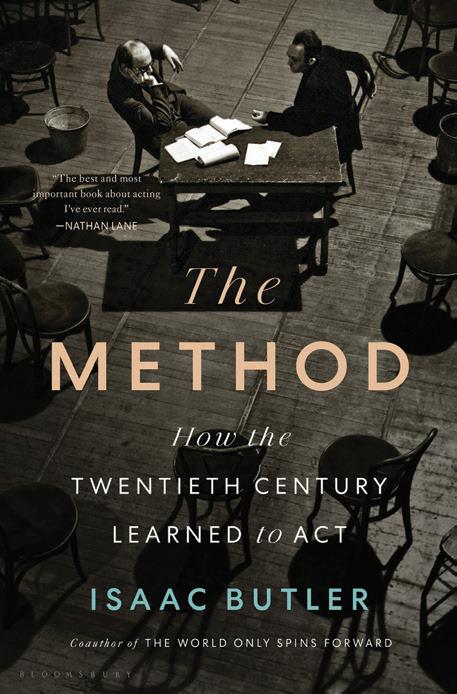
48 CHICAGO READER - JUNE 23, 2022 ll
Isaac Butler examines Stanislavski and his descendants as a many-headed hydra of theory.
THE METHOD: HOW THE TWENTIETH CENTURY LEARNED TO ACT BY ISAAC BUTLER
@Chicago_Reader
COURTESY BLOOMSBURY
Summer Theater & Arts
Siah Berlatsky shakes up Shakespeare
By KERRY REID
Siah Berlatsky just graduated this month from ChiArts, but though she’s taking a gap year before college, the 18-yearold playwright-director-actor isn’t letting the grass grow under her feet. In August, she’ll be part of Artistic Home’s outdoor developmental series, “Summer on the Patio,” with her Elizabethan-style gender-bending romcom, Malapert Love , which she also directs. (“Malapert,” a favorite word of William Shakespeare’s, is both adjective and noun, meaning “saucy,” or “an impudently bold person.”)
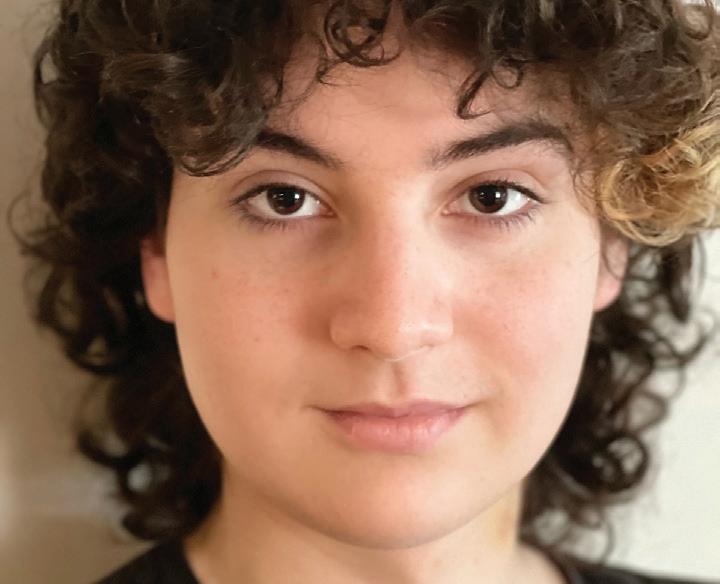
Berlatsky’s play, in which six characters (and a foul drunkard named “Phischbreath”) scheme and (sort of) duel as their hidden affections are revealed, nestles in repertory alongside
those of internationally known writers: David Ives’s Venus in Fur and Jez Butterworth’s The River
I caught up with Berlatsky (daughter of Noah Berlatsky, a longtime Reader contributor) the day after her ChiArts graduation to find out how she ended up being the youngest playwright onstage in Artistic Home’s history, and how being both trans and a fan of Shakespeare combined to help create her play. This is an edited transcript of our conversation.
Kerry Reid: Your play has a lot of fun with the ridiculous comedic tropes of unrequited love and the lengths people go to when
in its throes. What was the inspiration for the story?
Siah Berlatsky: It’s very inspired by Shakespeare. I fi rst started writing it when I was 15, 16 years old and really just starting to experiment with and explore my gender identity and my sexuality and what that meant to me. Shakespeare has, for as long as I can remember, been a huge inspiration to me. The fi rst Shakespeare play I did was in seventh grade. I played Hermia in A Midsummer Night’s Dream . I’ve interacted with Shakespeare for a long time, and I’ve always adored all of the tropes and the stock situations that are used in those plays to sort of advance the language and the poetry. And obviously the queerness and the homoeroticism has always really interested me. So really what the play started out as was that I wanted to make a response to a Shakespeare comedy specifically with all of those tropes that I love so much and make it a more explicitly modern piece.
In terms of coming out as queer and trans, did you fi nd that process easier by being in a high school for the performing arts?
Definitely. ChiArts has been a particularly accepting environment for that. Most of the people that I know there are trans. But it’s not just at my high school. I know lots of other people from lots of other schools that have been very accepting and supportive.
What was the journey with this play? Was it a class project that kind of just kept going?
It started out just as purely a hobby, sort of a passion project thing. I would write it on the bus or the train to and from school on my phone. I didn’t really think that anything would ever come of it. I was just a kid experimenting with art. But there have been a lot of teachers and mentors [at ChiArts], especially Kathy Scambiatterra [artistic director at Artistic Home] who took notice of it and felt that it could be a professional production.
How is the Summer on the Patio program set up and have you started working on the show?
It’s basically a festival with three different
plays, with three completely di erent teams in a very strict process that just really emphasizes the relationship between the actor and the text. We’ve just begun rehearsals. We had our first table read last week and we’ll be performing every Sunday in August.
What are some of the things you’re hoping the rehearsal process might bring out for you and the play?
With theater, there isn’t any insight that is deeper than seeing the play fully performed. You don’t really get to see what the finished product is until you have actors and audience in a space. I’m really just excited to see the work as it was meant to be—viewed and interacted with. Already, I’ve gotten a lot of insights just from the few table reads and I’m just hoping to see more of that, see what works and what doesn’t, to make it the best play that it can be. And hopefully have it produced in the future.
Who are some of the playwrights that you’ve looked to for inspiration aside from Shakespeare?
Defi nitely more classical playwrights—Oscar Wilde and Chekhov are the two whose style I think I enjoy the most. Oscar Wilde, particularly, although, you know, one hopes that my career doesn’t go quite the same way his did. [laughs] But I just love his voice. I love the satirization of cishet societal norms. The way that he does that, I admire greatly. Among more contemporary playwrights, I think probably my favorite would be Tarell Alvin McCraney [Ms. Blakk for President]. I just think that the work that he’s doing in elevating queer voices and the sophistication, the control that he has over his settings and his characters is really brilliant. And definitely something that I aspire to.
What are your future plans?
Well, so right now, I’m looking at taking a gap year. I have a lot of projects that I have to sort of attend to at the moment. Hopefully I would like to go to college in New York or Chicago and pursue a degree in either dramatic studies or English or something that will forward my writing and get me new connections in theater spaces to hopefully branch out, where and with whom I’m producing plays. v
JUNE 23, 2022 - CHICAGO READER 49
@kerryreid
Siah Berlatsky SIAH BERLATSKY
NEXT-GEN VOICE
The teen playwright’s Elizabethan pastiche debuts with the Artistic Home.
OPENING
R Shameless nostalgia
Cruel Intentions: The ’90s Musical tickles the millennial naughty bone.
We all remember where we were when we saw Cruel Intentions. Its iconic soundtrack (anyone else melt to Counting Crows’ “Colorblind”?) and “shameless perversity” (thank you, Buzzfeed, for this spot-on description) have become canon in many a millennial’s coming of age and sexual maturity. Directed by Adrian Abel Azevedo, Kokandy Productions’s Chicago storefront premiere of the 1999 movie’s jukebox musical adaptation is an incredibly fun nostalgia trip that still feels at turns shocking, twisted, and touching in all the right, confusing ways. You love to hate every character, especially Kathryn (Maddison Denault) and Sebastian (David Moreland), whose stepsibling sexual tension and moral bankruptcy wreak havoc on all in their wake. The plot, based on the 1782 French novel Les Liaisons dangereuses by Pierre Choderlos de Laclos: an X-rated bet that Sebastian bed the new headmaster’s daughter before the school year begins.
That the story is told with limited dialogue and mainly lyrics of your favorite 90s songs is a pleasing foil to its chaotic pacing and some problematic/dated plot points (some suspension of disbelief required here). Scenes with the film’s classics “Colorblind” and “Bitter Sweet Symphony” do not disappoint, with choreographer Laura Savage making the relatively small space feel layered and alive with energy. The entire cast
impresses with their vocal performances, delivery of compelling camp, and ability to create an intimacy that verges just close enough to voyeuristic. Anabella Oddo stands out as Cecile (Selma Blair in the movie), using her vocal chops and charming physical comedy to give the “annoying” character depth, growth, and surprising power. —MARISSA OBERLANDER CRUEL INTENTIONS: THE ’90S MUSICAL Through 8/7: Thu-Sat 7 PM, Sun 5 PM; Chopin Theatre, 1543 W. Division, kokandyproductions.com, $40 (students/seniors $30).
RLead in the water
The Flint crisis comes to sorrowful onstage life at Victory Gardens.
I hardly ever start reviews this way, but trust me: stop reading this and hop online to get tickets for Erika Dickerson-Despenza’s cullud wattah now in its local premiere at Victory Gardens under Lili-Anne Brown’s direction. It’s a profound, poetic, scabrous (and beautifully acted) piece of theater that hits at so many levels that I found myself walking in a daze of wonderment, anger, and grief a er emerging from the Biograph.
Dickerson-Despenza’s family drama (though it’s much more than that) examines the effect of the Flint water crisis on three generations of Black women. Like Lorraine Hansberry’s A Raisin in the Sun (or more recently, Lynn Nottage’s Sweat), Dickerson-Despenza’s story is in part about how the twin evils of racism (environmental racism especially) and capitalist exploitation drive wedges between those who want to fight for justice and those willing to compromise themselves and
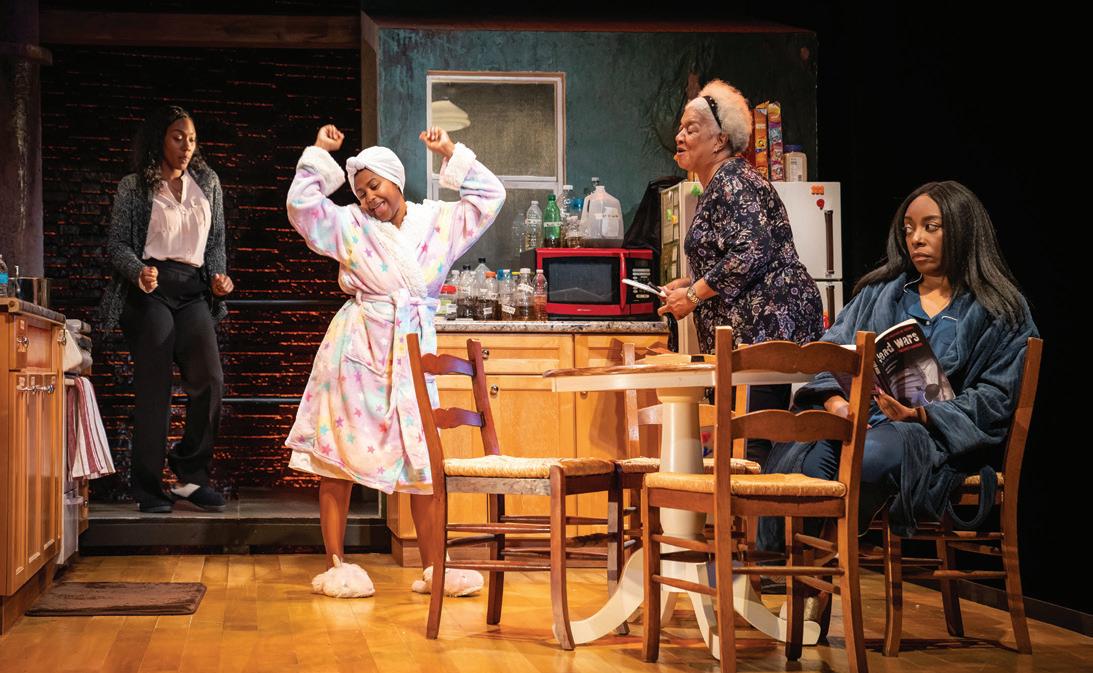
their communities to keep their own families from going under, their own dreams from withering away.
Big Ma (Renée Lockett) is the matriarch of the home, though Brianna Buckley’s Marion, widowed by the Afghanistan war and struggling to keep her job at GM, is the actual owner. Marion’s little sister, Ainee (Sydney Charles), pregnant and struggling to stay sober, watches over Marion’s girls: Plum (Demetra Dee), who, like Beneatha in Raisin, finds comfort in Yoruba rituals (particularly those involving Yemoja, the water deity), and Reesee (Ireon Roach), whose chemo for leukemia (caused by the lead poisoning) causes her to sleepwalk.
Sydney Lynne’s set places large metal pipes that look like a mythic Rust Belt version of a ruined temple behind the small but cozy home where the women try to deal with the lack of clean water—that most basic of human requirements and rights. (How many bottles of water do they need to cook? To clean? Will the lesions on their skin ever heal?) It’s an apt metaphor for this heartbreaking wonder of a play that overflows with history and mystery, love and anguish, small telling details about how these women hold each other up and big-picture truths about how little their lives matter to the People in Charge. —KERRY REID CULLUD WATTAH Through 7/17: Tue-Sat 7:30 PM, Sun 3 PM; Sat 6/25 and 7/16 3 PM only; Wed 6/29 2 PM only; word for word captioning Wed 6/29 2 PM, Fri 7/1 and Sat 7/2 7:30 PM; ASL interpretation Fri 7/1 7:30 PM; audio description/touch tour Fri 7/1 7:30 PM, and Sun 7/10 3 PM (tour begins 90 minutes before show); Victory Gardens Theater, 2433 N. Lincoln, 773-871-3000, victorygardens.org, $29-$62.
The magic is gone Godspell feels dated and preachy.
Every piece of art has a timeliness. When it is born and put into the world, it becomes part of its identity for better or worse. For Godspell, that time has come and gone. First staged in 1971, this musical by Stephen Schwartz and John-Michael Tebelak is painfully dated. That cannot be fixed no matter how many contemporary references are crammed into this show, which only make it feel older than it is. Those references are by design, a way to keep the material fresh and timeless, but the opposite occurs. When the music itself is stuck in a certain time, the quips are awkward.
The heavenly voices of Theo Ubique’s angelic ensemble (directed by Christopher Pazdernik) cannot resurrect this relic. Godspell is more akin to a youth church camp musical improv showcase than traditional musical—even Jesus Christ Superstar feels young compared to this tired work.
A series of biblical parables set to flower-child rock opera, this “Baby Shark” infested musical makes for a long two-hour runtime. Which is really too bad because the performers and musicians (led by musical director Jeremy Ramey) are undeniably talented. But Godspell doesn’t have much of a plot to hold on to other than the loosely tied parable strings.
Laz Estrada’s soothing melodies paired with Austin Nelson Jr.’s range could save more souls than one could count. Even so, Godspell has lost its magic. Certain audiences may find themselves spellbound, but this boring, preachy musical is likely to have its nonbelievers.
—AMANDA FINN GODSPELL Through 7/31: Thu-Sat 7:30 PM, Sun 7 PM; Theo Ubique Cabaret Theatre, 721 Howard, Evanston, 773-939-4101, theo-u.com, $42-$54 (three-course meal from La Cocinita available for $29 per person).
R Big-box blues
Steep returns to live shows with a dark workplace comedy.
On the wall of the big-box retail warehouse that forms the setting for Eboni Booth’s Paris, now in a midwest premiere at Steep Theatre under Jonathan Berry’s direction, there’s a sign reading: NOBODY CARES.
WORK HARDER. It’s a stark enunciation of the realities of late-stage capitalism and consumerism.
The title refers not to the City of Lights, but to the sad little Vermont burg where Emmie (Amber Sallis) has returned in 1995 a er a year of college in Washington, D.C. Though she grew up in Paris, nobody seems to believe her—which seems to be a racial microaggression (Emmie is Black). The Emmie we first meet seems pretty introverted (for reasons we come to understand). Manager Gar (Terence Sims), who is also Black, isn’t surprised that she couldn’t get hired to work the register at another store in town. He gives her a chance (and a choice of name tags between “Emmie” and her actual full name, “Emmani”), but there’s not much to celebrate this season. Not even for Gar, who has found his own enterprising way to supplement his wages.
Emmie’s coworkers, including alcoholic middle-aged former nurse Wendy (Lynda Shadrake), who’s married to the town traffic cop, Dev (Alex Gillmor); bitter single mother of four Maxine (Michaela Petro, in fine tear-yourhead-off-if-you-look-at-her-wrong mode); and wannabe rapper kid Logan (Alex Levy) bounce off each other like rats in a cage. Sometimes they’re kind, sometimes they’re cruel. But mostly, just exhausted and beaten down by the grind, they share illicit shots of booze on
50 CHICAGO READER - JUNE 23, 2022 ll
From le : Brianna Buckley, Ireon Roach, Renée Lockett, and Sydney Charles in cullud wattah at Victory Gardens LIZ LAUREN
THEATER
THEATER


the clock and gossip to pass the time. The appearance of the fearsome Carlisle (Josh Odor), with whom Gar has made his extracurricular arrangements, adds an element of danger that’s le dangling at the end of the play. But what comes across clearly in this work—the first live production from Steep since 2020, and the first in their new space on Berwyn—is that Booth is a fierce and funny writer to watch.

—KERRY REID PARIS Through 7/23: Thu-Sat 7:30 PM, Sun 3 PM; audio description and touch tour Sun 6/26, open captioning Sun 7/3; Steep Theatre, 1044 W. Berwyn, 773-649-3186, steeptheatre.com, free, but reservations required.


Pleasant posies
Drury Lane’s Steel Magnolias is comforting, but not challenging.






My daughter tells me she likes the 1989 movie version of Steel Magnolias because you can have it running in the background while you do other things, and still more or less follow the plot. The 1987 play the movie is based on has the same virtue. You don’t really have to use all your brain cells to get the gist of what is going on—a group of southern women in a small Louisiana town regularly get together at Truvy’s beauty salon and talk about stuff. The frequently revived play certainly has its virtues—Robert Harling’s dialogue is witty, the characters have enough depth to give actors something to chew on, and the story is sweet, shallow, and inoffensive—but if you go hoping to learn something new about the world, you are at the wrong show.
The current revival at Drury Lane, directed by Johanna McKenzie Miller, brings out the best in Harling’s material. The pitch-perfect cast makes all of Harling’s lines glitter; they flesh out this rather slow-moving—and at times very predictable—slice-of-life narrative. (Believe me, over the course of this two-hour-plus long play, you will have lots of time to drink in Angela Weber Miller’s wonderful, eye-pleasing set.) Every actor in the ensemble gets her star turn, and makes the best of it. Janet Ulrich Brooks is particularly winning as the sharptongued local eccentric, Ouiser. —JACK HELBIG STEEL
MAGNOLIAS Through 8/7: Wed 1:30 PM, Thu 1:30

and 8 PM, Fri 8 PM, Sat 3 and 8 PM, Sun 2 and 6 PM; Drury Lane Theatre, 100 Drury Lane, Oakbrook Terrace, 630-530-0111, drurylanetheatre.com, $64-$79.

RThe celluloid closet
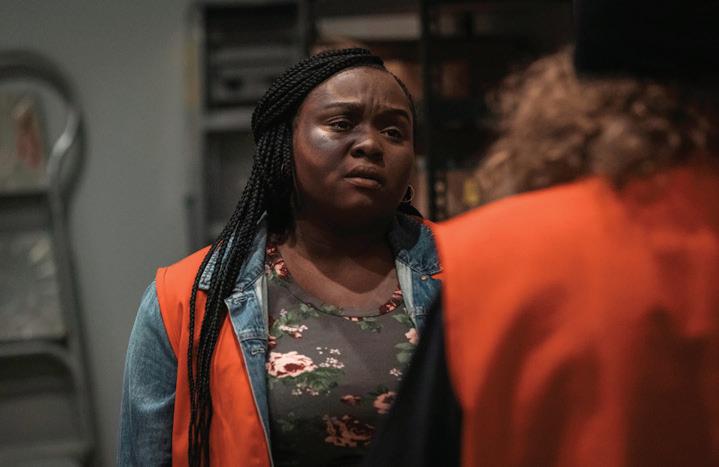
A gay Hollywood star faces being outed in a PrideArts farce.
The Chicago premiere of British playwright Chris Woodley’s Tommy on Top, now playing at Pride Arts Center, is a witty farce that elevates crucial questions about representation and authenticity in contemporary media.
The show is centered on Tommy Miller (Ryan Cason), a closeted actor who’s just been nominated for his first Academy Award. He’s the favorite to win, and his boyfriend George (Patrick Gosney) and sister Molly (Theresa Liebhart) have joined him at a suite in Beverly Hills to celebrate ahead of the ceremony. However, their evening takes a turn when a celebrity blogger threatens to out Tommy with some photos of him and George. At the request of his manager, it’s been paramount that Tommy hide who he is for the sake of his career, especially since no openly gay man has ever been awarded an Oscar for performing.
From there, the throughline of Tommy on Top is whether he and his team can pull off a ruse to prevent the blogger from revealing the photos. But the more compelling question that emerges is whether or not Tommy will ever get to live an authentic life and maintain his position as a Hollywood heartthrob.
In spite of the silliness that the group concocts to protect Tommy, the stark realities of what it means to be gay in Hollywood are never lost on the characters or the audience. Director Jay Españo successfully blends the show’s slapstick comedy and of-the-moment references with the hard truths that Tommy’s predicament reveals about the biases that persist in environments that claim to have progressed past them.
—KATIE POWERS
TOMMY ON TOP Through 7/17: Thu-Sat 7:30 PM; also Sun 7/3-7/17 3 PM; Pride Arts Center, 4139 N. Broadway, pridearts.org, $35 ($30 students/seniors). v
JUNE 23, 2022 - CHICAGO READER 51
SEASON SPONSOR 847-242-6000 I WRITERSTHEATRE.ORG PICTURED: FELICIA P. FIELDS. PHOTO BY MICHAEL BROSILOW JUNE 23 - JULY 24, 2022 TICKETS ON SALE NOW TONY AWARD NOMINEE RETURNS TO WRITERS THEATRE!
Amber Sallis and Alex Levy in Paris at Steep Theatre RANDALL STARR
Find new film reviews every week at chicagoreader.com/movies
NOW PLAYING
R Beba
A person is more than the sum of their parts, but sometimes it is crucial to examine the parts so the sum can be better understood. In her debut documentary writer-director Rebeca Huntt examines the details of her Afro Latina heritage to provocative effect, embracing the beauty as well as the scars that blight her and her family’s history. A self-proclaimed daddy’s girl, she’s especially close with her father, an immigrant from the Dominican Republic who came to the United States to escape General Trujillo’s despotic rule; her mother, with whom she has a more complicated relationship, hails from Venezuela, where Huntt (nicknamed Beba by her mother) as a younger girl enjoyed a certain lyrical freedom she’s never experienced stateside. She also profiles her siblings, an older sister and brother who are similarly complex, likewise impacted by generational trauma and the difficult living arrangements (the whole family shared a rent-controlled one-bedroom apartment near New York City’s Central Park) that exacerbate strained familial tensions. Lastly, Huntt interrogates her college experience at Bard, where she was but one of a handful of minority students, and what’s come a er, delving into the unique circumstances of temporarily dallying among the privileged class and exiting that fabled microcosm with more questions about their inborn entitlements than answers. Huntt doesn’t let herself off the hook, however, confessing past indiscretions and generally showcasing some of the more impudent parts of herself with aplomb. Poetically shot and edited, it’s an audacious coming-of-age documentary-memoir that’s wholly singular to the filmmaker herself. —KATHLEEN SACHS R, 79 min. Currently screening at festivals
Brian and Charles
Brian is a solitary eccentric living on a shambling property in rural Wales. He passes his days in his workshop cobbling together inventions that seldom work and no one asks for or needs, such as a flying grandfather clock
that never leaves the ground but does burst into flames. Undaunted, Brian decides to up the ante by building a robot, which, miraculously, comes to life. Charles has a mannequin head, rubber gloves for hands, and a washing-machine torso. But the rest of him is quite obviously human. His hodgepodge construction neatly describes the disjointedness of the film he’s in.
A crazy quilt of Pinocchio, Wallace and Gromit, Rain Man, and a dozen other movies and books, this is a film that can’t settle on a tone or approach. Mockumentary one minute, fairy tale the next, it expects the viewer to embrace characters who are clearly troubled and to accept their quotidian challenges as endearing. The filmmakers confuse saccharine sentimentality for actual emotion by resting their elbows on the scale any time Brian (David Earl) or Charles (Chris Hayward) are to be sympathized with in their travails. No matter how badly they’re picked on or maligned, their troubles never feel believable because the stakes are so low and their eventual triumph is never in less than zero doubt. By the time Brian packs Charles off on a train to see the world, I’d long since hightailed it out of town. —DMITRY SAMAROV PG, 90 min. Wide release in theaters
R Elvis
Baz Luhrmann’s Elvis is a maximalist dream. It’s a loosely focused biopic of one of America’s greatest musical creations that jumps and shimmies through the early infatuation of the young Presley with the Black gospel music of his downtrodden youth, to the stardom of his 20s and 30s, and through the his decline into drugs and despondency. Flashes of color, lightning cuts, and the camera spins and needle drops are at times overwhelming, but it’s an overall enjoyable experience that washes over you in waves of excitement.
Austin Butler does an excellent job expressing the barrage of emotions that Presley undergoes in his meteoric rise and fall, evoking pathos through his eyes. And the performances throughout the film are poignant reminders of the lasting impact Elvis has on American pop culture.

Luhrmann’s film is best described as hagiography; events seem to happen to Presley—run-ins with the law, financial crisis, family drama—without any real insight into how our hero causes or contributes to them. Even the assassinations of Martin Luther King Jr. and Bobby Kennedy are shown less in terms of their cultural impact and more as things that cause Elvis to have a bad day. Elvis’s relationship with the Black community is portrayed as one of a friendly enthusiast who’s welcomed into the fold and suffers more consequences from the white political elite than the Black musicians who were unable to reach his stature due to their race, who he uses as mentors and confidants.
More confusing than some of the quick cuts, temporal shi s, and squeaky-clean race relations is Luhrmann’s choice to utilize manager Tom Parker (Tom Hanks) as the narrator of this story. He’s a character who I doubt even a mother could love, played with an accent from Hanks that can most charitably be described as “ethnically insensitive to Cajuns.” It’s a bizarre choice of a narrator who offers surprisingly little insight into his actions and who we spend more time hating than wanting to learn information from. —ADAM MULLINS-KHATIB PG-13, 159 min. Wide release in theaters
RFreedom Uncut
I have grown weary, over the course of his three-decade career, of attempting to explain George Michael to themwhats who insist on reducing a multifaceted career to some variation of peak-80s-culture punchline, aka, the guy with the hair in the shorts dispensing such lyric gems as “Wake me up, before you go go.” Oh ye of, forgive me, little faith. You’d expect a documentary made by George Michael himself (this is his final work before his death in 2016) to be at least a little flattering to the subject, and so Freedom Uncut is, as everyone from supermodels (Naomi, Cindy, Linda) to superstars (Elton, Aretha, Stevie, Mary J.) speak to Michael’s music, his musical legacy, and the spellbinding persona he created to fill arenas (and ultimately refused to market resulting in a massive legal fracas with Sony).
But Freedom is also a can’t-look-away chronicle of the 1980s, the decade that saw the superstar ascents of Annie Lennox, Prince, and Madonna, and Michael Jackson as a thrilling solo artist who could not be beat. Watching the 80s through the lenses of its superstars is its own glossy and compelling reward, but Freedom also depicts the carnage of the decade, when the HIV virus tore through the world without mercy or viable treatment, targeting Michael’s first love, Anselmo Feleppa, among its other victims. At one point we see footage of David Bowie beaming backstage while Michael does a tribute to Freddie Mercury, the arena crowd singing along in massive unison to “Somebody to Love.” Like all the music packed into Freedom, it warrants setting your speakers and whatnot, all of them, to stun. This one in particular: Michael is singing a tribute to a man who died of AIDS. And he is singing it to Anselmo, knowing full well that they might be separated by the same disease. Michael calls it the “loudest prayer” he ever made. It’s still worth turning up. —CATEY SULLIVAN 87 min. Wide release in theaters
Jurassic World: Dominion
Jurassic World: Dominion, the sixth installment in the Jurassic Park franchise, sets up a dual storyline by bringing back the stars of the original film—Dr. Ellie Sattler (Laura Dern), Dr. Alan Grant (Sam Neill), and Dr. Ian Malcolm (Jeff Goldblum)—and pairing them with the heroes of the current trilogy: former Jurassic World staffers and current dinosaur conservationists Owen Grady (Chris Pratt) and Claire Dearing (Bryce Dallas Howard).
Themes of man-made environmental destruction and the hubris of scientific development le unchecked to its unintended consequences permeate the film. Several years a er the destruction of Isla Nubar and Jurassic World, dinosaurs have spread across the globe, precariously co-existing with humankind. Plagued by poaching, illegal breeding, and abuse, dinosaur protection is entrusted to the mega-conglomerate Biosyn. When a plague of prehistoric locusts seemingly tied to the firm threatens to disrupt the global food supply, our dual set of heroes set out to discover the true motivations of the firm.
Performances and editing are poor in parts—there were audible awkward laughs and groans from a friendly audience at moments during the screening I attended— but that’s largely not what these films have ever done well. The drama stems not from the relationships of the characters but from the various dinosaur chases that occur, and the comedic quipping of our characters as they try to escape their preposterous circumstances. And while there’s never really a sense of true danger for our heroes, we get just enough of the range of CGI dinosaurs and their weird traits to keep Jurassic World: Dominion entertaining. —ADAM MULLINSKHATIB PG-13, 146 min. Wide release in theaters v
52 CHICAGO READER - JUNE 23, 2022 ll FILM
Elvis WARNER BROS. PICTURES
R READER RECOMMENDED b ALL AGES N NEW F


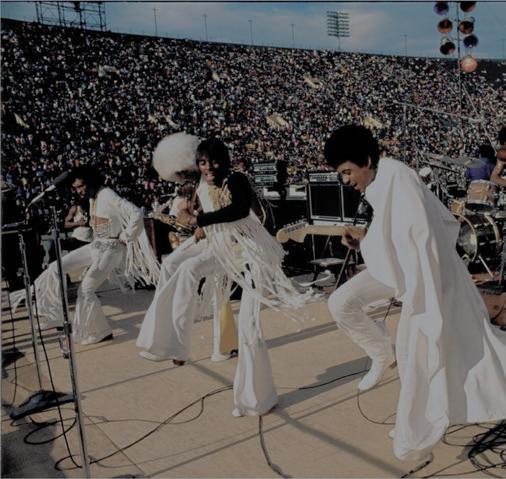
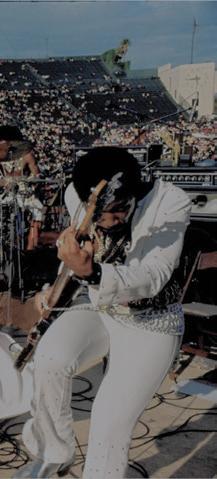



















































































































































































































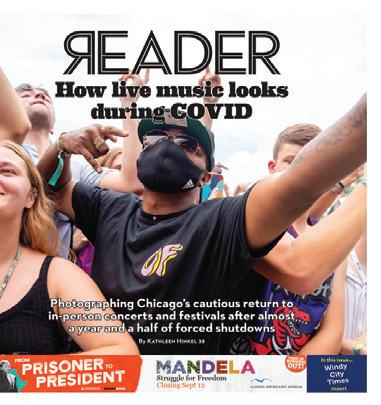




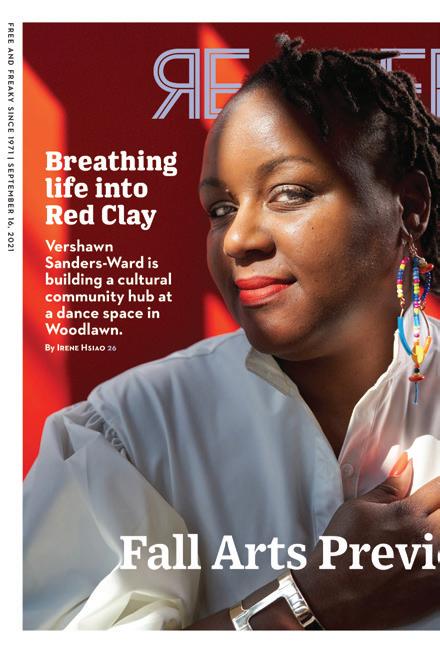


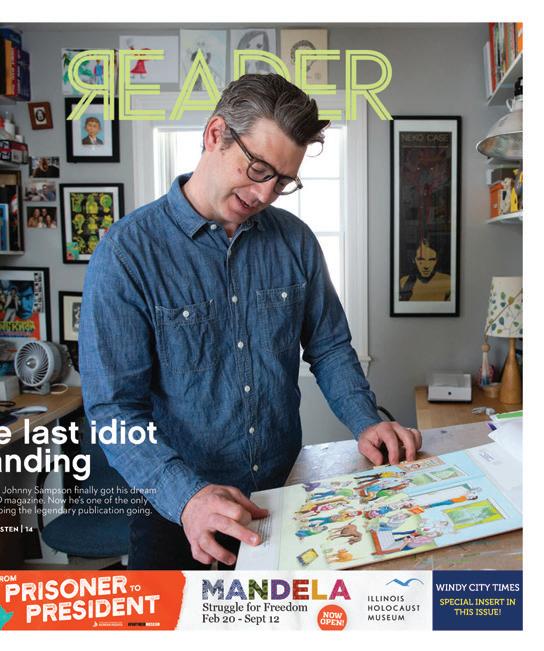





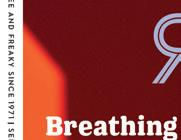

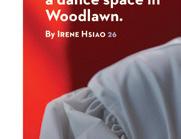











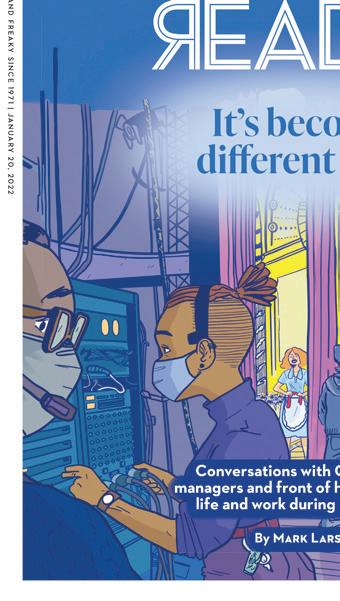






JUNE 23, 2022 - CHICAGO READER 53 IN CONCERT CONCCERT MONTEReYPOP • SUMMEROFSOUL • WOODSTOCK:the MOONTEReY Y POP SUMMER O OF SOUL W WOODDSSTOOCK: t the DIRECTOR'SCUT • ZIGGYSTARDUSTandthespiders DIIRECCTOOR'S CUT Z ZIGGY STTAARRDUSST and thhe spiideerrs frommars • WATTSTAX • GIMMESHELTER+MORE! f frrom maars WATTTSTAX G GIMME E SHELLTER + MOORE! ! siskelfilmcenter.org/concert musicdocseries music doc series July1-31 July 1 - 31 Providing arts coverage in Chicago since 1971. chicagoreader.com We Couldn't Be Free Without You— Support Community Journalism chicagoreader.com/donate
Summer Theater & Arts
Ghost of drive-ins past?
The best of Chicago’s outdoor screenings keep the drive-in legacy alive.
By MAXWELL RABB
Bogged down by the rise of at-home movie screenings and big mall theaters, the appeal of the drive-in has faded away into a faint memory, leaving us with a mythology of first dates, family barbecues, and community. Now more than ever, streaming has stolen our attention, and the once immensely popular outdoor movie venue with nearly 4,000 U.S. locations at its all-time high has waned down to a meager 305 theaters.
With more people prone to staring at phones or computers, movie watching is suddenly a lonely, individual experience. With every movie at our fi ngertips, the fi nal nail is hammered into the drive-in theater’s coffin. But why do we need to stay locked in the house for a movie night? Or a major premiere?
Warm weather has thawed out Chicago, and more importantly, freed us from social hibernation—meaning it’s time to pry ourselves away from the screens that kept us warm through the winter. But that doesn’t mean you need to propel yourself into unwanted socializing immediately. And with the rippling effects of the pandemic, everyone is a little slow to the punch. Trying
to adapt to a time without consistent social gatherings, the last two years sparked a renaissance of the open-air theaters, reviving the special memory of meeting to catch a movie together.
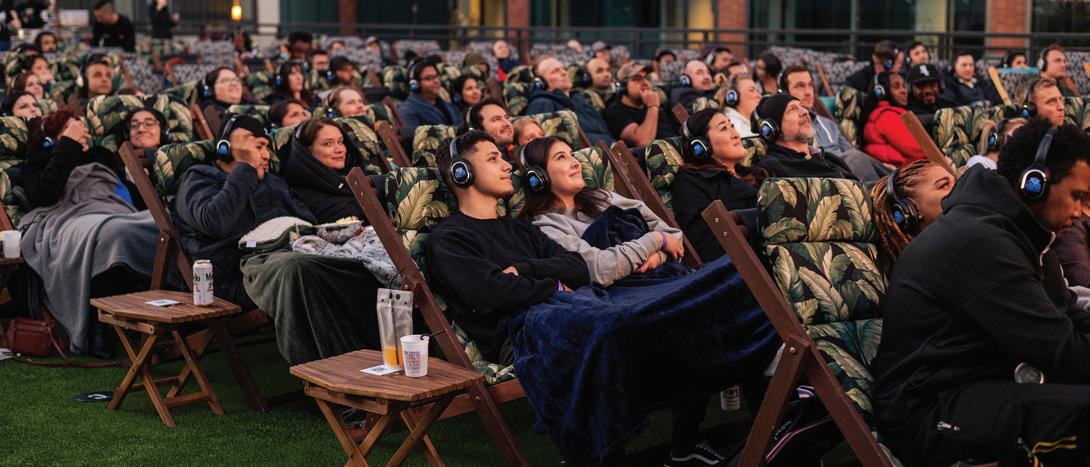
Chicago summer is spilling over with exciting events, so when trying to balance it all, there is no shame in feeling some exhaustion. On the days when it’s necessary to slow down, there is a clear solution to avoid throwing a beautiful day or evening away by holing up inside. Open-air theaters and outdoor movie showings happen nearly every single day of the summer, so there are plenty of options for every type of movie mood.
From the comfort of your car or on a picnic with friends, Chicago’s outdoor movie screenings have resuscitated the alluring drive-in experience, so screentime can be spent with others all summer long.
Chicago Onscreen
Despite lasting only a single week, it would be a mistake to miss the Chicago Onscreen Local Film Showcase. Whether you just love short fi lms or want to support local artists, this showcase will feature Chicago-focused films that are guaranteed to contend with
any major blockbuster. This year’s event will be held between August 29 and September 3 and will premiere films including Ray & the Agave, Room Rodeo, and Teacher in the Window.
Night Out in the Parks
This summer, the Chicago Park District is exceeding expectations by hosting more than 100 outdoor movie screenings. The park district is holding family-friendly fi lm showings at Oz Park, Humboldt Park, Wicker Park, Osterman Beach, and many more. Make sure to bring dinner picnic supplies any time through August 27 to enjoy beloved classics including Ferris Bueller’s Day Off (June 23 at Holstein Park), The Devil Wears Prada (July 7 at Bartelme Park), or Soul (July 8 at Peterson Park).
ChiTown Movies Drive-In
Pilsen’s ChiTown Movies is a charming hideaway designed to fulfill your drive-in dreams. This theater is tucked away at the end of Throop Street, making it the perfect date spot or family movie night choice. Every spot in the lot gets a remarkable view of the extra-large screen. Every week, the revived
drive-in theater features blockbusters such as Friday the 13th, Shrek, and Encanto. To top it o , you can order snacks and drinks directly to your car.
Millennium Park Summer Film
The Millenium Park Summer Film Series is Chicago’s most popular, awe-striking outdoor movie option. Beneath the skyline, movie lovers can snag a spot on the Great Lawn (as long as you arrive early) to watch some of their favorite movies. The fi lm series runs from July 12 to August 30, playing movies including In the Heights (July 12) and Dirty Dancing (August 2).
Movie Night at Gallagher Way
Every Wednesday through September 21, Gallagher Way—the small sister park of Wrigley Field—hosts an outdoor movie screening fit for a family outing. Starting with Josie and the Pussycats and ending with Bohemian Rhapsody, there is a chance to gather and watch one of your favorite movies on the giant digital screen.
Rooftop Cinema Club
Located on the fi fth-floor terrace at the Emily Hotel in West Town, the Rooftop Cinema Club delivers an opulent outdoor theater experience, complete with a cushioned chair, headphones for audio, and, to top it o , a full food and drink menu courtesy of the hotel. The outdoor theater will host screenings nearly every day this summer, including Breakfast at Tiffany’s (June 26).
Water Flicks at Navy Pier Summer Film Series
With the view of the lake and the Centennial Wheel, it is tough to beat the location of Navy Pier’s Summer Film Series. Hosted on Mondays from July 11 to August 29, the fi lm series will show cherished movies like Minari (July 25) and cult classics such as Are We There Yet? (August 29). Typically strung together by a theme, this year’s Water Flicks feature movies about family—the good, the bad, and the ugly. v
54 CHICAGO READER - JUNE 23, 2022 ll
@Chicago_Reader
People enjoy an outdoor movie at Roo op Cinema Club. ROOFTOP CINEMA CLUB
OUTDOOR MOVIES
Summer Theater & Arts
Showcasing Black actors in foreign cinema
A Chicago film series is helping audiences experience the long and rich history of international films with Black stars.
By ARIONNE NETTLES
When Floyd Webb was 20 years old, he left his hometown of Chicago to go live abroad. It was 1974 and also the spark of a decades-long journey of traveling to over 50 countries. And as he did so, there was one constant: movies.
Webb went to the movies every place he went, he explains, and through that travel, the vast number of films with Black actors came into view.
“I had access to fi lm programs, like at the [National] Film Theatre, on the South Bank in London, and they would have fi lms in the afternoon,” Webb says. “I worked in that area and I used to walk over there to watch fi lms. And suddenly . . . I started discovering Black actors who turned up in foreign fi lms.”
And for Webb, this discovery was huge because growing up, he didn’t see many Black actors. It’s why Sidney Poitier—as one of the most famous actors of all time—became a beacon of light for Black fi lm. The fi rst Black man to win a competitive Oscar, Poitier rejected roles that were stereotypical and paved the way for other Black actors. But of course, sadly, there were not many Black actors in his position.
“When Sidney Poitier came along, he was changing [the] game—he was that powerful, self-realized character with agency, but there were very few fi lms like that,” Webb says. “He was coming out of the American neorealism period immediately after World War II.”
As Black actors in the U.S. continued to struggle for roles, the presence of Black actors had exploded across the globe since the end of World War I. Yet, today, the richness of this history is not always something the
average Chicago moviegoer can experience. But a new international fi lm series is aiming to change that.
Webb is the curator of the Black Actors in Foreign Cinema screening series, co-presented by nonprofit media arts organization Chicago Filmmakers and his company, the Blacknuss Network, which has an alternative streaming service to watch Black fi lms. This series is meant to give audiences a taste of some of the many international films featuring Black actors that were out even long before Webb fi rst left for abroad.
The foundation of this work goes back to Webb’s work as the creator of the Blacklight Film Festival.
“I founded a film festival back in 1982, basically, to highlight and showcase new alternatives and radical works that were coming out,” Webb says. “Because there was a movement in the late 70s, early 80s, we got a sudden boom in Black independent fi lm production. But it was not only here, it was like all over the world.”
On June 11, the fi rst fi lm in the series, Kiku and Isamu, screened at Chicago Filmmakers in Edgewater. The 1959 Japanese film stars two orphans—the children of a Japanese prostitute and Black GI—as they search for answers about race. After the showing, Emiko Takahashi, who played Kiku in the fi lm, joined the audience virtually from Japan for a discussion.
“I was wondering after I saw the film, I said, ‘Whatever happened to her? Did she stay in Japan? Was her life pretty much like this young girl’s in the fi lm?’ And she answered all those questions for us,” Webb says.
Without Pity, a 1948 fi lm from Italy, is the next fi lm in the series, and it will screen on July 23. Set at the end of World War II, it’s the story of a Black sergeant stationed in northern Italy who works to save his girlfriend. The fi lm, which was briefly available in the U.S., was later banned in the U.S. and in Germany because it includes an interracial romance. But in Italy, it was a box o ce hit.
The role of protagonist was perfect for John Kitzmiller, who was, himself, a Black soldier. He was also stationed in Italy and rose to the rank of captain.
“He stayed in Europe after the war because his family had died while he was in the war, and he decided not to come back,” Webb says. “Carlo Ponti, an Italian director, saw him in a bar one night and heard his voice and said, ‘Wow, he can use it in the movies.’ And he did.”
The series’ third film, The Proud Valley, stars one of the most famous actors of his time: Paul Robeson. In the 1940 film from Wales, Robeson plays a Black sailor who
deserts his ship and fi nds a job in a mining community.
“It’s Paul Robeson supporting . . . his core beliefs,” Webb says. “He was totally supportive of working people and I think it’s really interesting when you see actors who live what they believe, they find the roles that are reflective of the things that they believe.”
Last up in the series is Daïnah la Métisse, which will be shown on September 17. This 1932 French short is set on an ocean liner and is a mysterious story of fl irting, race and class dynamics, and a missing wife.
“This combination of desire and Renoir Charleston film, and this actor and this actress, the story of a Black magician, performing on a boat . . . with his kind of curious wayward wife—it’s really special,” Webb explains. “Black-and-white images are just so beautiful and so absurd. There’s a lot of surrealism in this fi lm.” v
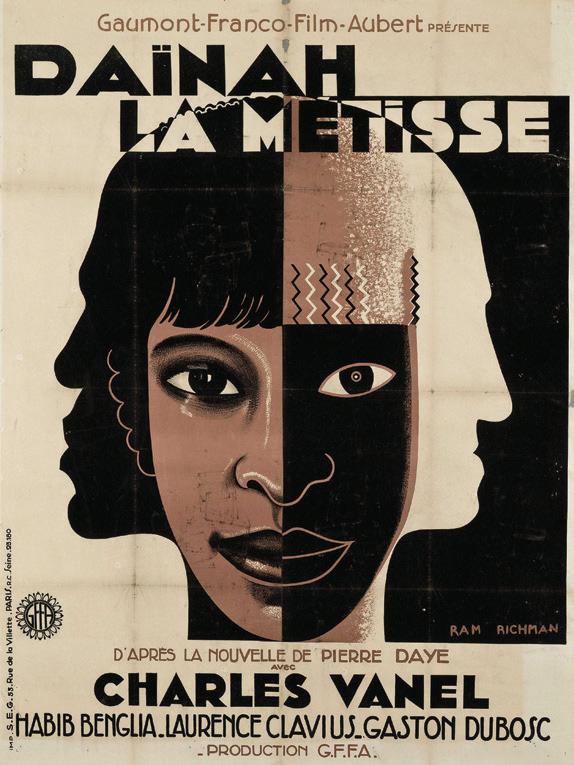
JUNE 23, 2022 - CHICAGO READER 55
@ArionneNettles
A Daïnah la Métisse poster CHICAGO FILMMAKERS
SCREENING SERIES
By KIRA LEADHOLM
Rethinking concert safety
Police and security are meant to keep concertgoers safe, but what happens when they do more harm than good?
In summer 2020, as America reckoned with a sickness in its system of law enforcement, so too did the music community interrogate the role of police and hired security at concerts. Like the municipalities that explored community-based alternatives to policing, activists wondered what might
replace the imposing CPD tower at Lollapalooza or confrontational security guards at local venues. The Union of Musicians and Allied Workers (UMAW) even formed an abolition committee in solidarity with police- and prison-abolition movements.
The live-music industry supports and relies upon police and police-adjacent security in myriad ways, and severing its connection to policing is no small task. Music venues in gentrifying neighborhoods can contribute

to the overpolicing of these communities. Retired and off-duty police officers often staff private security forces, and in Illinois, former and current officers don’t have to complete security firearm training. And perhaps most obviously, the presence of police or security is usually a given at all but the smallest licensed music venues. (Unlicensed and DIY venues are another matter, of course.)
Law enforcement at concerts can seem like
a necessary evil—bringing together a large number of people who are likely to be drinking or using drugs often leads to physical altercations and medical emergencies. But hired security and police are frequently ill-equipped to keep concertgoers safe in those situations. What viable alternatives exist to the status quo? Music venues have reopened to a society that’s reexamining its relationship with police, and many of them are asking themselves this question.
56 CHICAGO READER - JUNE 23, 2022 ll
DANIEL
ZALKUS FOR CHICAGO READER
Do police and hired security have a place in live music? Or is the community of fans, artists, venues, and presenters better able to keep itself safe?
Some Chicago venues implement reform, others only talk
Racism is baked into modern policing practices. Since 2015, Black Americans have been killed by police at a rate more than twice as high as white Americans, according to an analysis by the Washington Post that began with data from that year. Of the 49 people killed by police in Chicago since 2015, 36 were Black, according to the same data. So when Chicago erupted with protests in summer 2020, it wasn’t only about abolition. Activists were calling to dismantle a system that relies on white supremacist values to regulate society.
For music venues, heeding this call has meant adopting measures to keep all patrons, artists, and staff safe—specifically those of color. And while some venues implemented meaningful reform, others responded in ways that felt performative or dismissive.
In summer 2020, a business posting on social media without acknowledging the ongoing, generation-defining struggle for racial justice could seem tone-deaf and callous. So when South Loop rock venue Reggies tweeted about reopening its patio a few days after the George Floyd protests broke out, a Boston-based artist manager (who asked to remain anonymous to protect his clients) felt it demonstrated a disregard for promoting anti -racism. He’d been primed to react that way, he explains, by memories of Reggies security o cers he says were racist toward his Black clients.
“Pretty much every time I’ve been through Reggies—and you know, this could be coincidental, maybe it’s not—but it’s Black artists, specifically, that I’ve had bad experiences with,” he says.
In 2017, one of the manager’s clients, a wellknown rapper, played a Lollapalooza aftershow at Reggies. When the artist and team tried to enter the building, the manager says, security assumed they were gate-crashing and became aggressive. “[Security] was, for whatever reason, questioning our credentials,” he recalls. “It’s humiliating, you know, to go to a show where you’re billed, being paid to perform, and security’s basically like, ‘Get the fuck out of here.’”
Credential checks are essential and a sign of diligent security, the manager says, but the
problem lies in what he sees as the guards’ assumption that a Black artist must be trying to game the system and sneak people into the show. (Reggies employs in-house security personnel.) This assumption reinforces the criminalization and overpolicing of Black musicians. He says this issue isn’t unique to Reggies; it’s a consistent problem in venues across the country.
Communication, the manager says, can prevent some of these issues. “What makes for great security is when they’re communicative,” he says. “When there’s an e ort on security’s side to understand who the personnel is.”
Reggies did not respond to repeated requests for comment.
Metro has received similar criticism, though not for being silent at the wrong time. Days after George Floyd was murdered, Metro sent an email to subscribers with the subject line “How can you combat racism?” To K.D., a former audio engineer and artist manager who’s going by her initials to protect past clients, the email felt disingenuous. K.D. went to Metro only as a patron, not in her professional capacity, and in her view, she says, the security at the venue acted racist every time she attended a show.
“Their security were assholes. That’s the best way I can put it,” K.D. says. “And it seems like when I was with certain people, it was heightened. Because I’m not white, but I’m white passing.”
K.D. recalls a Big K.R.I.T. concert she attended in 2015 with a friend. When the two of them went through security, K.D. says the guards spent extra time patting down her friend, a Black man, compared to white patrons. “It was like they was checking him for weapons and things like that. They went out of their way to just do extra, like going under his arm, checking genitalia, his rear. He was uncomfortable,” she says.
In response to a particularly bad experience with security at Metro in 2013, K.D. took to Facebook to tell her story. The post received comments from four or five friends, she says, who’d had similar experiences.
“I don’t think that they actually look to combat racism, just by the way they treat their patrons,” K.D. says, explaining her reaction to Metro’s email. “It’s almost like they’re doing it just for marketability.”
Metro declined to comment for this story, but it did point to its safety policy: “Metro does not tolerate acts of violence, victimization, or predation. We always encourage
our patrons to voice their concerns and want you to know that we not only hear you—we support any e ort that makes our local music scene safer and more equitable.”
Other venues used the protests as an opportunity to revise their approach to concert safety. In summer 2020, Schubas Tavern in Lakeview circulated a list of alternatives to calling the police among staff and posted safety information around the venue. The safety info is still up today, and the sta list remains in force. “We’re always constantly re- evaluating and looking at where we can improve, but with security, we’ve really been communicating to the patrons in the venue that security is a resource to them,” says Dan Apodaca, talent buyer at Schubas.
Schubas made headlines late last year when its CEO and president, Michael Johnston, faced accusations of secretly videotaping two women in his home; each had worked for him in several roles, including nanny, house manager, and personal assistant, and he used hidden motion-activated cameras to film them in the bathroom. Johnston has pled not guilty. In March, two more women—a former dog- and house-sitter and a former housekeeper—accused Johnston and his wife of illegally videotaping them, according to Block Club. Johnston’s attorney did not respond to a request for comment regarding the recent charges.
Audiotree, the parent company of Schubas and sister venue Lincoln Hall, removed Johnston from his positions following the first set of accusations, and Apodaca says that Schubas has enhanced its workplace safety measures.
“We’re refining and expanding our internal training practices for every employee and equipping our managers with the tools to lead recurring pre-shift training and discussion sessions with sta on various topics like bystander intervention and the avenues available for reporting workplace harassment,” Apodaca writes in an email. He also says the venue will continue to do everything in its power to ensure patron safety at its concerts.
Even before defunding the police entered mainstream conversation, Apodaca says, Schubas emphasized de-escalation strategies, collaborated with Our Music My Body, and treated calling the police as a last resort. The venue employs in-house security, which Apodaca sees as preferable to outside security because guards feel accountable to the venue. “I think that helps reinforce our philosophical approach of security being as much a hospitality role as a security role,” he says.
The Golden Dagger, a small venue in Lincoln Park formerly called the Tonic Room, also employs in-house security trained in deescalation strategies. “When we hire security, we specifically ask if they are able to intervene and protect the venue in moments of contention without calling the police,” says Zoey Victoria, talent buyer for the Golden Dagger.
If Victoria had to call the police—which at the time of our interview she hadn’t yet—she says she would notify everyone within the venue. “The bottom line is, if we call the police to our venue, we are making it unsafe for people,” she says. “We have a really big queer audience, a lot of young people, and a lot of people whose identities don’t necessarily allow them to be protected by the police.”
Victoria says it’s incumbent upon talent buyers and venue owners to adopt an antiracist and abolitionist ethos. “It’s really easy to talk a big talk and make the Instagram post and donate to the big organization,” she says. “But what needs to happen right now is direct mutual aid and uncomfortable conversations in meeting rooms.”
Community policing at concerts
The propensity of police and venue security toward confrontation and racial bias may result in part from poorly conceived training. Data suggest that the increasingly common military-style approach to training primes recruits to act as soldiers rather than as mediators, which all but encourages violence. And the training used by CPD and private security to address implicit racial bias appears inadequate as well.
A national study published in 2016 on the training of nearly 135,000 recruits in 664 state and local police academies found that recruits received on average 168 hours of training in firearms, self-defense, and use of force. By comparison, each recruit spent about ten hours learning to respond to mental health crises and about nine on conflict management. The same study found that nearly half the recruits received training that emphasized the military-style “stress” model, even though the police spend the vast majority of their time responding to nonviolent calls.
Police agencies also heavily recruit military veterans: vets comprise nearly 20 percent of police o cers in the U.S. despite being about 7 percent of the population. The City of Chicago o ers preferential treatment to the ap-
JUNE 23, 2022 - CHICAGO READER 57
plications of prospective police recruits who served in the U.S. armed forces, and the Chicago Department of Human Resources, which refers candidates to the Chicago Police Department, pledges that veterans will comprise 20 percent of candidate referrals. According to a 2021 report from the City of Chicago O ce of Inspector General, 11 percent of police recruits received veteran’s preference.
These measures are intended to honor veterans and alleviate the financial hardship often connected to past military service, but they may also contribute to more violent police forces. According to the Marshall Project, veterans are more likely than nonveterans to receive use-of-force complaints and to fire their guns.
Implicit bias training might have the potential to combat racial bias among law enforcement o cers, though scant research exists on the e cacy of such training. The Chicago Police Department began to develop an implicit bias training course in 2017, but according to a 2019 investigation by the Intercept, at least 11 of the 17 officers who’d led that training had records of alleged abuses against Black people. (Many of the complaints filed against these o cers did not note the complainant’s race.)
The Illinois Department of Financial and Professional Regulation, which approves private security training and issues security licenses, does not list implicit bias training as a requirement of security guard training in the state.
Security guard training often omits lessons on nonviolent mediation and conflict resolution too. To become an unarmed security guard in Illinois, you must complete a 20-hour training course that includes lessons on report writing, patrolling, criminal and civil law, and security guard ethics. Armed guards must complete an additional 40-hour firearms training, which can be waived for former and current police o cers.
Some of the most common transgressions at concerts and festivals—drug possession, public intoxication, gate-crashing, possession of alcohol by a minor, sexual assault—might be better addressed not by police or security personnel but by a social worker or nonconfrontational mediator. Community policing could also be a viable alternative, and one major event has taken a stab at it.
Burning Man is a massive desert party that attracts nearly 80,000 people each year. Much reporting on the event relays stories of
bizarre artistic spectacles, eccentric displays of personal excess, and supposed lawlessness. Far less coverage, unfortunately, focuses on Burning Man’s community-based approach to safety.
The Black Rock Rangers are a mostly volunteer team who mediate disputes and help solve crises at the event. Burning Man contracts High Rock Security, a Colorado-based company born out of the Black Rock Rangers, to support the volunteers in particularly dicult situations. High Rock’s unarmed team relies upon de-escalation, harm reduction, first aid, access control, and behavioral science to resolve conflicts.
“I’ve noticed that conventional security, if something can’t be resolved, they’re going to come over there and yell at you or kick you out—escalate, in other words. Just going to bring a bigger stick, whereas we try to avoid that by talking,” says High Rock cofounder Michael Black, who goes professionally by Ranger Crow. If a patron is causing a disturbance or experiencing psychological distress, a High Rock sta er will speak with her until the situation is safe again.
If a patron is acting physically threatening, a High Rock professional will lightly restrain them—in other words, hug them—until the situation is resolved. “If it has to go beyond verbal, it’s kind of hugging in some sense, if that’s what it takes to be like, ‘OK, don’t hurt yourself or anyone else,’” Crow explains. If appropriate, High Rock will bring in medical or psychological experts, all while talking the patron down. “What’s not happening is them getting strapped to a gurney and taken out to a hospital in an ambulance, or them getting handcu ed and thrown in the back of a paddy wagon,” he says.
Several state and federal agencies, including local sheri s and tribal police, the U.S. Bureau of Land Management, and the U.S. Forest Service, are also present at Burning Man. And in some extreme cases, High Rock must defer temporarily to one or more of these agencies. But High Rock cofounder Seth Schrenzel says this symbiotic relationship can’t function unless the authorities cede control of the situation when they’re no longer needed.
“We have been in circumstances where we had an excellent relationship with the law enforcement o cers assigned to a festival or an event where the o cers, at our request, got involved in a circumstance that was escalating beyond where we felt like we were going to be useful,” Schrenzel says. “We had an understanding with them, that once the immediate
—Buck Down, longtime member of the Gate, Perimeter, and Exodus team at the Burning Man festival in
and specific need for them to get involved was no longer a factor, they would turn this entire scene back to us.”
Schrenzel believes that there’s a place for law enforcement at festivals, though the nature of its presence can make a world of a di erence. Armed o cers dressed in tactical black read as confrontational from the get-go, and driving squad cars through a crowded festival is ine ective and unsafe. A better approach is for o cers to engage with the community in a friendly manner, Schrenzel says.
For similar reasons, Schrenzel thinks security is more e ective unarmed. “The presence of firearms nearly guarantees the fact that a situation will escalate,” Schrenzel says. Data support his claim: according to a 2018 Vox study, U.S. states with the highest gun ownership rates and the most permissive gun laws also have the most police killings.
Concert patrons themselves often perceive the presence of police or security as a threat. In a 2021 online survey of 216 festival attendees on several continents, 46 percent reported concerns about unwanted security—more than reported any other concern. Only 19 percent felt private security made them safer.
Jessi Fehrenbach has worked at Burning Man for five years and has seen High Rock at work. She’s also worked in many venues for a large entertainment company she prefers not to name. Fehrenbach says there’s no comparison between the Rangers at Burning Man and conventional music-venue security.
“The rangers come and they decrease the tension in an argument, just by listening to each side,” Fehrenbach says. “I think that the music world as a whole could really benefit from a program like the Rangers on-site at di erent festivals. It would probably help law enforcement. There’d be less arrests and less
problems if there was mediation.”
Is Burning Man’s model a viable alternative to the police? Buck Down, who has worked for Burning Man’s Gate, Perimeter, and Exodus team since 2010, thinks so. “A lot of what was sort of clumsily labeled ‘defund the police’ has actually more to do with things like community policing and de-escalation as a first response,” Down says. “These are the basic first principles we have organized our security ethos around [at Burning Man].”
Data suggest that community-based policing at Burning Man works. Though 78,850 people attended the event in 2019, only 60 were arrested, mostly for drug possession—and the festival didn’t descend into chaos as you’d expect if security were simply ignoring antisocial behavior. In 2014, Burning Man’s crime rate was far lower than that of any comparably sized town, according to research from Manuel A. Gomez, associate dean of international and graduate studies and associate professor of law at Florida International University.
Another crucial aspect of concert safety is the presence of medical professionals, especially when people are likely to be using drugs. But punitive legislation and stigma against drug use can prevent users from seeking help in life-threatening situations. DanceSafe, a Colorado-based public health organization that aims to promote drug safety at festivals, believes that experts in public health and social services are better suited to handle drug-related emergencies than the police.
“Police are going to have a much more historical record of targeting Black and Brown people, low-income people. There are structural and systemic issues and really complex power dynamics,” says Jessica Breemen, chief growth and impact o cer of DanceSafe. In an
58 CHICAGO READER - JUNE 23, 2022 ll
continued from 57
“A lot of what was sort of clumsily labeled ‘defund the police’ has actually more to do with things like community policing and de-escalation as a first response. These are the basic first principles we have organized our security ethos around.”
Nevada


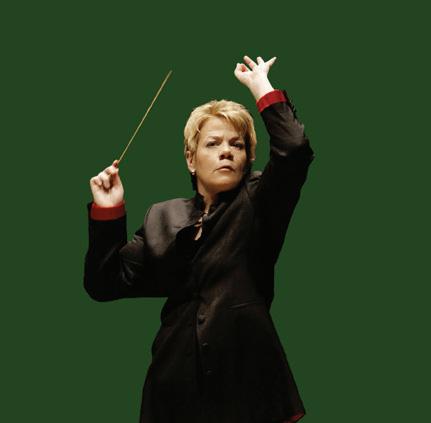












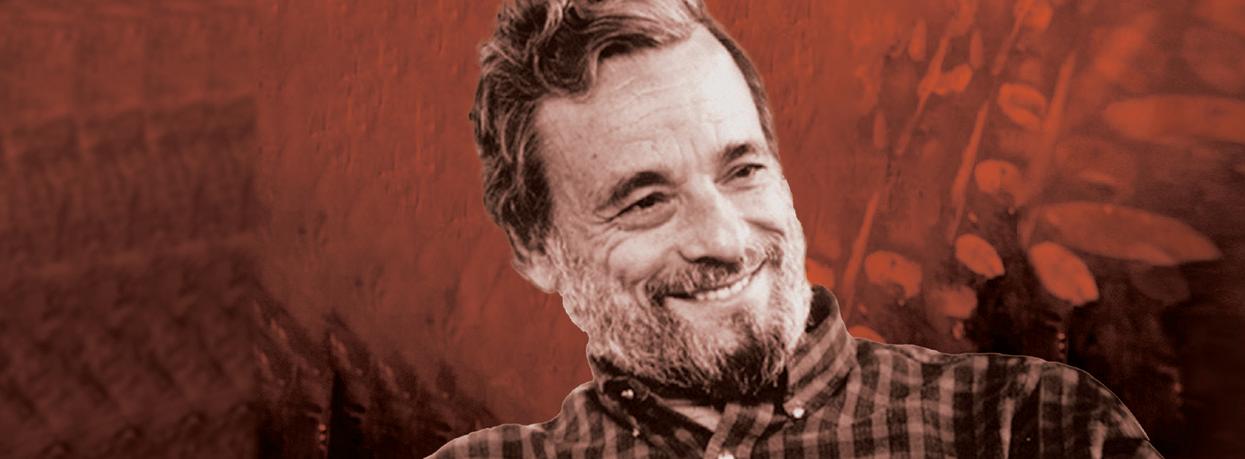

















JUNE 23, 2022 - CHICAGO READER 59 100+ EVENTS JUNE 15–SEPTEMBER 18 TICKETS ON SALE NOW AT RAVINIA.ORG INTRODUCING breakingbarriers.ravinia.org Dinah Jacobs Castle; The Lion King Consortium; The Ravinia Women’s Board; In Honor of Sandra K. Crown | FRI IN CONCERT LIVE TO FILM JUN 29 | WED JUN 26 | SUN JUL 1 | FRI JUL 6 | WED AUG 7 | SUN AUG 19 | FRI CHICAGO PHILHARMONIC PLAYS THE SCORE WHILE THE COMPLETE FILM IS SHOWN COMPLETE FILM SHOWN ON PAVILION AND LAWN VIDEO SCREENS © 2022 WBEI Trombone Shorty’s Voodoo Threauxdown Yours, Stephen Sondheim SEP 2 | FRI SEP 4 | SUN SEP 8 | THU SEP 10 | SAT SEP 16 | FRI SEP 17 | SAT HUBBARD STREET DANCE CHICAGO Diana Ross Emmylou Harris Mary Chapin Carpenter Alan Menken’s Broadway Once Upon a Time Celebrating his letters, mentorship, and music
e
ort to push back against the criminalization that’s been advanced by the war on drugs, DanceSafe offers festival patrons nonjudgmental and comprehensive public health services, including drug testing, free water, and electrolytes.
DanceSafe also advocates for repealing the Illicit Drug Anti-Proliferation Act, which allows law enforcement to fine and imprison business owners, property owners, and event promoters for failing to prevent drug-related offenses on their premises. The bill, sponsored in the Senate by Joe Biden, was initially called the RAVE Act and died in Congress in 2002 after the dance-music community advocated against it. The following year, Biden attached it as a rider to the PROTECT Act, which aimed to prevent and prosecute child abuse. The PROTECT Act passed, prompting critics such as the ACLU to accuse Biden of sneaking the RAVE Act through Congress without a public hearing or recorded vote.
The odds of prosecution under the RAVE Act are low—no major music festival has been prosecuted, according to a 2018 Chicago-Kent Law review—but Breemen says the law still prevents venues from offering lifesaving initiatives such as safe consumption sites and overdose prevention programs, because such measures tacitly acknowledge the likely presence of drug-related o enses.
Because safe consumption has been criminalized, venues and security companies may be less likely to train their guards in drug safety. Breemen says this can lead to “not knowing how to de-escalate, physical force, unbalanced power dynamics . . . it could lead to not knowing how to provide medical services and it ends up becoming a medical emergency, hospitalizations, or death.”
Security and police also frequently lack the training to respond to survivors of sexual assault, which occurs all too commonly at concerts and festivals. Chicago-based campaign Our Music My Body aims to raise awareness and improve prevention of sexual harassment and assault in the music scene and provide survivors with safe space at shows and festivals.
Security o cers often respond inappropriately to disclosures of assault, says Maggie Arthur, director of education and training for Resilience (which advocates for survivors of sexual violence) and former campaign coordinator at Our Music My Body. Sometimes officers even perpetrate it. “If someone doesn’t feel comfortable going to security, because
security was the one who caused harm, we’re there as people who they could come talk to, who would potentially help them find support or resources, or just listen and empathize and support them in whatever way feels good,” Arthur says.
At the 2021 installments of Lollapalooza, Riot Fest, and Ruido Fest, Our Music My Body received a total of six disclosures from survivors. Four of these alleged instances involved security perpetrating harm or responding ine ectually to victims, Arthur says.
In addition to its presence at shows, Our Music My Body conducts training courses with local venue staff on how to identify a potential assault and intervene. To persuade venues that such training was necessary, though, OMMB had to prove to them that sexual assault actually occurred in their spaces. When the campaign launched in 2016, few venues or festivals saw an urgent need. “A lot of those fests were like, ‘Yeah, that sounds really great and super important, but it’s definitely not happening at our fest,’” Arthur says.
So in 2017, Our Music My Body conducted a study of 509 Chicago-area festivalgoers—379 of them women—and found that 92 percent of women reported having experienced sexual harassment at Chicago music events. “When we were able to bring that information back to these festivals and venues, immediately they were much more interested,” Arthur says. The survey also suggested a business incentive for supporting the education of sta and security in violence prevention and crisis intervention: 84 percent of respondents said they’d be more likely to attend a concert at a venue that provides such training. By 2019, Our Music My Body was partnered with 20 venues in the Chicagoland area.
Arthur says that it’s unnecessary to involve police and security in instances of sexual assault if a venue’s sta is well-trained. “We don’t need security and cops—we can help each other. And so we want sta to be armed with that knowledge, because we know that they’re the ones who are most likely going to see this stu happening,” she explains.
Unfortunately, training festival security is more difficult than training staff at smaller venues. Though some festivals welcome Our Music My Body to table at their events, Arthur says many organizers don’t believe the group’s training can work logistically. Festivals enlist hundreds of employees and volunteers from around the country, making it a challenge to gather everyone in one place
(or even at one time, in the case of an online course). Hired private security companies often provide their own training—though many don’t cover sexual assault, Arthur says—and they may be reluctant to collaborate with outside groups.
Arthur says OMMB’s attempts to get involved in the training of festival security have been especially frustrating. “Somehow there’s still this resistance of, like, they’re just not gonna listen or they’re not gonna care,” she says. “We have had so many circular conversations with fest organizers . . . then they’re like, ‘Oh sorry, it’s not gonna work out.’” Lollapalooza, Riot Fest, and Ruido Fest did not respond to requests for comment.
If a security guard perpetrates harm, it can be nearly impossible for the festival or the survivor to track that individual down without the company’s cooperation. Our Music My Body has proposed adding unique numbers to security guards’ T-shirts to make them more identifiable, but festivals have resisted the idea.
“Chicago loves to say, ‘We are the home of Lollapalooza. And we have these venues that have been around since the 80s, and they’re still kicking it.’ That is a source of pride for our city. In my brain, it only makes sense that you would want those music spaces you’re so proud of to be safer spaces for people to attend shows,” Arthur says. “[Chicago is] in a position to be on the forefront of some initiatives.”
Allegations of corruption haunt local security giant
The playing field is hardly level, though, and those initiatives have a steep climb ahead of them. Most community-based safety groups are small and volunteer run, and the concert-security industry is dominated by massive companies. In Chicago, Monterrey Security Consultants Inc. provides services at major venues such as Lollapalooza and Soldier Field. But the company has been embroiled in so many scandals that investigators and even some former employees believe it to be incapable of keeping patrons safe.
From the moment of its launch, Monterrey has been at best scandal adjacent. The company was founded in 1999 by former CPD o cers Juan Gaytan and Santiago Solis. The latter is the brother of the disgraced former alderperson Danny Solis.
In 2017, Minneapolis law firm Maslon LLP carried out an independent investigation of Monterrey Security at the behest of SMG, operator of U.S. Bank Stadium, where Monterrey had been providing security since the previous year. The study relied in part upon FOIA’d documents from the Chicago Police Board, and revealed that Gaytan had faced a litany of misconduct allegations during his nine years with CPD. In 1995, Chicago Police Superintendent Matt Rodriguez and the Chicago Corporation Counsel accused Gaytan of taking money by force and “disrespect to or maltreatment of a person” and recommended he be terminated. The Chicago Police Board acquitted Gaytan of some charges but found him guilty of hitting two people with a flashlight, resulting in a three-month suspension, according to the report.
In late 2001, the Chicago Police Board charged Gaytan with fabricating evidence, unnecessarily pointing his weapon, and providing false information in a police report, all in association with a single incident in 1994. Gaytan resigned from the force in August 2002, before he could face a Police Board hearing on these matters.
Within Monterrey’s first three years, its annual business soared to $3 million, even though it allegedly operated without a license for almost two of those years. And despite mounting allegations regarding the company’s misdeeds, in 2002 it was awarded a $600,000-per-year contract to provide services at Soldier Field, according to the Chicago Tribune . In 2013, the company renewed its contract with Soldier Field and added two smaller venues to its turf, bringing in a total of more than $2.6 million, according to the Sun-Times
In 2016, the Sun-Times reported that Chicago police had arrested two Monterrey guards for o ering to sell scalped wristbands. Neither guard had a security license, which Gaytan justified by saying they provided “guest services” rather than security. Gaytan told the SunTimes that at any given Soldier Field event, one-third of Monterrey guards are unlicensed.
The following year, a man died of asphyxia after being restrained by a Monterrey guard at a Walmart on the northwest side. The guard, Adrian Santos III, was wearing a vest that said “sheriff” despite having been fired from his job as sheri ’s deputy in Lake County, Indiana, two years prior. Santos wasn’t licensed as a security guard, and he had been previously charged with domestic battery and felony strangulation following a fight with his wife
60 CHICAGO READER - JUNE 23, 2022 ll
continued from 58
(though the charges were dropped after she recanted her statements).
Monterrey is required to verify the status of police o cers among its employees every year, and the company told the Chicago Tribune that Santos had provided such documents. He wasn’t an officer for the majority of his employment, though—he was fired by Monterrey in December 2017, more than two years after losing his sheri ’s deputy job, and he didn’t return to police work till he was hired by the Illinois village of Phoenix the next month.
In 2015, Monterrey won a competitive bid to provide security at U.S. Bank Stadium, where the Minnesota Vikings play. The company hired Jacquan Pittman as a 24-hour security guard, even though he didn’t have any experience except being a bouncer at a nightclub. In an interview, Pittman says that Monterrey started him on the floor without providing any training.
“I let them know I didn’t have any experience at all with security, besides working as a bouncer for a nightclub, which wasn’t actual 24-hour security,” Pittman says. “I assumed I was going to get trained in before I started working, but I just got thrown on the job.”
Pittman says he worked for two weeks before receiving any training, and that what he did receive was lackluster at best. “They had us read through stuff and write it down on a piece of paper. There wasn’t any test or anything,” he says. According to Pittman’s notes, the course consisted of responding with “true” or “false” to statements such as “The elements of a crime are like the ingredients of a recipe” and “The biggest contributor to the security profession in our history was WW2.”
Monterrey skimped on background checks too, Pittman says. While on the job, Pittman would see coworkers disappear without notice, only to learn from other guards that they had been hired before their background checks cleared. If an employee’s background check returned with red flags, Monterrey would dismiss him.
“I was seeing people and then I wouldn’t see people,” Pittman says. “I come to find out, [Monterrey was] just hiring people without getting their background checks back. Once they got the background checks back, whether or not it was cleared determined if they let somebody go and have more people come in.”
Pittman only lasted one month with Monterrey Security. The lack of training made him uncomfortable, and he didn’t get paid till his brief tenure was nearly over.
Shortly after Pittman quit, on September 25,
2017, Mason LLP published the results of its aforementioned investigation into Monterrey. It alleged that Monterrey had used ambiguous job titles such as “event ambassador” to shirk the background checks and training required of security guards in Minnesota.
At U.S. Bank Stadium, some hired guards who failed their background checks were kept on as “event services,” according to the private investigation. Monterrey told investigators that it employed hundreds of people with criminal convictions, which is illegal under Minnesota law. These convictions included felony robbery, felony theft, assault, weapons violations, and drug o enses.
Minnesota state law stipulates that background checks must be completed by the Minnesota Bureau of Criminal Apprehension (BCA) or the FBI, but according to the report Monterrey used a service called Oracle to run many of its background checks. Investigators deemed Oracle less e ective than the BCA or
FBI in this capacity for several reasons: Oracle checks don’t employ fingerprints, they contain a slew of disclaimers that describe their own limitations, and they rely on self-provided information.
The investigation further alleges that Monterrey’s training courses, such as the one Pittman attended, were not administered by a state-approved instructor. Though the Minnesota Board of Private Detective and Protective Agent Services approved two course instructors for Monterrey, neither taught any courses in Minnesota. Still, Monterrey issued “certificates of achievement” to its U.S. Bank Stadium guards bearing one of the two instructors’ names.
“This isn’t the company you want controlling a crowd of 50,000 to 100,000 people,” Pittman says of Monterrey. “If I would have had Monterrey Security at Astroworld, I would have wanted to hire a different company.” Pittman is speaking hypothetically—neither
he nor Monterrey were involved in security at Travis Scott’s Astroworld festival in Houston, where ten deaths resulted from a crowd surge. Astroworld welcomed 50,000 people per day—half as many as at Lollapalooza.
Monterrey’s transgressions led U.S. Bank Stadium to fire the company in September 2017 and replace its services overnight, and the next day the Minnesota Board of Private Detective and Protective Agent Services voted four to zero to revoke Monterrey’s license to do security work in the state, according to Minnesota Public Radio. New York’s Buffalo Bills fired the company shortly after.
According to its website, Monterrey still provides services at Soldier Field, Lollapalooza, Shedd Aquarium, and Allstate Arena, among other venues in Chicago and Indiana. Monterrey did not respond to a request for comment. v
 @LeadholmKira
@LeadholmKira
JUNE 23, 2022 - CHICAGO READER 61
MUSIC
Featuring Josh Caterer, Steve Dawson, Hushdrops, and Boom Hank. Fri 6/24, 7 PM, Sketchbook Brewing Company, 4901 Main, Skokie, $30-$75, 21+
Pravda Records goes the distance
Chicago’s longest-running independent rock label throws the first Pravdafest, celebrating 38 years of rolling with the punches and putting in the work.
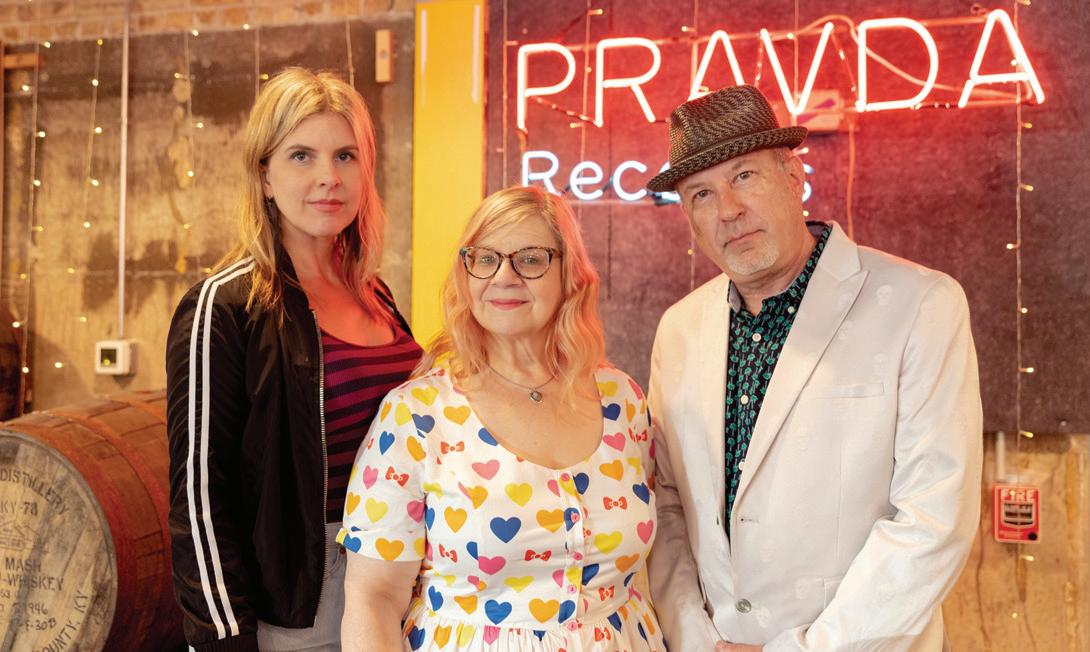 By MARK GUARINO
By MARK GUARINO
Beginning with Napster and continuing through Spotify, the nemeses of independent record labels have been legion over the past few decades. The deaths of brickand-mortar retail chains, including Tower and Borders, have made releasing new music even more of an uphill climb.
Yet Pravda Records has weathered it all and continues to thrive. The Chicago label—which toasts its 38th year with a two-day festival, June 24 and 25, at Sketchbook Brewing in Skokie—has survived shifting public tastes, the rise of online piracy, several changes in dominant format, and the collapse of music sales in physical media.
Even in the years since COVID-19 hit the U.S. in early 2020, the label has prospered, releasing a string of albums from legacy Chi-
cago artists, among them Smoking Popes front man Josh Caterer, rock band the Handcuffs, retro-pop quintet the Flat Five, power-pop band the Hushdrops, singer-songwriter Steve Dawson, and power trio Sunshine Boys. Those records have all been modest hits—Goodman says each sold more than 1,000 copies. The label’s total sales increased about 50 percent.
This flurry of activity puts Pravda at the opposite end of the spectrum from most pandemic- stricken businesses, which have either shuttered or dialed back their output to a glacial pace.
Kenn Goodman, 59, Pravda’s president and cofounder, saw opportunity in people staying home. “The desire for music grew a lot,” he says. “Not everyone wanted to watch TV 16 hours a day.” Nevertheless, he says, the
sales boom Pravda enjoyed came as “a complete surprise.”
Fans who’ve followed Pravda over the years could probably see it coming, though. Goodman and cofounder Rick Mosher started the label in their Northern Illinois University dorm room in 1984, the height of the college-radio era. In their early years, they found touchstones in Twin/Tone and SST Records, and for a while Pravda bands such as Green, the Farmers, and the Slugs could count themselves part of the flourishing DIY punk and indie-rock movement. But starting in the 1990s, Pravda became home to a wider range of music: R&B veteran Andre Williams, Seattle art-pop band the Young Fresh Fellows, Feelies front man Glenn Mercer. Remaining genre agnostic helped Pravda outlast trends—though
it’s topped by Alligator and Delmark, it’s one of the longest-running independent record labels in Chicago.
“There were maybe cooler labels in town, but it was always about the quality of the work. That seems to have just outlasted everything,” says Dag Juhlin, currently of Sunshine Boys and formerly of the Slugs (among other bands on Pravda’s roster). Goodman, whose father was a Chicago schoolteacher and whose mother is a homemaker and Holocaust survivor, has a “great Chicago work ethic” that has helped him “keep his head in the game and not chase trends,” Juhlin says. “In his own quiet way, he’s super savvy and has a good ear for artists. It’s his blood that’s in this business.”
Pravda has endured with its underdog approach by keeping overhead low, never banking on a single artist or sound, and diversifying its income streams: retail sales, publishing, downloads, licensing, streaming, merch. Its sta at its biggest totaled about 30 people, during the period when Goodman operated a storefront that sold Pravda products along with new releases from other labels. The store opened inside Metro in 1986, an era “ripe for people who wanted to be creative,” says Metro owner Joe Shanahan.
“Pravda was the hub for all of that,” says Shanahan. “I learned so much from [Goodman and Mosher] in understanding what was out there. The music they put out was way under the radar. MTV didn’t even matter. They were putting out indie records for an indie crowd. It was a glorious time. And they were literally sitting in the middle of it all.”
Eventually Pravda moved to a storefront on Southport, steps from the Music Box. Then in 1992 Goodman sold the retail business, bought out Mosher, and consolidated his sta . Today, Pravda has three full-time employees who work out of an office on the northwest side. The label outsources publicity, social media, and radio promotion to third-party vendors to control costs.
Each year Pravda handles an average of eight releases. Just as in the early days the record store helped fund the label, today Pravda
62 CHICAGO READER - JUNE 23, 2022 ll
Pravda Records cofounder Kenn Goodman (right) with two of the label’s three other staffers: marketing director Melissa Thornley (le ) and vice president of production Sheila Sachs (center). Sachs is also a former Reader staffer. NYIA SISSAC FOR CHICAGO READER
PRAVDAFEST NIGHT ONE
PRAVDAFEST NIGHT TWO
Featuring the Slugs, the Service, the Diplomats of Solid Sound, and the Handcuffs. Sat 6/25, 7 PM, Sketchbook Brewing Company, 4901 Main, Skokie, $30-$75, 21+
is underwritten by the hard work Goodman does to license its music to television and film productions all over the world. This has generated revenue steadily thanks to a diverse assortment of placements: Netflix’s Grace and Frankie, KFC commercials, Beverly Hills, 90210, and more.
Goodman got interested in licensing in the early 1990s, and he says it’s helped Pravda brave the turbulence in the industry as it shifted formats, from vinyl to CDs to downloads to streaming. “There’s always going to be events in the music business that threaten your existence,” he says. “How we always dealt with it was to embrace it.”
What’s also helped Pravda stay the course has been consistent access to established artists whose former labels had either closed or been swallowed up in mergers and acquisitions. In 2016 the Flat Five’s debut was a hit for Bloodshot Records. Then the label ceased releasing new music, and signs pointed toward an eventual sale. The band’s second record ended up on Pravda in 2020.
What Goodman o ers is a 50-50 profit split, committed long-term marketing support, and global distribution of physical media. What he gets in return are artists with dedicated fan bases and no problem filling clubs, as opposed to those trying to build audiences from scratch.
“Launching a new band is such an enormous task now. Just because a young band has a good demo—we have to look at the big picture,” Goodman says. “Sometimes that’s not a good business plan for us. We’ve done it.”
Another advantage of working with veteran artists is that they tend not to take for granted the work labels do. “A lot of people say, ‘We don’t need record labels anymore,’ but I think they do,” Goodman explains. “A lot of bands don’t want to sit around and run a business. They want to make music. To do that you need a label and partnership with people you have a good relationship with.”
Shanahan says what makes Goodman “unique in the record business” is the “trust he built with bands and touring musicians,” in part because he’s a musician himself. As a keyboardist, Goodman has been a member of several Pravda acts, including R&B collective the Imperial Sound, long-running rock trio the New Duncan Imperials, and the Service, one of the label’s earliest garage bands. Mosher has been his bandmate in all three.
“The fact that he’s run a business for nearly 40 years while never having worked another job in the music industry—while also working as a musician? You have to be a pretty
balanced person to make it a sustainable situation for yourself and for other people,” says Melissa Thornley, Goodman’s romantic partner and Pravda’s marketing director.
Susan Voelz, a singer-songwriter and violinist who performs with Poi Dog Pondering, released her first solo album, 13 Ribs, through Pravda in 1993. She says the label’s support “was pivotal” to moving forward with her own music. “It validated me. It made me believe in myself to keep evolving, keep writing,” she says. “They let me do exactly what I wanted to do. I would give them a finished record. And I could go anywhere I wanted with it musically.” She’s returning to the label now, with two new albums on the horizon.
Goodman started piano lessons at age five; by age 12, he was a working musician in a teenage band he booked at social events around Skokie. Not long afterward he got a fake press credential that let doormen all over the city know that he was a reporter for Rolling Stone magazine (“I had just gotten my braces o ,” he says). Soon Goodman was slipping into punk shows all over the city; at the same time, he was playing professionally on the region’s lounge, resort, and supper-club circuit as part of Keith Miller Featuring TCB, a popular Elvis Presley revue. He was 16.
Goodman’s chutzpah aligned with the creative ethos fueling independent music culture in the mid-1980s. He began Pravda (Russian for “truth”) as an entirely DIY project while still in college. The record that earned the label its first national exposure was the 1991 compilation 20 Explosive Dynamic Super Smash Hit Explosions!, a snarky homage to K-Tel collections that showcased covers of mossy 70s hits from up-and-coming Chicago bands: Material Issue, the Slugs, and Smashing Pumpkins, among others. Two more volumes followed.
Goodman realized he could play a wider role outside Chicago, helping revive the careers of musicians who’d fallen away from the spotlight. The first artist he worked with was also the greatest: Andre Williams, an R&B performer who had a string of chart smashes in the 1950s and wrote hits for the likes of Stevie Wonder and Ike & Tina Turner.
By the time Goodmen met him in 1998, Williams was fighting drug addiction and living without a stable home. Goodman and Thornley helped him get clean, resuscitated his career, and put together a band that he used to tour the world. Maybe most important, they acted as his friends, doing simple but important tasks like driving him to doctor’s appointments.
Williams died in 2019. Goodman has helped several other artists in similar ways, including Syl Johnson, Renaldo Domino, Tiny Tim, Archie Bell, and Hasil Adkins. He assembled each one a band and gave them a touring life, licensing income, and the chance to record new music for new audiences.
For Goodman, the effort was worth it for the stories. He met Tiny Tim at a gas station
MUSIC
knew so many songs from the 1910s and 1920s and was educated in the history of vaudeville. He was much more than ‘Tiptoe Through the Tulips.’” Tours, however, could be a struggle. “He would give us a list of songs to learn, and then we’d get to the gig and he’d say, ‘We’re not going to do that, tonight we’re doing all the hits of 1910,’” Goodman recalls. “Which was fine. But we didn’t know any of them.”
in Ames, Iowa, when Goodman was on tour with the New Duncan Imperials and Tim was playing comedy clubs with Jerry Mathers of Leave It to Beaver fame. Goodman stayed in touch and eventually brought Tim to Chicago in 1993 to record a live album at what’s now Martyrs’. The New Duncan Imperials backed him on tour, which removed Tim from the comedy circuit and put him in music venues, where Goodman felt he belonged.
One memory that sticks in Goodman’s head is the time he invited Tim to his parents’ place for dinner. “He was hitting on my mom while my dad took photos,” he says. “They remembered him from Johnny Carson and couldn’t believe he was in their home.”
“Tiny Tim was so interesting to me. We’d have long discussions in the car about the history of show business,” says Goodman. “He was also into religion and philosophy. He was a serious musician and serious music expert. He
“I’ve always been drawn to outsider musicians,” he says. “A lot of people I worked with had long, amazing showbiz histories and life stories. To me, they were fascinating, and deep down, were very beautiful people to work with and just be around.”
In Pravda’s next phase, Goodman expects to release a solo album from Nora O’Connor, formerly of the Blacks and currently in the Flat Five. He also may break from his current business model to release new music by one or two younger bands he’s talking to. But the weekend of Pravdafest, he intends to spend his evenings listening to the label’s artists—and because the Service are making an appearance, he’ll be playing onstage as one of them.
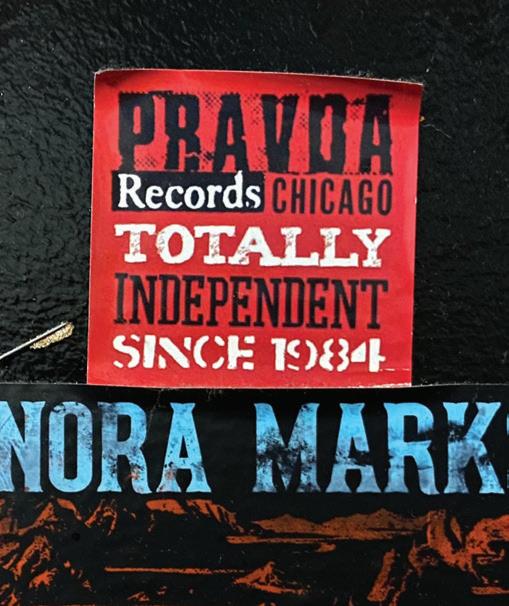
“I’m proud of the catalog and I’m proud of what we’re doing now,” he says. “We’ve had a really good ride.” v
@markguarino
JUNE 23, 2022 - CHICAGO READER 63
A Pravda Records sticker spotted in the wild at the Montrose Saloon PHILIP MONTORO FOR CHICAGO READER
Bill Connors, art director for the Empty Bottle
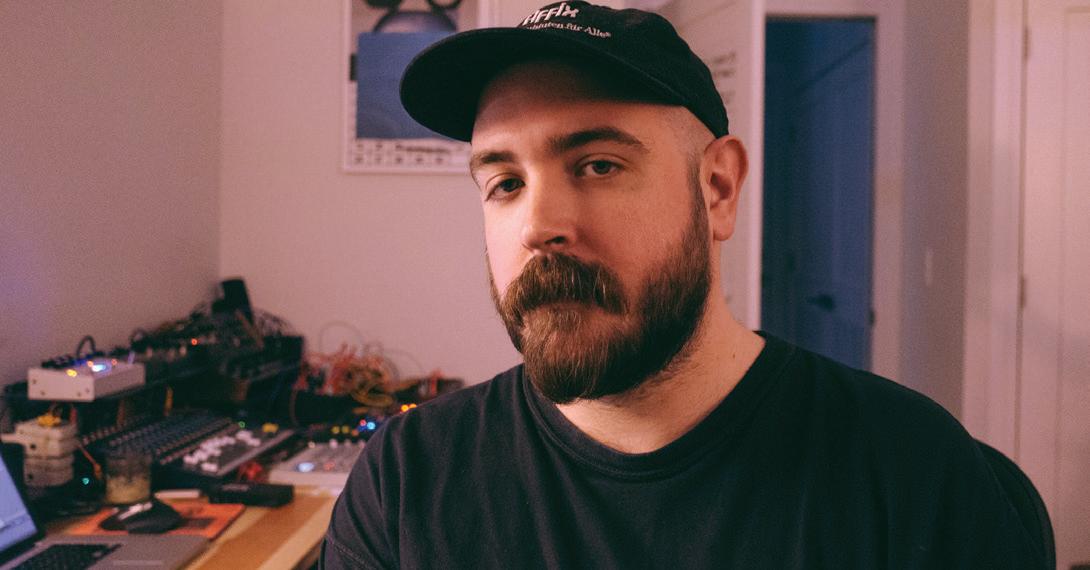
As told to MICCO CAPORALE
There’s a lot that makes going to shows magical besides the live music, and no one knows this better than Empty Bottle art director Bill Connors. The Illinois native never expected to be guiding the aesthetic of one of Chicago’s most beloved independent venues, but the job has proved a natural fit: Since high school, Connors has experimented with music and video projects, playing with how moments of sound and image can be combined to create new meaning. At his core, he’s always been a visual thinker, capturing the attitude or essence of an artist or event with a collage-style approach to gig posters, album covers, logos, and T-shirts. Connors is formally trained as an artist, but he prioritizes cultural ephemera— which he sees as accessible art objects—over collector-driven fine art. His signature style—
something like art nouveau skateboarding in a garbage can—has appealed to acts as divergent as Post Malone and Metallica. His career hasn’t been easy or straightforward, but his work is already proving influential.
Igrew up in Orland Park and started attending SAIC in 2007 and graduated in 2012. In 2010, I started couch surfing until I could live in the city full-time. I really found a home in the printmaking department, and I took a lot of studio classes so I could stay in the buildings overnight and crash on a couch when I got tired.
I’m a huge fan of the Chicago Imagists—like the Hairy Who kind of stu . A lot of that was painting, but their book stu got me into the world of offset lithography, which led me to
screen printing. That got me thinking about translating these higher-art paintings into something ephemeral, like a zine or pamphlet. Something not very precious. And from there I got interested in show posters. I can remember being at Handlebar for the first time—in, what, 2008?—and seeing Ryan Duggan’s work. He’s got a very particular hand-illustrated style with this really sharp sense of humor. Always an inspiration.
SAIC is a very conceptual school, but I’ve never felt like I had a place in the conceptualart world. I like making for making’s sake. I always felt out of the loop with that “precious art” thing. I don’t come from a place where anyone I know owns or wants to own a bunch of expensive paintings. What I do want are things that I collected over my life that mark
time, you know? And making that accessible to more than just, like, people I met in school.
My art is so eclectic. I know everybody says that, but the kind of art that I like and the kind of music that I like—I don’t know if they necessarily overlap. Like, not in a way where I’m like, “Oh, yeah, I definitely see the connection between this music and this artwork!” That’s not always my favorite moment. I really, really like when things go o -kilter.
When I was in high school, I’d share stu online. In the LiveJournal/Blogspot days, people would chronicle every moment of their life in great detail rather than, like, a quick snapshot, so it felt like a great place to share work and get feedback from random people in a way that was natural and helpful for me. It was a great environment to get a discussion going about some drawing that I was working on with my friends who were just trying to, like, skateboard.
I wasn’t trying to advertise, but here’s where that becomes sort of a thing. Because by the time I was 21, I was negotiating with bands and companies that were, like, in Australia. I did something for Converse right out of college because I was sharing so much work online. I’m very grateful for everything that’s come my way, but at the same time, it makes me afraid.
The algorithm has got me pegged to a degree. It’s feeding me the same kind of images and artists who are doing work in a specific way. Sometimes it ends up distracting me from what I’m working on, like having too many reference points for your own work. But it scares me too, because I’ve gotten offers from companies or whoever where they’re very excited but want to charge a very low rate. And then you counter and immediately feel that gust flow the other direction, like, “Oh well, if this guy won’t do it for 40 bucks, I’ve got 100 people on this app who will!”
I see it a lot with companies that I know have the money, but they bank on you wanting their endorsement or to feel part of their “team” or whatever. But it’s like, I need to pay my rent. I need to pay for food. I need time to do human-being things. It’s a constant turn and burn. I don’t know how people rely solely on freelancing. Nothing but respect from me.
64 CHICAGO READER - JUNE 23, 2022 ll
THE ARTIST
MUSIC COURTESY
CHICAGOANS OF NOTE
“I don’t come from a place where anyone I know owns or wants to own a bunch of expensive paintings. What I do want are things that I collected over my life that mark time.”
In 2014, I started working the door at the Empty Bottle. Most people didn’t know that I had this art career outside of work. But once I started doing more work for bands that were touring and coming through the Bottle, people started connecting me to the place, and I started getting more offers. Eventually I started doing graphic design here and there for the Bottle, and then I graduated to my current role as art director. That’s a new role, and it happened during the pandemic so we could focus more on merch and branding.

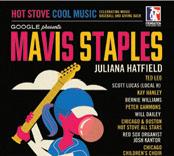

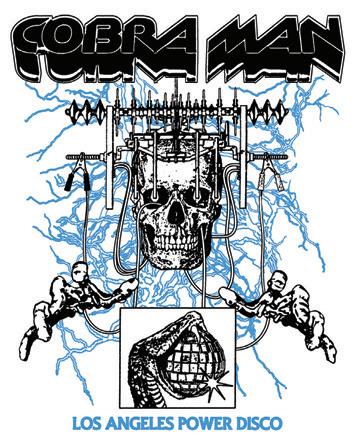

Every time we have a show—all that stu on Instagram—it’s hand collage, which is a little bit more than I should have undertaken, but I like the way it looks, so. . . .
I’ve always been into collage, like rooting through magazines and collecting images to use in different ways. I experimented with digital- collage stuff in high school—just poking around Photoshop and Illustrator for years. Those were rough. I learned a lot of different collage techniques in school, but those were mostly physical collages. In school, I was really into physical materials and scanners and physically printing things and then scanning the things that I physically printed. And it got into this whole process of physical, digital, physical, digital, just back and forth, you know? Which also lends itself to Xerox stu , right? Like, the more times you photocopy something, the more blown-out it gets, and you can create these little worlds, especially adding hand drawing.
People always ask me, like, “Oh, are you really into, like, punk artwork?” I like that kind of thing, but it’s always been kind of an afterthought to me. I just like that photocopy look in general. It feels timeless. It’ll always look like the perfect age because it can be any time.
I don’t really have a process. There are steps, sure, especially with the scanner, but I’m like the trashman. I use everything and anything. I work digital and analog. I’ll scan things, use other people’s scans, take photos, find photos, add drawn elements by hand or in the computer. What I’m most interested in is a collage that feels like a collage but doesn’t necessarily look like one, you know?


Right now I’m trying to make work for posterity. I’m not interested in “the cloud.” I’ve worked with some big people, but I don’t always post it if I’m not into it. I wish I had more time to regroup and just make something for me instead of clients. I don’t want to be depressing, but I don’t want to lie to people either. Sometimes I think it looks like I’m killing it, but I’m not. I’m really not. I’m so broke and tired.
That’s the thing that kills me about the Internet. People think, like, “Oh, this image will get me a bunch of followers, and then with a bunch of followers, we’ll get a bunch of money.” But exposure and followers don’t translate to money. v
@JuggaloReporter
JUNE 23, 2022 - CHICAGO READER 65
Bill Connors created these artworks for the Empty Bottle and for Los Angeles band Cobra Man.
3730 N CLARK ST METROCHICAGO.COM @METROCHICAGO SMARTBARCHICAGO.COM 3730 N CLARK ST | 21+ FRIDAY JUL 01 Obscure + Format welcome JAMES RUSKIN JEFF DERRINGER BRENDA FRIDAY JUN 24 Things That Go Bump In The Night ft. DERRICK CARTER SATURDAY JUN 25 HORSE MEAT DISCO HARRY CROSS SATURDAY JUL 02 MIKE SERVITO / SEVRON FLOWER FOOD SATURDAY JUNE 25 / 11PM / 18+ 34TH YEAR ANNIVERSARY BALL NOCTURNA with DJ Scary Lady Sarah + French Police SATURDAY JULY 02 / 11:59PM / 18+ WASSUP N CHICAGO & WASSUP N ATL PRESENT CHICAGO BLACK PRIDE ft. Glorilla / Bone The Mack Nick LaVelle + DJ Gucci Roxx (CHI) + DJ Reko (ATL) SATURDAY JULY 16 / 11PM / 18+ 34TH ANNIVERSARY BALL NEO REUNION 2022 with DJ Scary Lady Sarah Jeff Moyer / Suzanne Shelton Bill Saveley / Rob Kokot Glenn Russell FRIDAY JULY 15 / 10PM / 21+ @ SLEEPING VILLAGE KARATE + The Numero Group FRI JUL 01 HOT STOVE COOL MUSIC ft. Mavis Staples and more! ROCHELLE JORDAN @ SLEEPING VILLAGE PRINCESS GOES TO THE BU ERFLY MUSEUM CAROLINE POLACHEK COIN SLEIGH BELLS PETER HOOK & THE LIGHT CARPENTER BRUT JUL 23 JUL 24 JUL 26 JUL 31 AUG 05 AUG 19 AUG 27 Laid Back | Cold Beer | Live Music @GMANTAVERN GMANTAVERN.COM 3740 N CLARK ST 21+ FRI JUL 08 AJJ + Open Mike Eagle SAT JUL 02 MICHAEL CERA PALIN + Weatherday / Oolong Elton John Cena THU JUL 07 THANKS, DOLL A Celebration of Cynthia Plaster Caster Metro- 4 breakouts Hot Stove (Can this be the Mavis Staples focused? Willing to swap if this is too crowded art)
Cera Palin Cynthia Plaster Caster AJJ MUSIC
Micheal
Mother Nature ascend a queenly throne
By ALEJANDRO HERNANDEZ
What if you had the ability to create your own world from the ground up? What rules would you create? What type of environment would you cultivate? As educators and artists, this is what rap duo Mother Nature attempt to do with their work—especially with their latest EP, Nature’s World. Their goal is to create a world built on community empowerment and equity, and cultivate respect and appreciation for the planet’s natural resources.
Composed of rappers Klevah and TRUTH, Mother Nature has established themselves as a force to be reckoned with in Chicago with their consistent musical output and educational workshop series, The Miseducation of HipHop. The pair first met in the 2010s while attending the University of Illinois Urbana–
Champaign, where they did grassroots community work and made music together. With encouragement from a mentor, they came up with hip-hop-centered workshops that teach young people how to express themselves wholeheartedly and become the best people they can be.
Hip-hop and education “just intersect,” says Klevah. “It’s just like who we are as being true to ourselves, our own paths, and being true to what cultivated Mother Nature to begin with.”
“Anybody can go back to our first project and know what we’re about and where our politics stand and whatnot. But doing the music is just a part of the mission, and then doing the education aspect—the knowledge—that is a part of the mission too. They exist with each other.”
That never-ending quest for knowledge
has helped them tour the country to perform and teach others. However, it wasn’t until their previous project, 2021’s SZNZ, that they landed placements in national publications with a brash, in-your-face rap style. With Nature’s World, produced entirely by Renzell, they bring an energy that is more soothing and calming.
“Renzell’s music allows us to just sit down, sit back, relax, catch a vibe. We not biting people’s heads off as much, you know what I’m saying?” says TRUTH. “The bars is always gonna come with Mother Nature projects, but I feel like it’s our Divine Feminine-type project. I feel like we always ‘rawr rawr’ all the time, and on this one, it allows us to be more introspective and explore ourselves in di erent ways. . . . We on our queenly throne at this point, head held high, just doing what we do.”

Spirituality has always held an important role in the lives of both, and there’s no doubt in their minds that connecting with Renzell occurred via divine intervention. Mother Nature and Renzell had known of each other for some time—but actually getting in the studio together was a fateful encounter that happened when the time was right. In those recording sessions, they felt a collective chemistry, and felt they were operating on the exact same frequency.
That can perhaps be credited to Renzell’s knowledge of the science behind how sound waves a ect the human mind. “I always knew that a certain frequency made us move in a certain way,” he says. “So that made me then want to study what that meant in music and what certain frequencies did to the body. And then in turn, obviously, I’m making music that provides that feeling internally. It all kind of started to go hand in hand because you know, it’s like a very soulful music that we create. It comes from the soul. We are vessels of what is actually happening. The universe is blessing us with these sounds and these ideas and these people around us, and then we become vessels of that frequency that we’ve all vibrated to.”
In March, Mother Nature opened for Mick Jenkins, with whom Renzell has worked closely since the beginning of his career. An upcoming documentary that will be released along with Nature’s World gives viewers an indepth look at the project’s creation; in it, Renzell says that Mother Nature’s performance impressed Jenkins so much that it reminded him of the first time he saw Smino. Garnering such praise from a respected artist like Mick meant a lot to Mother Nature and helped them to push their work to a higher level.
“I know exactly how it looks when an artist is hungry and got that mind state to make records, put them out correctly, and go onstage and have that stage presence,” Renzell says. “All of those things make up a world-renowned artist, and not just a local artist. I’ve seen it in Mick, I’ve seen it in Smino, Chance, Vic Mensa, I saw it in Noname. I’ve seen it more than once, basically . . . Mother Nature definitely checks o all those boxes.”
66 CHICAGO READER - JUNE 23, 2022 ll
MUSIC
Mother Nature’s Klevah (le ) and TRUTH (right) with producer Renzell. THOUGHTPOET
@DroInTheWind @thought_poet77
The
Nature’s
June 10.
hip-hop duo’s latest EP,
World, dropped



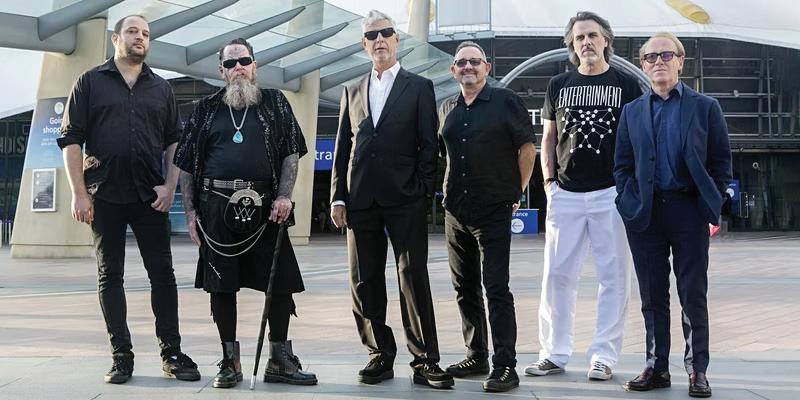
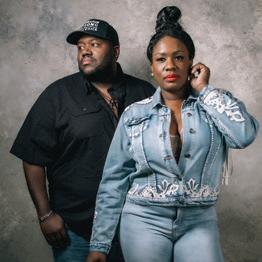



JUNE 23, 2022 - CHICAGO READER 67 7~5 TUE CORRINE BAILEY RAE MALIA 7~15 FRI YEULE PITCHFORK MUSIC FESTIVAL AFTERSHOW 7~16 SAT CAMP COPE KAINA PITCHFORK MUSIC FESTIVAL AFTERSHOW 7~1 FRI TY SEGALL & FREEDOM BAND ~ BILL MACKAY 7~20 WED NIMESH PATEL LAST SHOW - 2 SOLD OUT 7~2 SAT PEPPERMINT 7~7 THU BOB MOULD BAND MELKBELLY 7~23 SAT STEPHEN MARLEY BABYLON BY BUS TOUR 7~21 THU FUCKED UP PERFORMING DAVID COMES TO LIFE ~ PONY 8~1 MON EIVØR EMILY JANE WHITE 8~2 TUE BOY PABLO MAZIE 8~3 THU 8~4 THU CAT POWER ARSUN WAVVES KING OF THE BEACH TOUR ~ BOYO, SMUTT THU 9~22 RY X FRI 9~9 CASS M C COMBS TUE 9~20 MADISON CUNNINGHAM BENDIGO FLETCHER COMING SOON TO THALIA HALL SIGN UP FOR OUR WEEKLY NEWSLETTER AT THALIAHALLCHICAGO.COM
Recommended and notable shows and releases with critics’ insights for the week
MUSIC
PICK OF THE WEEK
Steve Von Till of Neurosis gets stripped-down and cinematic with his solo material
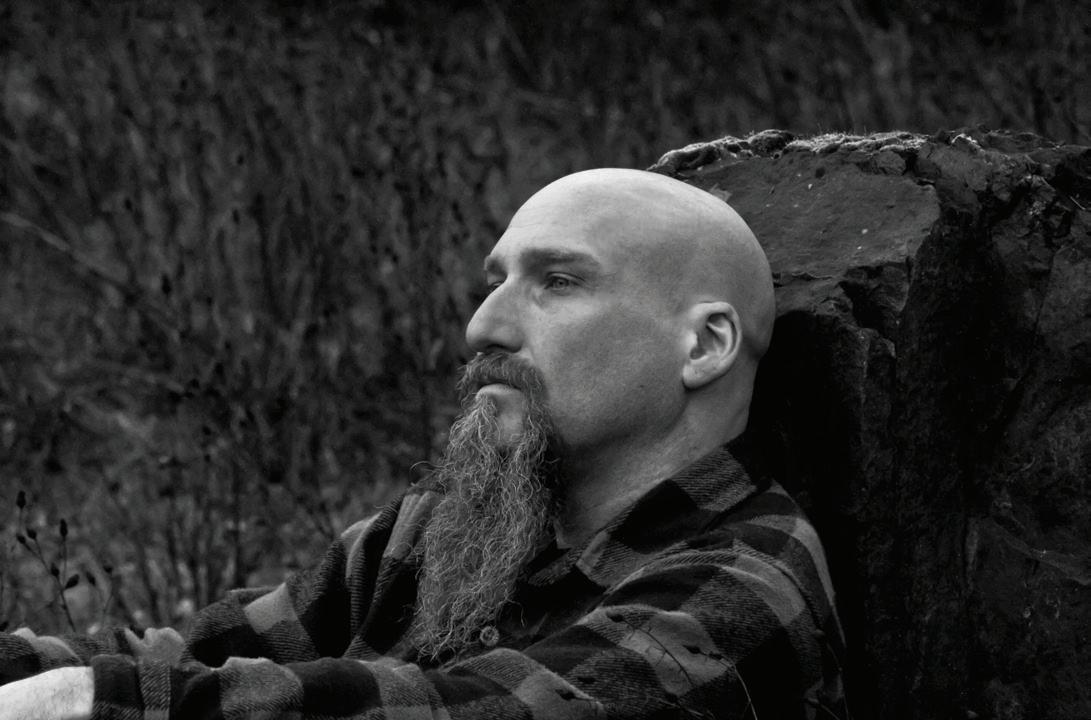
STEVE VON TILL, HELEN MONEY
Sun 7/3, 8:30 PM, Empty Bottle, 1035 N. Western, $20. 21+
NEUROSIS HAVE SPENT MORE THAN three decades redefining what heavy metal is and what it can be. They’re a multifaceted beast, moving in many directions depending on where their creative forces guide them and combining sludge metal with prog-rock arrangements, spacey soundscapes, and postrock instrumental layers. The members of the five-piece band frequently break away to focus on their own projects, and their solo work provides insight into how Neurosis have conquered so many realms of heavy and experimental music. The solo catalog of guitarist and vocalist Steve Von Till features stark folk songs and spoken-word poetry, and his latest o ering, 2021’s A Deep Voiceless Wilderness (released on the band’s Neurot label), also incorporates pensive, sweeping instrumental postrock. Touches of primitive acoustic guitar lay the groundwork for gorgeous, stirring string quartets, ambient electronic waves, and psychedelic synth pulses. Much like Neurosis’s music, it’s epic in scale, cinematically beautiful, and emotionally gutting, but Von Till uses a less-is-more approach rather than his band’s characteristic wall-of-sound heavy-metal style. There may be no crushing drums, full-stack electric guitars, or guttural screaming in the mix, but this material is every bit as powerful and intense.
—LUCA CIMARUSTI
CONCERT PREVIEWS SATURDAY25
Pascuala Ilabaca y Fauna 9:30 PM, Martyrs’, 3855 N. Lincoln, $25. 21+
Chilean singer-songwriter, accordionist, and pianist Pascuala Ilabaca offers endlessly unpredictable sonic pleasures. On six albums and one EP, she builds upon a foundation of Andean folkloric music while incorporating sounds inspired by her time and studies in Spain, India, Guatemala, and Mexico. At this Martyrs’ show, she’ll be accompanied by her longtime band, the saxophone- and clarinetdriven four-piece Fauna, which also features her drummer husband, Jaime Frez. Fauna flawlessly follow Ilabaca’s lead as the tunes move among handdrum pulses, raga-tinted melodies, and accordion riffs in the lilting rhythms of cueca, Chile’s national dance. In “Te Traigo Flores,” clarinet replaces Andean flutes in a structure reminiscent of a traditional tune, which gives it a jazz manouche swing. The recent single “Pa Mi” adds the percussiveness of Barcelona’s rumba nueva into the mix, then segues into light rap paired with cumbia. Ilabaca ties these disparate elements together and smoothly propels them with her bright, crystalline vocals. True to the nueva canción of her homeland, many of her lyrics also have an activist bent: “El Baile del Kkoyaruna” tells the story of a First Nations worker who has to leave his land to work as a miner (“kkoyaruna” in Quechua, the indigenous language of the chorus).
“Por Qué Se Fue la Paloma” lays out a huayno, a traditional festive Andean rhythm, while Ilabaca sings of a dove’s choice to fly away from confinement to freedom. The strength of Ilabaca’s musicianship and the inventiveness of her compositions enable her to pull off her unusual melange of musical elements—but in concert, what will ultimately stick with you is her hopeful, upli ing tone and vibrant spirit.
—CATALINA MARIA JOHNSON
THURSDAY30
Wovenhand A solo set by Wovenhand front man David Eugene Edwards. Bruce Lamont opens. 8 PM, Beat Kitchen, 2100 W. Belmont, $25. 17+
It’s been a long wait since Wovenhand’s 2016 album, Star Treatment , though disciples of founder David Eugene Edwards were fed well by his rich and mysterious 2018 collaboration with Alexander Hacke of Einstürzende Neubauten, Risha (Glitterhouse). Wovenhand, which Edwards founded in Denver in 2001, has gradually shifted over the years from an intense, stark gothic country feel to a more electrified, louder, and heavier sound. The effect has been akin to watching something ancient and chthonic rise out of the dusty earth, summoned by Edwards’s apocalyptic prophet vibe, and learn to take a fierce joy in the noise and bustle of the modern world. The band’s latest album, Silver Sash (Sargent House), came out earlier this year, and though Edwards typically does the bulk of the songwriting, this time around he let long-
68 CHICAGO READER - JUNE 23, 2022 ll
of June 23
b ALL AGES F
NIELA VON TILL
time guitarist Chuck French (also of Planes Mistaken for Stars) take the reins on more material than ever before—the shi feels seamless, because both musicians possess a fi ne sense of melody, drama, climax, and resolution. Opener “Tempel Timber” sets the tone with a wild mix of sounds and energies: clean and distorted, restrained and unhinged. “Dead Dead Beat” has a straightforward postpunk drive with a flash of dark playfulness (“Here the mountains divide the gods / The devil has lost his phone,” Edwards sings, “Lock down the room / Leave no unturned stone”). The epic boneshaker “8 of 9” showcases the maturation of Wovenhand’s heavy industrial influence.
All that said, Edwards will play this set at Beat Kitchen solo, carrying all the weight of this work on his own shoulders. He’s always been a charismatic force in concert, never seeming contained by the band around him. Even when he performs on his own (o en seated on a chair), he summons an uncanny shamanism with his cadences, hypnotic and entrancing. This is a rare opportunity to catch Edwards’s songs stripped to their bones—though those bones are sometimes terrifyingly large and half-buried in windswept desert sand. Even Wovenhand’s quietest acoustic work has a way of leaving a sensitive listener with a massive goose-bump outbreak and an impending sense of Revelation, so if you experience this yourself, don’t say I didn’t warn you.
—MONICA KENDRICK
SATURDAY2
Chicago Soul Jazz Collective with Dee Alexander Part of the American Music Festival, which runs Fri 7/1 through Mon 7/4. The Rebirth Brass Band headlines the outdoor main stage; Nelson Street Revival closes out the nightclub stage inside FitzGerald’s; the Chicago Soul Jazz Collective with Dee Alexander headlines the Sidebar stage. The day’s other performers are Marshall Crenshaw, Michael McDermott, Daddy Long Legs, Lilly Hiatt, Chicago Farmer & the Fieldnotes, Eilen Jewell, Tre Burt, Fox Crossing Stringband, Sarah Borges, Jonah Tolchin, the Claudettes, Los Gallos, the Joel Paterson Band, Terry White & the Loaded Dice, and Donna Herula. 9:30 PM (music begins at 1 PM), Sidebar stage, FitzGerald’s, 6615 Roosevelt, Berwyn, $50 per day. b
Since 2018, the Chicago Soul Jazz Collective has made waves in town by resurrecting the stylish grooves of the postbop era, which began in the late 1950s—nationally, the sound was shaped by the likes of the Jazz Crusaders, Cannonball Adderley, and Jimmy Smith, and in Chicago the Rush Street club scene was at its height. On previous records the sextet has invited collaborators such as New Orleans trumpet master Nicholas Payton and vocalist Raul Midón, but those were baby steps compared to what the group has done for its recent third album, On the Way to Be Free (JMarq)—mighty Chicago jazz vocalist Dee Alexander is the collective’s full-time front woman. Tenor saxophonist John Fournier has written original songs that set Alexander in postbop’s prime era without feeling like historic exercises. “The Man Is Coming Back,” a seductive mood piece, imagines an insurrection

(“Get your pitchfork / Out of the barn / Light the torches / Sound the alarm”) that snaps to life at the song’s hard-funk break. These songs have space and light to them, and the title cut showcases the group’s earthy dynamic. “Mama Are We There Yet?” features a gang vocal driving atop a snappy syncopated groove and the elastic soloing of guitarist Larry Brown Jr. The range of these songs— the nighttime neosoul of “Crazy Wrong,” the Latin-tinged groove of “Carry Me,” layered with breezy soloing by Brown and trumpeter Marques Carroll— showcases Alexander’s versatility and strengths. Judging by its title, the instrumental “Behind the Crusaders” is presumably a tribute to the Jazz Crusaders, a multifaceted group that in the 1960s and 1970s erased all sorts of genre boundaries. Sure enough, the song follows in those footsteps—its melodic power and stylish group dynamics are what make the Chicago Soul Jazz Collective a prime portal for listeners who don’t limit their music by category but are driven simply by the groove. Following this appearance at the FitzGerald’s American Music Festival, the group will perform at the Jazz Showcase on August 24. —MARK GUARINO
Chosen Few Picnic & Festival The day’s lineup includes the Chosen Few DJs, Osunlade, DJ Spen, Teddy Douglas, Natasha Diggs, J Star, D Train, and Dajae. Set order had not been announced at press time. 8 AM-10 PM, Jackson Park, 63rd at Hayes, $60-$475. b
I can’t imagine summer in Chicago without the Chosen Few Picnic & Festival, and that’s not just because this grassroots house-music gathering is celebrating its 30th annual installment (plus two years online during the pandemic). It’s also because house music—and Chicago—would be very different if it weren’t for the Chosen Few DJ collective. Chicago’s gay Black nightlife scene birthed house, and the Chosen Few helped turn it into a movement among young Chicagoans of color. At the time, the members of the Chosen Few were part of that demographic: Wayne Williams was still in high school when he founded the crew in 1977. The second permanent member was his stepbrother, Jesse Saunders—in 1984 he’d release what’s widely considered the first house 12-inch, “On and On”—and in 1978 the crew became a “Few” when Tony Hatchett joined. The collective took on four more members in the decades to come, adding Alan King (1980), Tony’s younger brother, Andre (1981), Terry Hunter (2006), and Mike Dunn (2012). The members haven’t all lived in the same place for most of that time, and their annual festival began as an excuse to get everyone together. It helped that the Hatchett family already hosted a reunion picnic behind the Museum of Science and Industry every Fourth of July, and in 1990 the rest of the Chosen Few showed up to spin informal DJ sets.
As house music became the soundtrack for Chicago, the Chosen Few made Independence Day weekend the date of a bona fide local tradition. Their festival brings around 40,000 house heads and their loved ones to Jackson Park, where folks set up tents and steel-drum barbecue grills and dance. Over the course of the day, all seven Chosen Few members spin solo sets, and they always leave plenty of time for guests—this year’s lineup includes 1990s Basement Boys hitmaker DJ Spen, Yoruba
Records founder Osunlade, and New York DJ Natasha Diggs, a favorite of much of the esteemed Soulquarians collective. I recommend you arrive early, to make sure you’ll catch R&B powerhouse Dajae no matter when her set turns out to be—my money’s on her belting out her legendary 1992 Cajmere collaboration, “Brighter Days,” with its palpitating ooh-oh-ah-ee hook. But there’s no bad time to show up to Jackson Park. Few events manifest carefree summer joy as reliably as the Chosen Few Picnic. —LEOR GALIL
Weatherday Michael Cera Palin headlines; Weatherday, Oolong, and Elton John Cena open. 7 PM, Metro, 3730 N. Clark, $16, $13 in advance. 5+
In February, teenage Chicago indie rockers Dwaal Troupe contributed a tender, dusty tune called “Everyone Forgot but You” to Porcelain Songs , a 30-track compilation made by fans of enigmatic Swedish indie-rock project Weatherday. The musicians involved in the comp put it together via Discord, a messaging app and social-media platform that allows young fans to incubate closed communities dedicated to their favorite artists—hence the comp’s subtitle, A Weathercord Compilation . The number of Discord users on the Weatherday server is relatively small (fewer than 800), at least compared to, say, the Grimes server (Pitchfork reported more than 15,000 members). But Porcelain Songs illustrates the intensity and breadth of Weatherday’s cult among other musicians: the comp features electronics-spiked pop-punk from BritishLithuanian duo Flyovers in Patterns, wispy ambient by Polish solo project Starshy, and experimental collages from Portland artist Goth iHop.
It’s difficult to make sense of Porcelain Songs without having heard the solo project that inspired it—the arena-size ambition, cheeky experimental flair, and beguiling intimacy of Weatherday’s lo-fi recordings create an aesthetic umbrella expansive enough for all the comp’s disparate sounds to fit
beneath it. Helmed by a multi-instrumentalist who goes by Sputnik, Weatherday has so far dropped only one full-length in its brief career, 2019’s Come In (Porcelain Music). The album’s soaring songs tie together shoegaze fuzz, quasi-symphonic flourishes, postpunk gloom, and posthardcore rushes. Sputnik’s shabby, earnestly yearning vocals give the project its defining character by helping corral these components into a coherent sound. In just a few years, Come In has become an urtext for emo’s emerging fifth wave, giving young musicians permission to break rules that inhibited earlier generations. Last year, U.S. indie label Topshelf, a crucial fourth-wave emo outlet, dropped a double-LP reissue of Come In , and the whole run of 2,000 sold out—if you want a pristine copy, be prepared to pony up $100 on Discogs. Earlier this year, Weatherday collaborated with Seoul fifth-wave emo artist Asian Glow on the Weatherglow EP, whose polished, concise songs express both artists’ desire to reach for the stars.
—LEOR GALIL
SUNDAY3
Steve Von Till See Pick of the Week at le . Helen Money opens. 8:30 PM, Empty Bottle, 1035 N. Western, $20. 21+
ALBUM REVIEWS
Arthur Brown, Long Long Road Prophecy Productions/Magnetic Eye arthur-brown.bandcamp.com/album/long-longroad
If I were forced to subscribe to any wild theory circulating on the Internet right now (we won’t say the c-word), it wouldn’t be about lizard people, a flat Earth, anything “secretly staged by crisis actors,” organized religions, or UFOs. It would be that a
JUNE 23, 2022 - CHICAGO READER 69
MUSIC
Chicago Soul Jazz Collective COURTESY THE ARTIST
MUSIC
Find more music listings at chicagoreader.com/musicreviews

Glenn Jones, Vade Mecum
God of Hellfire lives and flourishes here on this planet as a for-real deity. This divinely blazing being is widely recognized under the human name Arthur Brown, but to me he’s an effortless pioneer, a visionary, and yes, even an otherworldly lord of the highest order. With his glass-breaking operatic voice, the flamboyantly experimental singer-songwriter broke out of London’s late-60s rock scene with the Crazy World of Arthur Brown, a manic, Screamin’ Jay Hawkins-inspired R&B group best known for their 1968 single “Fire” (in various forms or lineups, they’ve continued to make records on and off ever since). Brown later explored more varied sounds, including futuristic electronics with his 70s band Kingdom Come and avant-garde synth music on the 1982 solo LP Requiem—neither of which the world has caught up with yet. I can be pretty cynical about new releases by even the most beloved legacy artist, but from the get-go, heads will recognize Brown’s new album, Long Long Road, as an epic future classic. Opener “Gas Tanks” (a term on the minds of everyone hemorrhaging petrol money) starts with a collage of electronic swells, birdsong, and other mysterious sounds, then gives way to a pounding organ-led groove of Hellfire God proportions. This righteous cut evokes vintage Brown and puts his proggy tendencies on brilliant display: flute parts, tricky pin-drop changes, and of course his unearthly falsetto vocals. The track blends into the mellow and irreverent spoken word of “Coffin Confessions,” which segues into the Hammond B3 gospel glory of “Going Down.”
Long Long Road feels like a concept album: the tracks all flow into each other, and together they seem to hint at a theme of aging and roads traveled. Brown is entering the final phase of his career, a er all—this LP comes out on June 24, his 80th birthday. The downer “Once I Had Illusions (Part 1)” treats a snaking guitar line with swirling backward effects, while the acoustic-guitar number “I Like Games” betrays an abstract but rootsy Captain Bee eart influence that shows off the versatility of Brown’s voice, which veers into low ’n’ gritty blooz tones. The variety continues on the jazzy, vibes-accented “Shining Brightness,” which is dense with trippy sonic details and chunky fuzz guitar. The album’s title track and first single, “Long Long Road,” is ironically my least favorite here. It feels like a commercial ballad with chart aspirations, and it just doesn’t fit Brown’s talents or this album—especially considering that it precedes the ominous, progressive closing track, “Once I Had Illusions (Part 2).” It runs past six minutes, with dark, ruminative lyrics (“Sometimes I feel there’s no blood in my veins”) and an approach to the blues that’s not quite like anything we’ve heard before— no mean feat.
Long Long Road is a definite must-have for every Brown fan; the main conundrum is deciding between formats. The release will arrive as a fancy box set whose many delights include a 48-page hardcover art book, an LP, two CDs, and four art prints, all hand-numbered and signed by Brown. The art book (which comes with the two CDs) is also available separately, and it comes with liner notes by Brown and two exclusive studio recordings. For those without such deep pockets, it’ll also be released on 180-gram red vinyl and as a Digipak CD—but I gotta admit, I want it all!
—STEVE KRAKOW
Thrill Jockey
glennjones.bandcamp.com/album/vade-mecum
Vade Mecum translates from Latin as “go with me.” When Glenn Jones makes such an offer, anyone who appreciates a vivid musical trip shouldn’t think twice. The 68-year-old guitar and banjo player from Cambridge, Massachusetts, began working as a solo acoustic musician in the early 2000s, a er spending years playing with surf-meets- experimentalrock combo Cul de Sac, coproducing and compiling folk records, and befriending and assisting the original Takoma Records guitarists, John Fahey and Robbie Basho. Like them, he composes tunes that combine folk and blues forms with devices learned from other styles, and he prioritizes the expression of emotional truths over displays of technical facility. On this latest LP, Jones uses rich sonorities derived from idiosyncratic tunings as inspirational springboards for intricate, unhurried excursions that reference places, pets, and old friends. Many of them are now gone, and Jones’s melodies persuasively evoke his sadness at having lost them as well as his joy at having known them in the first place. But some of those friends are still with us: on “Ruthie’s Farewell,” whose title nods to the old friend who gave him his first banjo when she moved away and couldn’t pack it, Jones reunites on record for the first time in three decades with fiddler Ruthie Dornfeld, who played on the debut Cul de Sac record. —BILL MEYER
Erica
Dawn Lyle & Vice Cooler, Land Trust: Benefit for NEFOC
Self-released ericadawnlylevicecooler.bandcamp.com
Land Trust: Benefit for NEFOC embodies the spirit of mutual aid that guides many punk communities. When Bikini Kill’s 2020 reunion tour was canceled, touring guitarist Erica Dawn Lyle and drum tech Vice Cooler wanted to make themselves useful. But during lockdown, they were isolated in their respective homes on opposite sides of the country—Lyle, a longtime artist, critic, and organizer in the DIY community, was in New York, and Cooler, a photographer, producer, and drummer who’s performed with the likes of Peaches and the Raincoats, was in California. They began trading riffs and beats via file sharing, and eventually invited friends to write lyrics and develop the material into finished songs. The result is a 16-track sampler that sounds like a survey of feminist punk from the past 30 years. The artists are using it to raise money for the Northeast Farmers of Color (NEFOC), a BIPOC-led grassroots organization fighting for land sovereignty.
Most of the heavy hitters contribute flourishes of their signatures style to their songs with Lyle and Cooler: the Linda Lindas add bratitude to the crunchy guitars on “Lost in Thought” (which also features Bikini Kill bassist Kathi Wilcox), Kim Gordon shows up with bored indignation and anxious reverb on “Debt Collector,” and Alice Bag brings her bouncy brand of edutainment to “Soul Fire Farm.” But there are plenty of surprises too. The Raincoats take a deliciously dark turn on the standout instrumental track “AGAVE”: driven by blooming synths and nervous strings, the momentum builds, then crashes like a crushingly elegant wave before the drums march solemnly toward a skittering violin
frenzy. On “Immortals,” Brontez Purnell of defunct electroclash group Gravy Train!!!! sings a punky doo-wop number about overlooked people achieving immortality. And bassist Emily Retsas, known for her work with Phoebe Bridgers, joins vocalist Ali Carter of Philly postpunk trio Control Top on “Cracks in the Ceiling,” a whipping, distortion-heavy track that anticipates collapse from above. Not only does Land Trust reveal the stylistic and aesthetic diversity of the scenes that helped forge Lyle and Cooler’s musical sensibilities; it also imagines simple but elegant possibilities for what a collaborative album can be and do. After all, we’re all stronger together.
—MICCO CAPORALE
Petrol Girls, Baby Hassle petrolgirls.bandcamp.com/album/baby
Politics are an inherent part of punk and hardcore culture, but not even the most ardent fans like feeling preached to, especially by artists who seem more focused on their messaging than on their music. On their new full-length, Baby , BritishAustrian postpunk band Petrol Girls step away from all that (and even poke fun at their own bouts of sanctimony) to churn out a set of songs that turn up the party vibes without toning down the politics. Their tunes can sound joyful even when they take direct aim at deathly serious topics such as the carceral state and the exploitation of crime victims and survivors; they also highlight how absurd it is that, in the so-called civilized world, anyone has to fight for basic human rights and dignity in the first place. Lead single “Baby, I Had an Abortion” is an absolute banger with a gritty guitar hook that could stick in your head for days, with lyrics by front woman Ren Aldridge about her experience encountering anti-abortion protesters a er she underwent the procedure in 2018. The indignant “Fight for Our Lives” features guest vocals from feminist organizer Janey Starling, whose Dignity for Dead Women
Campaign with Level Up (referenced in the lyrics) made inroads for better reporting practices on gender-based violence in the UK. That song provides one of the album’s most powerful moments of catharsis: Aldridge screams “You don’t own us” at anyone who would try to control women and force them into a life of fear. The stripped-down, live-sounding production, which doesn’t airbrush out imperfections, underscores the urgency of the material—even in the Petrol Girls’ missteps, their passion comes through loud and clear. —JAMIE LUDWIG
Ron Trent, What Do the Stars Say to You Night
Time Stories
rontrent1.bandcamp.com/album/what-do-thestars-say-to-you
Chicago dance-music veteran Ron Trent creates deep house that can keep a dance floor jumping for hours while simultaneously maintaining an intoxicating tranquility. Since the early 90s, Trent has built a reputation for appealing both to house heads who treat Marshall Jefferson’s “Move Your Body” as a commandment and drone devotees who thrive on meditative, atmospheric thrumming. For his first full-length album in 11 years, What Do the Stars Say to You (Night Time Stories), he collaborated with musicians whose backgrounds span several genres but who all share Trent’s goal of making immersive mood music that’ll have you nodding your head without realizing it: they include Texas psych-rock phenoms Khruangbin, Italian ambient composer Gigi Masin, and the two surviving members of Brazilian fusion trio Azymuth (bassist-guitarist Alex Malheiros and percussionist Ivan Conti). Trent juggles several instruments—guitar, percussion, synth— while guiding the album through tropicalia, soul, smooth jazz, light funk, and more. The gentle poise of his creative direction produces a fluid, imaginative experience as rejuvenating as a trip to the sauna.
—LEOR GALIL v
70 CHICAGO READER - JUNE 23, 2022 ll
continued from 69
Ron Trent STEVEN PIPER



JUNE 23, 2022 - CHICAGO READER 71 WEDNESDAYS @ 7PM July 6 - September 28 CHICAGOMAGICLOUNGE.COM TICKETS ON SALE NOW! Let’s Play! Make time to learn something new with music and dance classes at Old Town School! We offer flexible schedules for all skill levels both in-person and online. oldtownschool.org Sign up for classes today at MUSIC CLASSES FOR ADULTS & KIDS LINCOLN SQUARE LINCOLN PARK SOUTH LOOP & ONLINE OTS_1_2V_ClassAd_072921.indd 1 7/23/21 2:21 PM
EARLY WARNINGS
Scorched Tundra XII night two featuring Rezn, Thou, Friendship Commanders, Huntsmen 9/2, 10 PM, Empty Bottle
Scorched Tundra XII night three featuring Thou & Mizmor, Mizmor, Ready for Death 9/3, 8:30 PM, Empty Bottle
Sickick, Kromi 9/23, 10 PM, Concord Music Hall, 18+ Smile [Thom Yorke, Jonny Greenwood, and Tom Skinner] 12/1, 8 PM, Riviera Theatre, 18+ Sol y Soul featuring Kweku Collins, Pachanga DJs, Oddcouple 7/17, 7 PM, Sleeping Village
Regina Spektor 10/9, 7:30 PM, Chicago Theatre b St. Paul & the Broken Bones 7/13-7/14, 8 PM, Thalia Hall, 17+ Allen Stone 10/12, 8 PM, Park West, 18+
NEW
Alvvays, Slow Pulp 10/14, 7:30 PM, Riviera Theatre, 18+

Amy Shark 10/28, 7:30 PM, Park West b
Amyl & the Sniffers 9/28, 7 PM, the Vic b Antifest featuring Anti-Flag, Suicide Machines, We Are the Union, Gully Boys, Blind Adam & the Federal League 11/4, 6 PM, Metro b
Apashe 8/5, 10 PM, Concord Music Hall, 18+
Asi Asi, Family Vacation, Free Times 7/7, 8 PM, Golden Dagger Bear Grillz, Oddprophet, OG Nixin, Muerte 11/26, 10 PM, Concord Music Hall, 18+ Duane Betts 9/7, 8 PM, City Winery b
Bicep 9/21, 6:30 PM, Cermak Hall at Radius Chicago, 18+
Black Excellence Music Expo featuring Nola Ade, Naglaa, Timmy F, Jana Ghee, Kordy Blakka 8/3, 7 PM, the Promontory, 18+
Blackdanielwhite 7/7, 8 PM, Sleeping Village F Blood, Bussy Kween Power Trip, Unmanned Ship, Graphics 7/8, 10 PM, Empty Bottle Ilan Bluestone 8/12, 10 PM, Prysm Nightclub
Jeff Bradshaw and friends featuring Algebra Blessett 8/31, 8 PM, City Winery b
DJ Bumbac Joe 7/7, 9 PM, Punch House F
Sammy Cannillo, Impulsive Hearts 7/15, 9 PM, Golden
Dagger
Carver Commodore 8/4, 8 PM, Schubas, 18+
Cigarettes A er Sex 10/7, 7:30 PM, Riviera Theatre b
Clutch, Helmet, Quicksand, JD Pinkus 10/16, 6 PM, Concord Music Hall, 17+
Coco & Clair Clair, Folie 7/29, 11 PM, Schubas, 18+
Marc Cohn 8/10, 8 PM, SPACE, Evanston b Cola, Friko, So & Dumb 7/21, 9 PM, Sleeping Village
Savannah Conley, Secondhand Sound 7/19, 7:30 PM, Schubas, 18+
Dayglow, Ritt Momney 11/4, 7:30 PM, Riviera Theatre b
Dead Can Dance 4/11/2023, 7:30 PM, Chicago Theatre b
DDG 7/14, 7 PM, Bottom Lounge b
Deerock 7/9, 10 PM, Prysm Nightclub
Al Di Meola 9/9, 7 and 10 PM, City Winery b
Fletcher, Chappell Roan 11/2, 7:30 PM, Riviera Theatre b
Foals 12/2, 7:30 PM, the Vic, 18+
Lee Foss 7/22, 10 PM, Concord Music Hall, 18+
DJ Mark Fuller 7/9, 9 PM, Punch House F
Hackensaw Boys, Al Scorch 7/14, 8:30 PM, FitzGerald’s Hojean 9/12, 7:30 PM, Lincoln Hall b
Hyd, Ouri 7/16, 11 PM, Schubas, 18+
Kiss the Tiger 9/17, 8 PM, Golden Dagger LA Witch 8/2, 8:30 PM, Empty Bottle
Laughing Hearts, Diet Lite, What to Do 7/12, 8 PM, Golden Dagger
Stephen Marley 7/23, 8 PM, Thalia Hall, 17+
Mecca Monday: Soul II Soul featuring Ladi Soul, Joel McClendon 7/23, 7 PM, the Promontory b Mereba 7/10, 8 PM, Lincoln Hall, 18+
Muse 10/11, 7:30 PM, Riviera Theatre, 18+
Matt Nathanson, Donovan Woods 8/26, 7:30 PM, the Vic, 18+
Mister Goblin, Black Seinfeld, Flowurz 7/9, 9 PM, Sleeping Village
Netsky 8/26, 10 PM, Concord Music Hall, 18+
Buffalo Nichols, Matt Hendricks 7/28, 8:30 PM, Buddy Guy’s Legends
Origami Angel, Pool Kids, Insignificant Other 10/22, 8 PM, Bottom Lounge b Ellis Paul 7/7, 8 PM, SPACE, Evanston b
Mike Phillips 8/2, 8 PM, City Winery b
Phoenix, Porches 9/7, 7:30 PM, Aragon Ballroom, 18+ Qrion 7/8, 10 PM, Prysm Nightclub Record Company 11/4, 8 PM, Park West b
Rematch, Driveways, Flourescents, Risk 7/9, 7 PM, Bottom Lounge b
Kim Richey 7/23, 7 PM, SPACE, Evanston b
RP Boo, DJ Manny, Sucia!, DJ Rell 7/15, 10 PM, Smart Bar Saajtak, Mad Myth Science, Je’raf 7/7, 8:30 PM, Empty Bottle
Sanctum Dark Music Festival night one featuring Adult., Psyche, Hide, Blu Anxxiety, Visceral Anatomy, Andi 11/25, 6 PM, Thalia Hall, 17+
Sanctum Dark Music Festival night two featuring Boy Harsher, So Crash, Riki, Sacred Skin, Pixel Grip, Club Music 11/26, 6 PM, Thalia Hall, 17+
Sanctum Dark Music Festival night three featuring Plack Blague, Void Vision, Choke Chain, None of Your Concern, Retcon, and more 11/27, 6 PM, Empty Bottle
Scorched Tundra XII night one featuring Monolord, Earthless, Dorthia Cottrell 9/1, 8:30 PM, Empty Bottle
Sunny Sweeney 7/20, 8:30 PM, FitzGerald’s Thanks, Doll: A Celebration of Cynthia Plaster Caster featuring Jon Langford, Sally Timms, the Waco Brothers, Chris Connelly, Suzi Gardner, Bobby Conn, Monica Boubou, and more 7/7, 8 PM, Metro, 18+
Rosie Tucker 8/16, 8 PM, Schubas, 18+ TV Girl 8/16, 8:30 PM, Thalia Hall, 17+
Tyfontaine 7/23, 9 PM, Schubas, 18+
Vance Joy 2/18/2023, 8 PM, Chicago Theatre, 18+ Daniel Villarreal, Anteloper, Jeremiah Chiu & Marta Sofia Honer 7/8, 8:30 PM, Thalia Hall, 17+
Patrick Watson 12/2, 8 PM, Thalia Hall, 17+ Wild Pink 7/10, 8:30 PM, Empty Bottle
UPDATED
Chet Faker, Adi Oasis 9/16, 7:30 PM, the Vic, 18+, lineup updated Coheed & Cambria, Alkaline Trio, Mothica 8/6, 6:30 PM, SeatGeek Stadium, Bridgeview, lineup updated b Dear Hunter, the World Is a Beautiful Place and I Am No Longer Afraid to Die, Tanner Merritt 8/21, 7:30 PM, Lincoln Hall, venue changed, 18+ Decemberists, Jake Xerxes Fussell 8/16, 8 PM, Chicago Theatre, lineup updated, 18+ Mac DeMarco 11/19, 7:30 PM, Riviera Theatre, canceled
UPCOMING
Anvil 7/31, 7:30 PM, Reggies Rock Club, 17+ Backstreet Boys 7/29, 7:30 PM,
b ALL AGES F
GOSSIP WOLF
Hollywood Casino Amphitheatre, Tinley Park b
Big Time Rush, Dixie D’Amelio 7/7, 8 PM, Huntington Bank Pavilion b Black Keys, Band of Horses, Ceramic Animal 7/17, 7 PM, Hollywood Casino Amphitheatre, Tinley Park b Camilo Séptimo, Francisca Valenzuela 7/23, 8 PM, House of Blues, 17+ Chicago, Brian Wilson with Al Jardine and Blondie Chaplin 7/24, 7 PM, Hollywood Casino Amphitheatre, Tinley Park b Def Leppard, Mötley Crüe, Poison, Joan Jett & the Blackhearts 7/8, 4 PM, Wrigley Field b Foxing, Greet Death, Home Is Where 7/26, 7:30 PM, Bottom Lounge, 17+
Frank Turner & the Sleeping Souls, Bronx, Pet Needs 7/10, 6 PM, Concord Music Hall, 17+ David Gray 7/18, 8 PM, Huntington Bank Pavilion b Norah Jones 7/15, 8 PM, Huntington Bank Pavilion b Mandy Moore 7/11, 7:30 PM, the Vic, 18+ Out of Space presents Elvis Costello & the Imposters, Nick Lowe & Los Straitjackets 8/5, 7 PM, Canal Shores Golf Course, Evanston, 18+ Out of Space presents Jenny Lewis, Trampled by Turtles 8/4, 6:30 PM, Canal Shores Golf Course, Evanston, 18+ Psychedelic Furs, X 7/23, 8 PM, Aragon Ballroom, 17+ Rage Against the Machine, Run the Jewels 7/11, 8 PM; 7/12, 8 PM, United Center b Chris Stapleton, Highwomen, Mavis Staples, Dirty Knobs with Mike Campbell 7/23, 4 PM, Wrigley Field b Rod Stewart, Cheap Trick 7/16, 7:30 PM, Hollywood Casino Amphitheatre, Tinley Park b Third Eye Blind, Taking Back Sunday, Hockey Dad 7/8, 7 PM, Huntington Bank Pavilion b
Train, Jewel, Blues Traveler, Thunderstorm Artis 7/15, 6:30 PM, Hollywood Casino Amphitheatre, Tinley Park b
The Tubes 7/9, 7:30 PM, Park West, 18+
The Weeknd, Doja Cat 7/24, 6:30 PM, Soldier Field b
“Weird Al” Yankovic, Emo Philips 7/15-7/16, 8 PM, Symphony Center b
Zac Brown Band 7/9, 7 PM, Wrigley Field b v
CHICAGO POSTPUNKSNe-Hi split in May 2019, and since then guitarist-singer Mikey Wells has expanded his palette of delightful pop hooks in two standout projects: Spun Out, which is indie dance oriented, and Flamingo Rodeo, which plays choogle rock a la 1970s AM radio. On Flamingo Rodeo’s new album, Pontoon (due this month on Shuga Records ), Wells is joined by a cast that includes guitarists Jake Gold and Timothy Gurnig , bassist Matt Ciarleglio, and drummer (and fellow Ne-Hi alum) Alex Otake. On the strummy, summery single “Tooth and Nail,” Colin Croom of Twin Peaks adds buttery riffs on Wurlitzer organ. On Thursday, June 30, Flamingo Rodeo celebrates Pontoon at the Empty Bottle with a listening party. This weekend, Edgewater arts nonprofit 6018North combines two long-running series, Water Music on the Beach and Boulevard Dreamers Boulevard Dreamers is a traveling community- based variety show that includes studio portraits of the performers and a stage that’s also an art installation; it’s happening on Saturday, June 25 , on Lane Beach as this year’s Water Music concert. The program begins at 3 PM with an exhibit of performer portraits at 6018 N. Kenmore. At 3:45 the crowd will walk to the shore, where musicians and artists will assemble on a stage that frames Lake Michigan’s splendor. The three-hour lineup is by nature flexible— Boulevard Dreamers plays with the distinction between professional and amateur—but it will include Loud Bodies
Dance, Michael Zerang with Janet Bean and Tyler Damon , the band Lifeguard , Honestly Same members Sam Scranton and Zach Moore, and dozens more.
Queer Black Chicago musicians Sarai Bernice and Khalyle Hagood started releasing arty synth-pop under the name Gilt Drip a couple years back. Last Friday, they released Earthly Concepts, their stunning debut EP—this wolf is especially fond of the replenishing “Water Walking.”
—J.R.
NELSON AND LEOR GALIL
Got a tip? Tweet @Gossip_Wolf or e-mail gossipwolf@chicagoreader.com.

72 CHICAGO READER - JUNE 23, 2022 ll
Never miss a show again. Sign up for the newsletter at chicagoreader. com/early
Alvvays ELEANOR PETRY
A furry ear to the ground of the local music scene
CHICAGO SHOWS YOU SHOULD KNOW ABOUT IN THE WEEKS TO COME
WOLF BY KEITH HERZIK

JUNE 23, 2022 - CHICAGO READER 73 FEATURING BOB MOULD • GUIDED BY VOICES DEHD • KING YELLOWMAN LILLY HIATT AND MORE! JULY 8 • 9 • 10 • 2022 SQUARE ROOTS 6/29 Monalisa & Rodrigo WORLD MUSIC WEDNESDAY SERIES FREE WEEKLY CONCERTS, LINCOLN SQUARE OLDTOWNSCHOOL.ORG 4544 N LINCOLN AVENUE, CHICAGO IL OLDTOWNSCHOOL.ORG • 773.728.6000 SUNDAY, JUNE 26 7PM John Doe Folk Trio In Maurer Hall SATURDAY, JULY 16 8PM Laura Veirs In Szold Hall SATURDAY, JULY 23 8PM Joan Shelley with James Elkington, Spencer Tweedy, Nick Macri, and Nathan Salsburg • In Maurer Hall THURSDAY, AUGUST 4 8PM Nick Lowe In Maurer Hall SATURDAY, AUGUST 13 8PM Téada In Maurer Hall THURSDAY - SATURDAY, AUGUST 25 - 27 Fretboard Summit 2022 with performances by Milk Carton Kids, Molly Tuttle with Courtney Hartman, Julian Lage, Fareed Haque & Bobby Broom, and more! THURSDAY, SEPTEMBER 1 8PM Watchhouse (formerly Mandolin Orange) with special guest The Onlies at Thalia Hall, 1807 S Allport St · Thalia Hall UPCOMING CONCERTS AT MORE NEW SHOWS ANNOUNCED • ON SALE NOW 10/7 Dar Williams All-Request Show 10/21 Stephen Kellogg SQUAREROOTS.ORG VIEW FULL LINEUP AT
SAVAGE LOVE
that we finally have the opportunity to marginalize people within it.”
Jeff Chu, a writer who also lives in Brooklyn, can relate: “Racism still thrives in the gay community, just as in broader society,” said Chu. “Many of us who are Asian American come out of the closet and walk into this weird bamboo cage, where we’re either fetishized or ignored. Many times I’d go into a gay bar and see guys playing out some gross interracial porno in their heads—with me playing the part of their Chinese pocket gay. Others (the ones I was interested in, to be candid) would act as if I were wearing an invisibility cheongsam.”
tion for not being white. (The cultural baggage and biases that inform a preference for, say, tall guys is a lot less toxic than the cultural baggage and biases that inform a preference for white guys—duh, obviously.)
“As a stereotypically short Chinese guy, my first reaction to reading EDDIE’s letter? Damn, he’s six-foot-one! I’m jealous,” said Chu. “And that’s also part of the problem. I, like many others, have internalized an ideal: tall, gym-perfected, blah blah blah—and, above all, white.”
my calling, and I suspect it’s not EDDIE’s either.”
SAVAGE LOVE
By DAN SAVAGE
I ’m taking a week off, so this is a reprint of a column that was originally published on January 13, 2016. I hope everyone has a happy and safe Pride. Please be careful out there. —DAN

Q : As a queer man of color— I’m Asian—I feel wounded whenever I am exposed to gay men in New York City, Toronto, or any city where white gay men dominate. Gay men, mostly whites and Asians, reject me because of
my race and no one admits to their sexual racism. I understand that sexual attraction is subconscious for many people. But it is unfair for a gay Asian like myself to be constantly marginalized and rejected. I fight for gay rights, too. I believe in equality, too. I had the same pain of being gay in high school and the same fears when coming out, too. Why is there no acceptance, no space, no welcome for me in this white-painted gay
community? I’m six-footone, 160 pounds, fit, and very good-looking. What can I do? I might as well be a sexless monk. —ENRAGED DUDE
DETAILS INFURIATING EXPERIENCE
A : “I relate to a lot of what EDDIE is feeling here,” said Joel Kim Booster, a Brooklynbased writer and comedian. “The double-edged sword of living in a city with a large gay community is that the community gets so large
Chu feels there’s plenty of blame to go around for this sad state of affairs. “It’s the gay media,” said Chu. “It’s Hollywood. Even with all the LGBT characters we have on TV now, what images do we have of Asian American ones? It’s that LGBT-rights organizations still haven’t diversified enough, especially in their leadership. And it’s all of us, when we’re lazy and don’t confront our own prejudices.”
Booster and Chu are right: Racism is a problem in the gay community, some people within are unfairly and cruelly marginalized, and we all need to confront our own prejudices.
Even you, EDDIE. You cite your height (tall!), weight (slim!), and looks (VGL!) as proof you’ve faced sexual rejection based solely on your race. But short, heavy, average-looking/unconventionally attractive guys face rejection for not being tall, lean, or conventionally hot, just as you’ve faced rejec-
Booster was also struck by your stats. “It’s hard for me to wrap my head around any six-foot-one, fit, VGL guy having trouble getting laid,” said Booster. “On paper, this is the gay ideal! I don’t really consider myself any of those things—and I have a perfectly respectable amount of sex.”
Booster, who somehow manages to have plenty of sex in New York’s “white-painted gay community,” had some practical tips for you. “EDDIE should stay away from the apps if the experience becomes too negative,” Booster said. “If logging on to a hookup app bums him out, take a break. Being a double minority can be isolating, but living in a big city can be great. There are meetups and clubs and activities for all stripes. Join a gay volleyball league— truly where gay Asian men thrive—or find one of the many gay Asian nights at one of the gay bars around the city. They’re out there.”
Chu has also managed to find romantic success in New York. “I’ve been where EDDIE is, except shorter, less fit, and less good-looking, and somehow I found a husband,” said Chu. “The monastery wasn’t
A quick word to gay white men: It’s fine to have “preferences.” But we need to examine our preferences and give some thought to the cultural forces that may have shaped them. Do yourself the favor of making sure your preferences are actually yours, and not some limited and limiting racist “preference” pounded into your head by TV, movies, and porn. And while preferences are allowed (and gay men of color have them, too), there’s no excuse for littering Grindr or Tinder or Recon—or your conversations in bars—with dehumanizing garbage like “no Asians,” “no Blacks,” “no femmes,” “no fatties,” etc. (But “no Republicans” is fine.)
The last word goes to Booster: “A note to the rice queens who will undoubtedly write in about this man: We like that you like us. But liking us solely because of our race can be uncomfortable at best, and creepy as hell at worst. In my experience, it’s perfectly OK to keep some of those preferences behind the curtain while you get to know us a bit as humans first.”
Follow Joel Kim Booster on Twitter @ihatejoelkim and be sure to watch his wonderful new movie Fire Island, streaming now on Hulu. Jeff Chu is the author of Does Jesus Really Love Me?: A Gay Christian’s Pilgrimage in Search of God in America; follow him on Twitter @jeffchu. v
Send letters to mail@ savagelove.net. Download the Savage Lovecast at savagelove.com.
@fakedansavage
74 CHICAGO READER - JUNE 23, 2022 ll
Pride, prejudice, and the ‘bamboo cage’
On giving thought to the cultural forces that may have shaped “preferences”
JOE NEWTON
Breaking BARRIERS



















Introducing … An annual series celebrating the diverse artists and leaders in the vanguard of classical music today and for future generations, curated by

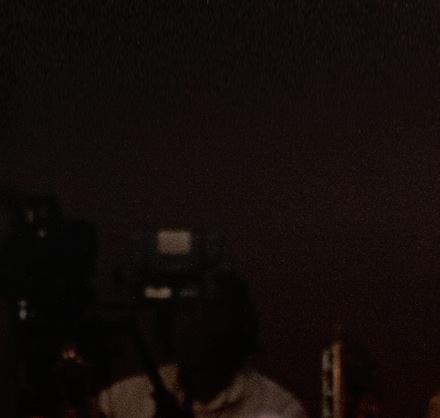



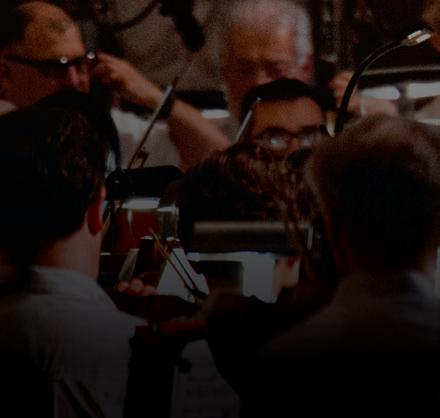


Marin Alsop Chief Conductor


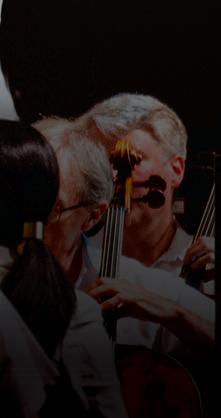

The inaugural three-day festival of concerts, film, social sessions, and symposia spotlights women on the podium, recognizing the 20th anniversary of the landmark Taki Alsop Conducting Fellowship program and the 100th birthday of Margaret Hillis, the pioneering founder of the Chicago Symphony Chorus. 2022 Lead

JUNE 23, 2022 - CHICAGO READER 75
HOME OF THE
JULY 15 – AUGUST 21 TICKETS AND INFO AT RAVINIA.ORG
“My philosophy is: It was tough for me so that I could make it
SUMMER
Marin Alsop, Chief Conductor
easier for you.
Scan
see full
Series Sponsor: Dinah Jacobs Castle
to
series and event package details breakingbarriers.ravinia.org
JOBS
GRAPHIC DESIGNER (Chicago, IL): Crte crtve assts to spprt glbl prdct lnchs & prvd spprt fr mrktng tms glblly. Min req: Bach deg in grphc dsgn, fne arts or rltd. Resumes: M Keller, SSNAC, 656 W. Randolph St, Ste. 2E, Chicago, IL 60661.
Dispatcher. Orozco Trucking Inc, Elk Grove Village, IL. FT. HS diploma is req’d., no exp., no training. Annual salary 32,594.00. Please email resume to Romanj@ orozcotrucking.com
Groupon, Inc. is seeking a Sr. Devops Engineer in Chicago, IL w/ the following responsibilities: Implement Continuous Integration & Continuous Delivery to build & deploy the code in an automated way. Apply at www. grouponcareers.com by searching keyword R26800
USG Corporation is seeking a Director, Commercial Excellence in Chicago, IL with the following requirements: Master’s degree in Business Administration or related field or foreign equivalent degree. 6 years of related experience INCLUDING 3 years of experience in the industrial manufacturing industry in a corporate strategy and/or business operations role; AND 3 years of experience in management consulting, including one year of experience in a manager role. Required Skills: Design and implement management strategies by applying competitive cost analysis, customer segmentation, capabilities assessment, and supply chain analysis (3 yrs); Evaluate and design processes to support management in different functional areas (such as finance, manufacturing, distribution and sales), including expertise in process mapping, M&A due diligence, cross-functional team management (3 yrs); Design and drive the commercial excellence agenda in collaboration with business unit and functional leaders, including pricing, go-tomarket, salesforce organization and incentives, and CRM implementation (3 yrs); Perform data analysis and design scenario modeling to estimate financial impact, using computer tools such as Oracle BI, Tableau, and Angoss (3 yrs). Telecommuting allowed; must live within normal commuting distance of Chicago, IL. Company headquarters in Chicago, IL. Please visit www.usg.com/ careers to view the entire job description and apply.
Looking for a position that allows flexibility in your schedule with the ability to help others?
Home assistance – Provide light housekeeping, run errands or provide transportation if needed. Accompany my Mother to appointments and assist with medications. I am looking for a caring & compassionate person to Care for my Mother. Work Schedule is 5 days a week and 5 hours per day. Salary is $25/hr. Forward your email to William (yolielloyq@gmail. com) for more details.
Aquatic Group is seeking a Quantitative Researcher in Chicago, IL. Use datasets, financial and alternative, in order to make company level forecasts to be consumed by investment models. May work from home 1 - 2 days per week. Must live within commuting distance of office. Email resume to HR@Aquatic.com and reference code 050495 in subject line.
Associate Engineer –Draft drawings, develop steady-state and transient models, prep tech value estimates, assess optimization and parameter trades, and assess potential apps; sizing/ costing of chem components and capital/operating costs; assist w gas processing experiments and pilot scale biomass/ coal/gas conversion; hazard analysis on novel tech and proposal writing thru prelim cost estimates, process flow modeling, and diagram drafting. Reqd: MS in degree in Chem Eng, incl exp w software tools for process simulation, process flow diagram computer aided drafting, and bench scale chemistry/ chemical eng lab. Must have perm US work auth. Dir inquires to Institute of Gas Technology, 1700 S. Mount Prospect Rd., Des Plaines, IL 60018, Attn: A. Carter, HR.
TransUnion, LLC seeks Consultants for various & unanticipated worksite throughout the US (HQ: Chicago, IL) to dev & build sw apps & solutions for data integration & reporting tools. Bachelor’s in Comp Sci/Eng or Info Tech/Sys or related field +3yrs exp req’d. Req’d Skills: analyzing req’s & building sw solutions, prescriptive analysis, stats; edu/exp designing data integration & reporting tools, creating sw fraud detection solutions/ models, big data tools (Hive, Spark), Linux, shell scripting, Python, R, Tableau. 100% telecommuting permitted. Send resume to: Marvin Carter, REF: BS, 555 W Adams St, Chicago, IL 60661.
Technical Project Manager: Mnage complex proj’ts involving all areas of technology & trade. Initiate, plan, schedule, cntrl, & execute info technology proj’ts. Direct & oversee the wrk of proj’t engg team, incl Comp Sw Engrs & Web Applicat’n Dvlprs. Maintain & upgrade both the security of the netwrks as well as informat’n security of clients. Reqd: Assessment in .NET & Masters Deg in Comp Engg, Comp Sci, or rel fld. Resumes to: Americaneagle.com, Attn: HR, 2600 S. River Rd., Des Plaines, IL 60018.
Specialist position available w/ MCKINSEY & COMPANY, INC. US (Chicago, IL). Create & deliver advanced analytics using a variety of techniques incl Purchase Structure, Market Map, Segmentation, Econometric Modeling, & other multivariate stats analyses. Work w/ consulting teams to assure client satisfaction by providing deep analytics, & credible, insightful comm. Dev hands-on knowledge & exp w/ advanced analytic approaches & concepts.
Own workstreams from end to end, from outlining the type of sol through implementation, interpretation of results & transferring capabilities.
Coach Jr colleagues on analytics, machine learning, insights/implications extraction, & other topics per client/project needs. Own analytic plan dvlpmnt & utilize firm standards & processes to deliver workstream results on time & w/in budget. Work w/ leadership in dvlping LOP, POC, PD etc., & assisting in biz dvlpmnt, opening up new opportunities for client impact. Min Master’s Degree in Analytics, Stats, or rel field, or foreign degree equiv. Min 2 yrs of exp dvlping & applying predictive models & advanced stat approaches in a corp or cons setting. Exp must incl: using data mining packages: R, SPSS, Alteryx, Excel, & Tableau; using advanced analytics & stat techniques: classification & regression tree (CART/CHAID), factor analysis, correspondence analysis, clustering, discriminant analysis, & multivariate regression/econometric modeling, predictive modeling, & Random Forest. Domestic & int’l travel typically req. Destination & frequency impossible to predict. Email your resume to CO@mckinsey.com & refer to Job # 5580014. No phone calls please. An EOE
Select Minds, LLC. has multiple openings at multiple levels for the following positions: Master’s+1yr exp/equiv.: Software Engineer (SMSE21): SQL, UNIX, Java, Shell Scripts, Service Now and Python. Master’s+2 yrs/Bachelor’s+5yrs exp/equiv.: Network Engineer I (SMNEI21): TCP/IP, LAN, WAN, VLAN, and Cisco Routers. Mail resume with job ID # to HR: 1750 E. Golf Rd., Suite 395C, Schaumburg, IL 60173. Unanticipated work site locations throughout U.S. Foreign equiv. accepted.
QRM is looking for a Statistical and Market Pricing Analyst to use stat & math modeling, simulation, & pricing analysis to eval & optimize functionality pricing & performance in enterprise-wide math software system to measure risk mgt & fin pricing practices for cl. Model fin instr in QRM Analytical Framework for accurate valuation, pricing & forecasting fin meth, perform mkt pricing val & scenario anal using int rate & prepmt models for benchmark profitability stds for cl. Uses Database Appl MS SQL, SQL Lite & SQL Teradata and Python, VB.Net & SSIS to devp pricing & modeling sw enhancements to process & store mkt data in QRM Analytical Framework db, monitor & evaluate mkt data w/ quant & stat measures for data qual & integrity & generate addl correlation matrix & data pkgs for cl. Eval new risk mgt features & functions to test integrity of data & transmission in risk mgt sol, accuracy of price calc & trans w/Quality Assurance testing proc to impl enhancements & upgrades to syst. Req Master’s Degree in Statistics, Mathematics or Mathematical Finance & six mos exp in occup related to modeling & analysis of pricing strategies. Send resumes to: QRM, Attn: YTGC, PO BOX 2521, Chicago IL 60690.
Associate Attorney (Commercial Finance). Juris Doctor (J.D.) deg. req’d. Min. 2yrs.’ exp. in atty. pos’n.(s) involving asset-based lending, debtor-in-possession (DIP) financing & int’l. cross-border transactions involving multi-jurisdiction secured transaction laws req’d. Active Illinois Law license req’d. Goldberg Kohn Ltd., Chicago, IL 60603.EOE. Resumes to: Recruiting, Goldberg Kohn, 55 East Monroe Street, Suite 3300, Chicago, IL 60603 or email to recruiting@ goldbergkohn.com
The Department of Population Health Nursing Science at the University of Illinois Chicago (UIC), located in a large metropolitan area, is seeking a full-time Clinical Assistant Professor/ Clinical Practice Nurse Educator to assist the department with the following responsibilities: Under direction and supervision, teach specialized courses to undergrad a nd graduate students pursuing specialization as advanced practice registered nurses. Utilize knowledge of family practice, infectious disease, and community health to teach didactic and clinical courses to undergrad and graduate students. Provide clinical care through College’s faculty practice that focuses on infectious disease treatment and prevention, including HIV and COVID-19. Advance program of clinical scholarship through both program development and dissemination of clinical work. Serve as an academic advisor to doctoral students and serve on college committees. Other College and Department responsibilities as assigned. Some travel may be periodically required for local travel in between worksites, conferences, and/or professional development. This position minimally requires a Ph.D. degree or Doctor of Nursing Practice (DNP) degree, or its foreign equivalent, in Nursing or related field of study, and a valid State of Illinois Registered Nursing license or eligibility for such a license. For fullest consideration, please submit your curriculum vitae, cover letter, and three references by 07/19/2022 to: Mr. Edward Drogos College of Nursing University of Illinois Chicago 845 S. Damen Ave. (907E NURS, MC 802) Chicago, IL 60612 Or via email to edrogo2@ uic.edu. The University of Illinois at Chicago is an affirmative action, equal opportunity employer. All qualified applicants will receive consideration for employment without regard to race, color, religion, sex, gender identity, sexual orientation, national origin, protected veteran status, or status as an individual with a disability. Offers of employment by the University of Illinois may be subject to approval by the University’s Board of Trustees. The University of Illinois may conduct background checks and other pre-employment assessments on all job candidates upon acceptance of a contingent offer. Background Checks will be performed in compliance with state and federal law. The University of Illinois System
requires candidates selected for hire to disclose any documented finding of sexual misconduct or sexual harassment and to authorize inquiries to current and former employers regarding findings of sexual misconduct or sexual harassment. For more information, visit https://www.hr.uillinois. edu/cms/One.aspx?portalId=4292&pageId=1411899 University of Illinois faculty, staff and students are required to be fully vaccinated against COVID-19. This employment offer is contingent on your timely submission of proof of your vaccination. If you are not able to receive the vaccine for medical or religious reasons, you may seek approval for an exemption in accordance with applicable University processes.
Tax Senior Associate –(Chicago, IL) RSM US LLP: Plan & execute tax engagements as part of a collab team, incl tax compliance & strategic tax consulting. Reqs: Bachelor’s (or frgn equivt) in Accounting or rel; 3 yrs exp as a Sr. Accountant or a rel position. Must hold a CPA license or be eligible to sit for the CPA exam. Email resumes to: Attn: C Volkening –Ref # 2536, claudine. volkening@rsmus.com
Transaction Services Senior Associate with Crowe, LLP (Chicago, IL): Prfrms buy side & sell side fincl due dilgnce for clients & trget companies acrss mltple indstres, incldng mnfctrng & dstrbutn, tech, constrn, rstrnt & retail, biz srvcs, & food & commdtes. Reqs up to 25% domestic trvl. Remote work avail. Reqs ed & exp. For full job details, all reqs & to apply online, visit: bit.ly/TranscAsscIL
Thoughtworks seeks Lead Infrastructure Consultant to work in Chicago, IL & various unanticipated U.S. locations to lead the design, planning and execution of complex technical implementations for infrastructure projects. Must have Bachelor’s in Computer Science, Computer or Electrical Engineering, Information Systems, or related field. Must have 5 years exp. in the job offered, Consultant, Infrastructure Engineer, Developer, or related IT occupation. Must have at least 36 months exp. in: (1) Automating infrastructure in at least one of the primary cloud providers (AWS, GCP, or Azure). Must have at least 12 months exp. In: (1) Playing a leading role in the design, planning and execution of complex technical implementations for Infrastructure as Code;
(2) Setting up key delivery infrastructure across the entire lifecycle of software, including Continuous Delivery pipelines and Observability tooling for production operations; (3) Coaching and mentoring junior developers in all aspects of software development, including Agile development methodologies; and (4) Working on projects with distributed teams, including coordinating across countries and time zones. At least 80% travel across U.S. Send resume to ijobs@thoughtworks.com w/ Job ID SM-LIC2022.
RESEARCH
Have you had an unwanted sexual experience since age 18? Did you tell someone in your life about it who is also willing to participate?
Women ages 18+ who have someone else in their life they told about their experience also willing to participate will be paid to complete a confidential online research survey for the Women’s Dyadic Support Study. Contact Dr. Sarah Ullman of the University of Illinois at Chicago, Criminology, Law, & Justice Department at ForWomen@ uic.edu, 312-996-5508. Protocol #2021-0019.
PROFESSIONALS & SERVICES
CLEANING SERVICES
CHESTNUT ORGANIZING AND CLEANING SERVICES: especially for people who need an organizing service because of depression, elderly, physical or mental challenges or other causes for your home’s clutter, disorganization, dysfunction, etc. We can organize for the downsizing of your current possessions to more easily move into a smaller home. With your help, we can help to organize your move. We can organize and clean for the deceased in lieu of having the bereaved needing to do the preparation to sell or rent the deceased’s home. We are absolutely not judgmental; we’ve seen and done “worse” than your job assignment. With your help, can we please help you? Chestnut Cleaning Service: 312-332-5575. www. ChestnutCleaning.com
ADULT SERVICES
Domination. Experienced lifestyle Mistress. Discreet. All limits respected. Contact for more information and pic. SSC. RACK. WIITWD. 630-6317117 text or voicemail chasinglighttoo@gmail. com
76 CHICAGO READER - JUNE 23, 2022 ll
JOBS ADMINISTRATIVE SALES & MARKETING GENERAL REAL ESTATE RENTALS FOR SALE NON-RESIDENTIAL PROFESSIONALS & SERVICES CLEANING RESEARCH ADULT SERVICES WANT TO ADD A LISTING TO OUR CLASSIFIEDS? Email details to classified-ads@chicagoreader.com
CLASSIFIEDS







































































JUNE 23, 2022 - CHICAGO READER 77 e Chicago Reader is now biweekly More than 60,000 copies will be available at nearly 1,200 locations across the city and suburbs. Find one near you and/or download the current issue: chicagoreader.com/map Upcoming Issues: Cannabis Conversations Food & Drink Issue WCT Insert Fall Theater/Arts Preview Cannabis Conversations July 7, 2022 July 21, 2022 Aug. 4, 2022 Aug. 18, 2022 Sept. 1, 2022 Sept. 15, 2022 Sept. 29, 2022 Oct. 13, 2022 Oct. 27, 2022 331661_4.75_x_4.75.indd 1 2/23/22 12:37 PM

















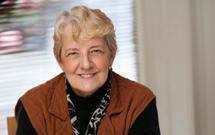

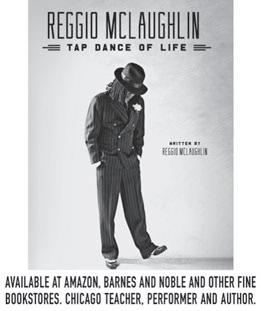



















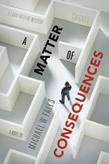

78 CHICAGO READER - JUNE 23, 2022 ll Outside Noise Reduction Keeps Bugs & Spiders Out Reduce or Eliminate Fog & Water Noise from Outside? Visit stormsnaps.com or noisewindows.com sales@stormsnaps.com Alpina Manufacturing, Chicago, IL 1-800-915-2828 Soundproofing Window Inserts the platform The Chicago Reader Guide to Business and Professional Services To advertise, email ads@chicagoreader.com home improvement legal books Fun, Clean, Picture Frame assembly JOB $18/hour Tired or bored of clicking away on a keyboard working at home? Keep your hands and mind busy with a fun, safe, clean assembly job. You’d have your own large assembly zone, at least 15-20 feet away from others, so we’re really safe here. Top rated rm Alpina Manufacturing LLC founded in 1992 Beautiful campus in Galewood, near Mars candy, 3 blocks north of Oak Park. We build and sell display framing systems to customers nationwide including Wal-Mart, Verizon, Circle K gas stations, Hospitals. Full time, Part time, Flex hours for working parents or students. We train, no travel, work in Galewood. Open to any backgrounds. Excellent pay, friendly caring management. Stop in anytime between 7am and 4pm M-F ask for Izzy to apply and check us out. Alpina Manufacturing 6460 W Cortland St., Chicago, IL 60707 business consulting entertainment Brigi e Schmidt Bell, P.C. 847-733-0933 lawyers@bsbpc.com Brigi eBell.com Brigi eSchmidtBellPC Considering Divorce? We Can Help. Collaborative | Prenuptual Divorce | Mediation insurance services health and wellness YOUR AD HERE dance JOIN US! WWW GECHAMBER COM What Greta said . . . shop local 5301N.ClarkSt.Fl.2 CHICAGODANCESUPPLY.COM 773-728-5344 A Matter of Consequences by Michael W. Falls Available on Amazon and Booklocker A Classic Chicago Mystery Customized Massage Therapy, Intuitive Energy Work, and Holistic Talk Therapy 2514 W Armitage Ave, Suite 211 Chicago, IL 60647 773-697-9278 www.intuithealing.com Open Thursday-Monday BY APPOINTMENT ONLY your heading here
The Budrista platform is a cannabis industry and lifestyle project. Its purpose is to support the healthy and balanced lifestyle of cannabis industry workers. Budrista functions through various outlets such as educational programming and recreational events. By signing up, you’ll have first access to our events and programming!























JUNE 23, 2022 - CHICAGO READER 79 ll 6/30 @ timeout market 6/23 @ timeout market 7/14 @ timeout market Damian Rivero Trio high supply Moonshine brothers all star band CALL 1-855-927-2570 promo code N7017 TM * Prices are per person based on double occupancy plus up to $299 in taxes & fees. Single supplement and seasonal surcharges may apply. Add-on airfare available. Free date changes 100 days before departure for all land tours and cruise tours. Deposits and final payments are non-refundable. Onboard Credit requires purchase of Ocean View or Balcony Cabin. O ers apply to new bookings only, made by 9/30/22. Other terms & conditions may apply. Ask your Travel Consultant for details. BEST OF HAWAII FOUR-ISLAND TOUR GRAND ALASKAN CRUISE & TOUR Oahu • Hawaii Island • Kauai • Maui — Enjoy a fully guided 4-island Hawaiian vacation with centrally located lodging in Waikiki on Oahu, and beachfront lodging on the “Big Island” of Hawaii, Kauai, and Maui. Guided throughout by our friendly Tour Directors—your local experts. Includes 3 inter-island flights. Vancouver • Ketchikan • Juneau • Skagway • Glacier Bay • Denali Anchorage • and more — Visit Denali National Park and Glacier Bay National Park on the same incredible trip! Cruise through the Gulf of Alaska and the Inside Passage as you discover the best of the Frontier State by land and by sea. 12 days, departs year-round 12 days, departs May - Sep 2023 FROM $2,549 * $2,299 * FROM $2,049 * $1,799 * FREE ONBOARD CREDIT PLAN YOUR DREAM VACATION the cannabis platform a Reader resource for the canna curious www.neuromedici.com 312 772 2313 Find out today f medical cannab s or nfus on therapy is right for you Te emed availab e! Your partners n health and wellness Serving medical cannabis patients since 2015. To advertise, email ads@chicagoreader.com CBD / cannabis recipes, psychedelic drawings to color, word puzzles to stimulate your brain, growing tips, and more! chicagoreader.com/420book










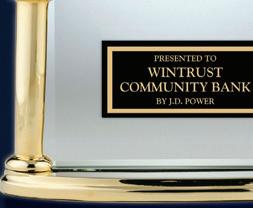
For J.D. Power 2022 award information, visit jdpower.com/awards
RETAIL
Founded on transparency and trust, Wintrust is Chicago’s longest-standing, most experienced banking option — with better banking benefits, support for every chapter of life, and bankers who know your neighborhood like you do. WINTRUST.COM/YOURTEAM
WITH
BANKING IN ILLINOIS
Learn more about our work at injusticewatch.org.



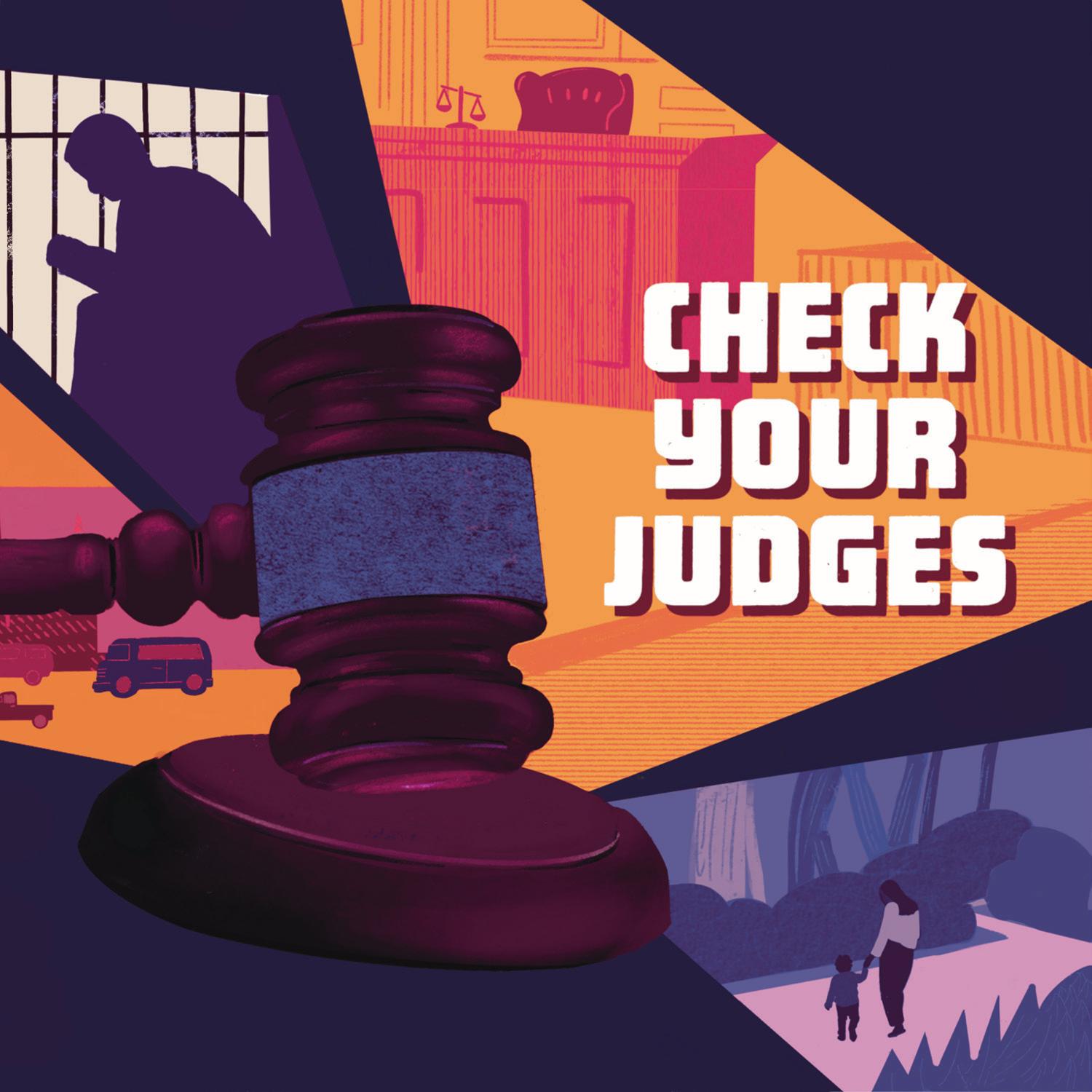
 Your voting guide to Cook County’s 2022 judicial primary elections
Your voting guide to Cook County’s 2022 judicial primary elections
SPECIAL PULLOUT SECTION
Roadmap to the races
APPELLATE COURT COUNTYWIDE CIRCUIT COURT SUBCIRCUIT COURT
Hall vacancy
Brennan vacancy
1st: Johnson vacancy
8th: Lipscomb vacancy
{ Jennifer Bae
{ Stephen Swedlow
Harris vacancy
Callahan Jr. vacancy
4th: Gavin vacancy
9th: Cleveland vacancy
Sanjay Tailor
Ann Buran-Vongher
Clip, mark your choices, and take with you
4th: Rogers vacancy
WHAT TO KNOW
This year’s Illinois primary elections are on June 28.
Early voting in Chicago’s 50 wards and sites in suburban Cook County starts June 13. To find your polling place: City residents: www.chicagoelections.gov
Suburban Cook County residents: www.cookcountyclerkil.gov/elections
Who can vote?
Voters must be at least 18 years old, a U.S. citizen, and reside in their precinct for at least 30 days prior to Election Day. People with felony convictions can vote in Illinois as long as they are not serving a felony sentence in prison or jail.
For more information about each candidate and to locate your subcircuit, scan the QR code or visit injusticewatch.org/judges.

9th: Jacobius vacancy
{ Basileios “Bill” John Foutris
{ Torrick Alan Ward
{ Barry Goldberg
{ Don R. Sampen
{ Thomas E. Nowinski
{ Carmen Migdalia Quinones
Cannon vacancy Hyman vacancy Ingram vacancy
Leeming vacancy Lynch vacancy McGury vacancy
5th: Portman-Brown vacancy
Jenetia Marshall
5th: Shelley vacancy
Timothy W. Wright, III
Judie Lyn Smith
Tiffany N. Brooks
Jackie Marie Portman-Brown
6th: Araujo vacancy
Charles “Charlie” Beach (unopposed)
6th: Vega vacancy
Kerrie Maloney Laytin
11th: McGuire vacancy
{ Chris Taliaferro
Aileen Bhandari

13th: Groebner vacancy (Republican)
Christine Svenson
Gary William Seyring
Dominic J Buttitta, Jr
13th: Groebner vacancy (Dem)
James “Jack” Costello
O’Brien vacancy Sullivan vacancy
7th: Martin vacancy
{ Marcia O’Brien Conway { Owens “Joe” Shelby
8th: Gordon vacancy
{ Pat Casey
{ Bradley R. Trowbridge { John Fritchey
14th: Brown vacancy
Iris Y. Chavira (unopposed)
14th: Jagielski vacancy
Joe Gump { Steve Demitro
Viviana Martinez
{ Jorge V. Cazares
15th: Lawler vacancy
{ Bernadette Barrett
{ Jim Gleffe
2 INJUSTICE WATCH JUDICIAL ELECTION GUIDE 2022
All
2 vacancies Candidate profiles start on Page 4 Candidate profiles start on Page 8 Candidate profiles start on Page 3 10 vacancies 17 vacancies {
{
{ Lisa
{
{ Yolanda
{ Araceli R. De La Cruz { Jacqueline Marie Griffin { Dan
{ Russell “Russ” Hartigan { Dominique
Ross { Debra B. Walker { Raymond W. Mitchell { Devlin
{
{ Mary
McMahon { Suzanne
{ Tracie
{ Rena
{ Wende Williams { Thomas More Donnelly { Claudia Silva-Hernandez { Meridth Vanae Hammer { Diana
{ Monica
{ Mable
{ Deidre Baumann { Paul
{ Michael Weaver { Ruth
Gudino { Chelsey Renece Robinson {
{
{
{
{
{
{
{
{
{
{
{
primary races are on the Democratic ballot unless otherwise noted. For subcircuits, voters will see only those contests on their ballot for the subcircuit in which they reside.
Howard B. Brookins, Jr.
Ubi O. O’Neal
Michelle Taylor
Elizabeth “Beth” Ryan
Harris Sayre
Balanoff
C.
Joseph Schoop
John H. Ehrlich
Bernadette
Therese McEneely
Porter
Marie Van Tine
Lόpez
G. Somerville
Taylor
Joyce
Isabel
Maria M. Barlow
John W. Wilson
Nick Kantas
Amanda Moira Pillsbury
Jerry Barrido
Chloe Georgianna Pedersen
ShawnTe Raines-Welch
Patrick Campanelli
David L. Kelly
{
{
{
{
{
{ David S. Rodriguez
{
{
{
{
{
{
{
{
{
Why you should check your judges
Judicial candidates might be among the most obscure names on your ballot, but these elections come with high stakes. Judges are powerful officials whose choices on the bench touch many aspects of life, from traffic tickets to divorces, lawsuits, evictions, and criminal cases. They have the power to take someone’s freedom, enforce or overturn state laws, and correct or perpetuate injustices. Yet there are few places to get information about the people running for judge. That’s why Injustice Watch created this guide to judicial candidates running in Cook County’s primary elections on June 28, 2022.
Illinois voters elect judges every two years. This year, 75 candidates are running for 29 judicial vacancies in Cook County. Every voter will get to choose candidates to fill two appel
late court seats and 10 circuit court seats.
You may also have one or two subcircuit races on your ballot depending on where you live. Judges elected from subcircuits have the same responsibilities as other circuit court judges, but only people who live in that subcircuit can vote for them.
Our team spent months researching the candidates’ legal experience, community involvement, donors, political connections, conduct, and controversies. We sent every candidate a survey asking why they deserve your vote. And we collected recommendations from 13 bar associations, groups of lawyers who interview and rate candidates.
A condensed version of our findings, edited for space and clarity, appears here. For more detailed candidate profiles, visit injusticewatch.org/judges
Understanding the candidate icons

Current or former public defender: This candidate has served as a public defender, representing clients in criminal court who can’t afford a private attorney.
Current or former prosecutor: This candidate has served as prosecutor in criminal or quasi-criminal (such as traffic court) cases at the city, county, state, or federal level.
Appointed judge: When a judicial vacancy opens at any level, the Illinois Supreme Court appoints someone to fill the seat until after the next election. Candidates with this icon were appointed to the court at some point.



Democratic Party pick: The Cook County Democratic Party endorses candidates for appellate court and countywide circuit court seats but not for subcircuit seats.


About the endorsers
This guide includes endorsements, available by press time, from labor groups and other political organizations that have a defined process for endorsing judicial candidates. We exclude endorsements from individual politicians or community leaders.
Chicago Federation of Labor (CFL): An umbrella organization of more than 300 local labor unions in Chicago and Cook County.
Past controversy: The candidate has been involved in some kind of personal or professional controversy.
Highly qualified ratings: Two or more bar associations have rated this candidate highly qualified or recommended. Not all bar associations give out ratings higher than qualified. But those that do have suggested that this candidate is particularly well-suited to be a judge.

Negative ratings: At least two bar associations have said this candidate is not recommended or not qualified to be a judge. Candidates who don’t participate in the ratings process are automatically rated as not recommended. For complete bar association ratings, visit injusticewatch.org/judges.
Russell “Russ” Hartigan
Experience: Goldstine, Skrodzki, Russian, Nemec and Hoff, Ltd.
• Partner (2017-pres ent): Serves as a medi ator and practices civil litigation.

Cook County Circuit Court


• Circuit judge (2010-2017): Appointed by the Illinois Supreme Court, then elected in 2012. Presided over civil jury and non-jury trials in the Bridgeview courthouse.
Various law firms
• Partner (1981-2010): Operated firm with different partners through the years, defending municipalities in law suits, handling worker’s compensation and personal injury cases, and serving as a mediator and arbitrator.
Notable: Hartigan resigned from the circuit court in 2017 due to an illness in his family. He ran unsuccessfully for circuit judge again in 2020 and applied to be an associate judge in 2021 but was not selected. Hartigan has also served numerous stints as an elected official in several suburban Cook County communities, including Lyons Township, where he’s a former township supervisor, school board member and trustee, and Western Springs, where he served on the zoning board and is also a former village board trustee.

Bar association ratings: Rated qualified or above by all bar groups and highly recommended or highly qualified by two.
Dominique C. Ross
Experience: Cook County Circuit Court
• Circuit judge (2008-present): Hears divorce, child custody and other cases in the domestic relations division.

Attorney in private practice

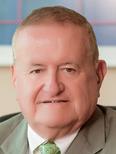
hours without telling her. The case was ultimately settled. Several attorneys told Injustice Watch that Ross has been known for showing up late to court and has, on occasion, missed or continued hearings. At least one attorney men tioned she has improved in recent years. In a statement, Ross said she could not adequately respond without knowing the specifics of the allegations. “It is more likely than not that a circumstance arose outside of my immediate control at the time and that was the reason I was not present for an undated and unspecified amount of my 1000’s of hearings set to be heard from 2008 to 2022,” she wrote. “In either circumstance, tardy or not attended, the amount would surely be at the most overly exaggerated of averages, less than a fraction of a percent. Therefore, I reject the characterization of tardiness and not showing up being a reputation and I find it insulting.”
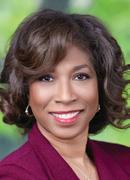

Bar association ratings: Rated qualified or recommended by six bar associations. Three bars rated her not qualified or not recommended. The other evaluations were not available by press time.
Endorsements: CFL, Personal PAC
Debra B. Walker
Experience: Cook County Circuit Court
• Circuit judge (2008-present): Currently serves in the domestic relations division presiding over divorce cases.
Clausen Miller, P.C.
• Partner (1996-2008): Represented professionals accused of malpractice and judges accused of misconduct by the Judicial Inquiry Board.
Brydges, Riseborough, Peterson, Franke and Morris
• Senior associate (1993-1996)
Independent Voters of Illinois-Independent Precinct Organization (IVI-IPO): A nonprofit, independent political organization focused on voter education, voter registration, and candidate endorsements.
Personal PAC: An abortion-rights political organization focused on ensuring access to abortion in Illinois.
• (1995-2008): Focused on family law.
Notable: Ross is a former chair of the Illinois Judicial Council, an association of Black judges. Ross was sued in 2009 by an election attorney she hired for allegedly failing to pay him more than $60,000 for his work. Ross counter-sued, saying the attorney had exceeded his estimated
Notable: Before going to law school, Walker was a certified public accountant. Walker is a former chair of the Illinois Supreme Court Commission on Profes sionalism, which conducts training for lawyers and judges.
Bar association ratings: Rated qualified or recommended by five bar associations and highly qualified or highly recom mended by four. The other evaluations were not available by press time.
Endorsements: IVI-IPO, Personal PAC
INJUSTICE WATCH JUDICIAL ELECTION GUIDE 2022 3
Current or former public defender
Current or former prosecutor
Democratic Party pick Past controversy Appointed judge Highly qualified ratings
Negative ratings
APPELLATE COURTHALL VACANCY
Raymond W. Mitchell
Experience: Cook County Circuit Court
• Circuit judge (2008-present): Hears cases in the chancery division, where people bring lawsuits asking a judge to order something to happen. Previous ly presided over trials in civil lawsuits over business disputes.
Winston and Strawn LLP
• Partner and associate (1998-2008): Handled cases in state and federal appellate courts.
Notable: Last year, in a lawsuit filed by the Fra ternal Order of Police, Mitchell ruled that the City of Chicago had to negotiate its Covid-19 vaccine mandate for city employees with the police union through arbitration, halting the mandate for police officers covered by the union. An arbitrator ultimately upheld the vaccine mandate. In 2018, Mitchell dismissed a lawsuit filed against the City of Chicago by two residents over the city’s water pipe modernization program. The residents claimed the city’s work to replace water mains and meters had caused lead to enter their water and that the city had failed to properly notify residents of the danger. Mitchell’s decision was upheld by the Illinois Supreme Court.
Bar association ratings: Rated qualified or recommended by six bar associations and highly qualified or highly recommended by four others by press time.
CFL, Personal PAC
Devlin Joseph Schoop
Experience:
The Cochran Firm Chicago
• Partner (2019-present): Rep resents plaintiffs in civil rights, police misconduct, and cata strophic personal injury cases.
City of Chicago Law Department
• Assistant corporation counsel (2017-2019): Represented the city and police officers in misconduct cases.
Cook County Circuit Court
• Circuit judge (2015-2016): Appointed by the Illinois Supreme Court. Heard traffic cases and later child abuse and neglect cases.
Laner Muchin, Ltd.
• Partner (2008-2015): Represented employers in sexual harassment, discrimination, wage disputes, and other employment cases.
• Associate (2003-2007)
Wildman Harrold Allen & Dixon, LLP.
• Associate (1999-2003): Focused on commercial cases.
Notable: Schoop ran unsuccessfully for circuit judge in 2016 and 2018. He currently represents
a group of Black City of Chicago Water Depart ment employees who are suing the city for alleged discrimination and a hostile work environment. The lawsuit was filed in 2017, shortly before the city’s inspector general released a report that found supervisors in the department exchanged racist, sexist, and homophobic emails. In 2014, Cook County Chief Judge Tim Evans appointed Schoop’s then-firm, Laner Muchin, to investigate allegations of corruption and abuse at the county’s probation department. Schoop played a leading role in the investigation, and shortly after, the Illinois Supreme Court appointed him as a judge. Schoop represented the City of Chicago in a civil lawsuit filed by the family of Alfontish Cocker ham, who was killed in 2014 by officer Anthony Babisch. A jury awarded the family $1.3 million.
Bar association ratings: Rated qualified or recommended by eight bar associations by press time. The Hellenic Bar Association found him not recommended, and the Illinois State Bar Associa tion found him not qualified.
Endorsements: Personal PAC
John H. Ehrlich
Experience:
Cook County Circuit Court
• Circuit judge (2012-present): Hears pre-trial motions for civil lawsuits in the law division. Pre viously presided over foreclosure and traffic court cases.
City of Chicago Law Department
• Deputy corporation counsel, torts division (2008-2012): Represented the city in wrongful death and personal injury cases.
• Assistant corporation counsel and chief assistant corporation counsel, torts division (1995-2008)
Notable: In 2017, Ehrlich dismissed several combined lawsuits filed by 53 former NFL players against helmet manufacturer Riddell. Ehrlich said the players failed to file their suit within the two-year statute of limitations. The appeals court upheld his decision.
If elected, Ehrlich says he would be the first LGBTQ+ appellate court judge in the state.
Some of Ehrlich’s top campaign contributors are personal injury attorneys whose cases could come before him in the law division. Ehrlich said in a statement that it’s not a conflict of interest be cause, “I do not know who has or has not contrib uted to my campaign committee or the amount of any contribution.”
Bar association ratings: Rated qualified or rec ommended by six bar associations. The Women’s Bar Association of Illinois and the Chicago Bar As sociation found him highly qualified. The Illinois State Bar Association found him not qualified.
Endorsements: IVI-IPO, Personal PAC
Howard B. Brookins, Jr.
Experience: Chicago City Council
• Alderperson, 21st Ward (2003-pres ent): Represents neighborhoods on the South Side.
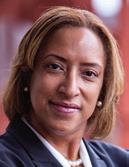
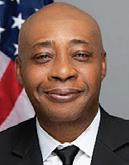
Law Office of How ard B. Brookins, Jr.
• Attorney in private practice (1990-present): Focused on crimi nal defense, estate, personal injury and contract dispute cases.
Cook County State’s Attorney’s Office
• Assistant state’s attorney (19891990)
Cook County Public Defender’s Office
• Assistant public defender (19881989)
Notable: Brookins ran unsuccessfully for Cook County state’s attorney in 2008 and the U.S. House in 2016. As an alderperson, Brookins pushed for years to get Wal-Mart to build a store in his ward and voted against an ordinance that would have mandated a higher minimum wage at big-box stores. He previously chaired the council’s Black Caucus. In 2006, he called on the City Council to stop paying to represent disgraced former police Cmdr. Jon Burge in lawsuits related to his torture of Black men in the 1980s and ’90s. In 2016, his for mer chief of staff pleaded guilty to ac cepting a $7,500 bribe to help arrange a letter of support for a liquor license for a business owner who turned out to be an FBI informant. Brookins was not charged with wrongdoing. In 2020, the Chicago Board of Ethics fined Brookins $5,000, saying that alderpeople are not permitted to represent clients in criminal cases involving Chicago police. Brookins has challenged the board’s decision in court. In an interview, he said he felt a “broad-scale prohibition” on alder people practicing criminal law “seems to be a bridge way too far.”
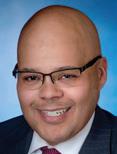

Bar association ratings: Rated qualified or recommended by all bar associations that were available by press time.
Endorsements: CFL

Ubi O. O’Neal
Experience: The O’Neal Law Firm, LLC
• Principal (1993-present): Wide-ranging practice includes criminal defense, medical malpractice, family law, and bankruptcy litigation.

Notable: O’Neal ran unsuccessfully for judge in 2018 and 2020. In 1999, the Illinois Supreme Court censured O’Neal for legal misconduct after he directed his client’s wife to fraudulently endorse a settlement check so that he could be paid for his work and improperly communicated with a cli ent who was represented by another attorney. In an email, O’Neal said, “Censure reflects that the violation was not so serious (as) to warrant a sanction, as a result, censure does not affect the ability of a lawyer to contin ue to practice law.”
Bar association ratings: Did not par ticipate in the evaluation process.
Lisa Michelle Taylor
Experience: Schwartz Gilligan
• Associate (2017-present): Represents defendants in car accidents and other cases involving injuries or insurance claims.
Henderson Parks, LLC








• Attorney (2013-2017): Represent ed plaintiffs in personal injury, medical malpractice, and police misconduct lawsuits.



Lewis Brisbois Bisgaard & Smith LLP
• Partner (2005-2013): Represented defendants in medical and nursing home negligence, car accident, and other civil lawsuits.
Pretzel & Stouffer
• Attorney (2002-2005): Represent ed defendants in medical malprac tice and other civil lawsuits.
Worker, Sitko & Hoffman, LLC
• Attorney (2001-2002)
Bar association ratings: Rated qualified or recommended by all bar associations.
4 INJUSTICE WATCH JUDICIAL ELECTION GUIDE 2022
Endorsements:
APPELLATE COURTHARRIS VACANCY CIRCUIT COURTBRENNAN VACANCY
Mary Bernadette McMahon
Experience: Cook County State’s Attorney’s Office
• Assistant state’s attorney (2005-pres ent): Supervises all of the prosecutors and oversees felony and misdemeanor cases at the Skokie courthouse. Previously was a deputy supervisor at the Rolling Meadows courthouse and prosecuted felony cases.
Notable: McMahon hails from the wealthy and politically connected family that owns McMahon Food Corp., a dairy distribution company. In the early 2000s, the company held lucrative contracts to distribute milk to Chicago Public Schools, the Cook County Jail, and the Cook County Juvenile Temporary Detention Center, according to a 2012 Chicago Sun-Times/Better Government Association investigation. In a statement, McMahon said she previously owned shares of the company but divested from it in 2007. McMahon’s cousin, Joseph Birkett, is an Illinois appellate judge and former DuPage County state’s attorney. Her sister, Frances McMahon Kushner, is also an assistant Cook County state’s attorney.
Bar association ratings: Rated qualified or recommended by seven bar associations and highly qualified by the Chicago Bar Association. The other evaluations were not available by press time.
Endorsements: CFL
Suzanne Therese McEneely
Experience: Cook County Public Defender’s Office
• Assistant public defender (2002-pres ent): Has worked in a variety of roles within the office, including the abuse and neglect division, the domestic violence division, and the criminal division.
Notable: McEneely ran unsuccessfully for judge in 2020. She does not have a current campaign website or a visible social media presence.
Bar association ratings: Rated qualified or above by all and highly recommended by Chicago’s LGBTQ+ Bar Association.
Endorsements: Personal PAC
Tracie Porter
Experience: Cook County Circuit Court
• Circuit judge (2021-present): Appointed by the Illinois Supreme Court. Serves in the traffic division.
Law Office of Tracie R. Porter
• Attorney in private practice (19982000, 2004-2006, 2017-2021): Focused on real estate transactions, contracts, estate planning, and enter tainment law.
Various law schools in Chicago, St. Louis, and California
• Law professor (2004-2021): Taught courses, including legal research and writing, real estate law, and trusts and estates.
Brown Udell & Pomerantz, Ltd.


• Associate (2003-2004): Focused on real estate transactions and litigation.
Barnes & Thornburg
• Associate (2000-2003): Focused on commercial real estate leases and sales.
Bar association ratings: Rated qualified or above by all and highly qualified or highly recommended by four bar associations.
Diana López
Experience:
Cook County Circuit Court
• Associate judge (2021present): Hears traffic cases at the Richard J. Daley Center in Chicago. López Law Group, P.C.




• Solo practitioner (20102021): Focused on family law. Served as a Guardian ad Litem, or child advocate, in divorce and adoption cases. Also served as a mediator in domestic relations cases. Monteagudo, López & Díaz, LLC

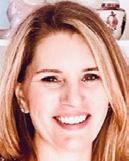
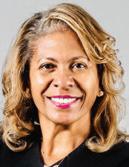


• Managing partner (2006-2010): Focused on family and adoption law.
Nancy C. Murphy & Associates
• Associate (2004-2006)
Cook County State’s Attorney’s Office
• Assistant state’s attorney (2001-2004): Represented the state in child protection and child support enforcement cases.
Bar association ratings: Rated qualified or above by all bar associations.
Endorsements: CFL, Personal PAC
Monica G. Somerville
Experience:

City of Chicago Department of Finance

• Deputy director of citation administration and accounts receivable (2018-2021): Oversaw the division that resolves ticket disputes and works with outside vendors who collect ticket debt for the city.
Chicago City Council Finance Committee


•Executive director and director of workers’ compensation (2013-2017): Oversaw the city’s workers’ compensation program under Ald. Ed Burke.
Illinois Department of Employment Security
• Supervising administrative law judge (2009-2013): Supervised eight adminis trative law judges hearing unemployment benefits appeals.
• Administrative law judge (2003-2007): Reviewed appeals to unemployment bene fit claims.
U.S. Postal Service Law Department
• Attorney (2007-2009): Represented the postal service in employment discrimina tion cases.
City of Chicago Law Department
• Chief assistant corporation counsel (2000-2001): Oversaw personal injury and wrongful death lawsuits against the city.
Notable: Somerville applied to be an associ ate judge in 2021 but was not selected. From 2013 to 2017, Somerville helped run the city’s workers’ compensation program, which was operated for decades by Ald. Ed Burke’s finance committee, until federal prosecutors charged him with racketeering, extortion, and attempted bribery in 2019 (that case is still ongoing). Within weeks, the mayor commissioned an audit of the prior two years of the program, including the last year Somer ville was the director, and the City Council voted to move the program under the city’s Finance Department. The audit found that the program did not have measures in place to detect or prevent fraud, that data collected about workers’ compensation claims was incomplete and disorganized, and that claims were not reviewed or processed according to best practices. Somerville said she would not comment about a “pending investigation and/or litigation.”
Bar association ratings: Rated qualified or recommended by 11 bar associations. The Illinois State Bar Association found her not qualified, and the Women’s Bar Association of Illinois found her not recommended.
Endorsements: IVI-IPO
Mable Taylor
Experience: Law Office of Mable Taylor*
• Attorney in private prac tice: Focuses on criminal defense, personal injury, employment law, family law, and real estate, among other types of cases.
Cook County Mandatory Arbitration Program*
• Arbitrator: Heard civil cases over small amounts of money in a program aimed to divert cases before trials.
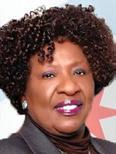
*Injustice Watch could not verify the dates of employment, and Taylor did not provide additional information.
Notable: Taylor ran unsuccessfully for judge in 2012, 2016, 2018, and 2020 and for state representative in 2010. In 2018, Taylor represented Cook County Circuit Court Clerk Dorothy Brown in a petition challenge in her run for Chicago mayor. Brown lost the chal lenge and did not appear on the ballot.
Bar association ratings: Found not qualified or not recommended by six bar associations. The Black Women Lawyers’ Association of Greater Chicago found her recommended. Others were not available by press time.
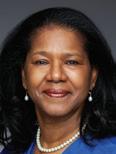
INJUSTICE WATCH JUDICIAL ELECTION GUIDE 2022 5
CIRCUIT COURTCALLAHAN JR. VACANCY
CIRCUIT COURTCANNON VACANCY For more information about each candidate, scan the QR code or visit injusticewatch.org/judges.
CIRCUIT COURT
CIRCUIT COURT
HYMAN VACANCY INGRAM VACANCY
Thomas E. Nowinski
Experience:
Clerk of the Circuit Court of Cook County
• Chief of staff (2020-present): Oversees office’s operations and strategy.
Cook County Recorder of Deeds



• Labor counsel (2018-2020): Oversaw compliance with Shakman decrees, which governs patronage hiring, and negotiat ed union contracts.
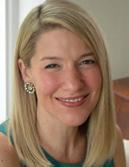
Cook County Assessor’s Office
• Labor counsel (2017-2018): Oversaw compli ance with Shakman decrees, which governs pa tronage hiring, and negotiated union contracts.

Cook County State’s Attorney’s Office
• Assistant state’s attorney (2014-2017; 20042012): Started by prosecuting criminal cases. Later moved to the civil side of the office, representing the county in employment, civil rights, and other civil lawsuits, and ultimately serving as a supervisor.
Cook County Department of Human Resources
• Deputy director of labor relations (2012-2014): Negotiated union contracts and represented the county in labor disputes.
Notable: Nowinski’s father, also named Thomas E. Nowinski, was a Cook County circuit judge from 1991 to 2004. His sister, Christina Nowinski Wurst, is the co-founder of a consulting firm that has worked for Chicago Mayor Lori Lightfoot, and Ald. Howard Brookins Jr. (21st Ward), who is also running for judge this year. While at the Cook County State’s Attorney’s Office, Nowinski represented the office in a civil lawsuit brought by the mother of David Koschman, who was killed by Richard J. Vanecko, a nephew of former May or Richard M. Daley. The suit alleged a cover-up of the incident and botching of the investigation.
Bar association ratings: Rated qualified or rec ommended by all bar associations.
Endorsements: CFL, Personal PAC
Carmen Migdalia Quinones
Experience: Law Offices of Carmen M. Quinones
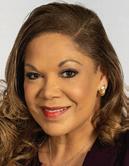
• Attorney in private practice (1989-present): Focused primarily on family law. Also serves as a Guardian ad Litem, or child representative, in domestic relations cases.
Bar association ratings: Rated not qualified or not recommended by eight bar associations.
Elizabeth “Beth” Ryan
Experience: The Law Office of Elizabeth C. Ryan

• Trial attorney (2011-present): Private practice focused on personal injury cases.
Newman, Boyer & Statham
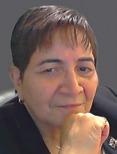
• Attorney (2007-2011): Rep resented clients in personal injury and Social Security/disability cases.



Circuit Court of Cook County
• Law clerk, Judge Martin S. Agran (20042006): Drafted memorandum opinions for a judge in the court’s chancery division.
Notable: Ryan ran unsuccessfully for judge in 2020.
Bar association ratings: Rated qualified or rec ommended by all bar associations.
Endorsements: Personal PAC
Yolanda Harris Sayre
Experience: Illinois State Police
• Legal counsel (2021-present): Represents the state police in employment cases, consults with the Illinois Attorney General’s Office on litigation involving the state police.
Illinois Secretary of State’s Office
• Contract prosecutor (2019-present): Prose cutes license suspensions and revocations in administrative hearings.
Cook County Board of Elections
• Administrative law judge (2010-2020): Presided over cases involving ballot petition challenges.
Chicago Board of Elections
• Administrative law judge (2010-2018): Presided over cases involving ballot petition challenges.
Chicago Police Department
• Attorney (1999-2021): Trained officers at the Chicago Police Academy on legal topics.
Notable: Sayre testified for the state at former Chicago police officer Jason Van Dyke’s murder trial about the use-of-force training she led at the police academy. Van Dyke’s attorney said Sayre was likely Van Dyke’s instructor, but Sayre said she couldn’t recall him specifically.
Bar association ratings: Rated qualified or above by eleven bar associations. The Illinois State Bar Association rated her not qualified.

Endorsements: CFL, Personal PAC
CIRCUIT COURTLEEMING VACANCY
Rena Marie Van Tine
Experience: Cook County Circuit Court
• Circuit judge (2021-present): Appointed by the Illinois Supreme Court in February 2021. Hears civil jury trials with damages of $50,000 or more.
• Associate judge (2001-2021): Heard civil jury trials and child protection cases.
Illinois State Comptroller’s Office
• Special counsel (1999-2001): Oversaw several divisions of the office.
Cook County State’s Attorney’s Office
• Assistant state’s attorney (19871999): Tried felony cases in the criminal division and repre sented the county in medical malpractice lawsuits.
Notable: Van Tine was the first female Indian American state court judge in the country when she was selected as an associate judge in 2001, according to the National Asian Pacific American Bar Asso ciation.
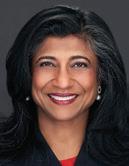
Van Tine was the judge in a civil lawsuit filed against the City of Chicago by the family of Quintonio LeGrier, who was killed by Chicago police officer Robert Rialmo in 2015. The jury in the case awarded LeGrier’s family $1.05 million, but Van Tine overturned the jury’s ver dict based on a “special interrogato ry” they signed saying that Rialmo was in reasonable fear of great bodily injury or death. Interroga tories are written questions about the facts of a case that any party in a lawsuit may ask a jury to answer separately from their verdict. The legal maneuver, commonly used in civil trials, has been criticized for confusing juries.
In a statement, Van Tine said, “As a trial court judge, I am required to apply the law whether or not I agree
with it. The law at the time of the LeGrier case required judges to give special interrogatories requested by any party and prohibited judges from tipping off a jury about how a response to an interrogatory could affect a verdict.” She noted that the case was not appealed and the Illinois legislature has since changed the rules to allow judges to explain to jurors how their votes on special interrogatories might affect the verdict.
Bar association ratings: Rated qualified or above by all and highly qualified or highly recommended by seven bar associations.



Endorsements: CFL, Personal PAC
Wende Williams
Experience: DeLoach Law Office
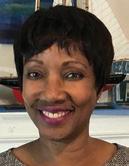
• Attorney in private prac tice*: Focused on criminal defense, person al injury, and child support cases. Notable: Williams ran unsuccessfully for judge in 2020 as Wendelin “Wendi” DeLoach. Williams, who used to practice law in Colorado, had her law license there suspended for 30 days in 1997 for represent ing a client in a murder case when she had previously represented a co-defendant in a separate matter. She used her prior relationship to visit the co-defendant several times in jail without his lawyer’s knowledge or approval. She later acknowledged that her client and the co-defendant had competing interests because her client was offered a plea deal in exchange for testimony against the co-defendant.
*Injustice Watch could not verify her dates of employment, and the candidate did not respond to requests for comment.
Bar association ratings: Did not participate in the evaluation process.
6 INJUSTICE WATCH JUDICIAL ELECTION GUIDE 2022
Deidre Baumann
Experience:
Baumann & Shuldiner
• Partner (2001-present): Focused on civil rights, police misconduct, personal injury, and em ployment discrimination cases.
Deidre Baumann Law Offices
• Attorney in private practice (1996-2001): Focused on civil rights, police misconduct, First Amendment, employment, and criminal defense.
Michael Null and Associates
• Associate (1993-1996)
Notable: Baumann ran unsuccessfully for judge in 2010, 2012, 2016, and 2020. In 2003, a federal judge sanctioned Baumann and her former law partner in a case, saying they had failed to appear in court several times and delayed the case for three years.
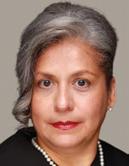
In 2009, Baumann represented families of people buried at Burr Oak Cemetery, a historically Black cemetery in Alsip, in a class-ac tion lawsuit where workers had allegedly emptied graves in an attempt to resell the plots. The lawsuit was settled, but because the cemetery had filed for bankruptcy, most families received very little compensation. Baumann did not respond to a request for comment.
Bar association ratings: Rated qualified or above by most bar associations. The Illinois State Bar Association rated her not quali fied, and the Chicago Bar Association rated her not recommended.

Endorsements: IVI-IPO, Personal PAC
Paul Joyce
Experience:
Cook County State’s Attorney’s Office
• Assistant state’s attorney (1999-present): Has worked in bond court and felony review, and as a prosecutor on felony cases. Currently works at the Skokie courthouse.
Notable: Joyce does not have an active campaign committee or website.
Bar association ratings: Rated qualified or recommended by eight bar associations and highly recommended by the Decalogue Soci ety of Lawyers. Others were not available by press time.
Michael Weaver
Experience:
McDermott Will & Emery
• Partner and associate (2007-present): Current ly oversees the firm’s pro bono practice. Previ ously represented large companies, including Honeywell, in asbestos lawsuits.

High Court of American Samoa
• Law clerk (2006-2007): Drafted opinions for the court’s chief justice and associate justice.
Notable: Weaver applied to be an associate judge in 2021 but was not selected.
Bar association ratings: Rated qualified or above by all. Chicago’s LGBTQ+ Bar Association rated him highly recommended.
Endorsements: CFL, Personal PAC
CIRCUIT COURT CIRCUIT COURT
McGURY VACANCY
Ruth Isabel Gudino
Experience:
Cook County Circuit Court
• Circuit judge (2021-pres ent): Appointed by the Illinois Supreme Court. Cur rently hears traffic cases at the Richard J. Daley Center.
Cook County State’s Attorney’s Office
• Assistant state’s attorney (1997-2001; 20032021): Has served in many roles in the office, including supervisor of criminal prosecutions in Maywood, supervisor of the juvenile jus tice division, and director of legal hiring and recruitment.
United Auto Workers-GM Legal Services Plan
• Staff attorney (2001-2003): Worked on small claims, probate, real estate, and breach of contract cases for Ford and General Motors union employees.
Cook County Public Guardian’s Office
• Assistant public guardian (1995-1997)
Notable: Gudino was a finalist for associate judge in 2019 but was not selected. Gudino’s largest outside campaign donor is Monterrey Security Consultants, a politically connected private security firm that has faced allegations in Illinois and Minnesota of failing to comply with state regulations. Gudino did not respond to a request for comment.
Bar association ratings: Rated qualified or above by all and highly qualified or highly rec ommended by three bar associations.
Endorsements: CFL, Personal PAC
Chelsey Renece Robinson
Experience:
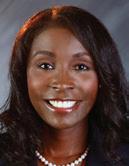
Owens and Robinson
• Founding partner (1996-present): Private practice focused on family law, criminal defense, bankruptcy, and real estate.
Notable: Robinson is a legal consultant for the “Judge Mathis” show. She ran unsuccessfully for judge in 2016 and 2020.
Bar association ratings: Rated qualified or above by most bar associations. The Illinois State Bar Association rated her not qualified.
Endorsements: IVI-IPO
O’BRIEN VACANCY
Araceli R. De La Cruz










Experience:

Cook County Circuit Court

• Circuit judge (2022-present): Appointed by the Illinois Su preme Court effective January 2022. Currently assigned to the traffic division.
Acero Charter School Network
• General counsel and chief administrative officer (2016-2021): Oversaw the legal department and compliance issues for network of 15 schools serv ing more than 7,000 students in Chicago.
Illinois Department of Financial and Professional Regulation
• Chief of General Prosecutions, Division of Pro fessional Regulation (2014-2016): Responsible for enforcing licensing regulations and reviewing disciplinary cases for professions such as cosme tology, roofing, and funeral directors.
Chicago Transit Authority
• Senior vice president and chief safety and security officer (2011-2014): Managed the CTA’s security department and oversaw accident inves tigations.
• Deputy chief of staff (2010-2011)
• Chief of safety and security compliance (20092010)
Cook County State’s Attorney’s Office
• Assistant state’s attorney (2001-2009): Prosecut ed cases in several divisions.
Notable: De La Cruz ran unsuccessfully for judge in 2020. De La Cruz was the attorney for Acero Schools in 2018, when several hundred teachers and staff staged the nation’s first charter school strike. Acero Schools filed complaints against the Chicago Teachers Union with the National Labor Relations Board. The union ended the strike a few days later after reaching a new contract agreement with Acero. In an email, De La Cruz said that both sides dropped their labor complaints after the agreement was reached. She also noted that the charter school network and union negotiated several memoranda of understanding related to the Covid-19 pandemic during her time as general counsel.
Bar association ratings: Rated qualified or above by all and highly recommended by Chicago’s LGBTQ+ Bar Association.
Endorsements: CFL, Personal PAC
Candidate profiles for the O’Brien vacancy continue on the next page.
INJUSTICE WATCH JUDICIAL ELECTION GUIDE 2022 7
CIRCUIT COURTLYNCH VACANCY
CIRCUIT COURT O’BRIEN VACANCY
Experience: Cook County State’s Attorney’s Office
• Assistant state’s at torney (2005-pres ent): Prosecuted child support, child abuse, and juvenile delinquincy cases. Has prosecuted felony criminal cases since 2012, with a focus on sexual assault and domestic violence cases since 2017.
Attorney in private practice
• (2007-present): Represents buyers and sellers in real estate transactions.
Notable: Griffin ran unsuccessfully for judge in 2020. Her father and two uncles were Chicago police officers.
Bar association ratings: Rated qualified or above by 11 bar associations. The Decalogue Society of Lawyers and Chicago’s LGBTQ+ Bar Association rated her not recommended.
Thomas More Donnelly
Experience:
Cook County Circuit Court
• Circuit judge (2021-pres ent): Appointed by the Illinois Supreme Court in December 2021. Presides over jury trials in wrongful death, police shooting, med ical malpractice, and product liability cases.
• Associate judge (2003-2021): Heard a variety of cases, including domestic violence, consumer debt, and felony and misdemeanor criminal cases. Presided over civil jury trials.
• Circuit judge (1999-2000): Appointed by the Illinois Supreme Court.
Cook County Public Defender’s Office
• Assistant public defender (1988-1999)


VACANCY
discovery requests for cases involving white collar crimes.
Independent Police Review Authority
• Staff attorney (2016-2017): Provided legal analysis for investigations into alleged misconduct by Chicago police officers.
Chicago Housing Authority
• Contract attorney (2012-2016): Represented the CHA in administrative hearings about the termination of housing vouchers.
Illinois Attorney Registration and Disciplinary Commission




• Litigation counsel (2008-2011) Will County Public Defender’s Office





• Assistant public defender (2007-2008)
Bar association ratings: Did not participate in the evaluation process.
Endorsements: CFL
Dan Balanoff
Experience: Balanoff and Associates
• Managing partner (2007-present): Primarily focused on estate planning, real estate, and consumer bankruptcy law.
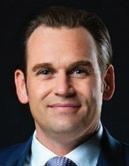
Notable: Balanoff is part of a progres sive political family from Chicago’s Southeast Side with roots in the labor movement. His father is Cook County Circuit Judge Robert Balanoff and his grandmother Miriam Balanoff is a former Cook County circuit court judge and state representative. His uncle, Clem Balanoff, is a former state representative and political consultant, and his father’s first cousin is Tom Balanoff, who recently retired after a lengthy tenure as president of SEIU Local 1.
Bar association ratings: Rated not qualified or not recommended by seven bar associations. Three bar associations found him recommended. Others were not available by press time.
Endorsements: IVI-IPO
Notable: Donnelly first ran for circuit judge in 2000, but lost to Matthew Coghlan. In 2011, Donnelly threw out the arrests of 92 Occu py Chicago protesters who violated the city’s curfew by camping out in Grant Park. Donnelly said in his decision that the curfew ordinance was unconstitutional because the city selectively enforced the curfew. But the Illinois Appellate Court overturned his decision in a judgment lat er affirmed by the Illinois Supreme Court. Since 2016, Donnelly has been a board member of the Illinois Judicial College, which trains judges and staff across the state. Many of Donnelly’s largest donors are personal injury law firms and lawyers, whose cases could come before him in the law division. In an email, Donnelly said, “As a judicial candidate I am not allowed to solicit campaign contributions. My committee handles fundraising matters and abides by all campaign finance rules and safeguards.”
Bar association ratings: Rated qualified or rec ommended by five bar associations and highly qualified or highly recommended by three. Others were not available.
Endorsements: IVI-IPO, Personal PAC
Claudia Silva-Hernandez
Experience:
Clerk of the Circuit Court of Cook County

• Labor counsel (2021-2022): Advised the office on labor and employment issues.
Illinois Department of Human Services
• Administrative law judge (2019-2021): Heard appeals of decisions to terminate state and federal benefits, such as food stamps and child care subsidies.
Solo practitioner
• Contract attorney (2017-2019): Assisted with


Meridth Vanae Hammer
Experience:
The Hammer Legal Group
• CEO (2009-present): Private practice focused on real estate transactions, zoning issues, trusts, and estate planning. Served as an administrative law judge for the City of Indianapolis’ code enforcement department.
Clerk of the Circuit Court of Cook County

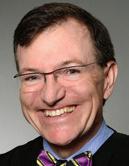
• Deputy general counsel (2019-2021): Provided legal counsel, reviewed outside contracts, and managed outside counsel in employment cases. Crosstown Community Development Corp.
• Corporate counsel (2009-2012): Handled all legal matters for Indianapolis nonprofit. CA, Inc.
• Senior contracts manager and operations manager (2005-2009): Drafted and reviewed contracts for a software company.
Notable: Hammer was the campaign manager for Cook County Circuit Court Clerk Dorothy Brown when she ran for mayor of Chicago in 2019. Brown was removed from the ballot for not having enough petition signatures. Hammer was hired as deputy general counsel in Brown’s office shortly after. Brown was under investiga tion by the FBI at the time for allegations that she exchanged jobs for cash and political dona tions, but she was never charged. In an email, Hammer said Brown hired her for the posi tion based on her “qualifications, experience, knowledge, skills, and abilities and commitment to public service.” Hammer has a bachelor’s de gree in computer science, and before becoming a lawyer, she had a career in software develop ment and information technology.
Bar association ratings: Did not participate in the evaluation process.
Maria M. Barlow
Experience: The Barlow Law Firm LLC
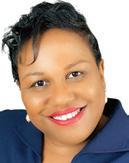

• Principal attorney (2011-present): Primarily focused on family law and estate planning.

City of Chicago Law Department
• Assistant corporation counsel (2008-2011): Prosecuted various types of cases, including traffic tickets and building code violations.
Notable: Barlow ran for Cook County commissioner in the 4th district in 2018. She lost in the primary to Com missioner Stanley Moore.
Bar association ratings: Did not par ticipate in the evaluation process.
John W. Wilson
Experience: Cook County Circuit Court
• Circuit judge (2021-present): Appointed by the Illinois Supreme Court. Serves in the 4th municipal district at the Maywood courthouse.
Cook County Public Defender’s Office
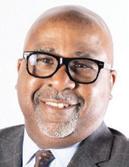
• Assistant public defender (19972021): Served in numerous roles, including acting chief of the 6th municipal district (Markham) and homicide and felony supervisor in Markham. Also served on the ho micide task force, a special division representing people accused of murder.
Notable: Before becoming a lawyer, Wilson was an administrator at City Colleges of Chicago and an assistant men’s basketball coach at Wilbur Wright College. Some of Wilson’s top donors include 4th Ward Ald. Sophia King; her husband, attorney Alan King; and his house music group, the Chosen Few DJs.
Bar association ratings: Rated qualified or above by all and highly qualified or highly recommended by three bar associations.
Endorsements: CFL, IVI-IPO, Personal PAC
8 INJUSTICE WATCH JUDICIAL ELECTION GUIDE 2022
COURTSULLIVAN
CIRCUIT
Jacqueline Marie Griffin
1ST SUBCIRCUIT JOHNSON VACANCY
Nick Kantas
Experience: Cook County State’s Attorney’s Office
• Assistant state’s attorney (2004-present): Currently super vises the juvenile delinquency division. Previously has served as a supervisor in the felony review unit and a prosecutor in the felony trial division.
Notable: Kantas applied for associate judge in 2019 and 2021, but was not selected. Kantas’ wife, Maren Ronan, is a registered Illinois lobbyist who has worked for more than two dozen municipalities, school districts, companies, and nonprofits, including a red-light camera operator and Casa Central Social Services Corp.

Bar association ratings: Rated qualified or recommended by all bar associations.
Amanda Moira Pillsbury
Experience: Cook County State’s Attorney’s Office
• Assistant state’s at torney (2005-pres ent): Prosecutes fel ony criminal cases. Has also worked in child protection, ju venile justice and felony review units.
Notable: Pillsbury ran unsuccessfully for judge in 2018 and 2020. In her 2020 run, she received $1,000 from Chicago businessman and perennial candidate Willie Wilson.
Bar association ratings: Rated not qualified or not recommended by five bar associations.
Endorsements: CFL, Personal PAC
Jerry Barrido
Experience: Cook County Public Defender’s Office
• Assistant public defend er (2000-present): Since 2019, represents defen dants in felony cases at the Maywood courthouse. Before that, was a senior attorney handling hearings about transferring young people accused of serious crimes to adult court. Has also worked in the traffic division, juvenile justice division and forensic science division.
Notable: Barrido ran unsuccessfully for judge in 2018. He told Wednesday Journal in March that he deliberately chose to run in the Rogers vacancy because he wanted to challenge ShawnTe Raines-Welch, whose husband is Illinois House Speaker Emanuel “Chris” Welch. “I deliberately wanted to give the people a choice as to whether or not they wanted to go with the status quo Democratic politics or to have someone who is a fighter in the courtroom, who has a reputation as a zealous advocate and a hard worker period,” Barrido said.



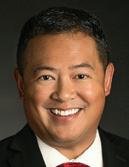
Bar association ratings: Rated qualified or recommended by all bar associations.


Endorsements: IVI-IPO




Chloe Georgianna Pedersen
Experience: Fletcher & Sippel, LLC
• Partner (2019-present): Leads the firm’s labor and employment law practice.
• Associate (2014-2019): Represented railroads and other transportation companies on labor and regulatory issues.
Cook County Recorder of Deeds •Chief legal and labor counsel (20122014): Advised the recorder on legal issues and investigated allegations of employee misconduct.
Office of the Illinois Attorney General
• Assistant attorney general (2010-2012): Defended state agencies in lawsuits, including civil rights and employment discrimination cases.

Illinois House of Representatives
• Assistant general counsel to Illinois House Speaker (2009): Served as the House Parliamentarian, advised on legal and parliamentary issues.
Querrey & Harrow, Ltd.

• Associate (2007-2010)
Notable: Pedersen is the niece of Cook County Clerk Karen Yarbrough. When Yar brough hired Pedersen in 2012 as the chief legal counsel for the Cook County Recorder of Deeds Office, the county’s inspector gen eral said it violated the Cook County ethics code and asked Yarbrough to fire her, the Better Government Association and FOX 32 Chicago reported. In a statement, Pedersen said her hiring was vetted and approved by both the Cook County State’s Attorney’s Office and the court-appointed monitors assigned to review hiring practices. “I was uniquely qualified to help the recorder with her transition given my background in civil rights, and labor and employment issues, and coming from the Illinois Attorney General’s Office where I had previously worked with the same labor organization,” she wrote.
Bar association ratings: Rated qualified or recommended by all bar associations whose ratings were available by press time.
ShawnTe Raines-Welch
Experience: Ancel Glick
• Partner (2019-present): Represents various suburban municipalities and a school district as general counsel. Also presides over traffic hearings and other administrative hearings for towns including Markham and Blue Island.
Sanchez, Daniels and Hoffman, LLC


• Associate (2011-2019): Defended munici
palities and school districts in civil rights and employment lawsuits.
Attorney in private practice
• (2009-2011): Represented plaintiffs in personal injury cases.
Notable: Raines-Welch applied to be an associate judge in 2021 but was not selected. Her husband is Illinois House Speaker Emanuel “Chris” Welch. Raines-Welch has received large campaign contributions from labor groups, including LIUNA Chicago Laborers’ District Council PAC and Chicago land Operators Joint Labor-Management PAC; politicians, including state Rep. Mar cus C. Evans Jr. and House Majority Leader Greg Harris; and corporations, including MuniBuy LLC, which buys and securitizes revenue streams from various municipali ties in Illinois.
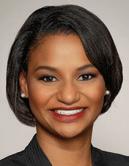

Raines-Welch’s current municipal clients include Dolton and Calumet City. She has faced accusations in both suburbs of pro tecting the mayors over the interests of the trustees and towns. Raines-Welch and her campaign did not respond to requests for comment.

Bar association ratings: Rated qualified or above by 10 bar associations. The Illinois State Bar Association found her not qualified.
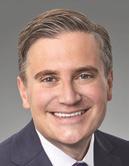
Endorsements: CFL, Personal PAC
Patrick Campanelli
Experience: Patrick Campanelli, Attorney at Law P.C. Attorney in private practice (1986-present): Focused on criminal defense, traffic, and personal injury cases.
Notable: Campanelli is married to former Cook County Public De fender Amy Campanelli. He ran unsuccess fully for judge in 1996 as a Republican.
Bar association ratings: Rated not qualified or not recommended by five bar associa tions. The Chicago Bar Association rated him qualified. Others were not available by press time.
INJUSTICE WATCH JUDICIAL ELECTION GUIDE 2022 9
SUBCIRCUITROGERS
MORE ONLINE Check out our comprehensive judicial election guide To locate your Cook County subcircuit, read more information about each candidate, and create a customized report you can take to your polling station, scan the QR code or visit www.injusticewatch.org/judges.
SUBCIRCUIT GAVN VACANCY
4TH
VACANCY
4TH
VACANCY
David L. Kelly
Experience: Cook County Circuit Court
• Circuit judge (2021-present): Appointed by the Illinois Supreme Court. Currently assigned to the traffic division.
• Illinois Department of Human Services
• Supervising administrative law judge (2019-2021): Conduct hearings related to state and federal benefits programs.
Law Office of David L. Kelly
• Attorney in private practice (2006-2019): Focused on criminal defense and real estate law.
Cook County State’s Attorney’s Office
• Assistant state’s attorney (2001-2006): Prosecuted crimi nal felony and misdemeanor cases.
Notable: Kelly ran unsuccessfully for judge in 2018.
Bar association ratings: Rated qualified or above by all and highly recommended by the Puerto Rican Bar Association of Illinois.
Endorsements: CFL, IVI-IPO, Personal PAC
Jenetia Marshall
Experience: Illinois Department of Children and Family Services
• Statewide compliance administrator (2021-present): Reviews investigations into child abuse and neglect and ensures compliance with court-ordered consent decree.
• Supervisor regional counsel (2019-2021): Represented the department in high-profile or complex cases in court, provided advice and counsel to administrative staff, and worked with state attorney general’s office and local state’s attorney’s offices.
Cook County Office of the Public Guardian
• Senior attorney and Guardian ad Litem (2002-2019): Rep resented children in abuse and neglect hearings.
Notable: Marshall ran unsuccessfully for judge in 2018. She also applied to be an associate judge in 2021, but was not selected. Before becoming a lawyer, Marshall was a case manager for several youth-serving organizations in Chicago.
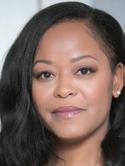

Bar association ratings: Rated qualified or recommended by all bar associations.
MORE ONLINE
Timothy W. Wright, III
Experience:
Quintairos, Prieto, Wood & Boyer
• Managing partner (2011-present): Works on municipal finance transac tions, commercial real estate transactions, and government affairs and regulatory issues.
Gonzalez, Saggio & Harlan
• Managing partner (2007-2011): Worked on govern ment affairs and regulatory issues, mainly for energy companies.
Burris, Wright, Slaughter & Tom



• Partner (2004-2007): Worked on government affairs and regulatory issues.
Television station WJYS •General counsel (1999-2003) Business and Professional People for the Public Interest


• Attorney (1983-1985): Represented residents in the landmark Gautreaux case that challenged the racial segregation of Chicago’s public housing.
Notable: Wright was a finalist for associate judge in 2021 but was not selected. In addition to his legal work, Wright was involved in politics in the 1980s and 1990s. He held director roles for the City of Chicago under mayors Harold Washington and Eugene Sawyer, was a domestic policy advisor for President Bill Clinton, and was chief of staff for U.S. Rep. Bobby Rush. In 2009, Wright represented Roland Burris, whose son was his former law partner, in matters involving his appointment to Barack Obama’s Senate seat by Gov. Rod Blagojevich, who was soon after indicted on corruption charges.
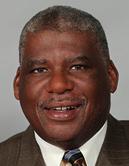
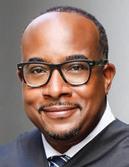
From 2001 to 2014, the IRS filed six liens against Wright’s home for nonpayment of nearly $600,000 in taxes. In an interview, Wright said that those liens occurred while he was working outside the country and that he has since cleared his debts. During the late 1990s and early 2000s, Wright was director of the Southern African Economic Development Fund for the Federal Home Loan Bank of Chicago and chairman of the Sub-Saharan African Advi sory Committee of the Export-Import Bank of the United States.
Bar association ratings: Rated qualified or recommended by all bar associations.
Endorsements: CFL, IVI-IPO, Personal PAC
Judie Lyn Smith
Experience: Cook County Public Defender’s Office
• Assistant public defender (2004present): Currently assigned to the Markham courthouse.
Law Office of Judie Lyn Smith
• Attorney in private practice (1994-present): Focused on real estate and wills and estates.
Office of the Illinois State Appellate Defender
• Assistant defender (1997-1999)
Notable: Smith worked for a year as a lawyer in Japan. Since 2017, she has taught criminal law and procedure as part of the training for new court interpreters.
Bar association ratings: Rated qualified or recommended by 11/13 bar associations. The Illinois State Bar Associa tion and Chicago’s LGBTQ+ Bar Association rated her not qualified or not recommended.
Tiffany N. Brooks
Experience: Clerk of the Circuit Court of Cook County
• General counsel (2020-present): Ensures office’s com pliance with applicable state, local, and federal laws and assists with the implementation of new laws.
City of Chicago Department of Business Affairs and Con sumer Protection
• Assistant commissioner (2018-2020): Managed the intergovernmental affairs unit of the department and served as a liaison to the mayor’s office, City Council, and other officials.
City of Chicago Civilian Office of Police Accountability
• Investigator (2018): Investigated police misconduct complaints.
Chicago City Council committees on economic develop ment and education and child development
• Legislative aide (2015-2018): Served as a liaison be tween committee chairpeople, the mayor’s office, and other elected officials. Helped review and draft ordi nances.
Law Office of Tiffany N. Brooks
• Attorney in private practice (2013-2020): Practice included criminal defense, employment law, adminis trative hearings, estate planning, and bankruptcy and foreclosure cases.
Urban Partnership Bank
• Staff attorney (2011-2013)
• Senior lender (2004-2011)

Notable: Brooks ran for 5th Ward alderperson in 2015, but lost to incumbent Leslie Hairston.
Check out our comprehensive judicial election guide
To locate your Cook County subcircuit, read more information about each candidate, and create a customized report you can take to your polling station, scan the QR code or visit www.injusticewatch.org/judges.
Bar association ratings: Rated recommended by five bar associations and not qualified or not recommended by four. Other evaluations were not available by press time.
Candidate profiles for the Shelley vacancy continue on the next page.
10 INJUSTICE WATCH JUDICIAL ELECTION GUIDE 2022
5TH SUBCIRCUITSHELLEY VACANCY
5TH SUBCIRCUIT PORTMAN-BROWN
VEGA VACANCY
Jackie Marie Portman-Brown
Experience: Cook County Circuit Court
• Circuit judge (2008-2020): Presided over bond court hearings and felony trials. Oversaw deferred prosecution programs and the HOPE court, a specialty court meant to keep struggling probationers out of prison.
Independent Police Review Authority
• General counsel (2005-2008): Reviewed Chicago police misconduct investigations and consulted on legal issues.
Cook County State’s Attorney’s Office
• Assistant state’s attorney (1998-2005): Prosecuted child sexual abuse, narcotics, and misdemeanor cases. Also reviewed felony arrests.
Notable: Portman-Brown lost her judgeship in 2020 after voters did not retain her for another term. She is one of just two Cook County judges who have not been retained in the past three decades. Portman-Brown was placed on admin istrative duty in February 2020 after she was captured on video locking her 6-year-old grandniece alone in a courtroom holding cell for about 10 minutes. In an interview with Injustice Watch, Portman-Brown said the girl’s mother asked her to put her in the holding cell. “There are some who didn’t understand the tough love mentality that was intended for my grandniece, but there were a lot of people in this community who were raised with that. And my nephew, whose daughter it is, understood that,” Portman-Brown said. “Would I do this again? Probably not. But her behavior has been improved since this incident.”
Portman-Brown has proclaimed herself a “lock ’em up” judge in media interviews and faced criticism for her tempera ment on the bench. In 2018, Injustice Watch reported that the HOPE court program she ran was shut down after two separate outside reviews accused her of “bullying” behavior in the courtroom and questioned the program’s efficacy. In an emailed response to Injustice Watch, Portman-Brown said the program was a success and the review by Chicago Apple seed Fund for Justice mischaracterized the comments of the HOPE court team. “I am demanding of everybody including myself because the most important part is that we are all working toward the defendant’s success and the program’s success.”
Bar association ratings: Rated not qualified or not recom mended by 8/13 bar associations.
David S. Rodriguez
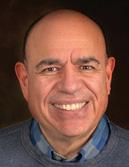
Experience:
Clerk of the Circuit Court of Cook County






• Deputy general counsel (2020-present): Ad vising the clerk on policy and legal matters.
Rodriguez Law Group P.C.
• Attorney in private practice (2006-2020): Focused on a variety of cases, including contract disputes, family law, and real estate transactions.
State of Illinois Court of Claims
• Commissioner (2011-2017): Served as a part-time hearing offi cer for cases where people made claims of monetary damages or injury against the state.
Illinois Department of Financial and Professional Regulation
• Deputy director of banking (1999-2006): Devised and handled banking policy.
Notable: Rodriguez ran unsuccessfully for Illinois Senate in 1998. He filed to run for judge in 2020, but did not get enough signatures to make the ballot.
Bar association ratings: Rated qualified or recommended by all.
Endorsements: IVI-IPO
Kerrie Maloney Laytin
Experience:
Cook County Circuit Court
• Associate judge (2021-present): Hears traffic cases and landlord-tenant disputes in the Richard J. Daley Center.
• Circuit judge (2019-2020): Appointed by the Illinois Supreme Court. Heard traffic cases.
Illinois Human Rights Commission
• Chief administrative law judge (2021): Heard cases of alleged discrimination under the Illinois Human Rights Act and su pervised other administrative law judges.
City of Chicago Law Department
• Assistant corporation counsel and senior counsel (20022019): Represented the city in cases before state and federal appellate courts.
Legal Assistance Foundation of Chicago (now Legal Aid Chicago)
• Staff attorney (2000-2002): Represented people who couldn’t afford an attorney in eviction, domestic violence, employment discrimination, public benefits, and other cases.
U.S. Department of Justice
• Trial attorney, federal programs branch (1999-2000): Repre sented the government in cases challenging the constitutionality of statutes and administrative actions.
Notable: The Illinois Supreme Court appointed Laytin to the circuit court in 2019, but she lost when she ran for a permanent seat in 2020. She was selected as an associate judge in 2021.

Marcia O’Brien Conway
Experience: Conway Law Office
• Attorney in private practice (2020-pres ent): Focused on real estate transactions.
Marcia Conway, Attor ney-at-Law
• Attorney in private practice (20182020; 1986-1991): Focused on real estate transactions.
Cook County State’s Attorney’s Office
• Assistant state’s attorney (1994-2018): Represented the county in litigation over real estate tax issues and in real estate transactions and lease agreements.
Notable: Conway ran unsuccessfully for judge in 2020.

Bar association ratings: Rated qualified or above by all. The Chicago Council of Lawyers rated her well qualified, and the Puerto Rican Bar Association of Illinois rated her highly recommended.

Endorsements: CFL, Personal PAC

Experience: Cook County State’s Attorney’s Office
• Assistant state’s attor ney (2008-present): Prosecutes felony cases. Previously worked on domestic violence and child support cases, as well as on felony review and preliminary hearings. Illinois House of Representatives
• Assistant counsel to the speaker (2008): Conducted legal research and analyzed proposed laws for committees on criminal law, financial institutions, and housing.
Law Offices of Loevy and Loevy


• Contract attorney (2007-2008): Provid ed legal assistance with a class-action lawsuit.
Notable: Shelby ran unsuccessfully for judge in 2014 and 2020.
6TH SUBCIRCUIT
ARAUJO VACANCY
Laytin holds investments in several private companies, according to her financial disclosure forms, including Chicago restaurants
Giant and Chef’s Special Cocktail Bar.
Bar association ratings: Rated qualified or recommended by all.
Endorsements: CFL, Personal PAC
Bar association ratings: Rated qualified or recommended by all bar associations.
Endorsements: IVI-IPO
INJUSTICE WATCH JUDICIAL ELECTION GUIDE 2022 11
6TH SUBCIRCUIT 5TH SUBCIRCUIT
SHELLEY VACANCY
Owens “Joe” Shelby
Charles “Charlie” Beach
7TH SUBCIRCUIT
Beach is running unopposed in this primary. For his full candidate profile, visit injusticewatch.org/judges
MARTIN VACANCY
Pat Casey
Experience:
Attorney in private practice
• (2020-present): Focused on personal injury cases.
• (2003-2009): Focused on criminal defense, police misconduct, and personal injury cases.

Illinois Department of Human Services
• Supervising administrative law judge (2013-2019): Supervised other judges and heard appeals of denials of Medicaid benefits.
Illinois Department of Employment Security
• Administrative law judge (2009-2012): Heard appeals of denials of unemployment benefits.
Chicago Police Department
• Sergeant (2000-2002): Worked in the 15th district on the West Side, the 9th district on the South Side, and in central detention.

• Police officer (1993-2000): Worked in the 14th district on the Northwest Side.
Notable: Casey filed to run for judge in 2020, but withdrew before the election.
Bar association ratings: Rated not qualified or not recommended by 8/13 bar associations.
Endorsements: CFL, Personal PAC
Bradley R. Trowbridge
Experience: Law Offices of Bradley R. Trowbridge
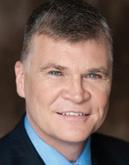
• Attorney in private practice (2003-pres ent): Practice focuses on family law, divorce, and domestic violence cases. Has also served as a Guardian ad Litem, or child representative, in family court.
Pro Bono Advocates
• Staff attorney (2003): Represented survivors of domestic violence in orders of protection and child custody cases.
Legal Assistance Foundation
• Staff attorney (2001-2002): Represented clients in housing, domestic violence, Social Security benefits, and bankruptcy cases.
Notable: Trowbridge ran unsuccessfully for judge in 2012, 2018 and 2020. The IRS and the state of Illinois have filed liens against a property Trowbridge owns for nonpayment of more than $88,000 in income taxes from 2008 through 2015. Trowbridge wrote in an email to Injustice Watch that he is in a
payment plan with both the IRS and Illinois. “I certainly did not intend to file inaccurate returns for those years,” he stated.
Bar association ratings: Rated qualified or recommended by all bar associations.
Endorsements: IVI-IPO, Personal PAC
John Fritchey
Experience:
F4 Consulting Ltd.
•Government relations director (2008-present): Runs a lobbying and political consulting firm.
Worked as a political analyst for radio station WGN.
Cook County Board of Commissioners
• Commissioner, 12th district (2010-2018): Represented parts of Chicago’s North and Northwest sides.
Law Office of John A. Fritchey
• Attorney in private practice (2004-2008): Focused on zoning and other administra tive issues in Chicago.
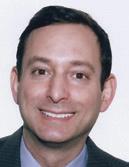

Illinois House of Representatives
• State representative, 11th district (19962010): Represented parts of Chicago’s North Side.
Notable: As a county commissioner, Fritchey was a staunch opponent of the pennyper-ounce “soda tax” and a proponent of marijuana legalization. Fritchey’s lobbying and consulting firm has represented several cannabis companies in zoning issues before the City of Chicago, and also represents the Pilsen Wellness Center, a mental health and substance use treatment facility. He is not currently registered as a lobbyist with Cook County or the state of Illinois.
In 2013, the Chicago Tribune reported that Fritchey was one of a handful of politicians and wealthy individuals who had gotten Cook County judges to protect their identities in divorce proceedings by allowing them to file paperwork with initials instead of their full names. In an email, Fritchey wrote, “Illi nois law allows for absolutely anybody to request to file under initials but it’s likely not something that most people care to or choose to do. … I didn’t and don’t see any special treatment whatsoever.”
Bar association ratings: Rated not qualified or not recommended by four bar associations. Eight bar associations rated him qualified or recommended.
Endorsements: Personal PAC
Jennifer Bae
Experience: Cook County Sheriff’s Office
• Director of em ployee discipline (2019-present): Oversees employee discipline and rep resents the sheriff’s office in grievance and arbitration with union members.
• Member, Sheriff’s Merit Board (2013-2017): Conducted disciplinary hearings for sworn members of the sheriff’s office and voted on disci plinary actions.
Chicago City Council
• Staff attorney, finance committee (2017-2019): Wrote and advised on city ordinances and policies intro duced in the finance committee.
Law Office of Jennifer E. Bae
• Solo practitioner (2012-2017): Fo cused on criminal defense.
Bae Law Offices
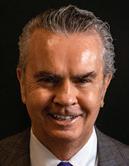
• Partner (2000-2012): Focused on criminal defense and civil rights law.




Cook County State’s Attorney’s Office
• Assistant state’s attorney (1997-2000)
Notable: Bae ran unsuccessfully for judge in the 12th subcircuit in 2016. If elected, Bae said she would be the first Korean American female judge in Cook County.
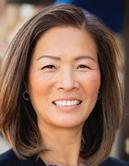
Bar association ratings: Rated qualified or recommended by all bar associations.
Stephen Swedlow
Experience: Quinn Emanuel Urqu hart & Sullivan, LLP
• Co-managing partner (2012-present): Leads the Chica go office of a large international law firm. Represents both companies and consumers in civil and class-action lawsuits.
Korein Tillery
• Partner (2008-2011): Focused on intellectual property, class action, and civil lawsuits.
• Associate (2001-2004)
Swedlow & Associates
• Partner (2004-2008): Represented plaintiffs in class-action lawsuits against pharmaceutical companies, chemical companies, and consumer goods companies.
Latham & Watkins
• Associate (1996-2001)
Notable: Swedlow represented health insurance companies in a class-action lawsuit filed in 2016 against the federal government over unpaid fees related to the Affordable Care Act. The government was ordered to pay $3.7 billion, and Swedlow’s firm was awarded $185 mil lion in legal fees. Swedlow won a $10.1 billion verdict in a class-action lawsuit against Philip Morris International in 2003. It was the largest civil judgment in Illinois at the time, but the judgment was overturned by the Illinois Supreme Court.
Swedlow currently represents plaintiffs in class-action lawsuits against Face book and Amazon over alleged privacy violations. Early in his career, Swedlow represented plaintiffs pro bono in a civil lawsuit against Matthew Hale and his white supremicist, neo-Nazi organization World Church of the Creator, after one of Hale’s followers killed two people, including Northwestern University basketball coach Ricky Byrdsong, and injured nine others during a shooting spree. As of May 12, Swedlow had loaned his campaign fund $500,000, which is a notably large sum for a subcircuit race and nearly seven times as much as his competitor had raised.
Bar association ratings: Rated qualified or above by all and highly qualified or highly recommended by three bar associations.
Endorsements: Personal PAC
12 INJUSTICE WATCH JUDICIAL ELECTION GUIDE 2022
8TH SUBCIRCUITGORDON VACANCY
8TH SUBCIRCUITLIPSCOMB VACANCY For more information about each candidate, scan the QR code or visit injusticewatch.org/judges. MORE ONLINE Expanded coverage
Sanjay Tailor
Experience:
Cook County Circuit Court
• Circuit judge (2021-present): Appointed by the Illinois Supreme Court. Presiding judge of the county division, which hears cases about elections, name changes, adoptions, and men tal health proceedings.

• Associate judge (2003-2021): Served in sev eral divisions, including domestic relations, where he heard divorce and child support cases; law, where he heard contract and business disputes; and chancery, where he heard class action lawsuits, constitutional challenges to laws, and other civil cases.

Cook County State’s Attorney’s Office
• Assistant state’s attorney (1996-2003): Represented the county and county officials in medical malpractice, civil rights, and other civil lawsuits.
Notable: In 2017, Tailor ruled in favor of the City of Chicago in a longstanding dispute with the city’s main police union over the city’s decision to maintain decades’ worth of police misconduct complaint files, despite a provision in the police union contract that requires those files to be destroyed after five years. Tailor ruled that the contract provision violated the state’s Freedom of Information Act and the public’s interest in disclosure. That decision was upheld by the Illinois Appellate Court and Illinois Su preme Court. In 2018, he dismissed a lawsuit by then-Cook County Assessor Joseph Berrios challenging a county ordinance that lim ited the amount of campaign contributions to elected officials from people who had sought “official action” from those same officials. The appellate court also upheld that decision. In 2019, Tailor ruled in a case brought by Injustice Watch co-founder Rob Warden that the Chicago Police Department could not withhold photos of police officers from the public.
Bar association ratings: Rated qualified or above by all and highly qualified or highly recommended by six bar associations.
Endorsements: CFL, IVI-IPO, Personal PAC
Ann Buran-Vongher
Experience:
Cook County Public Defender’s Office

• Assistant public defender (1989-2020): Represented clients in misdemeanor and felony cases and juvenile court.


Bar association ratings: Rated qualified or recommended by six bar associations. The Illinois State Bar Association rated her not qualified. Other evaluations were not available by press time.
Basileios “Bill” John Foutris
Experience: Foutris Law Office, Ltd.
• Attorney in private practice (2005-present): Focused on police misconduct lawsuits.
Knight, Hoppe, Kurnik, & Knight






• Associate (2002-2005): Represent ed police accused of misconduct.
Anesi, Ozmon, Rodin, Novak & Kohen
• Associate (2000-2002): Represented plaintiffs in personal injury lawsuits.
Notable: Foutris ran unsuccessfully for judge in 2020. He represented the family of Quintonio LeGrier in a wrongful death lawsuit against the City of Chicago and police officer Robert Rialmo. Rialmo killed LeGrier and his neighbor Bettie Jones while responding to a call for help. The jury in the case awarded LeGrier’s family $1.05 million, but the verdict was reversed by Judge Rena Marie Van Tine, who is also running for election this year, based on a finding by the jury that Rialmo was in reasonable fear of great bodily injury or death.
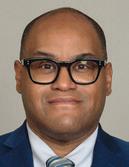
Bar association ratings: Rated qualified or recommended by all bar associations.
Torrick Alan Ward
Experience:
Cook County Department of Human Resources
• Deputy director of labor relations (2019-present): Manages the de partment’s legal staff.
• Senior labor counsel (2015-2019): Represented the county in employ ment matters and labor negotiations.
Law Office of Torrick A. Ward
• Attorney in private practice (2010-2015): Focused on employment and family law.
City of Chicago Office of Compliance

• Deputy director and senior compliance officer (2008-2010): Managed internal investigations into workplace-related complaints and managed the city’s Diversity and Equal Employment Opportunity offices.
City of Chicago Law Department
• Assistant corporation counsel and senior counsel (1998-2007): Represented the city in labor-related lawsuits and issues.
Bar association ratings: Rated qualified or recommended by all bar associations and highly recommended by Chicago’s LGBTQ+ Bar Association.

Barry Goldberg
Experience:
Office of the Illinois Attorney General
• Bureau chief, Charitable Trust bureau (2019-present): Brings civil and criminal cases against nonprofits and executives accused of fraud, misuse of funds and other violations of state law.
• Deputy bureau chief, Charitable Trust bureau (20182019).
• Assistant bureau chief, Charitable Trust bureau (2006-2017).
• Assistant attorney general, Charitable Trust bureau (1999-2006).
Bar association ratings: Rated qualified or recommended by eight bar associations and highly recommended by the Decalogue Society of Chicago. Other evaluations were not available by press time.
Endorsements: CFL, IVI-IPO, Personal PAC
Don R. Sampen
Experience: Clausen Miller, P.C.
• Partner (2008-present): Focused on commercial litigation and appeals.
Meckler Bulger and Tilsen
• Partner (2003-2008): Focused on insurance coverage and commercial litigation.
Office of the Illinois Attorney General
• Chief, Public Interest and Special Litigation divisions (2000-2003): Worked on special litigation, includ ing a nationwide lawsuit against several tobacco companies.
• Assistant attorney general (1995-2000) Martin, Craig, Chester & Sonnenschein
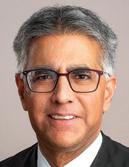

• Partner (1988-1995): Mostly focused on commercial litigation.
Bar association ratings: Rated qualified or above by all. The Chicago Council of Lawyers rated him well qualified, and Chicago’s LGBTQ+ Bar Association rated him highly recommended.
Endorsements: Personal PAC
INJUSTICE WATCH JUDICIAL ELECTION GUIDE 2022 13
9TH SUBCIRCUITCLEVELAND VACANCY
9TH SUBCIRCUITJACOBIUS VACANCY MORE ONLINE Check out our comprehensive judicial election guide To locate your Cook County subcircuit, read more information about each candidate, and create a customized report you can take to your polling station, scan the QR code or visit www.injusticewatch.org/judges.
Chris Taliaferro
Experience: Taliaferro Law Group


• Attorney in private practice (2016-present): Focused on divorce, child support, estate planning, and other domestic relations cases.
Chicago City Council
• Alderperson, 29th Ward (2015-present): Represents parts of the Austin, Belmont Cragin and Montclare neighborhoods on the city’s West Side.

Nexus Legal Group


• Attorney in private practice (20082016): Focused on divorce, child support, estate planning, and other domestic relations cases.
Chicago Police Department
• Police officer (1994-2017): Promot ed to sergeant in 2012. Took a leave of absence upon joining the City Council in 2015.
Notable: Taliaferro served in the U.S. Marine Corps before becoming a police officer. As an investigator in the Chicago Police Department’s internal affairs unit in 2005, Taliaferro wrote a memo to department higher-ups about the high number of complaints against officers in the Special Oper ations Section, the Chicago Tribune reported. Several members of that unit later faced federal charges for stealing drugs and money from people they falsely arrested.
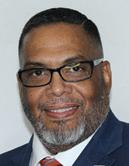
Taliaferro has been a reliable pro-po lice voice since joining the City Coun cil. In 2019, Mayor Lori Lightfoot made Taliaferro the council’s public safety committee chair. Since then, he has supported the mayor’s version of an ordinance creating a new police oversight body and stalled attempts by fellow alderpeople to hold a hear ing to question Police Superintendent David Brown about plans to address
gun violence last summer. In an interview, Taliaferro said he has supported police accountability efforts and does not always see eye-to-eye with the police department or unions. “I do love our police department and I love our police officers,” he said. “But my voting record has always been what I thought was best for our city and my ward. And because of that, I’ve lost the support of the Fraternal Order of Police and the sergeants’ union.”
Bar association ratings: Rated recommended by four bar associations and not recommended or not qualified by four. Other evaluations were not available by press time.
Endorsements: CFL
Aileen Bhandari
Experience: Cook County State’s Attorney’s Office
• Supervisor, Community Justice Centers (2021-present): Oversees four neighborhood-based offices that prosecute criminal cases and support community outreach and crime prevention.
• Assistant state’s attorney (20022019): Held various roles, including overseeing the Community Justice Center in the Austin neighborhood, prosecuting felony criminal cases, and working in the office’s grand jury and felony review units.
Notable: Bhandari ran unsuccessful ly for judge in 2020. She was also a finalist for associate judge in 2019.
Bar association ratings: Rated qualified or above by all and highly recommended by Chicago’s LGBTQ+ Bar Association and the Puerto Rican Bar Association of Illinois.
Endorsements: IVI-IPO
Christine Svenson
Experience:
Svenson Law Offices
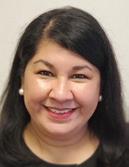
• Principal (2008-present): Focused on employment law, election law, and family law.
Cook County Republican Party •General counsel (20122017): Represented the party in election lawsuits and other legal matters.
Stone & Moore, Chartered

• Partner and associate (1998-2008): Focused on workers’ compensation cases.

Notable: Svenson ran unsuccessfully for judge in 2018. In 2014, she represented a client who filed a lawsuit alleging sexual harrassment against Dan Rutherford, then the Illinois state treasurer and a Republican candidate for governor. Rutherford accused Svenson and her client of fabricating the allegations to help his primary opponent, Bruce Rauner. Svenson denied political motivations. She said a previous $3,500 payment from Rauner’s campaign was for unrelated legal work.
Svenson has worked on several cases with Judi cial Watch, a conservative legal group. In a 2015 case, Svenson represented a client who filed a lawsuit asking the court to force Cook County’s cooperation with U.S. Immigration and Customs Enforcement detainer requests, which ask local jails to hold people who immigration officials suspect are in the country illegally. The county had passed a 2011 ordinance ordering the sheriff not to comply. A Cook County judge dismissed the lawsuit, and the Illinois Appellate Court later dismissed an appeal filed by Svenson, saying the case briefs submitted on her client’s behalf were “completely deficient.” In an emailed statement, Svenson said she had approved the documents but did not write them. She disagreed with the appellate court’s assessment, writing, “Our brief was not deficient at all.”
Svenson represents a reporter with the conser vative news outlet The Daily Caller in a pending lawsuit against Chicago Mayor Lori Lightfoot, claiming she violated the First Amendment in May 2021 when she granted interviews only to reporters of color to mark the midpoint of her first term.
Bar association ratings: Rated qualified or rec ommended by nine bar associations. The Chicago Bar Association rated her not recommended. Others were not available by press time.
Gary William Seyring
Experience: Law Offices of Gary W. Seyring
• Attorney in private practice (2010-present): Focused on real estate, contract disputes, domestic relations, contested estates, and personal injury cases.
Seyring, Watson & Galvin
• Attorney in private practice (2000-2010)
Flynn, Murphy, Ryan & Seyring

• Attorney in private practice (1978-2000)
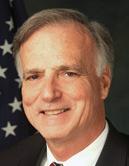
Notable: Seyring is running for judge in the 13th subcircuit for the fifth time. He lost in the Republican primary in 2014 and 2016, and lost in the general election in 2018 and 2020. In addition to his law practice, he also has served as an arbitrator with the Cook County Arbitration Program. Before becoming a lawyer, Seyring was an accountant for several years.
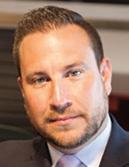
Bar association ratings: Rated qualified or recommended by all bar associations.
Dominic J Buttitta, Jr
Experience: Buttita Law Group, LLC •Managing attorney (2015-present): Focused on criminal defense and family law.
Carponelli & Buttita, LLC
• Partner (2013-2015): Fo cused on criminal defense and family law.
McHenry County State’s Attorney’s Office
• Assistant state’s attorney (2010-2013): Held various roles, including prosecuting misde meanor and traffic cases, felony cases, white collar crimes, and mental health court cases.
Bar association ratings: Rated qualified or recommended by all bar associations that were available by press time.
MORE ONLINE
Check out our comprehensive judicial election guide
14 INJUSTICE WATCH JUDICIAL ELECTION GUIDE 2022
13TH
VACANCY (GOP)
SUBCIRCUITGROEBNER
11TH SUBCIRCUITMcGUIRE VACANCY
locate your
subcircuit, read more information about each
and create
customized report you can take to your polling station, scan the QR code or visit
To
Cook County
candidate,
a
www.injusticewatch.org/judges.
13TH SUBCIRCUIT
GROEBNER VCY. (DEM)
“Jack” Costello
Experience: Cook County State’s Attorney’s Office
• Assistant state’s attorney (2007-present): Since 2019, has prosecuted public corruption and financial crimes cases. Previously prosecuted felony, misdemeanor and traffic cases, and worked in the felony review unit.
Bar association ratings: Rated qualified or recommended by all bar associations that were available by press time.
Endorsements: CFL, Personal PAC
Joe Gump
Experience: Law Offices of Joseph M. Gump
• Attorney in private practice (2020-present): Focused on real estate transactions and misdemeanor criminal cases.
Cook County Public Defender’s Office
• Assistant public defender (19892020): Started in the appeals divi sion. Spent 17 years representing defendants in felony cases at the Rolling Meadows courthouse.
Notable: Gump ran unsuccessfully for judge in 2020. His parents served time in federal prison in the 1980s for participating in anti-war protests that allegedly caused damage to federal property, which Gump has said in spired his career in public defense.
Bar association ratings: Rated qualified or recommended by all bar associations.
Endorsements: IVI-IPO, Personal PAC
14TH SUBCIRCUIT
BROWN VACANCY
Iris Y. Chavira
Chavira is running unopposed in this primary. For her full candidate pro file, visit injusticewatch.org/judges.
Steve Demitro
Experience: Steve Demitro Law Office
• Attorney in private practice (2000-present): Focuses on personal injury, wrongful death, and criminal cases. Also works as an arbitra tor.
Metropolitan Water Reclamation District
• Hearing officer (2014-2015): Heard appeals of cases involving water-related charges, pollution, and other issues.
Notable: Demitro dropped out of high school but later earned his GED diploma, went to law school, and passed the bar exam. He ran unsuccessfully for judge in 2012 and 2020.
Bar association ratings: Rated qualified or recommended by all bar associations.

Viviana Martinez
Experience: Chicago Public Schools



• Deputy gen eral counsel (2022-present): Works on contract negotiations, procurements, and legal compliance.
Cook County government
• Special assistant for legal affairs, Bureau of Administration (20182022): Provided legal counsel to various county departments.
• Interim director, Department of Adoption and Family Sup portive Services (2018-2019): Oversaw policy and training for the department responsible for social investigations of families involved in adoptions and par entage proceedings.
• Assistant special legal counsel, Office of Cook County President (2013-2018): Provided legal counsel to the office and various county departments.
Office of Cook County Commissioner Jesús “Chuy” García
• Chief of staff and general counsel
(2010-2013): Drafted legislative proposals, wrote speeches and press releases, and managed office staff.
Attorney in private practice
• (2008-2010): Represented people in immigration cases and foreclosure defense.
Office of the Illinois Attorney General
• Assistant attorney general (2007-2008): Worked on labor-related issues.

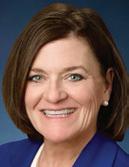

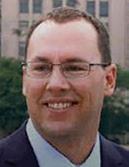
Bar association ratings: Rated recommended or qualified by six bar associations. Four bar associations found her not recommended or not qualified. Others were not available by press time.
Endorsements: CFL
Jorge V. Cazares
Experience: Hinshaw & Culbertson LLP
•Partner (2020-present): Wide-ranging practice, including contract and business law, product liability, and representing local governments in employment and civil rights cases.
Pugh, Jones & Johnson, P.C.
• Director (2008-2020): Practiced personal injury defense, civil rights and employment discrim ination defense, and real estate and commercial law.
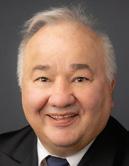
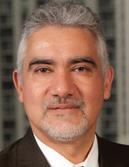
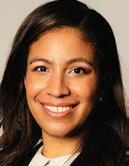
• Associate and partner (19922006)
Chicago Housing Authority
• General counsel (2006-2008): Oversaw all legal matters for the public housing agency, including real estate development, per sonal injury cases, and housing regulation issues. Also served as the agency’s chief ethics officer and chief equal employment opportunity officer.
Exelon
• Litigation counsel (2005): Temporarily served as in-house counsel.
Bar association ratings: Rated not qualified or not recommended by five bar associations.

Bernadette Barrett
Experience: The Barrett Law Group
• Attorney in private practice (2019-present): Focused on family law and civil litigation.
Barrett & Sramek
• Attorney in private practice (1991-2019): Fo cused on family law and civil litigation.
Notable: Barrett ran unsuccessfully for judge in the 15th subcircuit in 2004. Her husband, Michael B. Barrett, is a Cook County Circuit Court judge in the Markham courthouse.
Bar association ratings: Rated qualified or recommended by all bar associations that were available by press time.
Jim Gleffe
Experience: Cook County Clerk’s Office




• Deputy chief of staff and labor counsel (2020-present): Represents the office in employment issues.
Cook County Recorder of Deeds Office
• Chief deputy recorder and chief of staff (2018-2020): Worked on labor issues, con tracts, and legislative priorities for the office.
• Chief legal counsel (2014-2018): Drafted and reviewed ordi nances and worked on Freedom of Information Act requests.
Chicago City Clerk’s Office
• Policy analyst (2013-2014): Worked on city legislation related to the clerk’s office.
Illinois Secretary of State’s Office
• Chief deputy director, securities division (2012-2013): Oversaw regulatory and enforcement cases involving the sale of securities.
•Enforcement attorney (2009-2012)
City of Chicago Law Department
• Prosecutor (2007-2009): Prosecuted municipal code violations and traffic offenses.
Notable: Gleffe and his wife, Kristen Bauer, have close ties to former House Speaker Michael Madigan. Gleffe was a longtime precinct captain under Madigan in Chicago’s 13th Ward. Bauer is a registered lobbyist who has represented clients including ComEd, which is embroiled in a bribery scandal that led to Madigan’s indictment last year, and Green Thumb Industries, a cannabis company that was one of the first to receive licenses to grow medical marijuana in Illinois, according to the Chica go Tribune. In 2019, Gleffe was involved in efforts to challenge the ballot petitions of David Krupa, a college student who was running against 13th Ward Ald. Marty Quinn. Gleffe notarized several dozen affidavits from residents who said they wanted to withdraw their signatures from Krupa’s nominating petitions. But the Quinn campaign collected far more affidavits than the number of signatures Krupa had collected, leading to questions about the veracity of the affidavits, the Chicago Tribune reported. In a statement, a spokesperson for his campaign said, “The role of a notary is only to verify that the person signing a document is who they say they are. ... Jim carried out his notary duties in full compliance with the law.”
Bar association ratings: Rated not qualified or not recommended by four bar associations. Two bar associations rated him recommended. The other evaluations were not available by press time.
Endorsements: CFL, Personal PAC
INJUSTICE WATCH JUDICIAL ELECTION GUIDE 2022 15
James
14TH SUBCIRCUIT 15TH SUBCIRCUIT JAGIELSKI VACANCY LAWLER VACANCY
SPECIAL PULLOUT SECTION
Injustice Watch is a nonprofit, nonpartisan news organization in Chicago. Our work focuses on justice and equity in the court system. This judicial election guide is the result of a year of extensive research and reporting about Cook County judicial candidates. We offer the guide as a resource to voters. We don’t make endorsements or recommendations.
Scan the QR code or visit injusticewatch.org/donate to support public service journalism.

Research and reporting: Grace Asiegbu, Carlos Ballesteros, Maya Dukmasova, Emanuella Evans, Kelly Garcia, Chloe Hilles, Max Lubbers, Josh McGhee, Rita Oceguera, Amy Qin, and Aviva Waldman
Editing: Adeshina Emmanuel and Jonah Newman



Web development and design: Bea Malsky
Print guide design: Shanna Novak
Cover illustration: Verόnica Martinez
Engagement and distribution: Amanda Miley, Charles Preston, and Juliet Sorensen
16 INJUSTICE WATCH JUDICIAL ELECTION GUIDE 2022








































































































 By KATIE PROUT
By KATIE PROUT


















 By KELLY GARCIA
By KELLY GARCIA









































































































 Margo Csipo
Margo Csipo





















































































 @LeadholmKira
@LeadholmKira
 By MARK GUARINO
By MARK GUARINO




















































































































 Your voting guide to Cook County’s 2022 judicial primary elections
Your voting guide to Cook County’s 2022 judicial primary elections






























































































